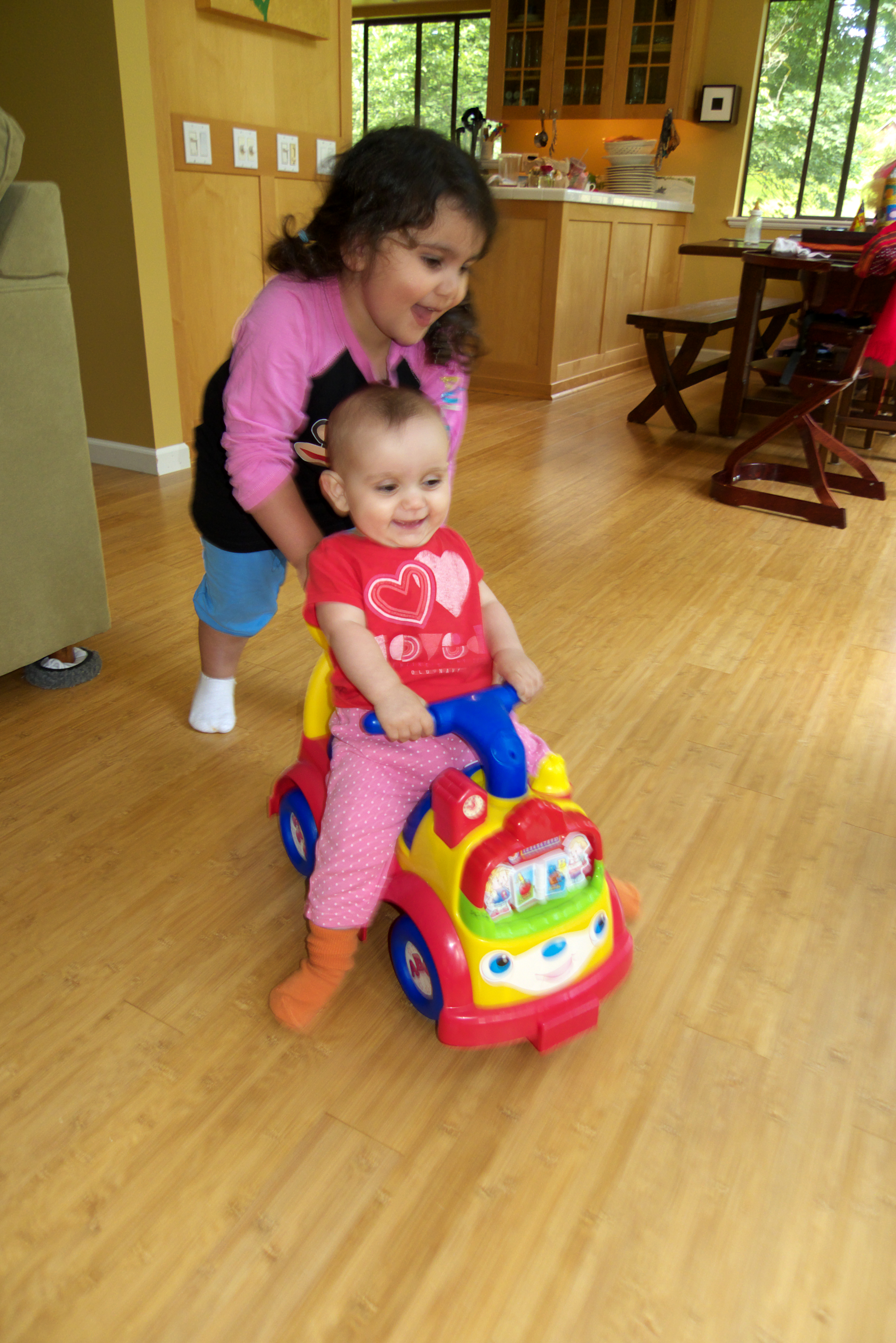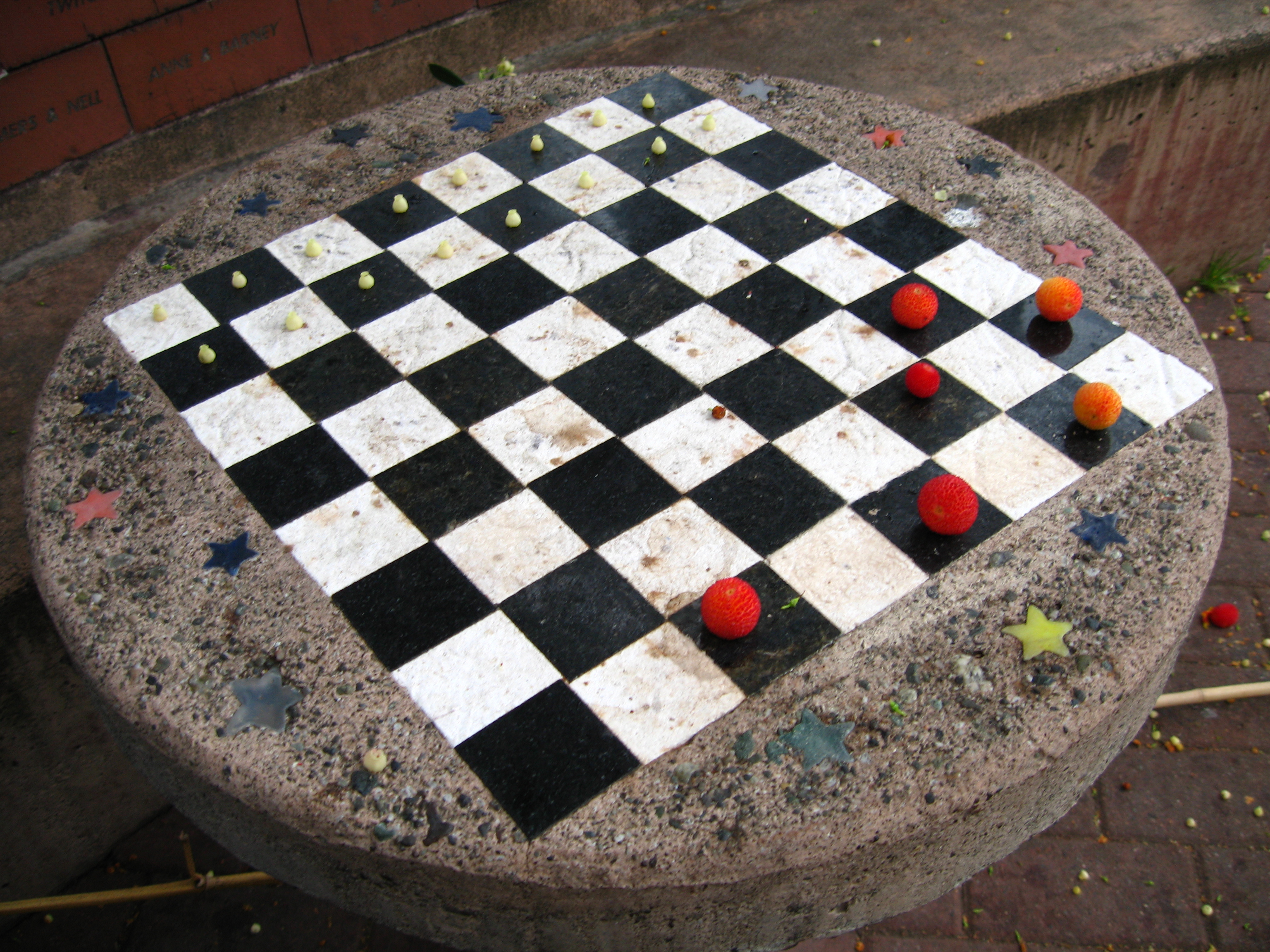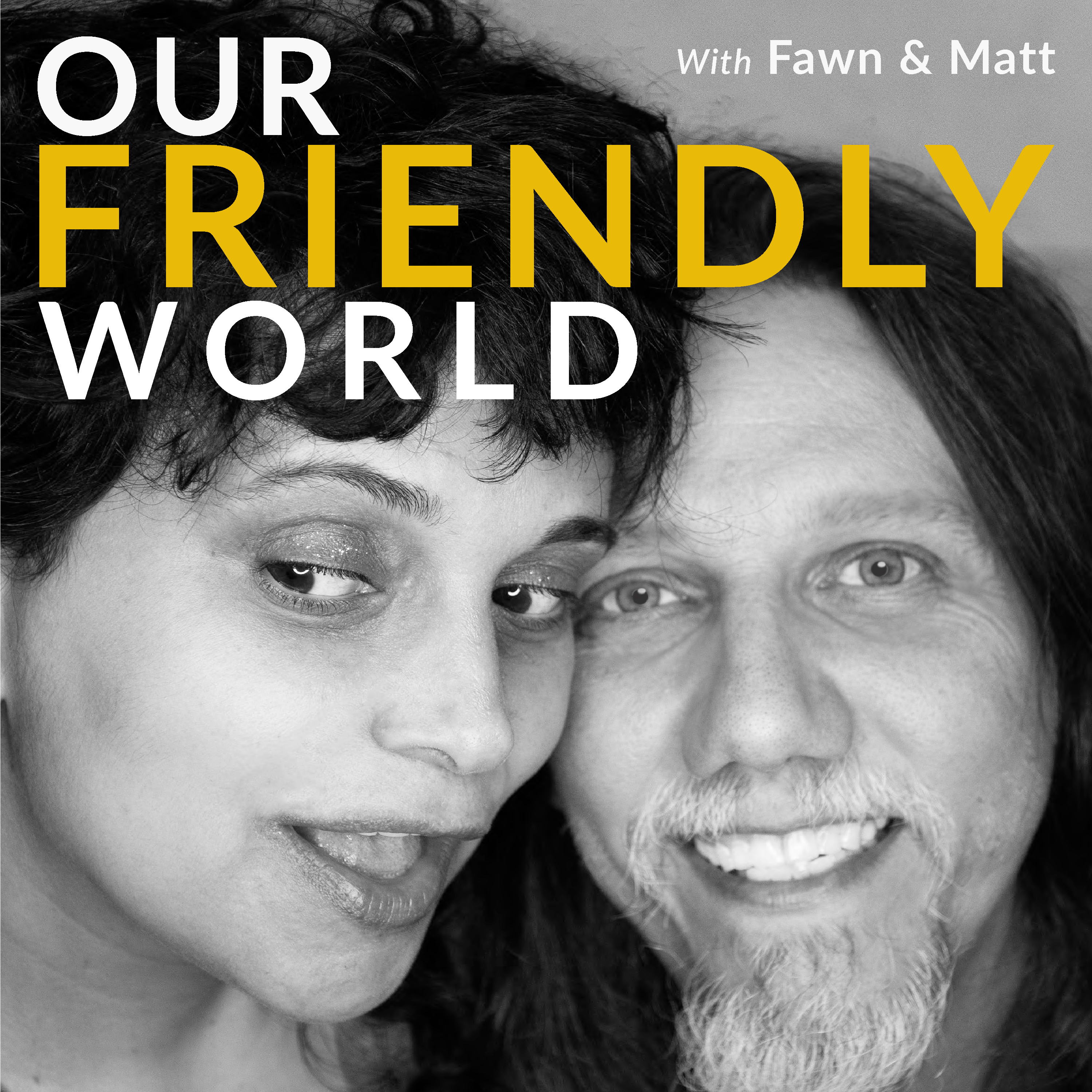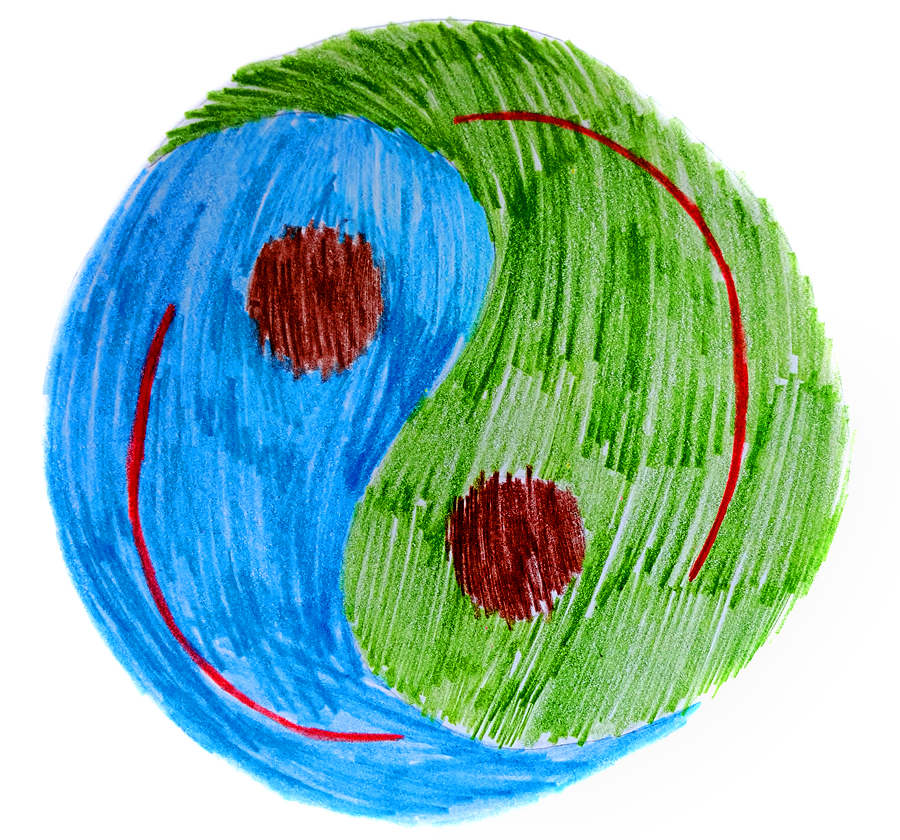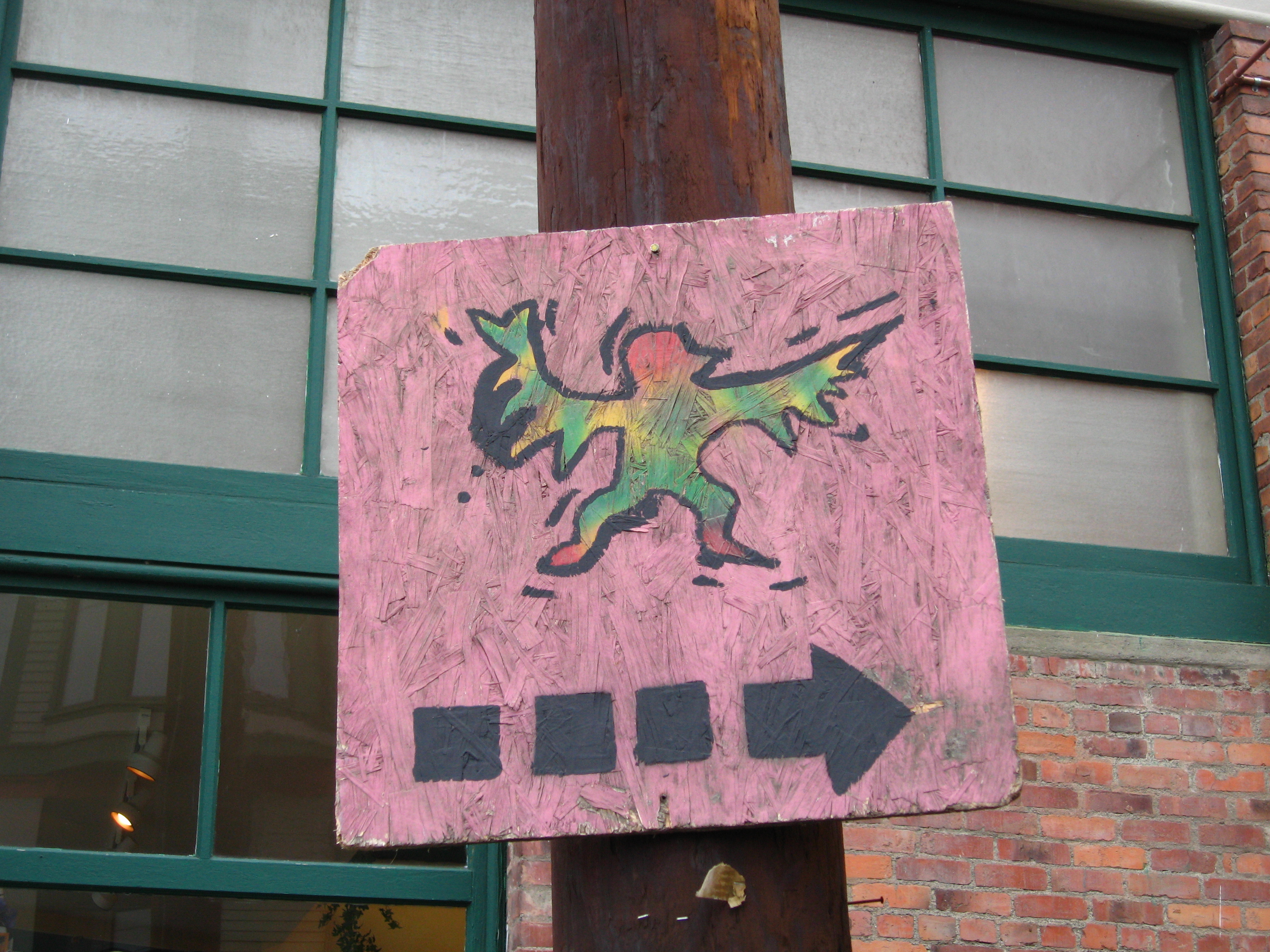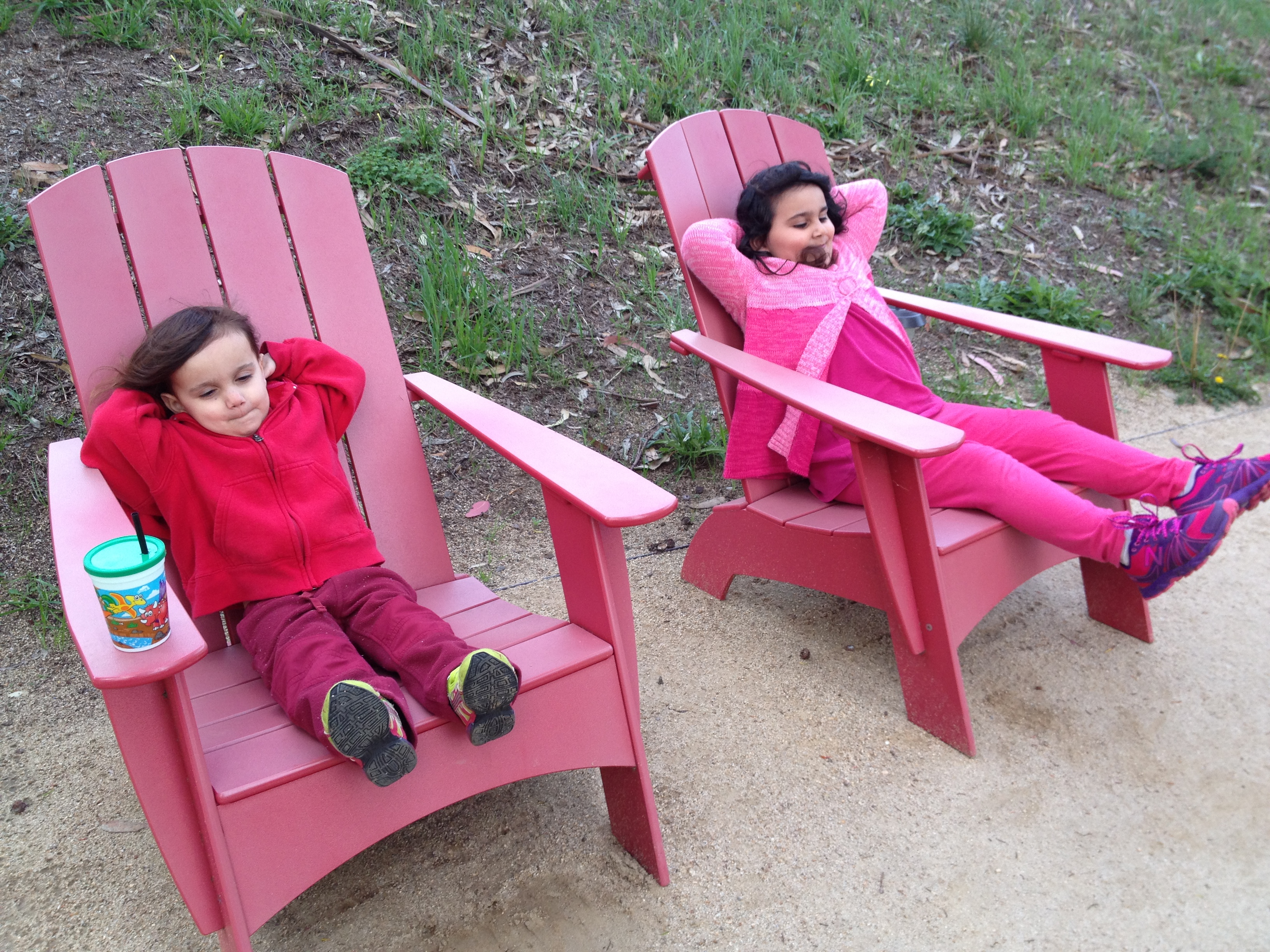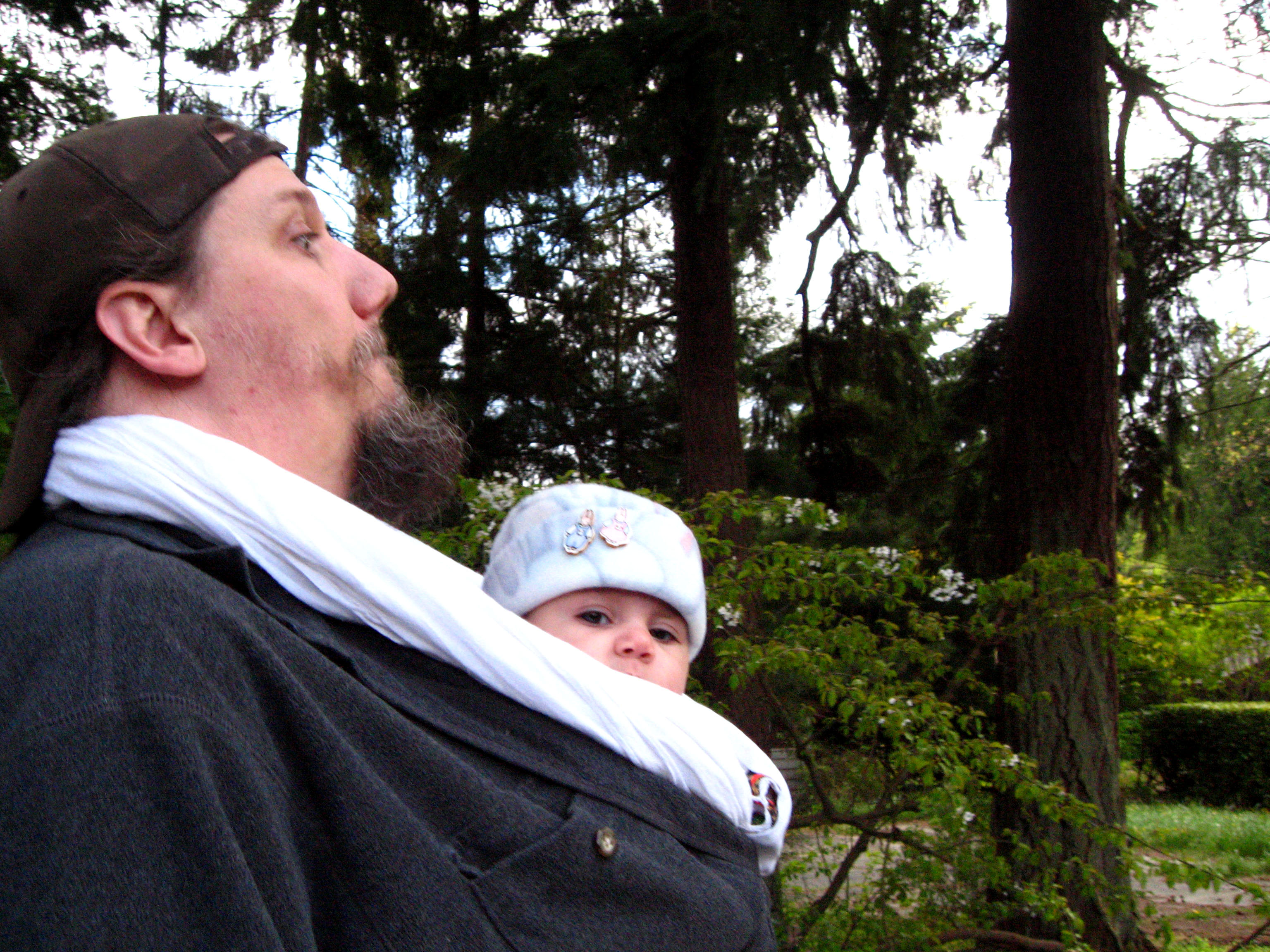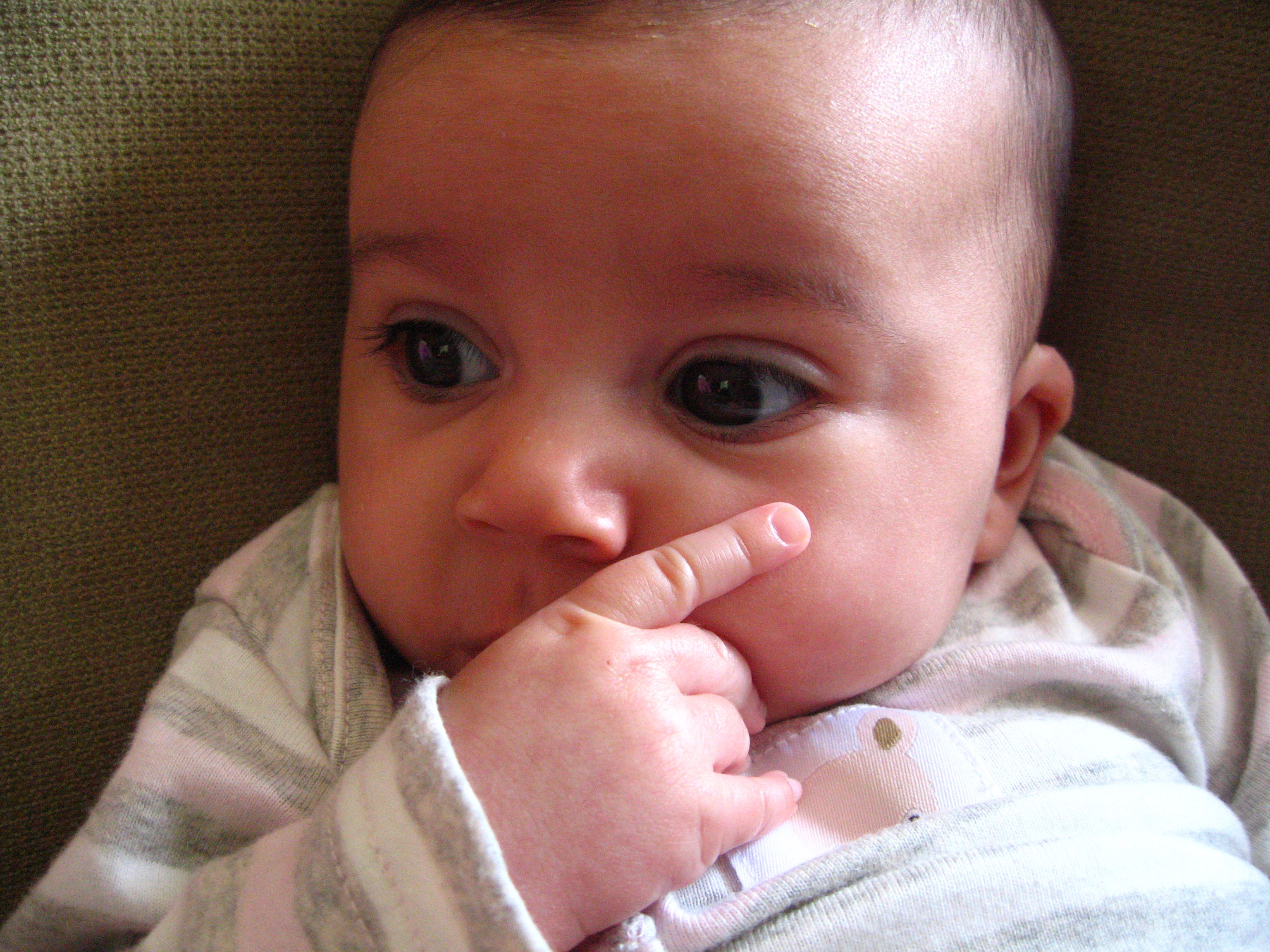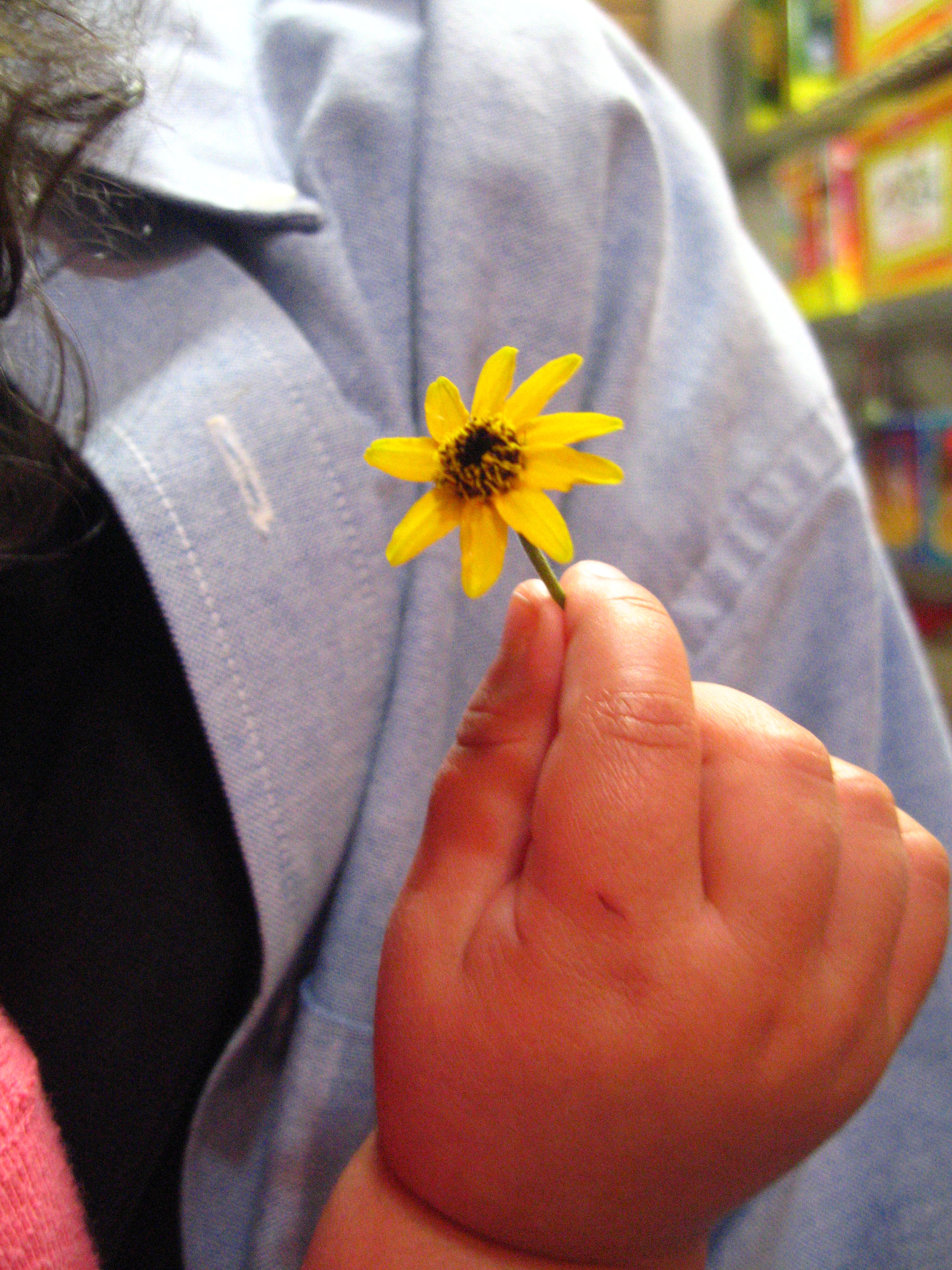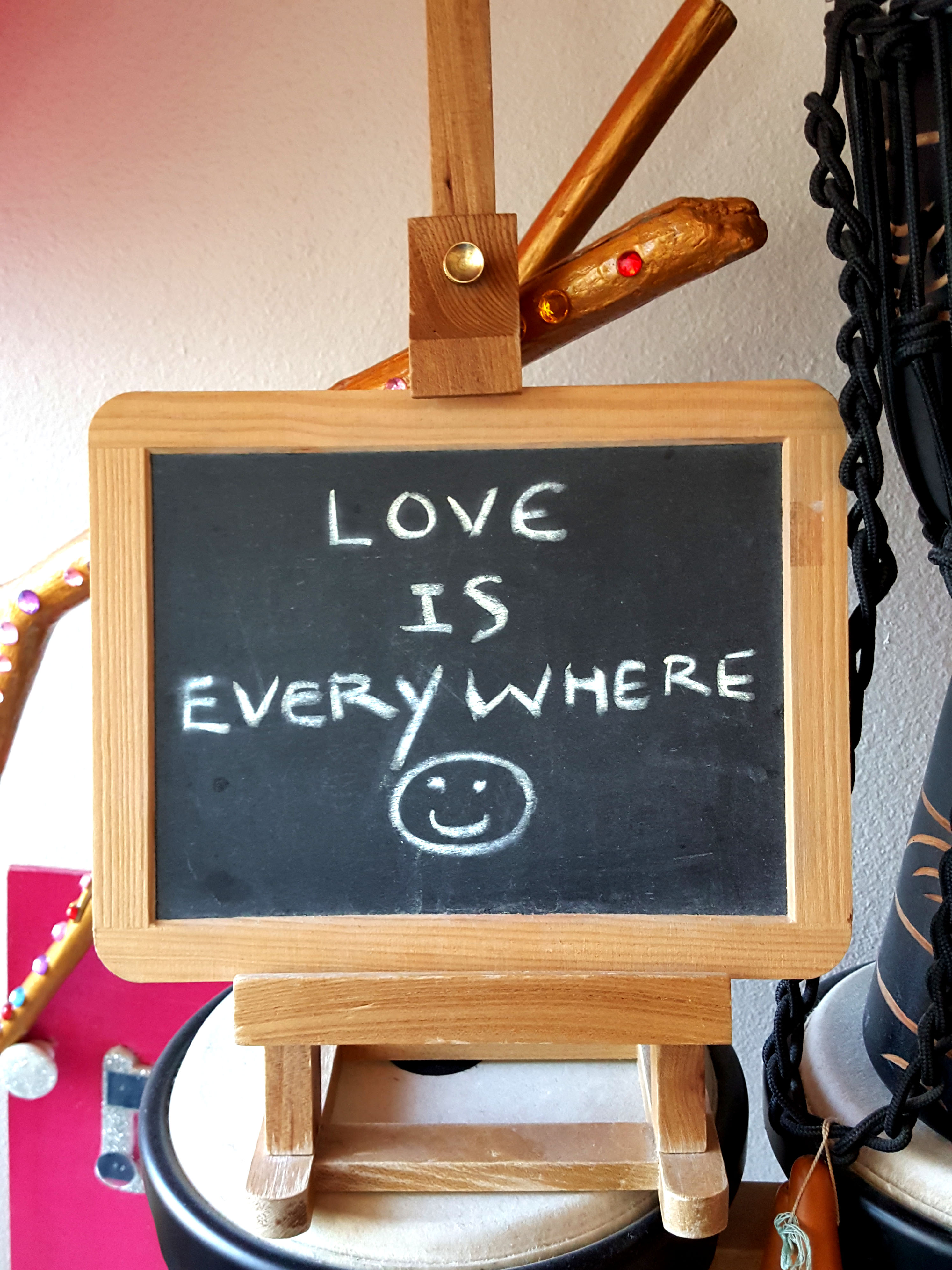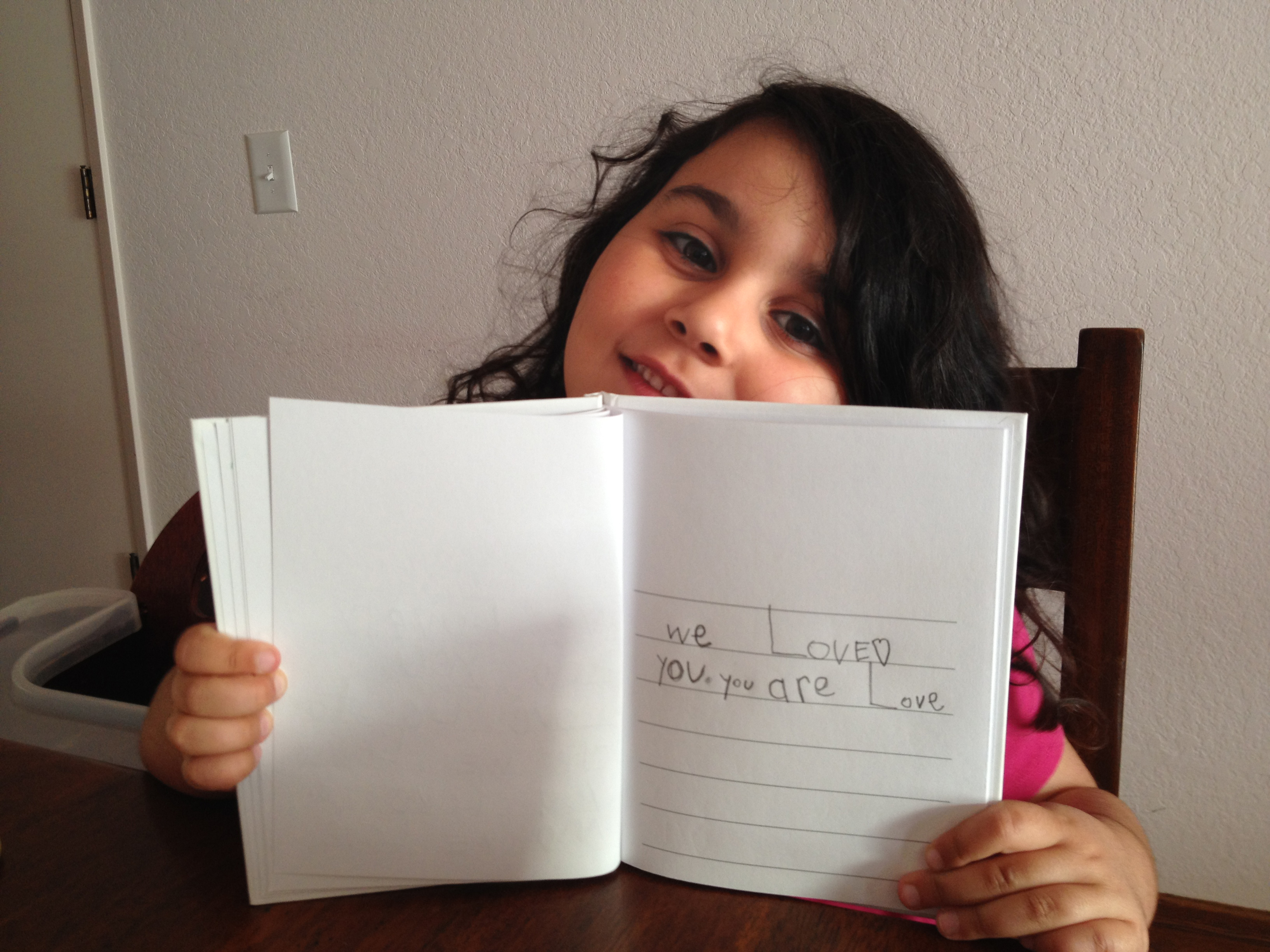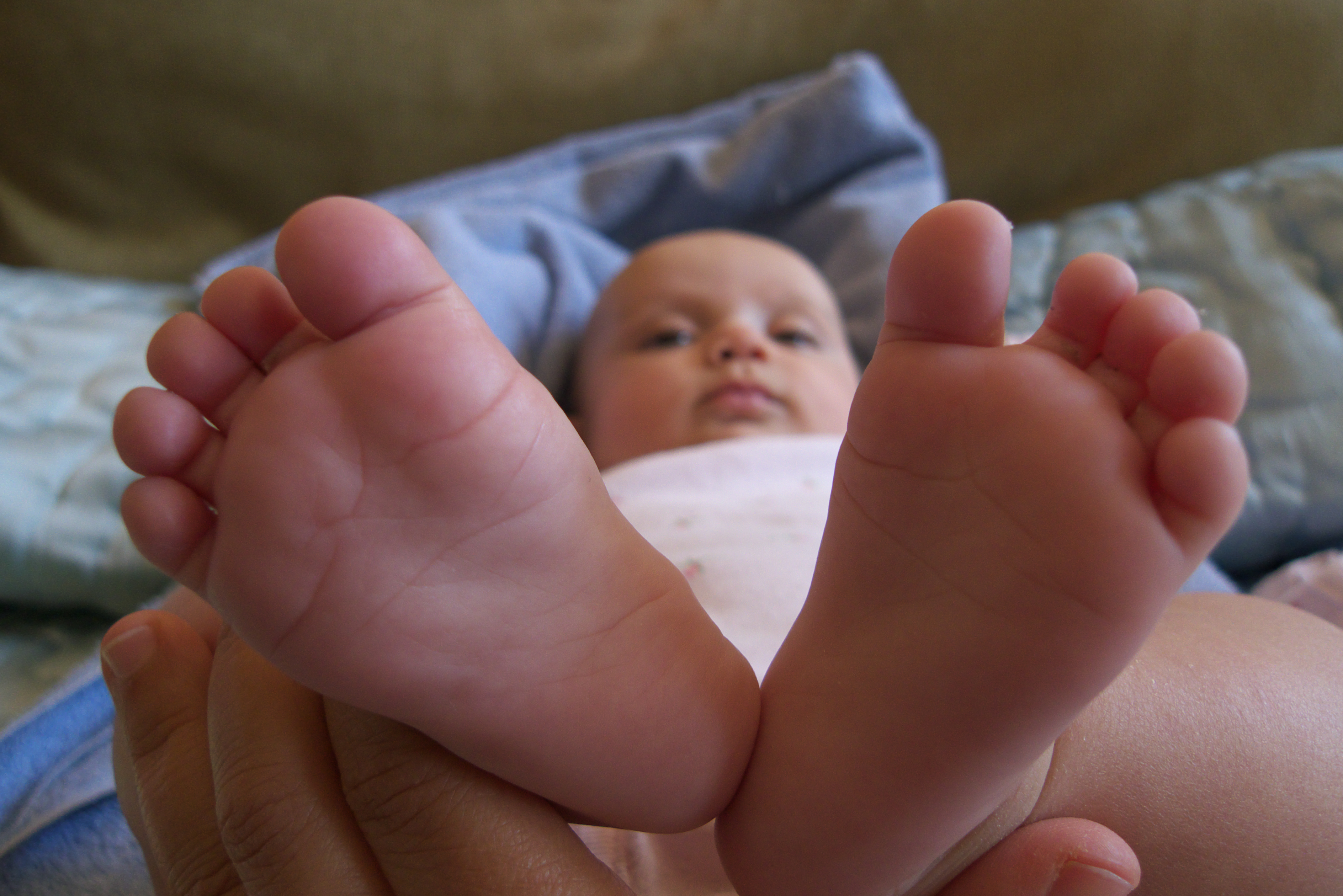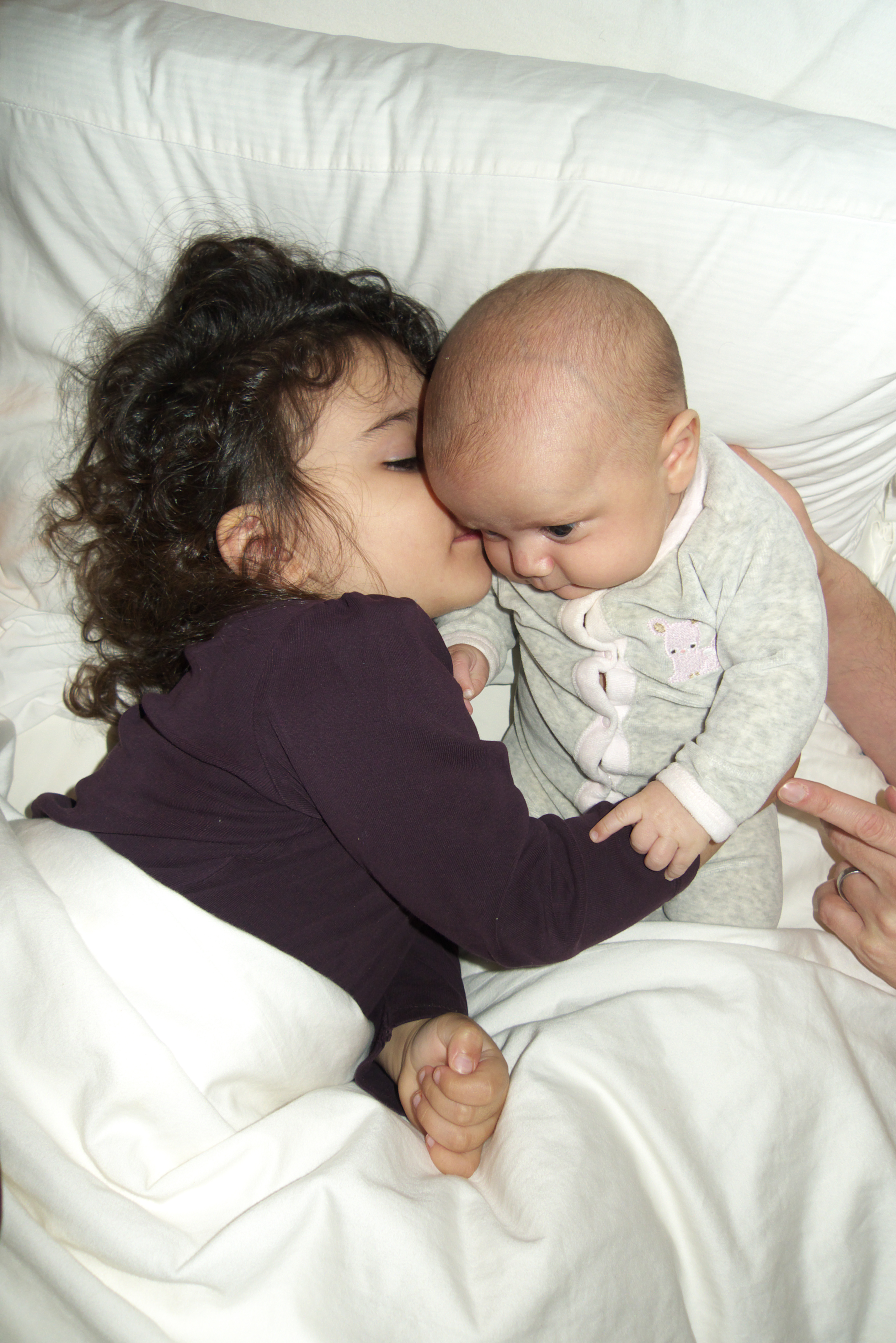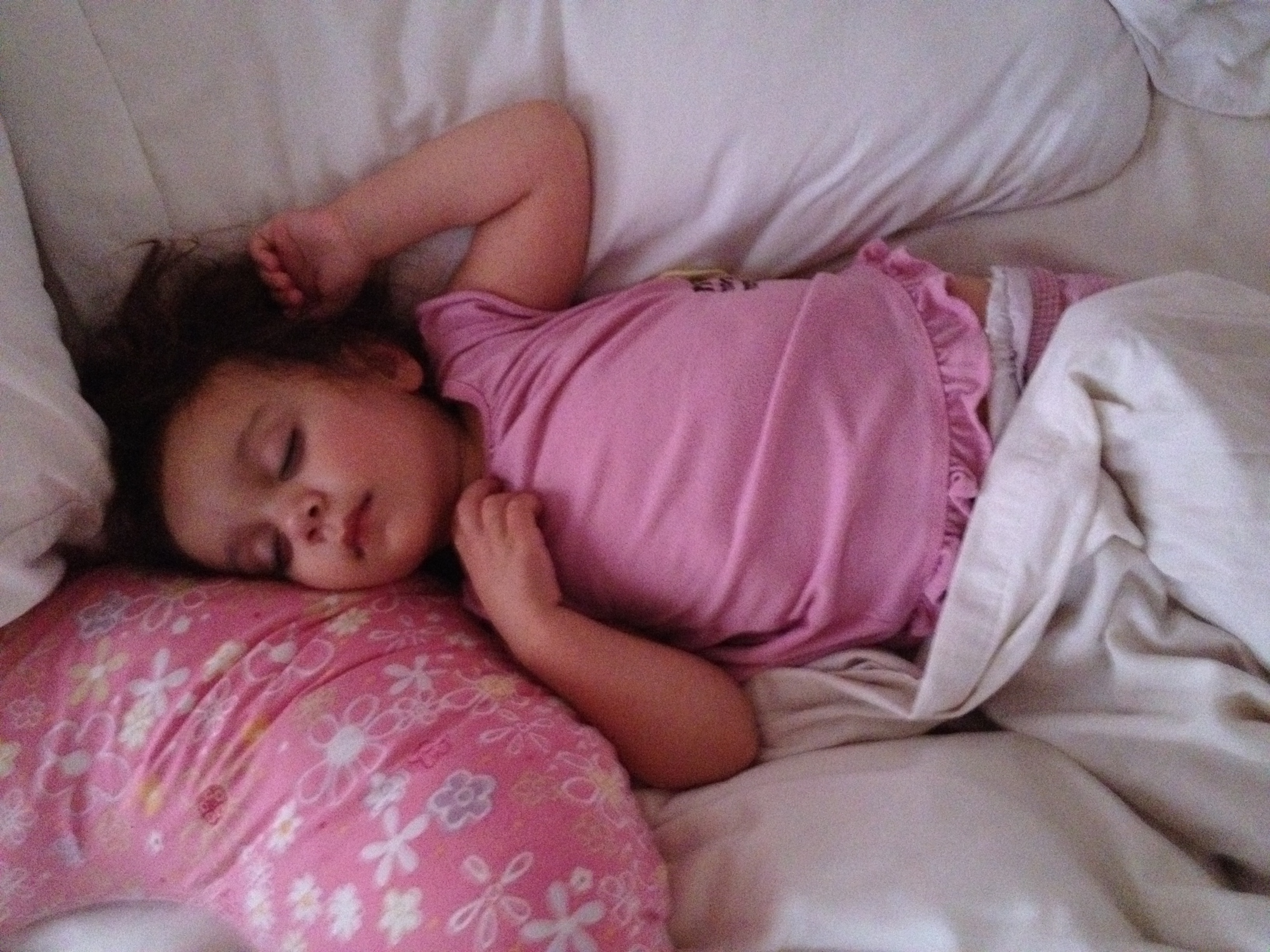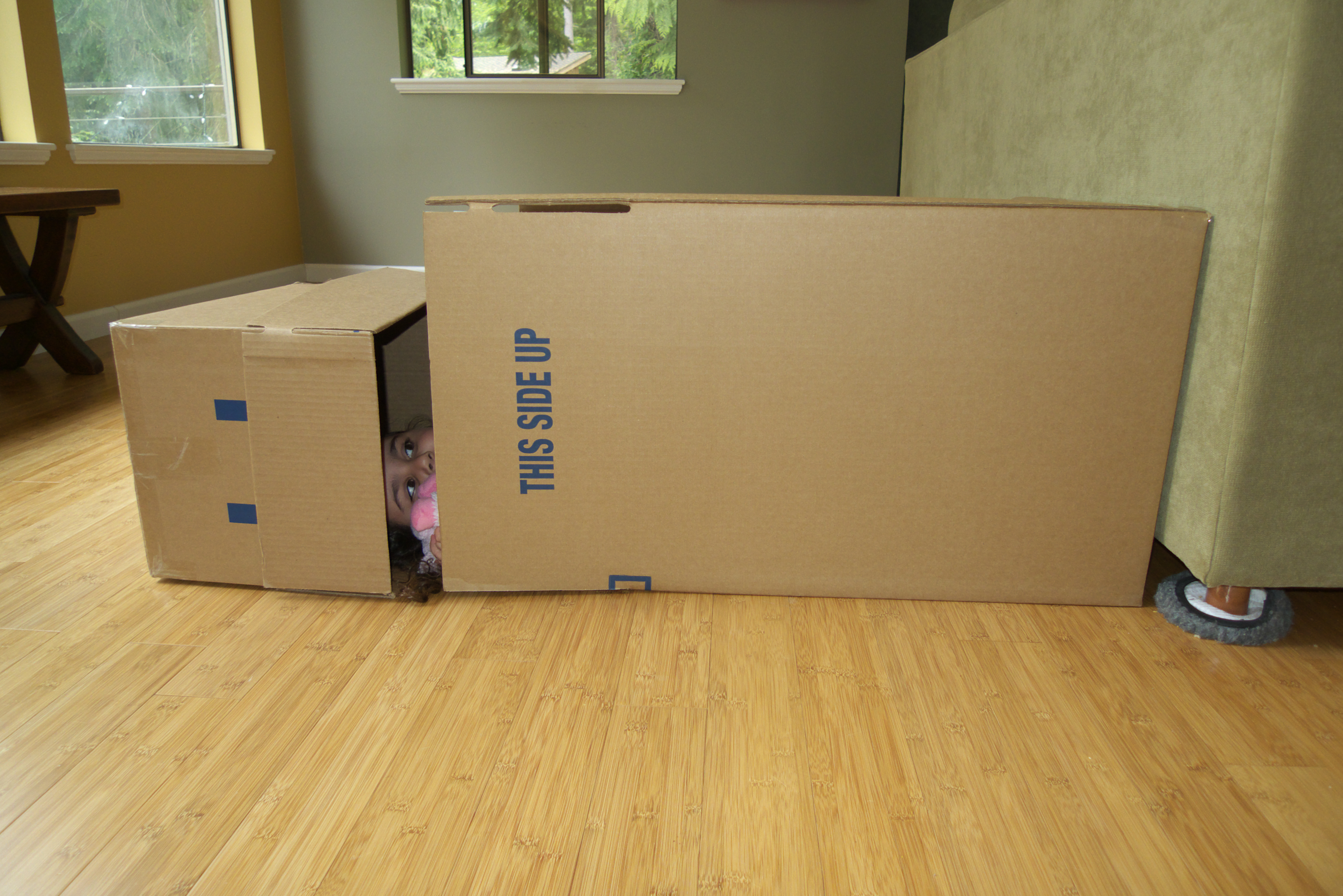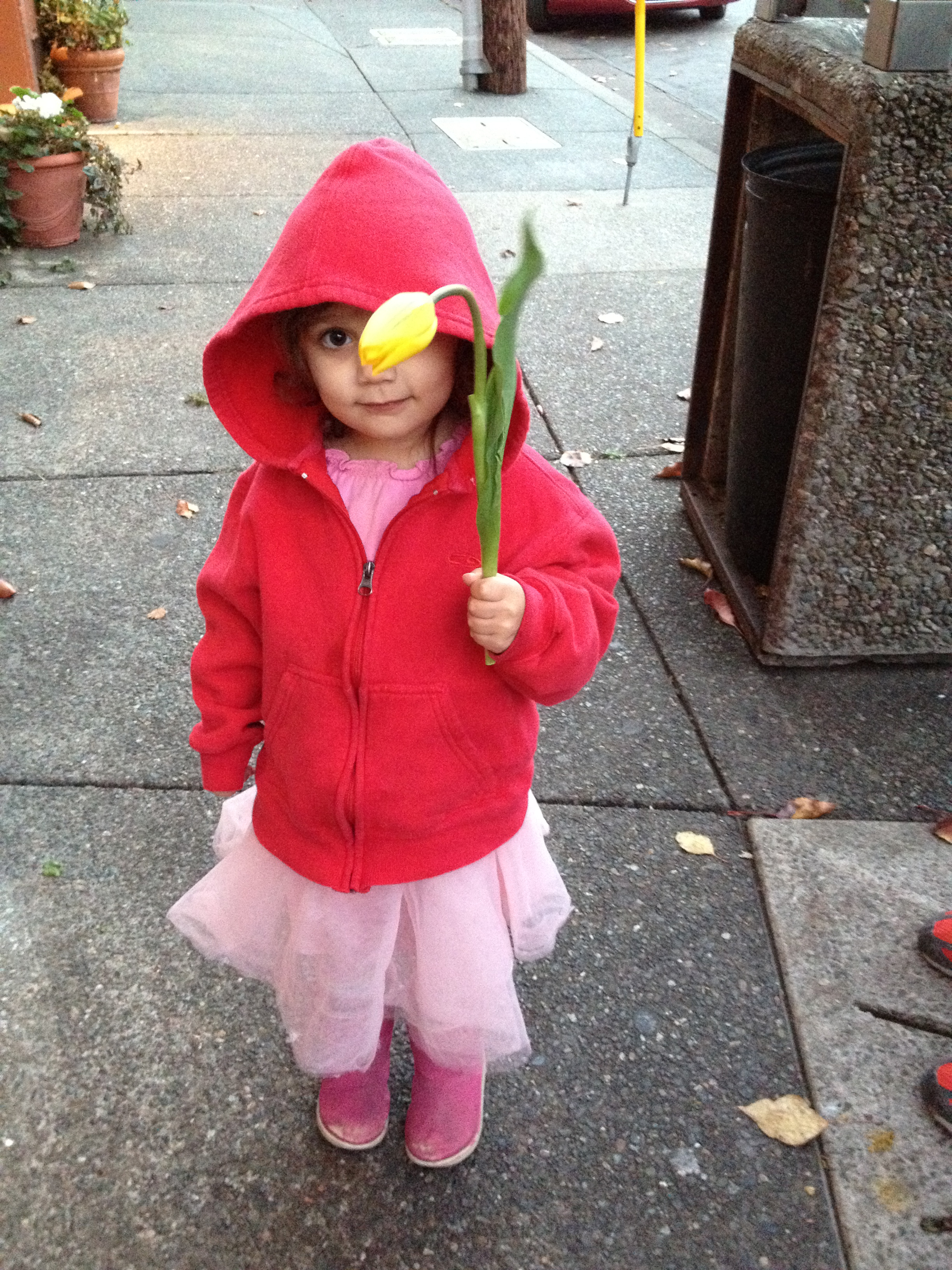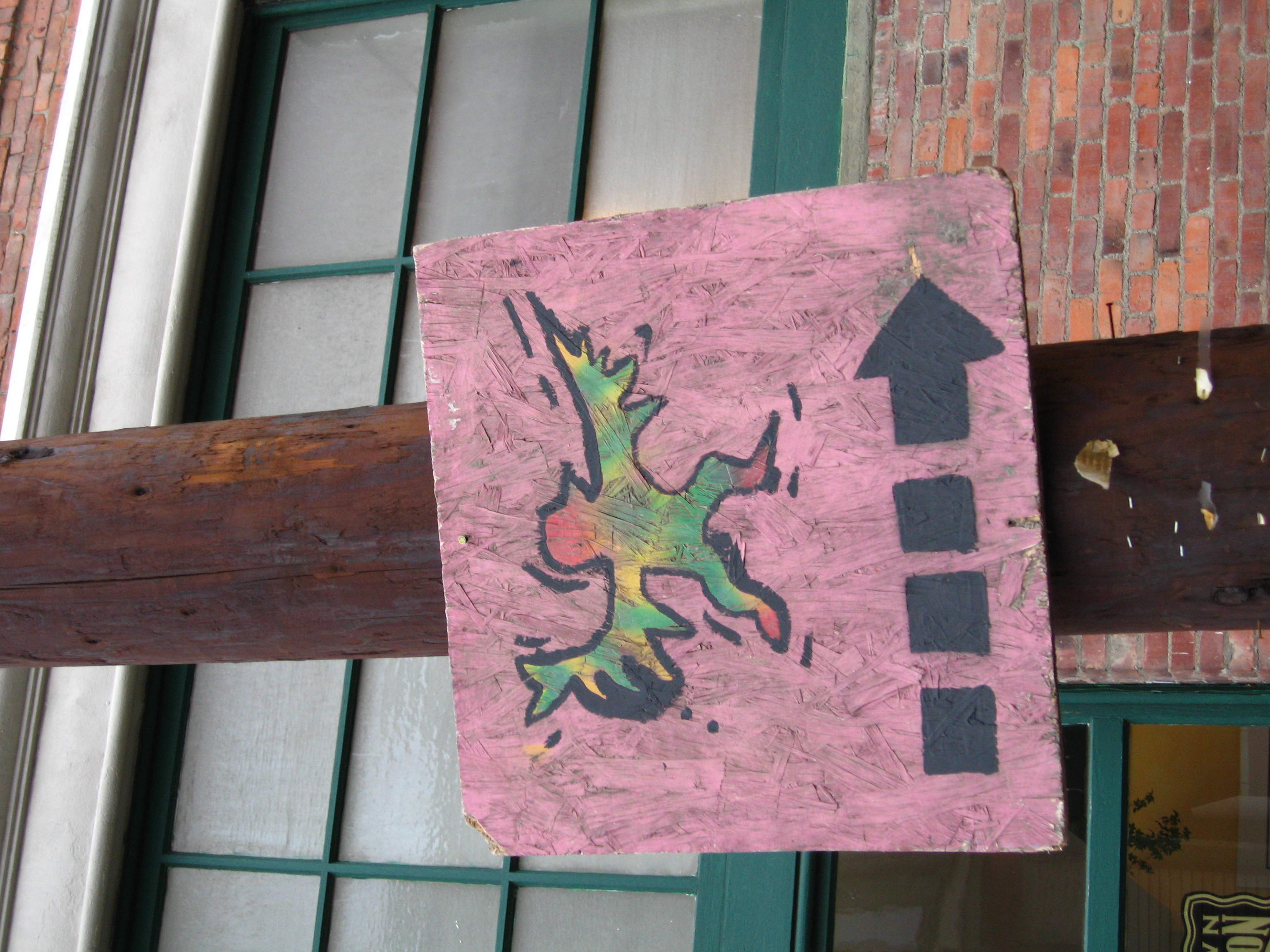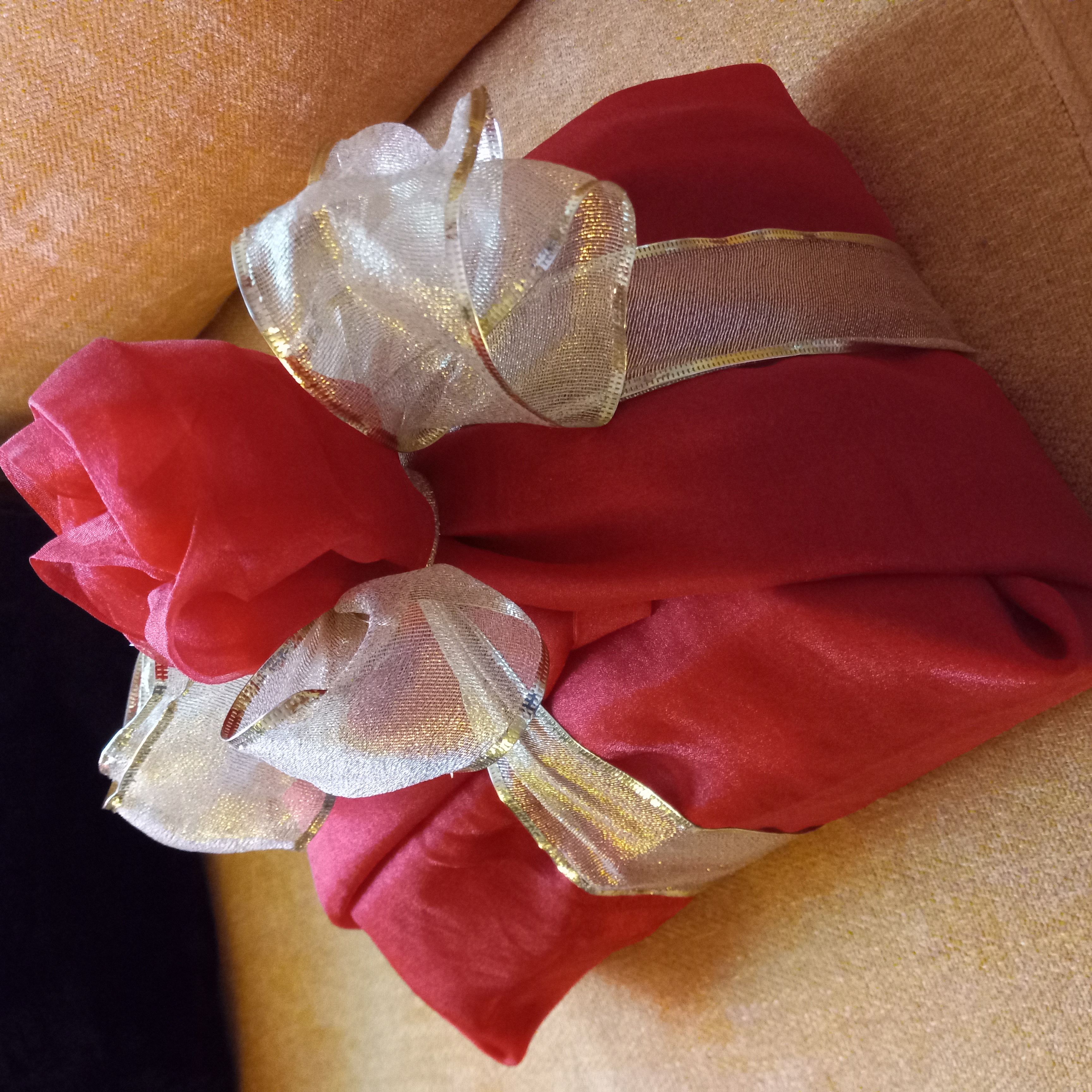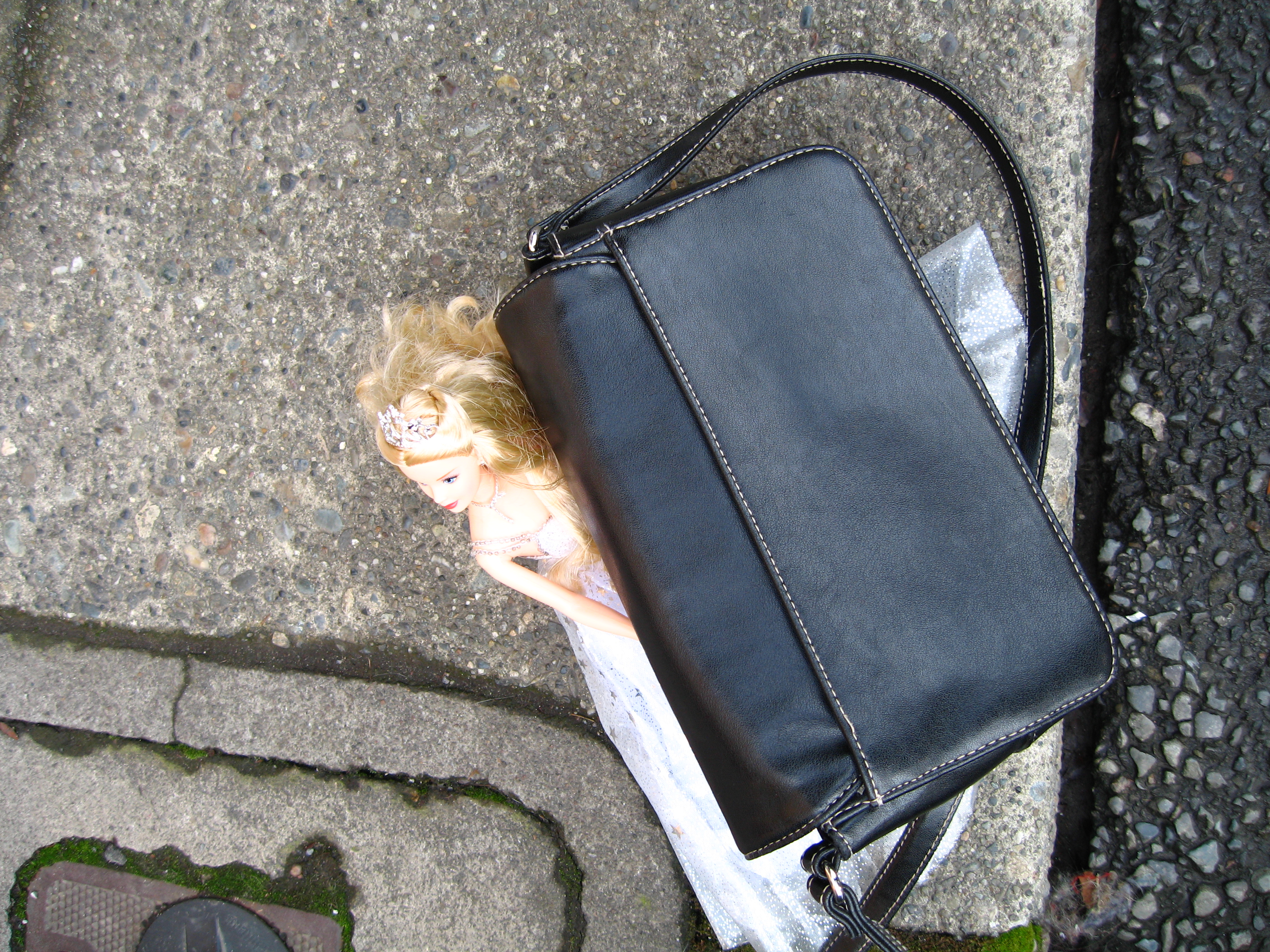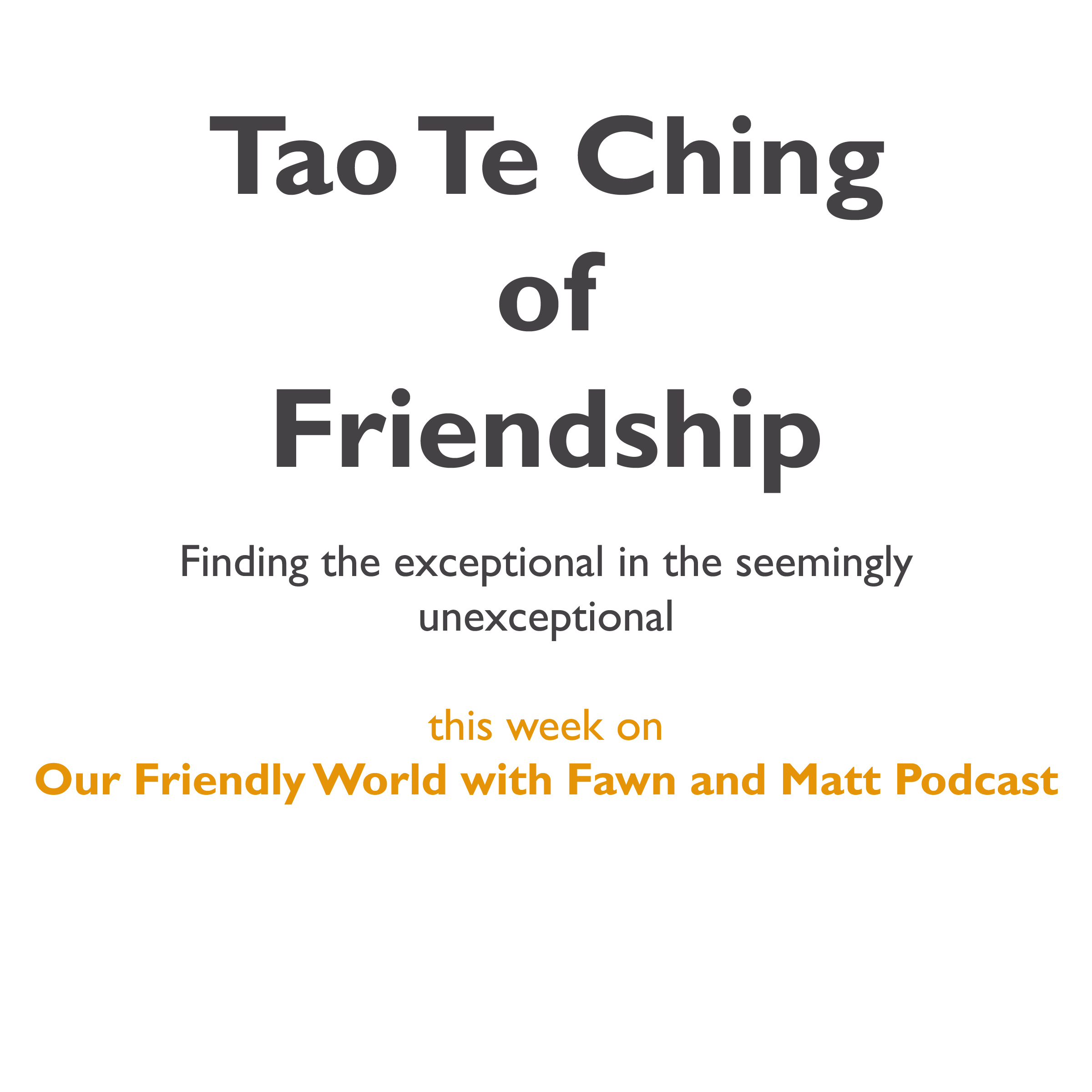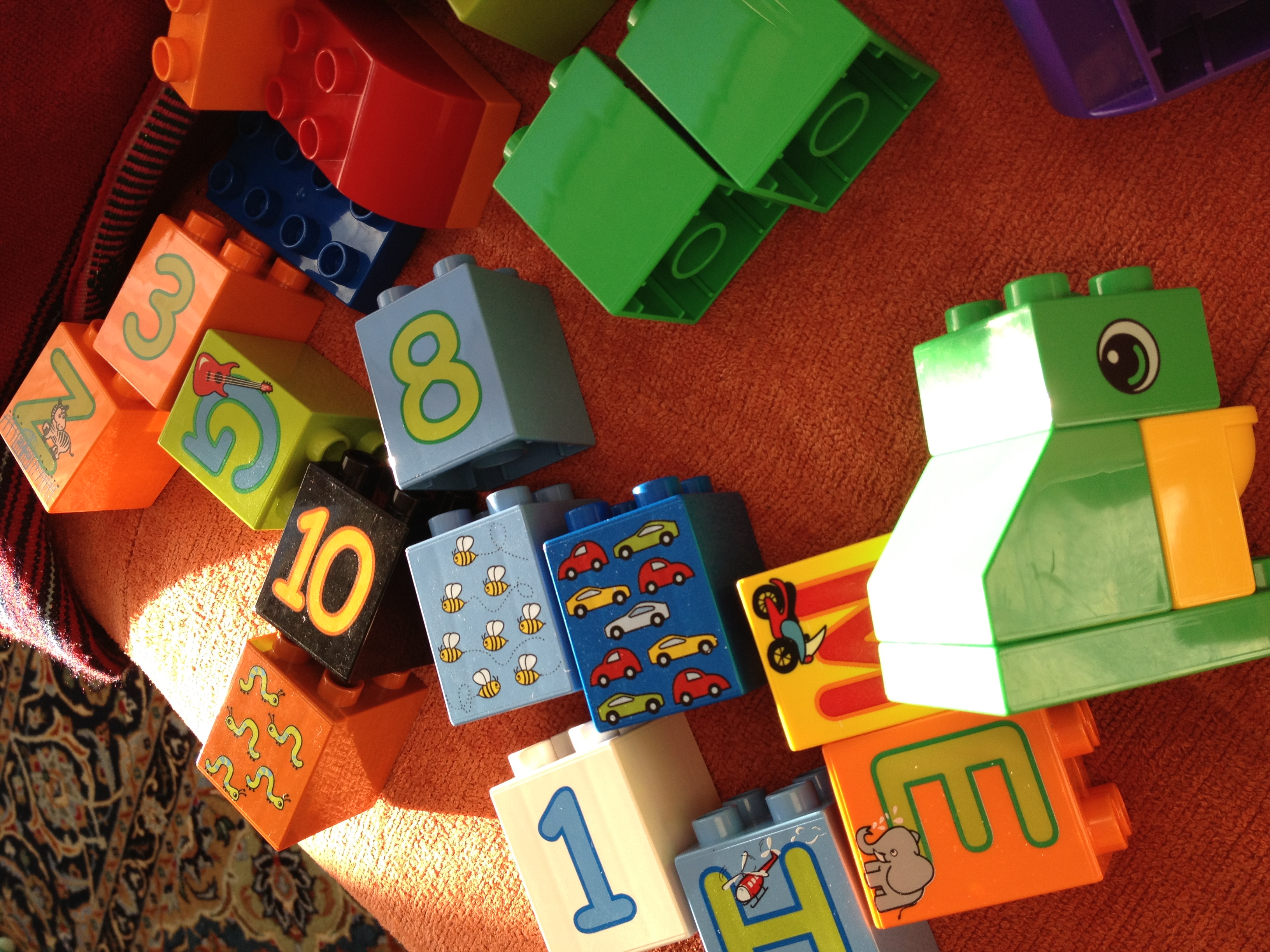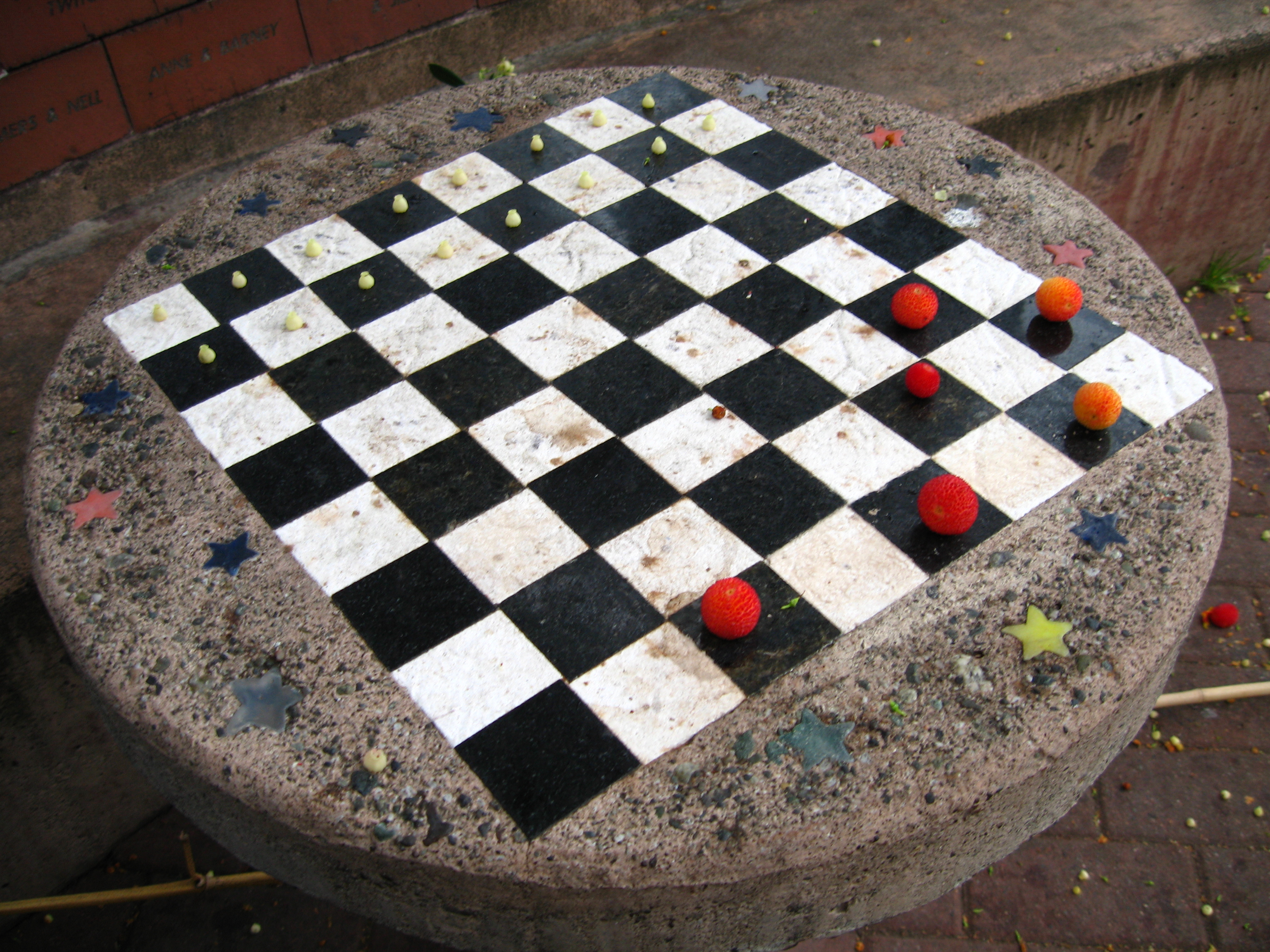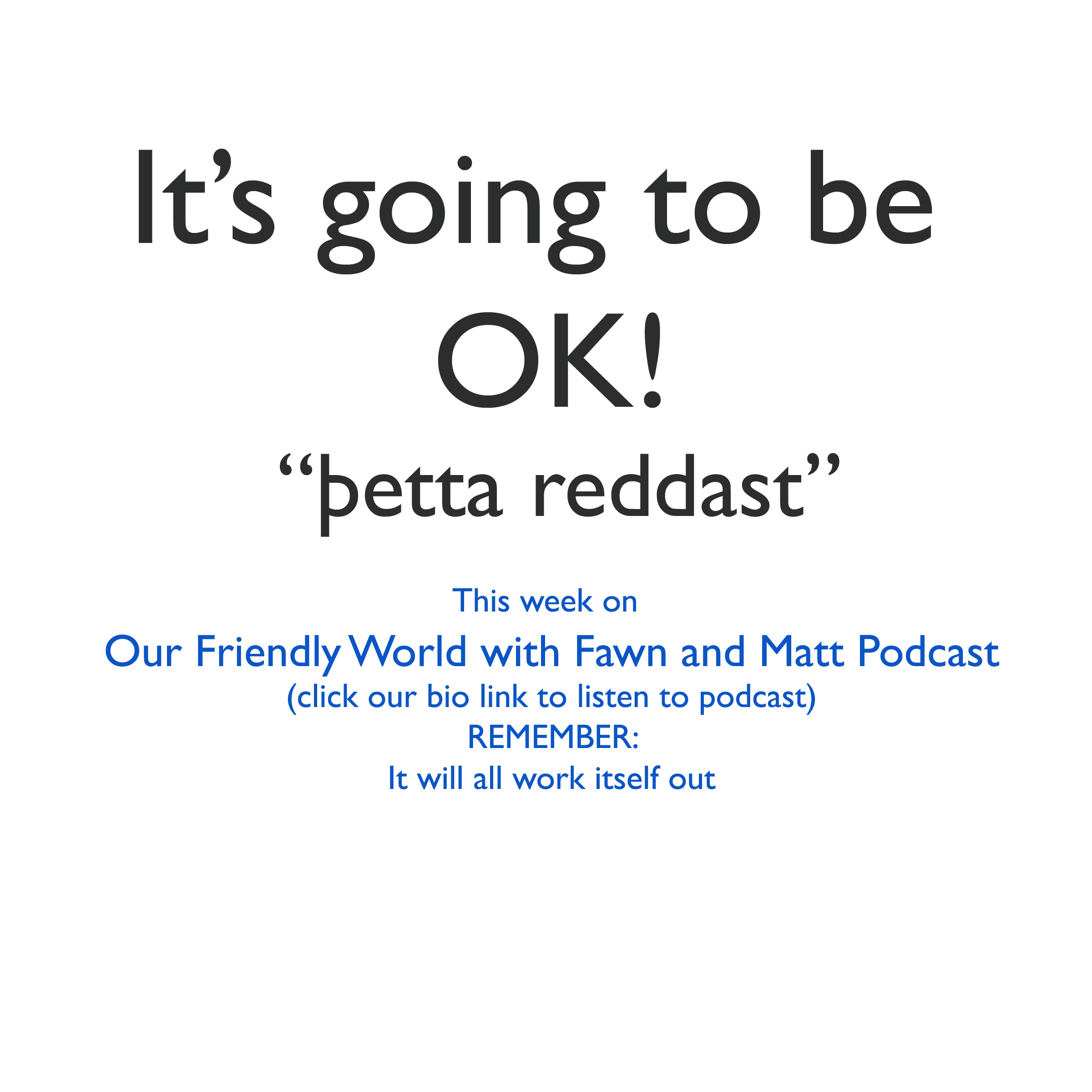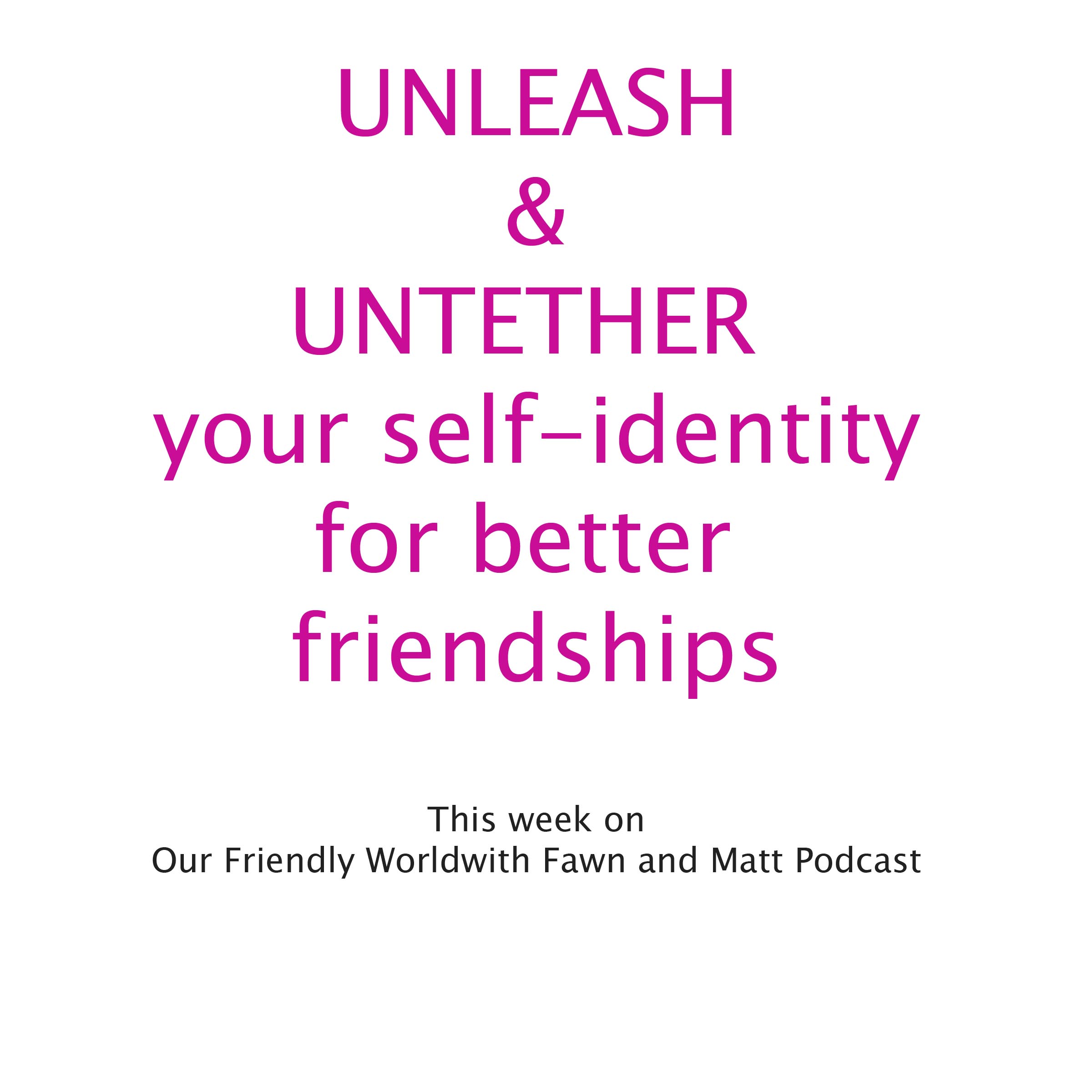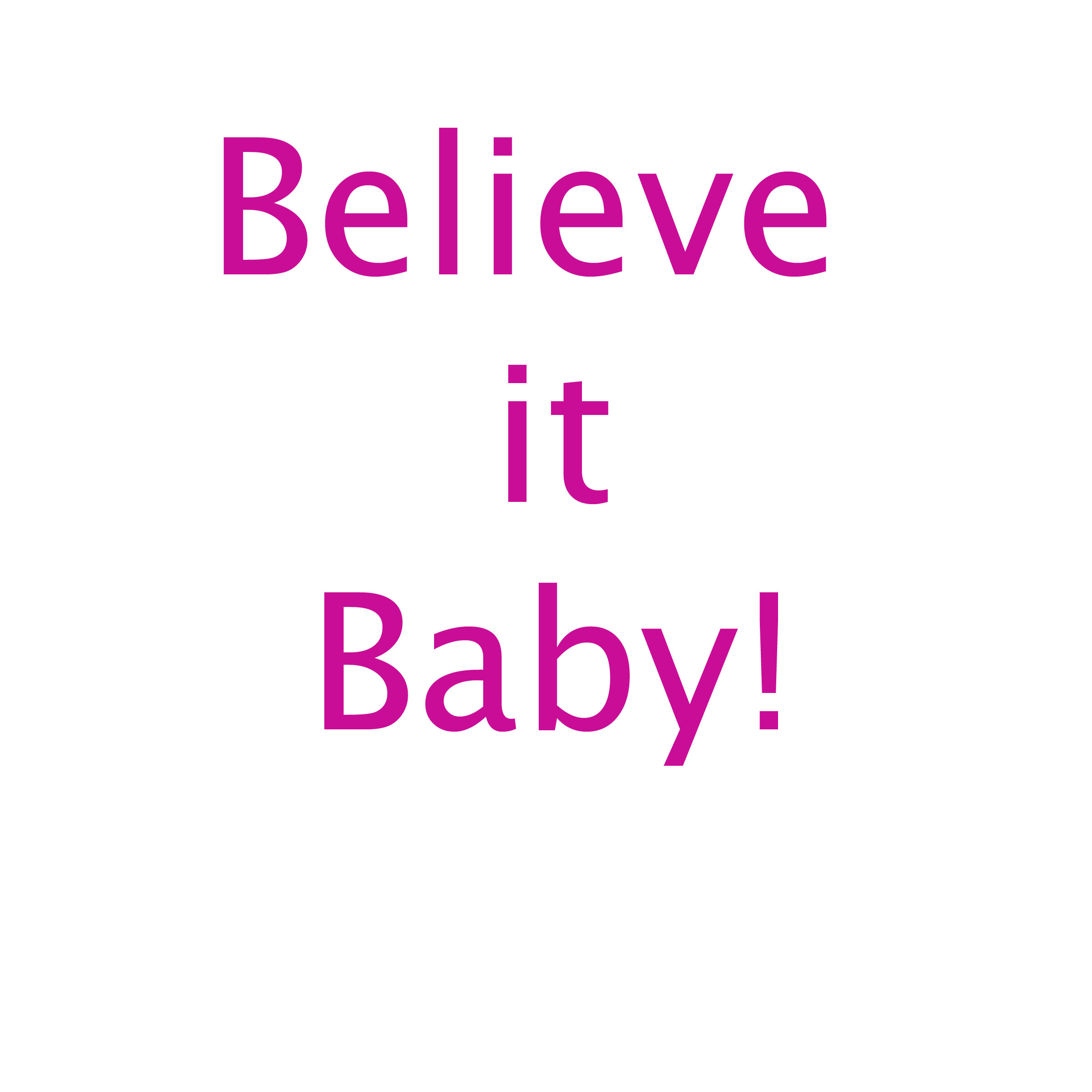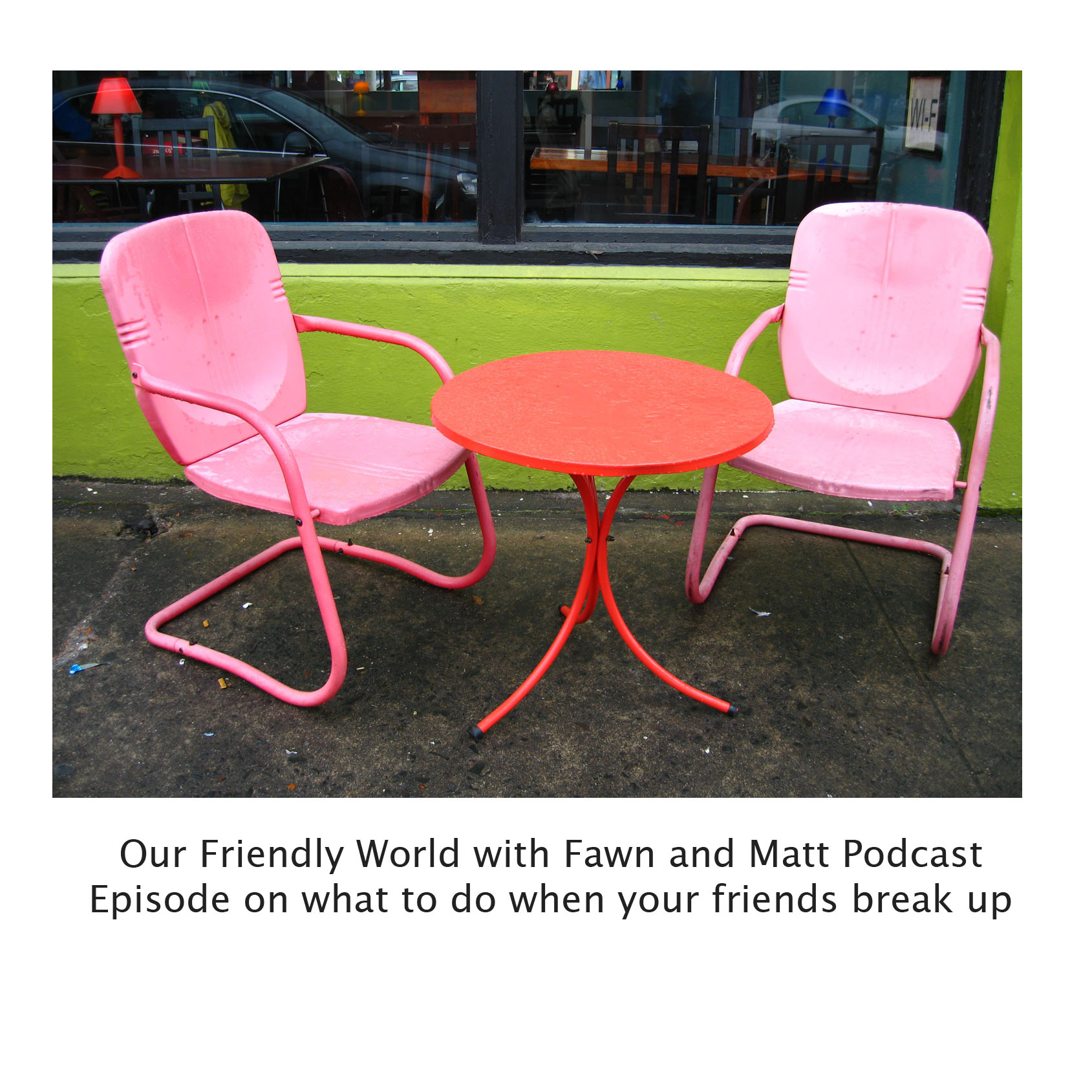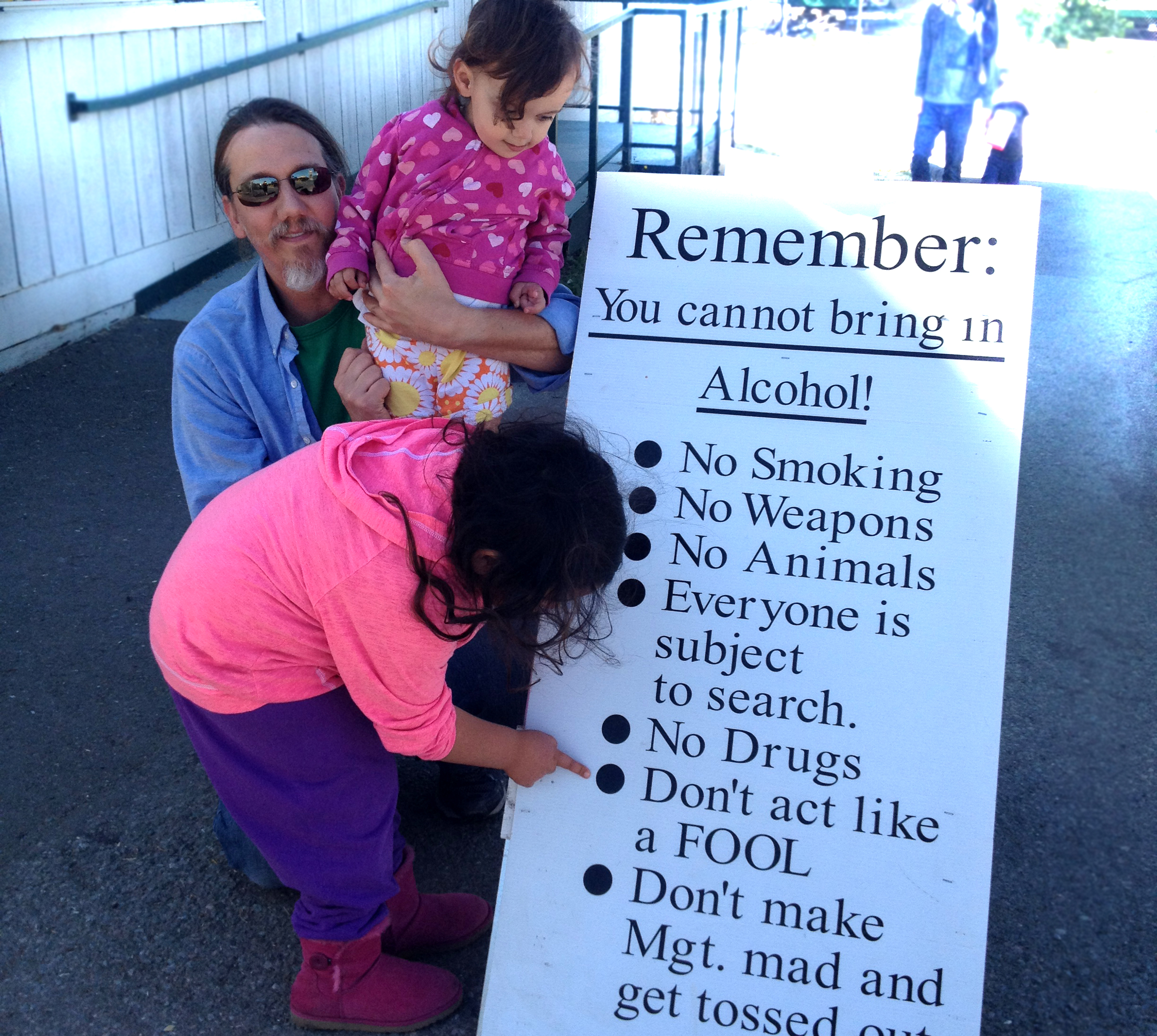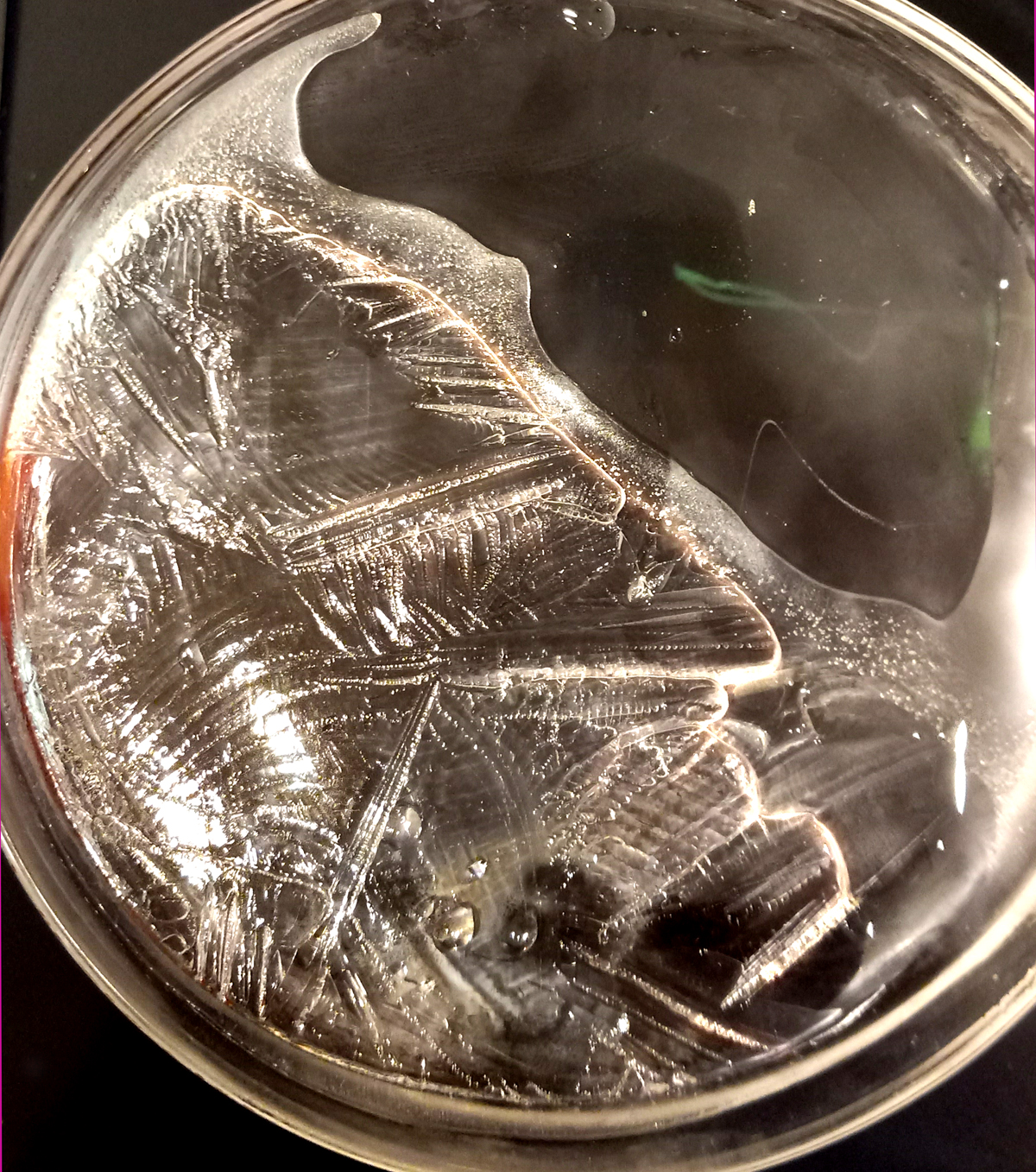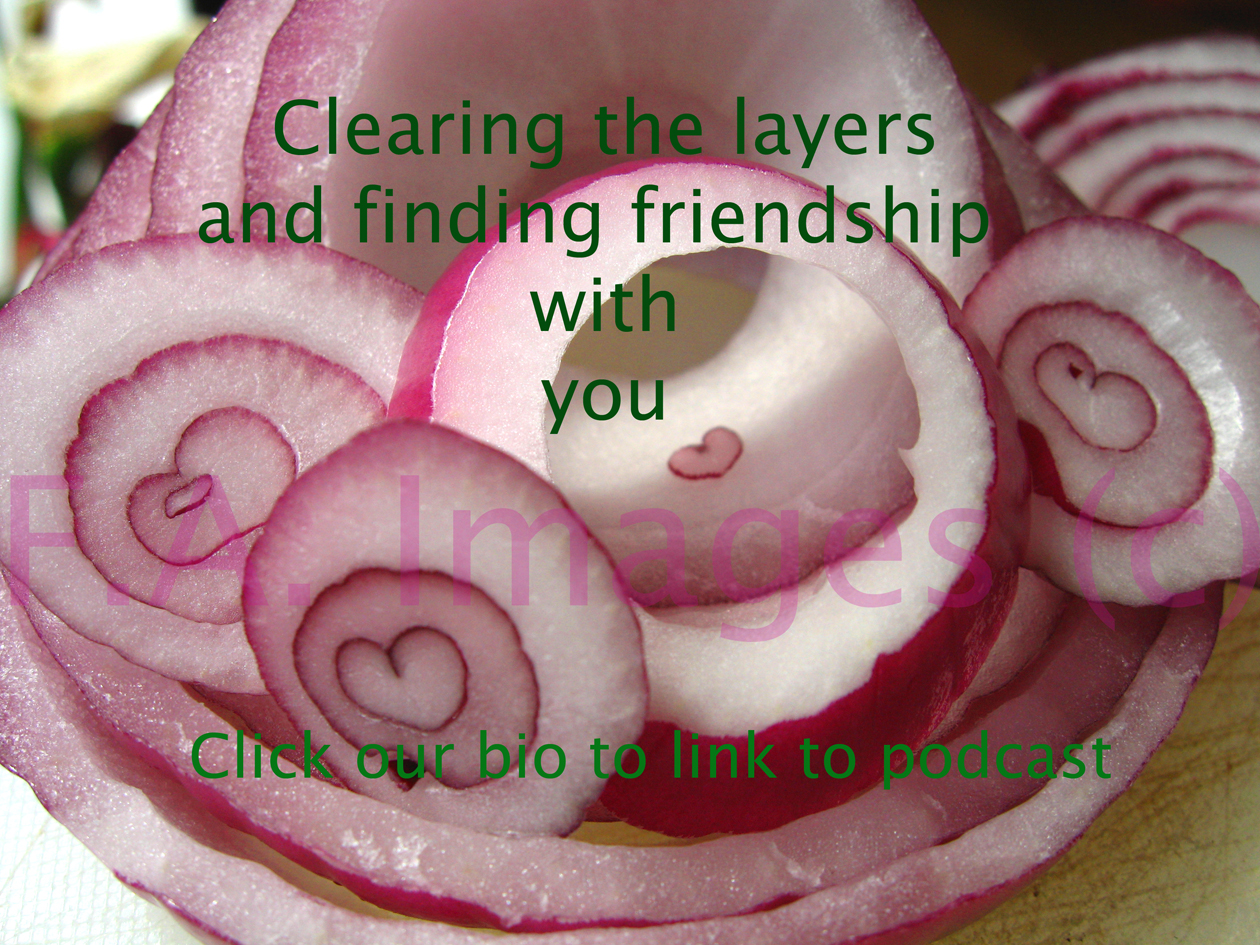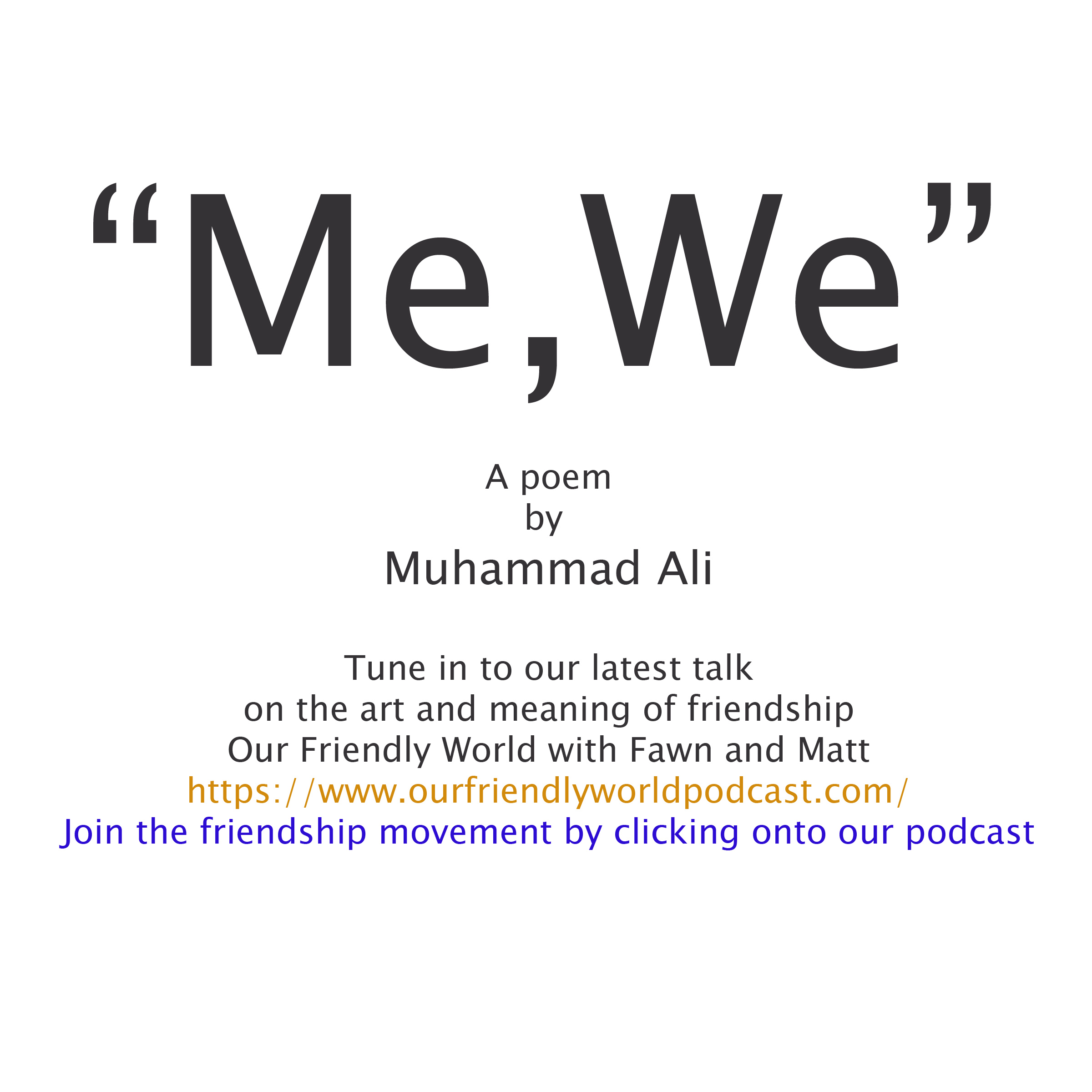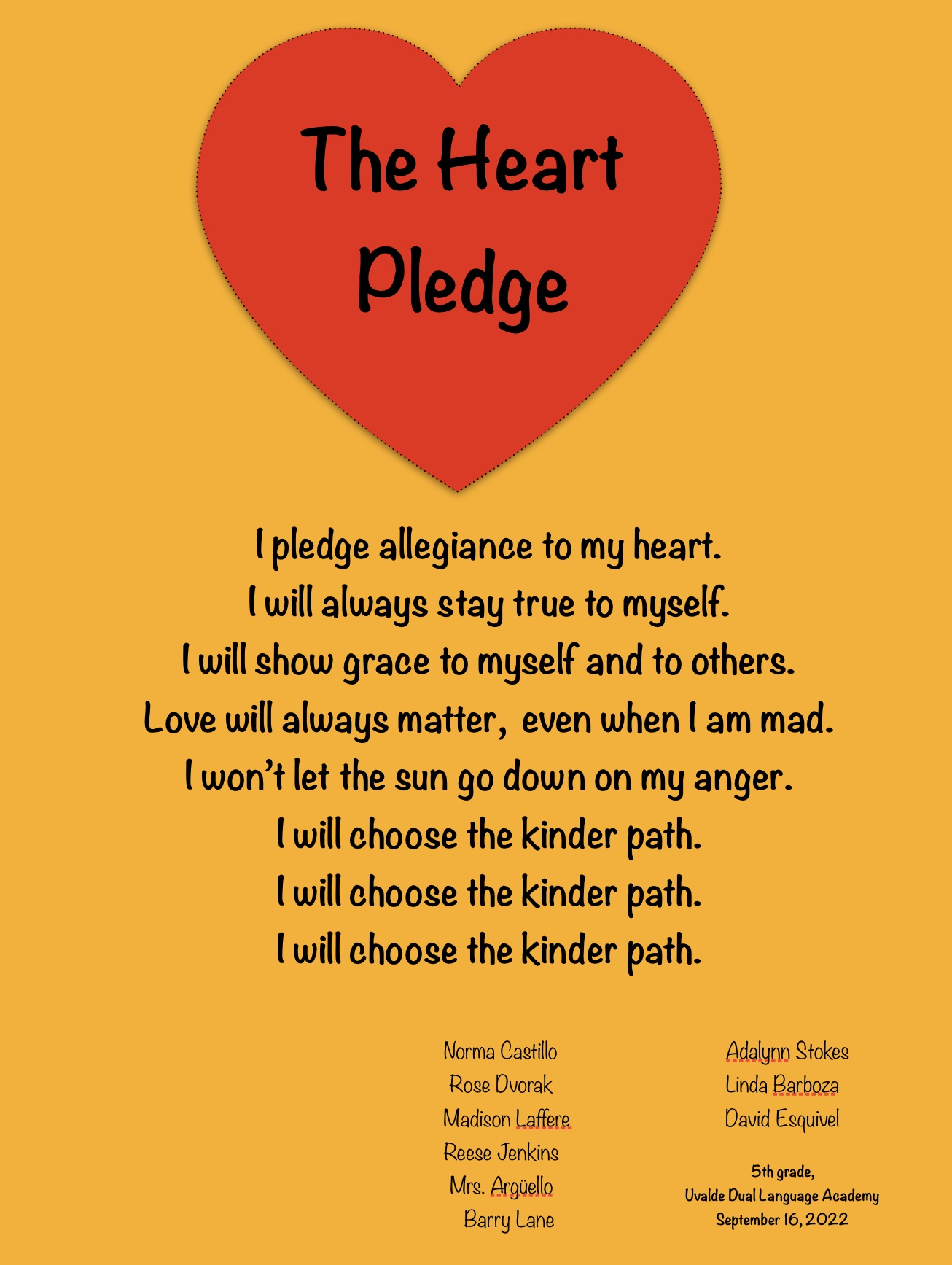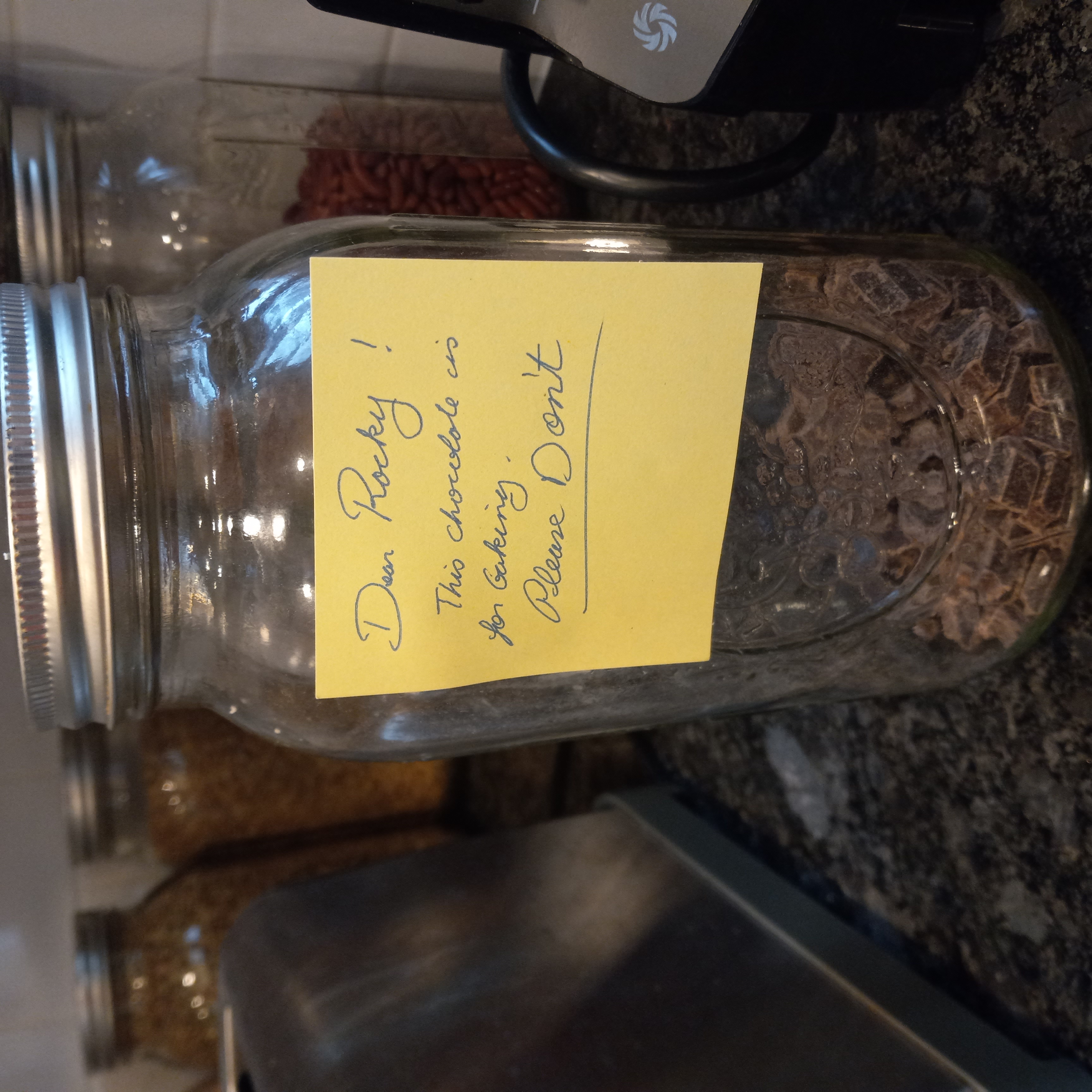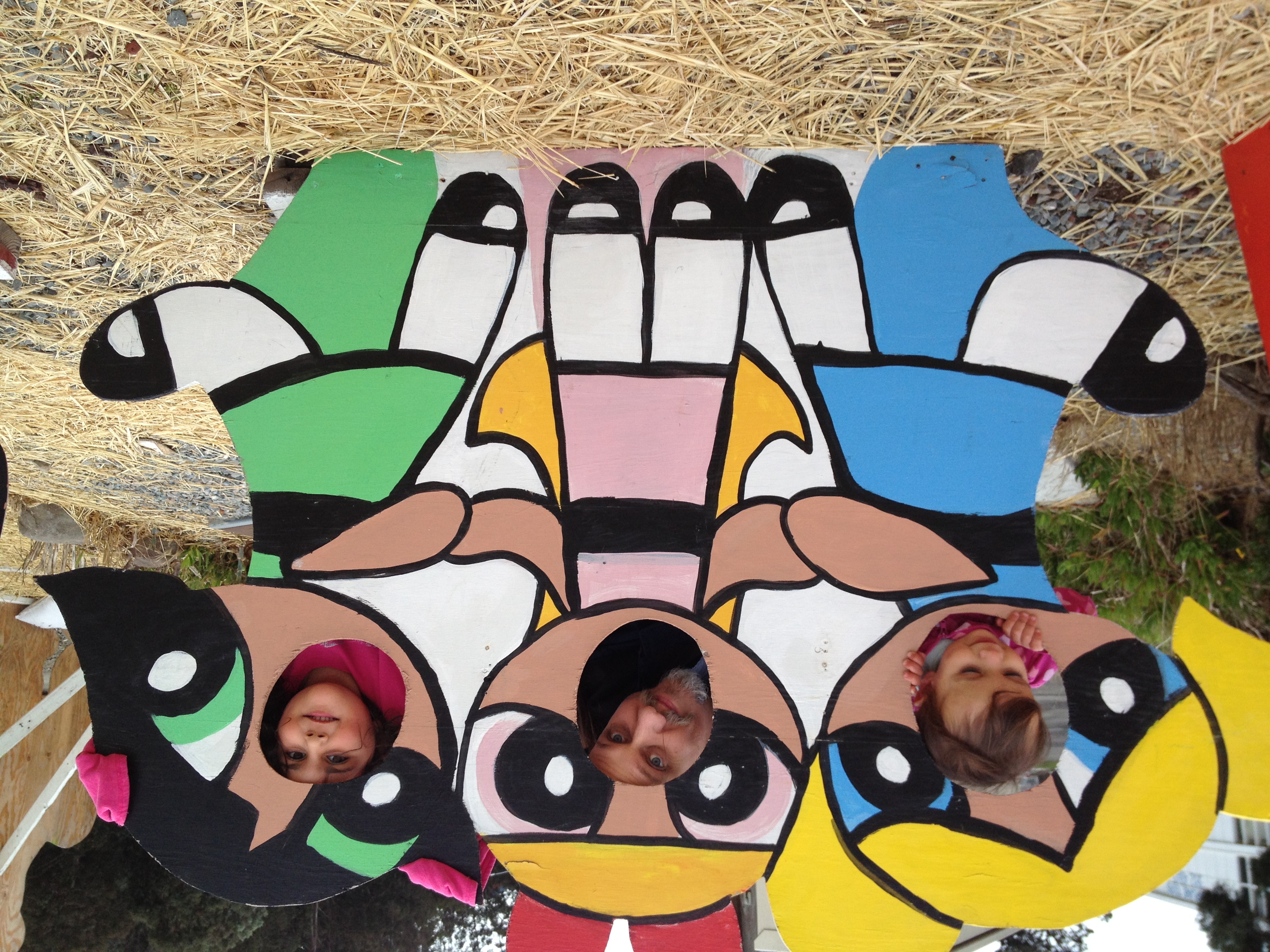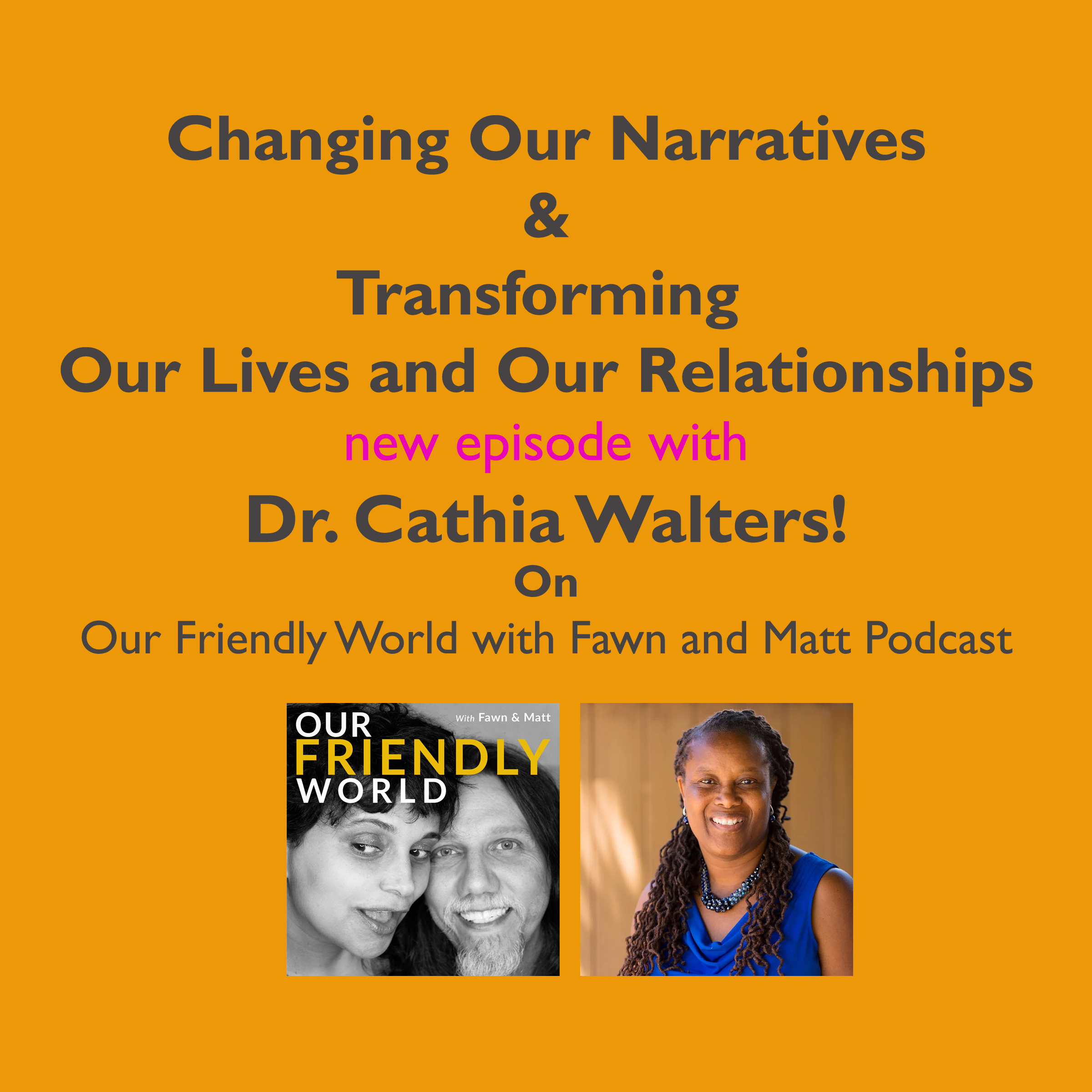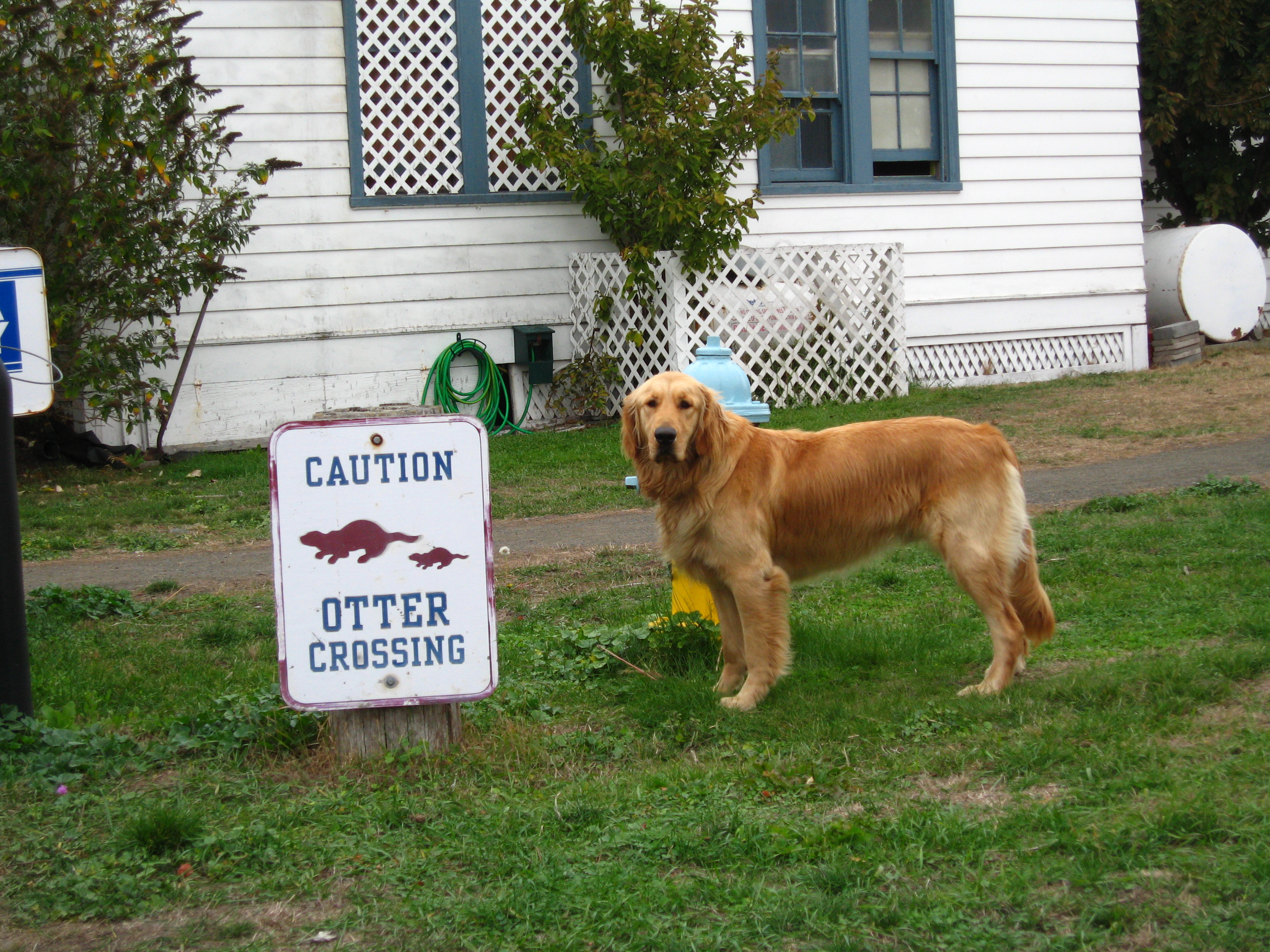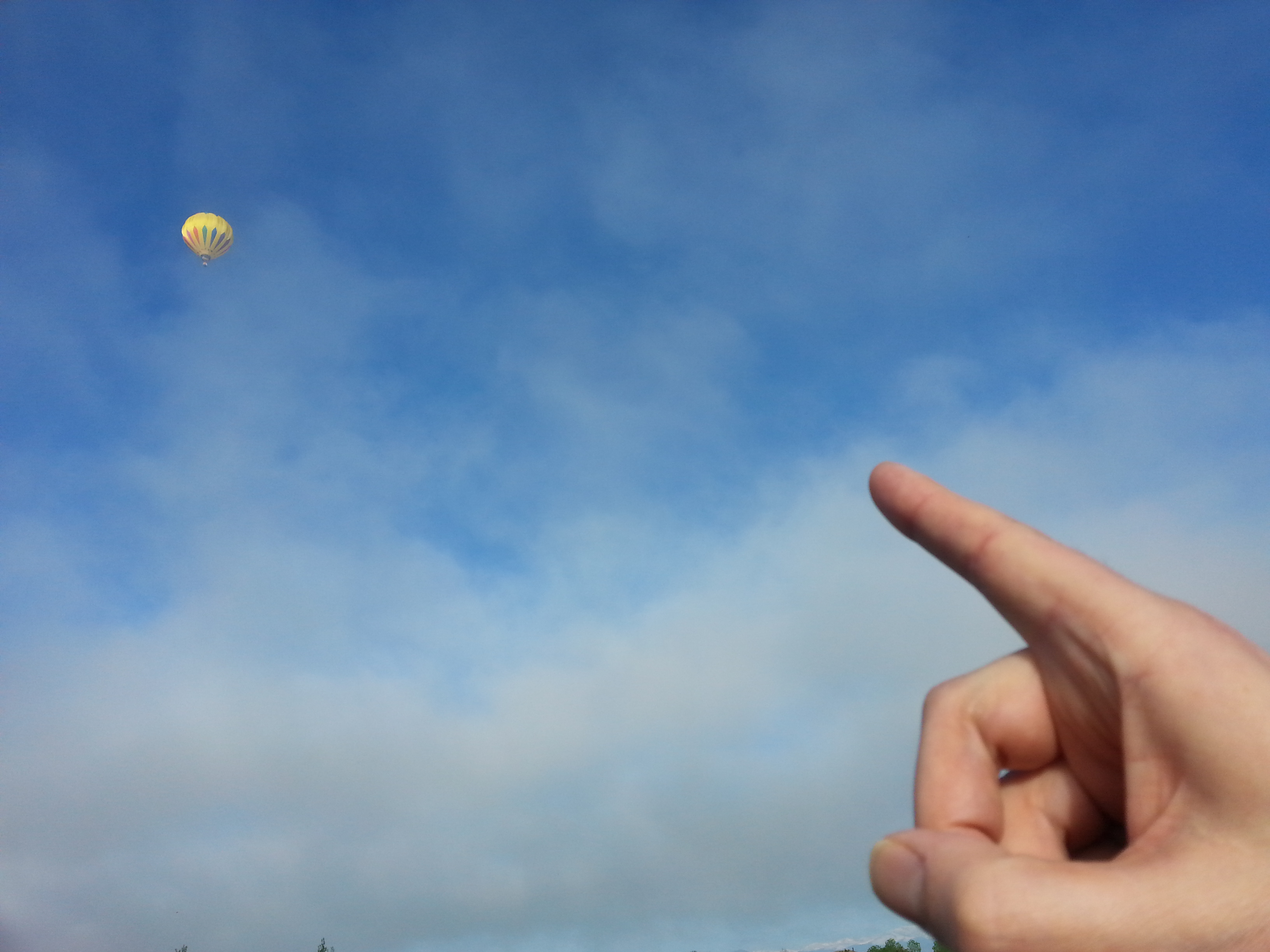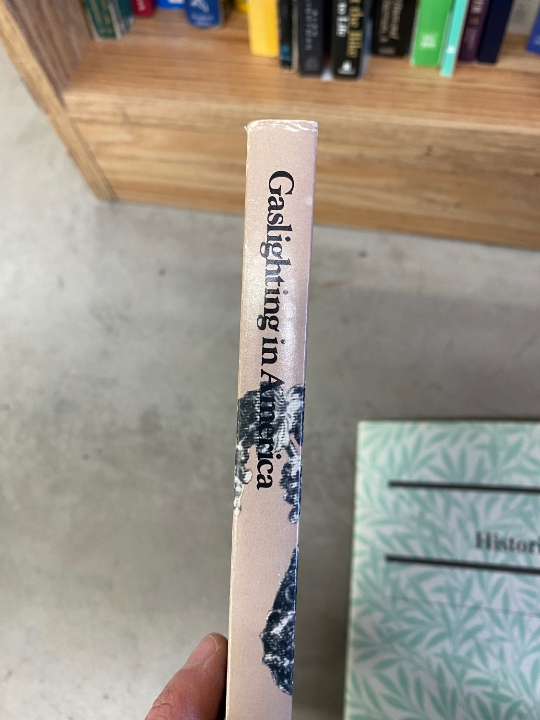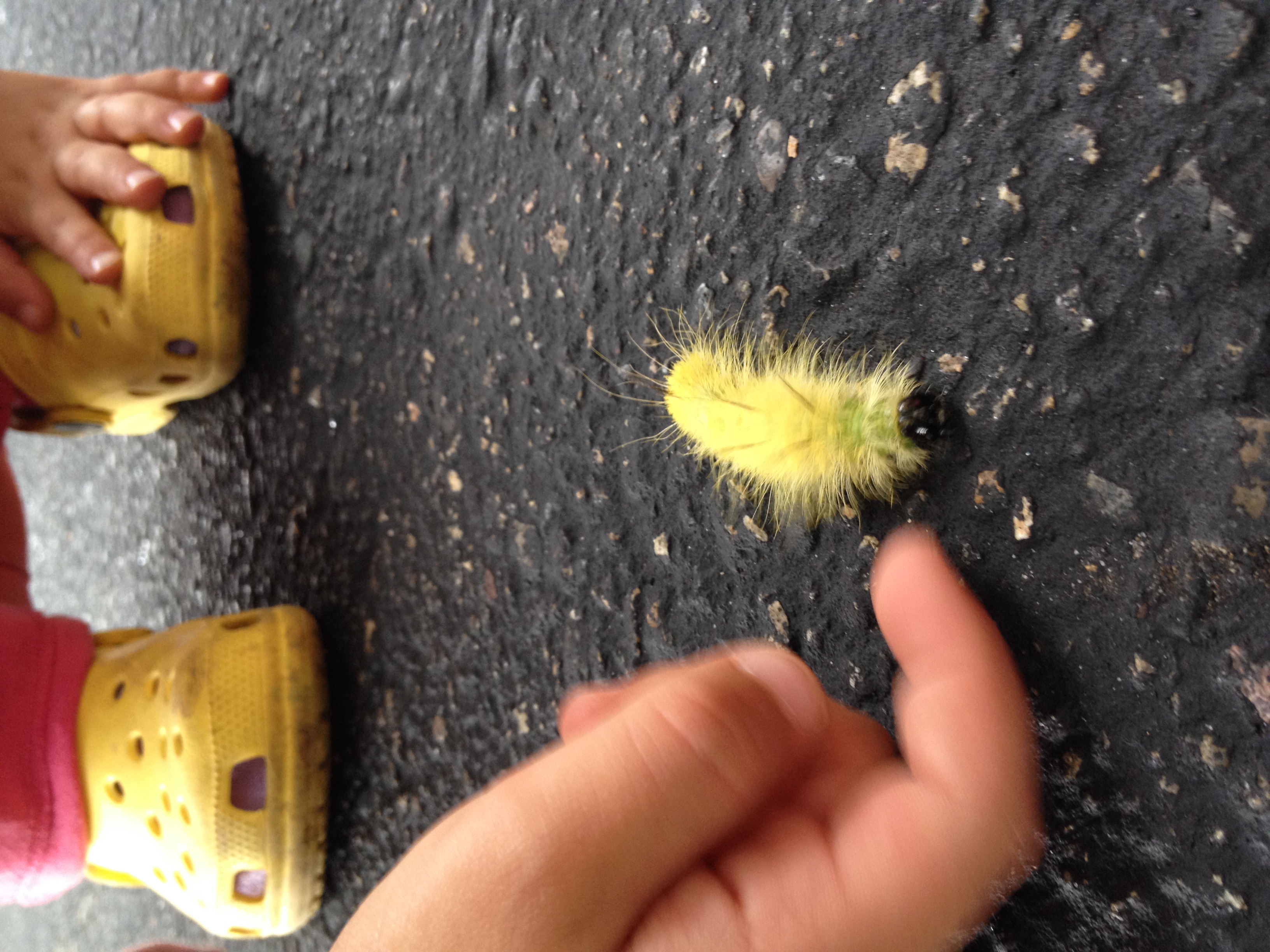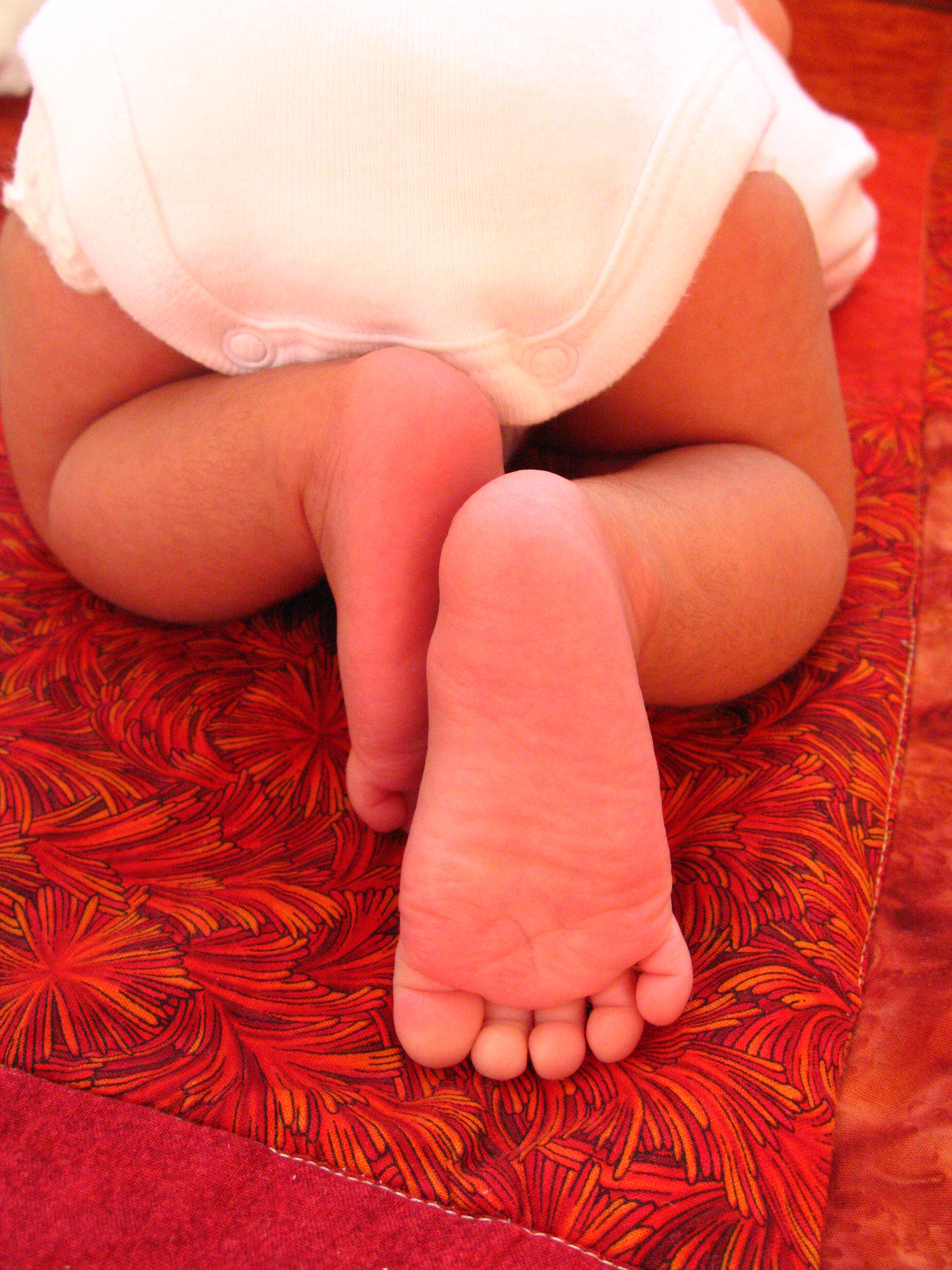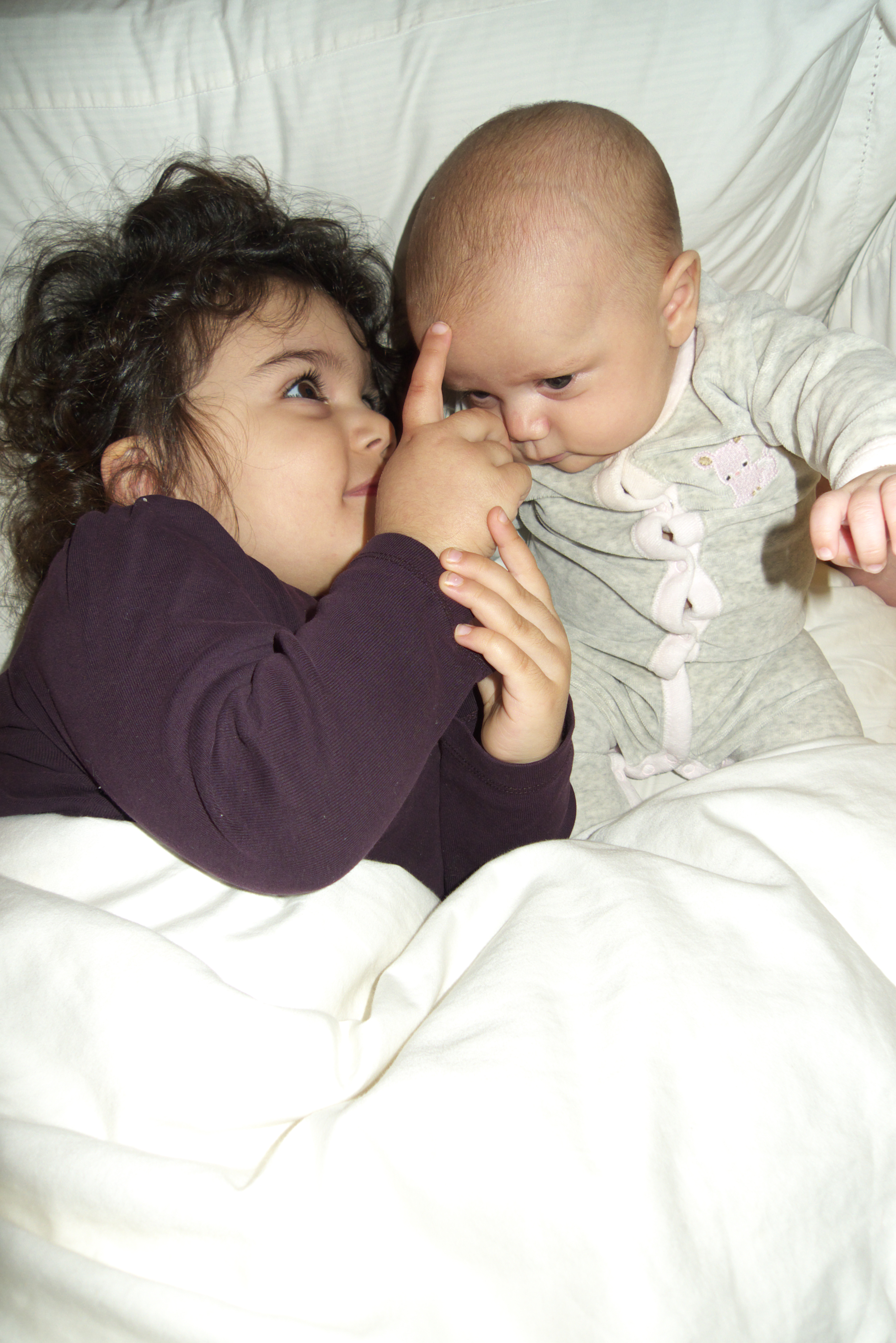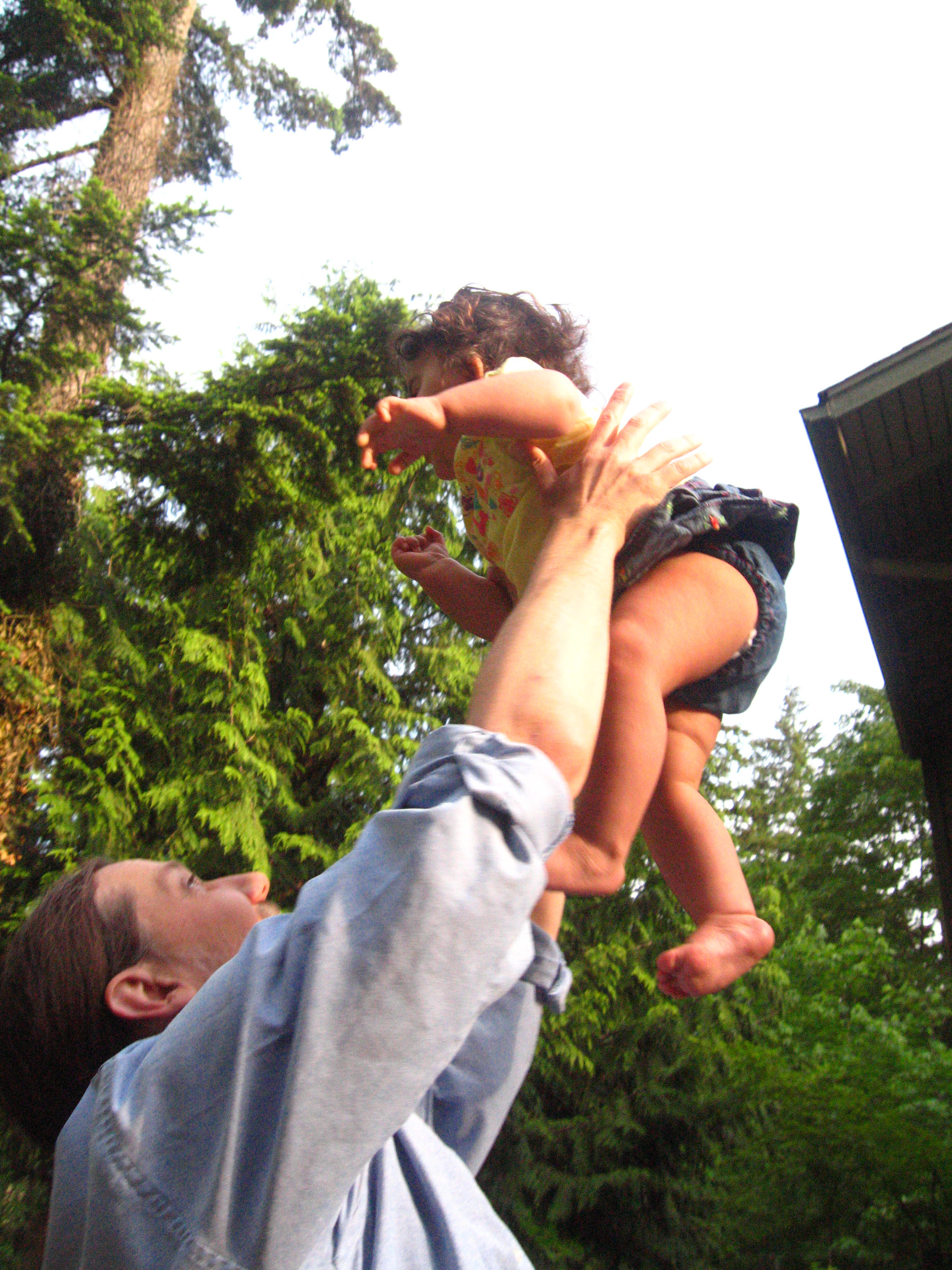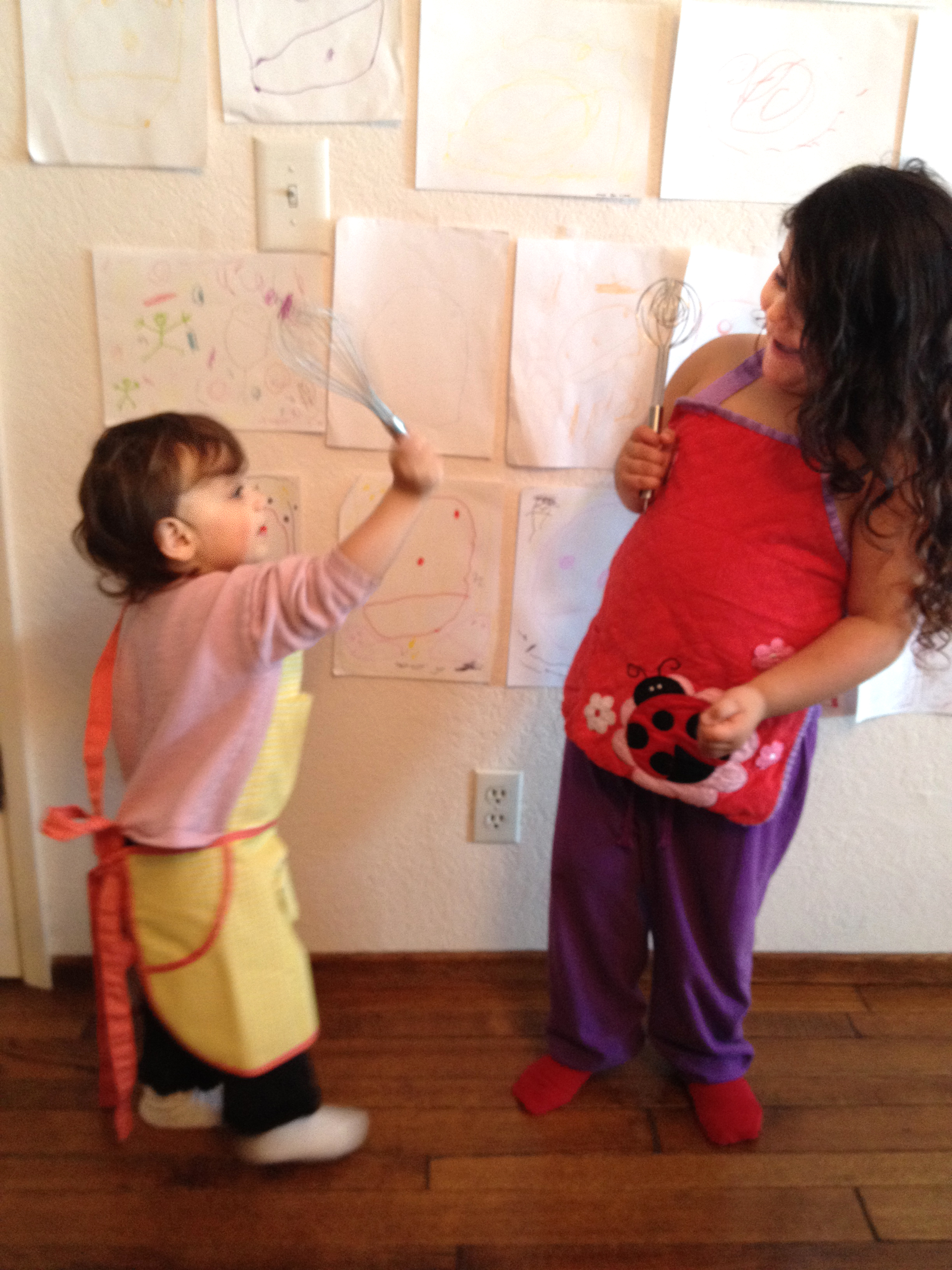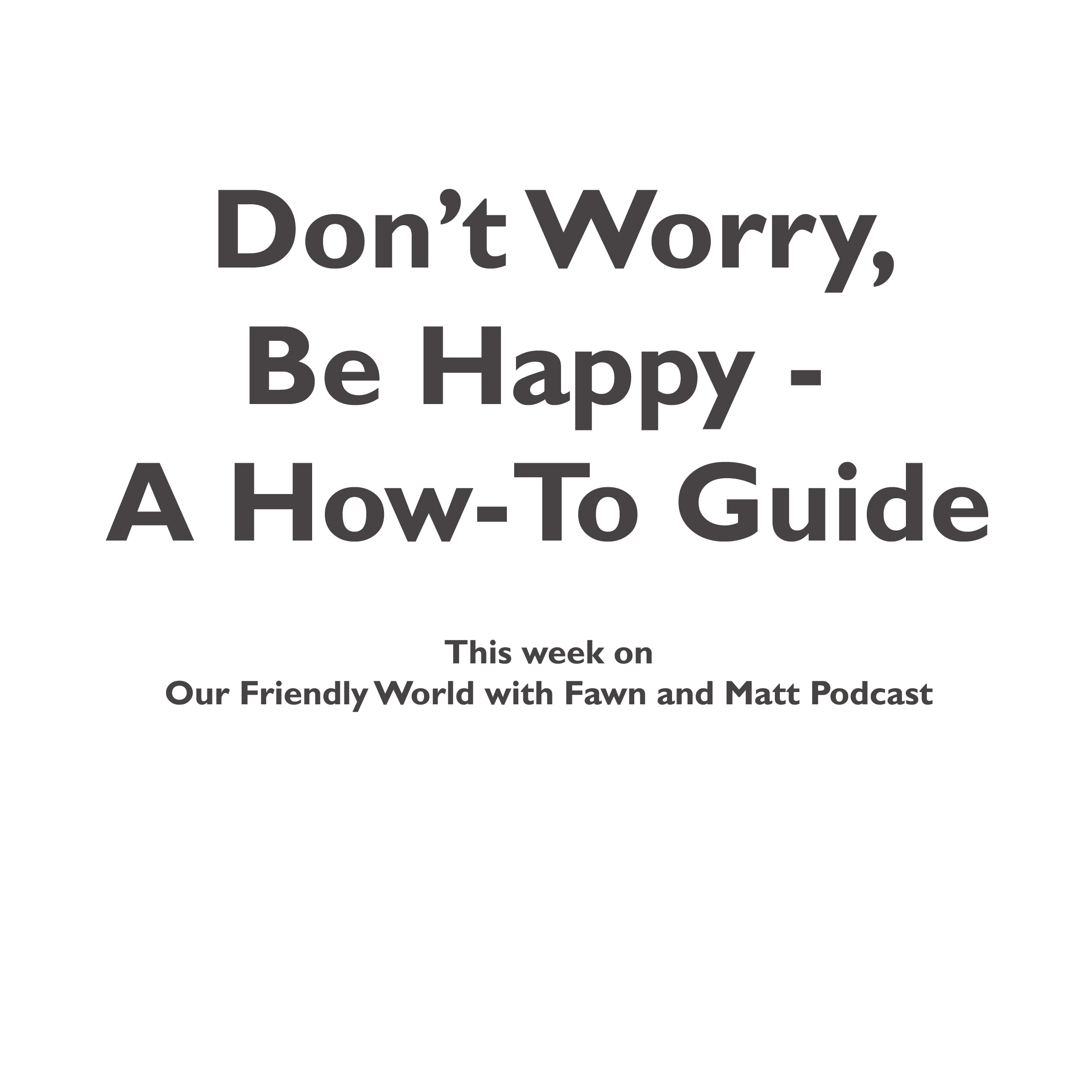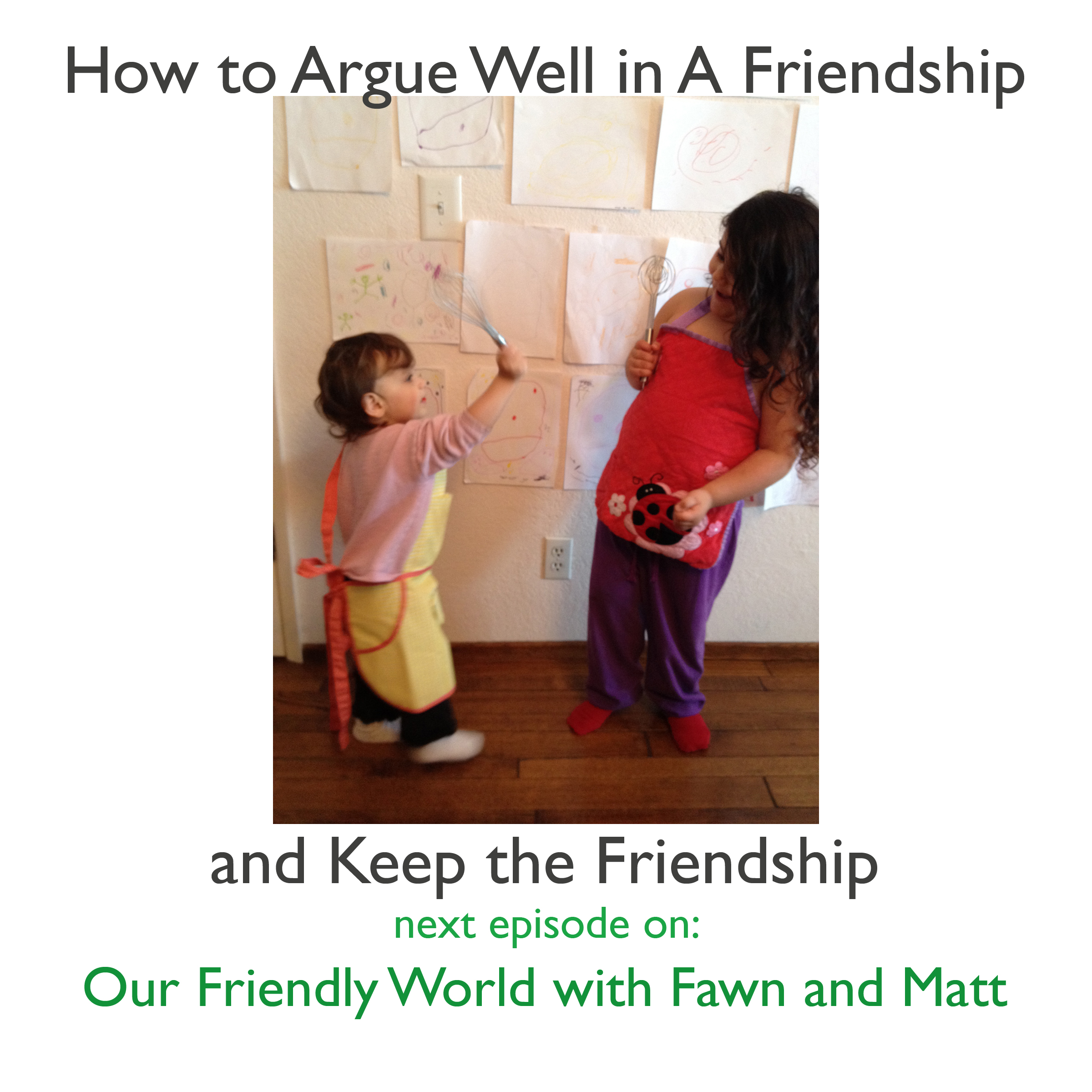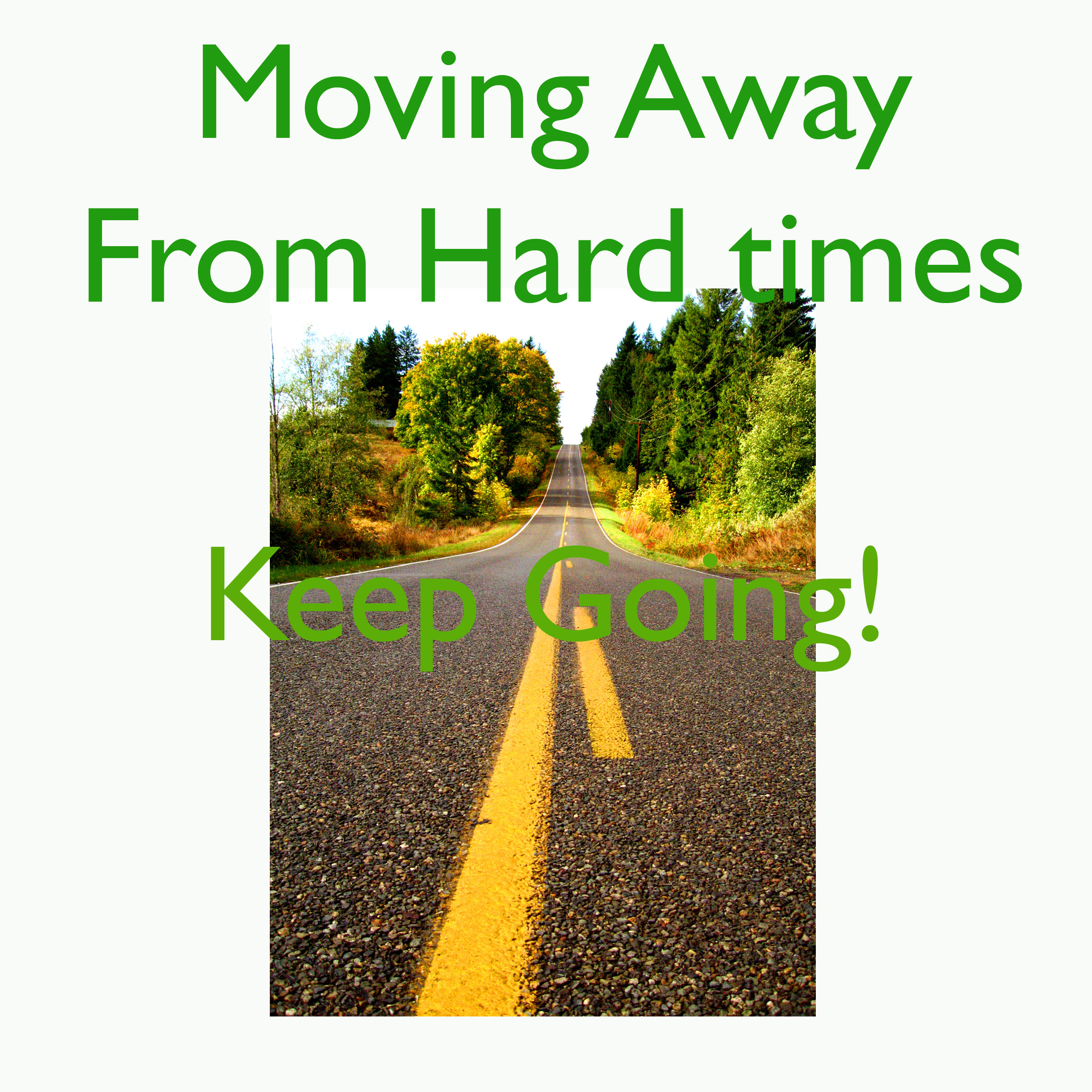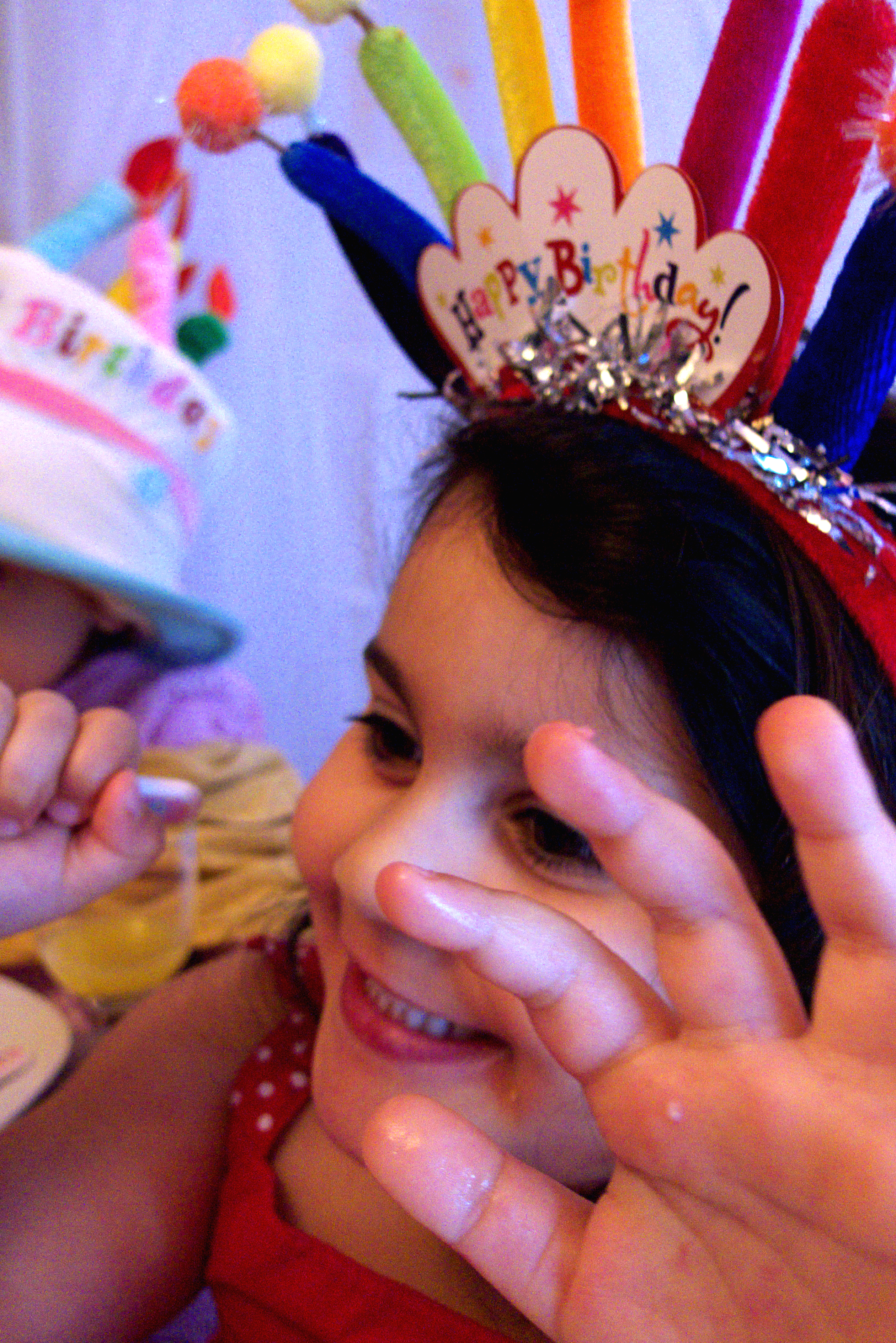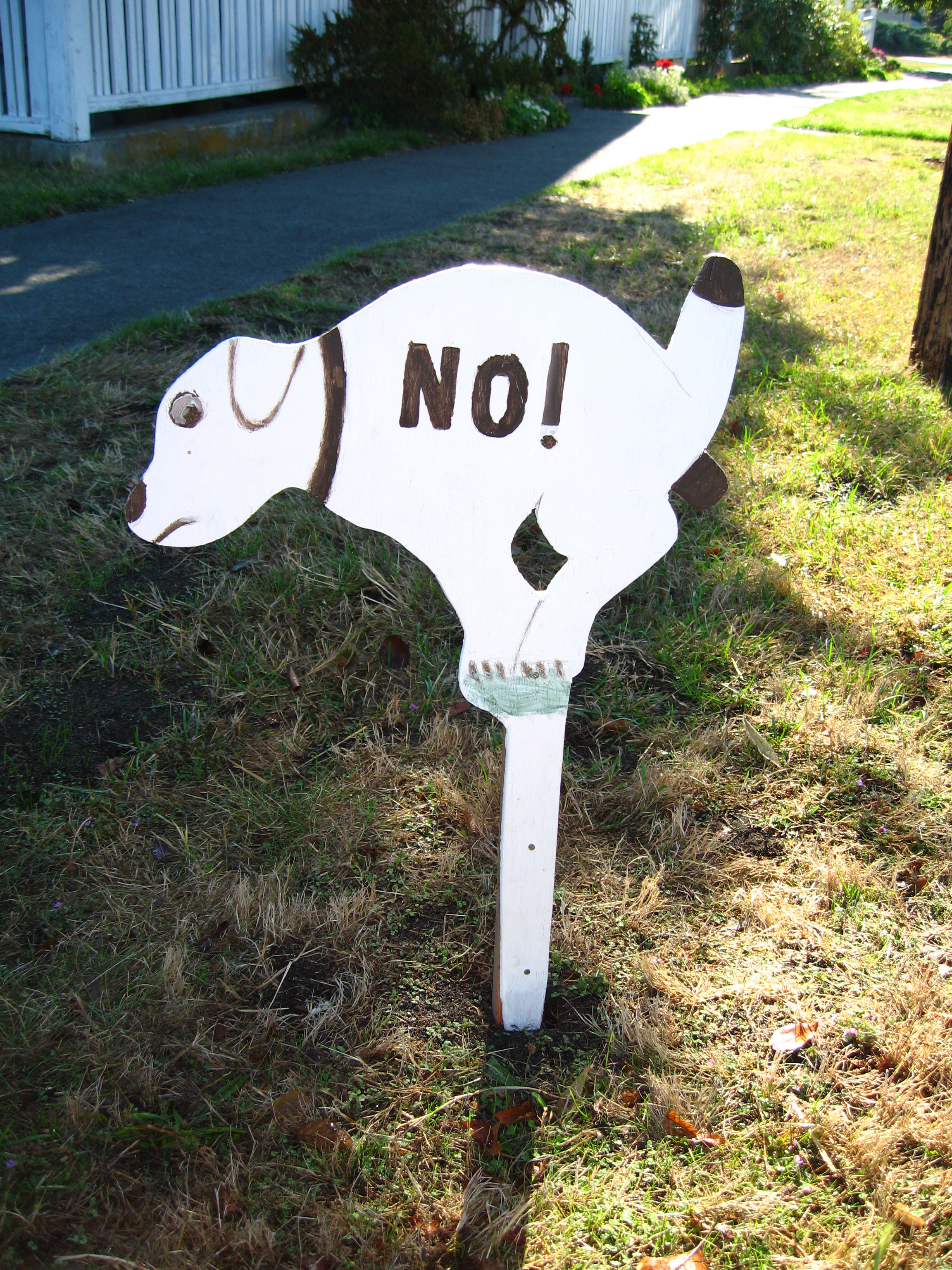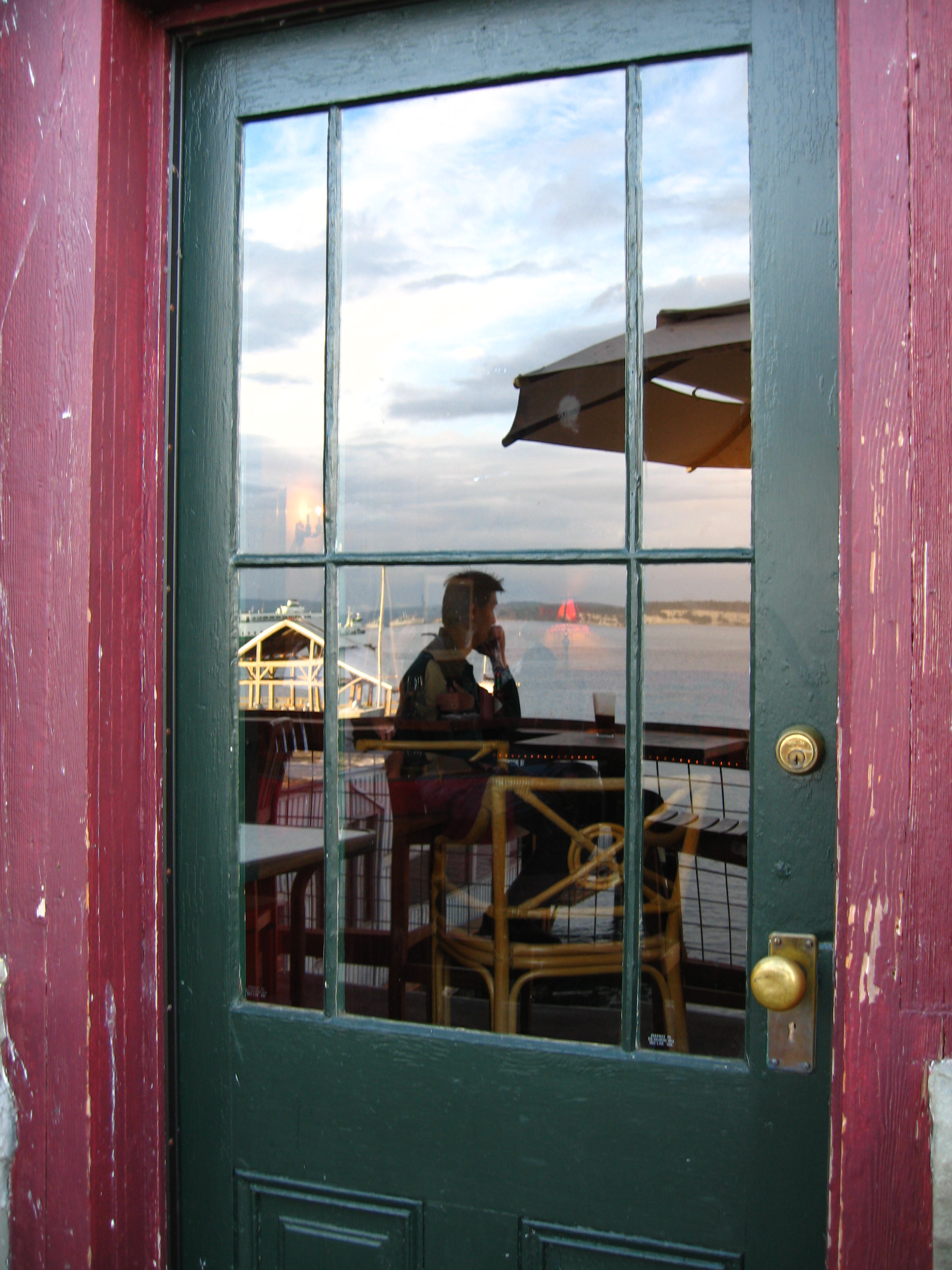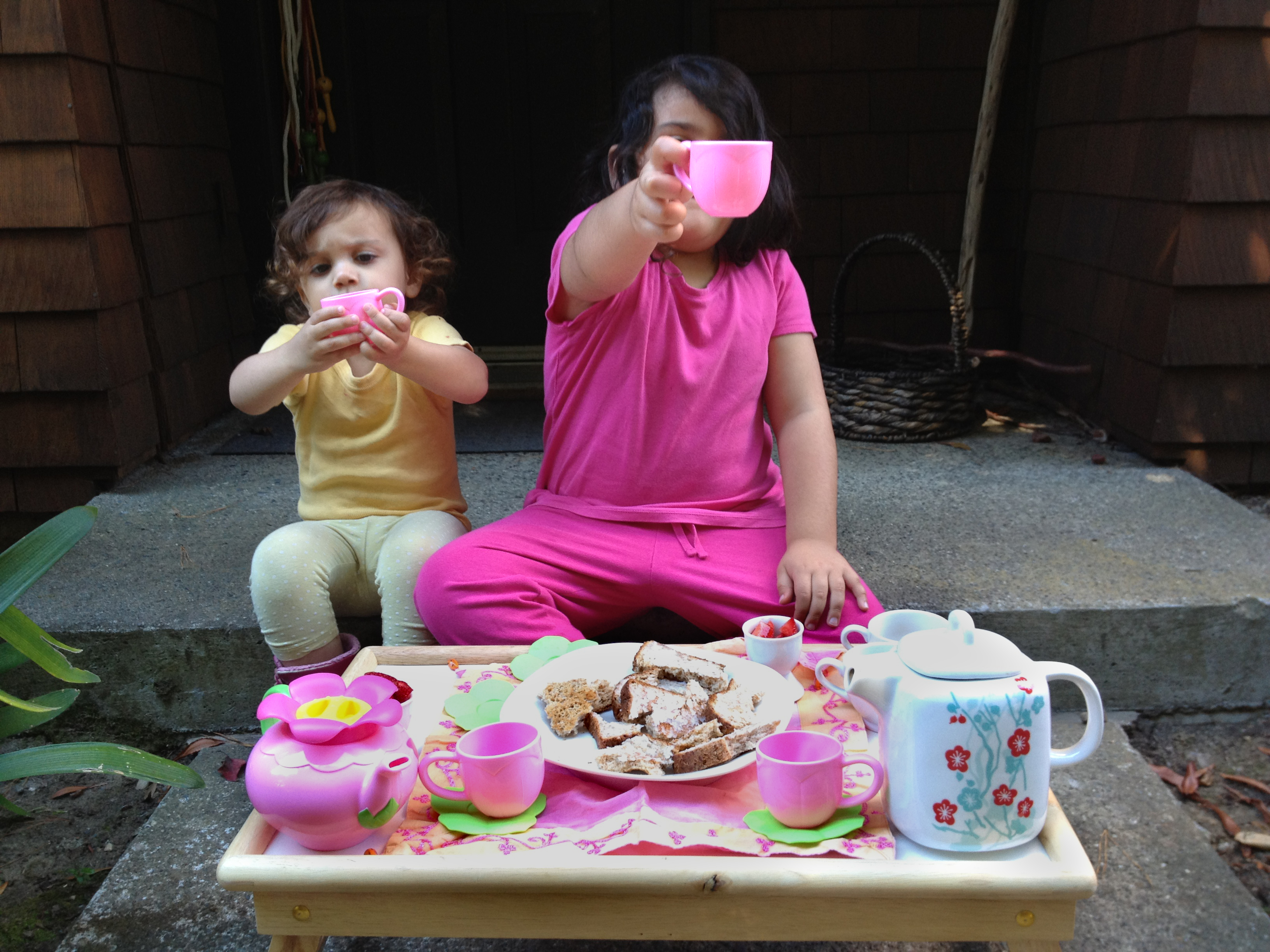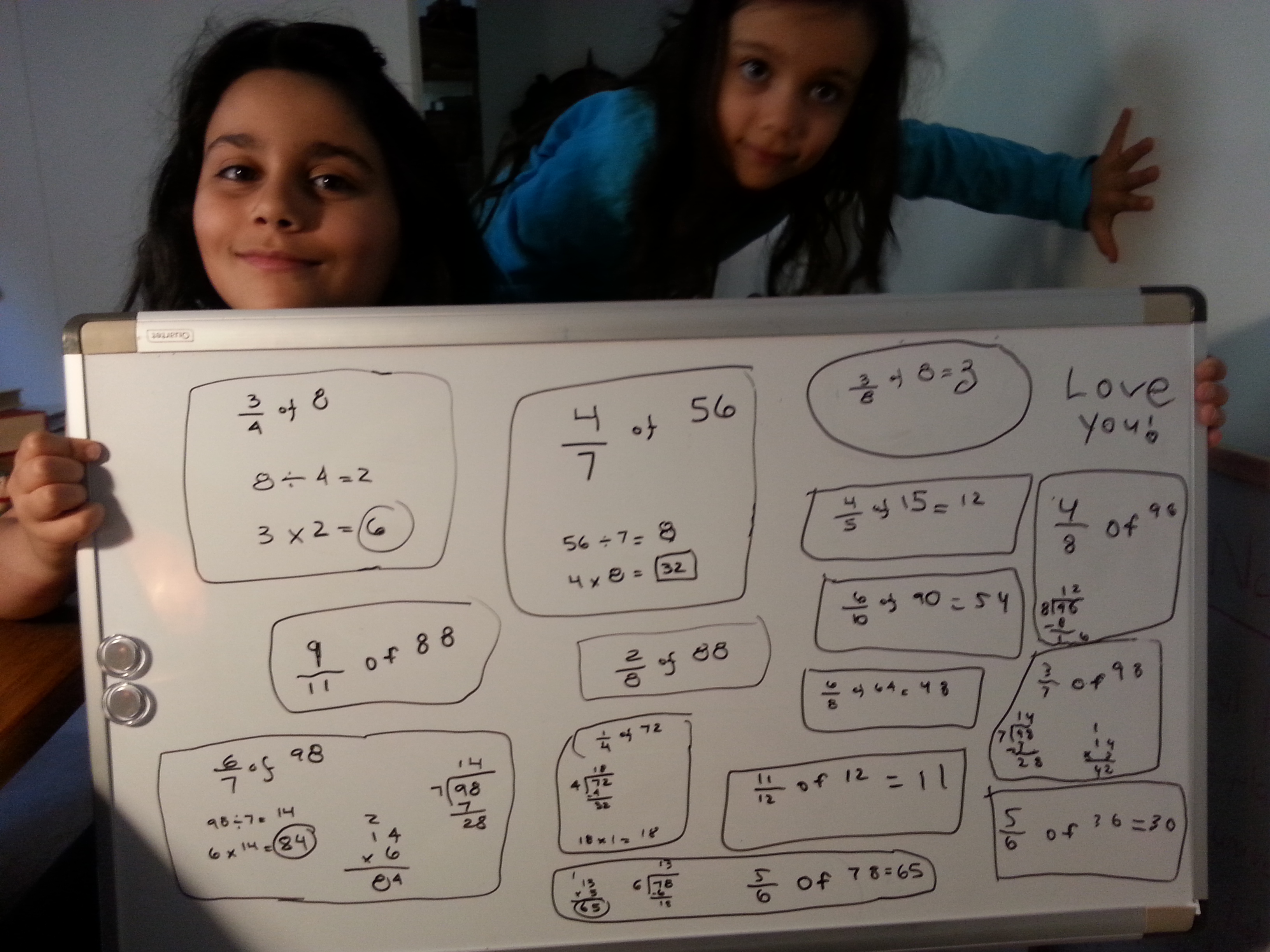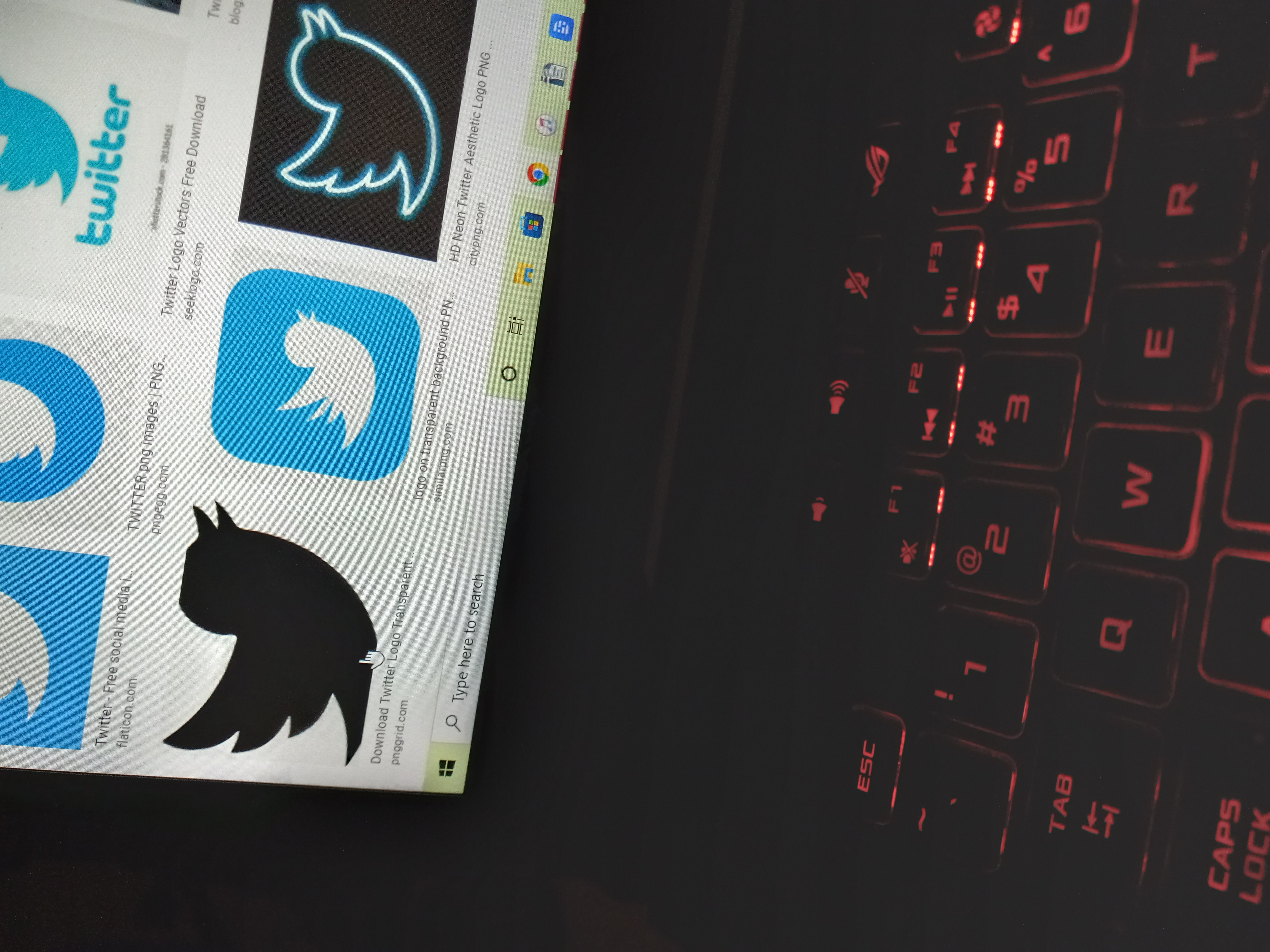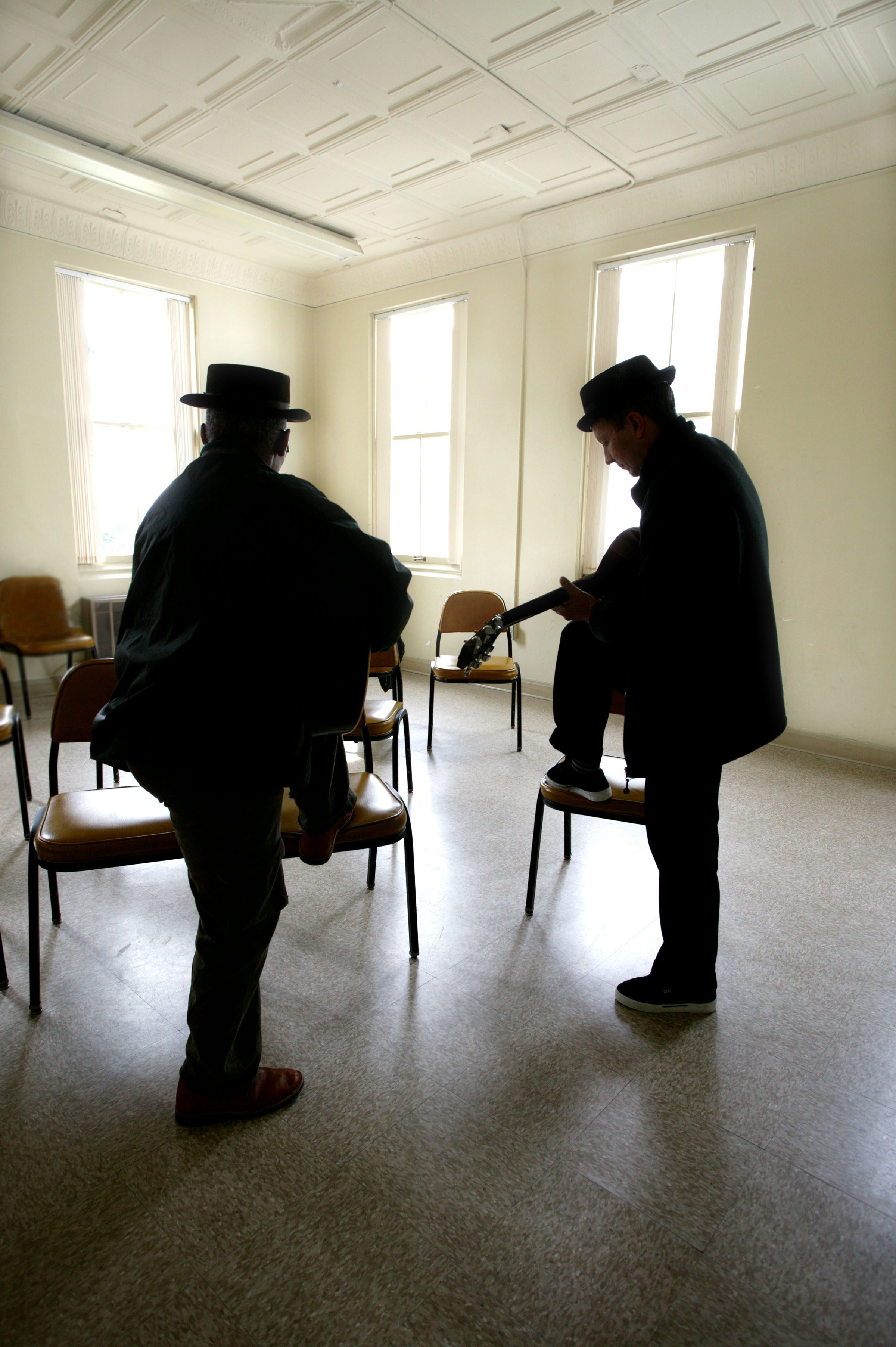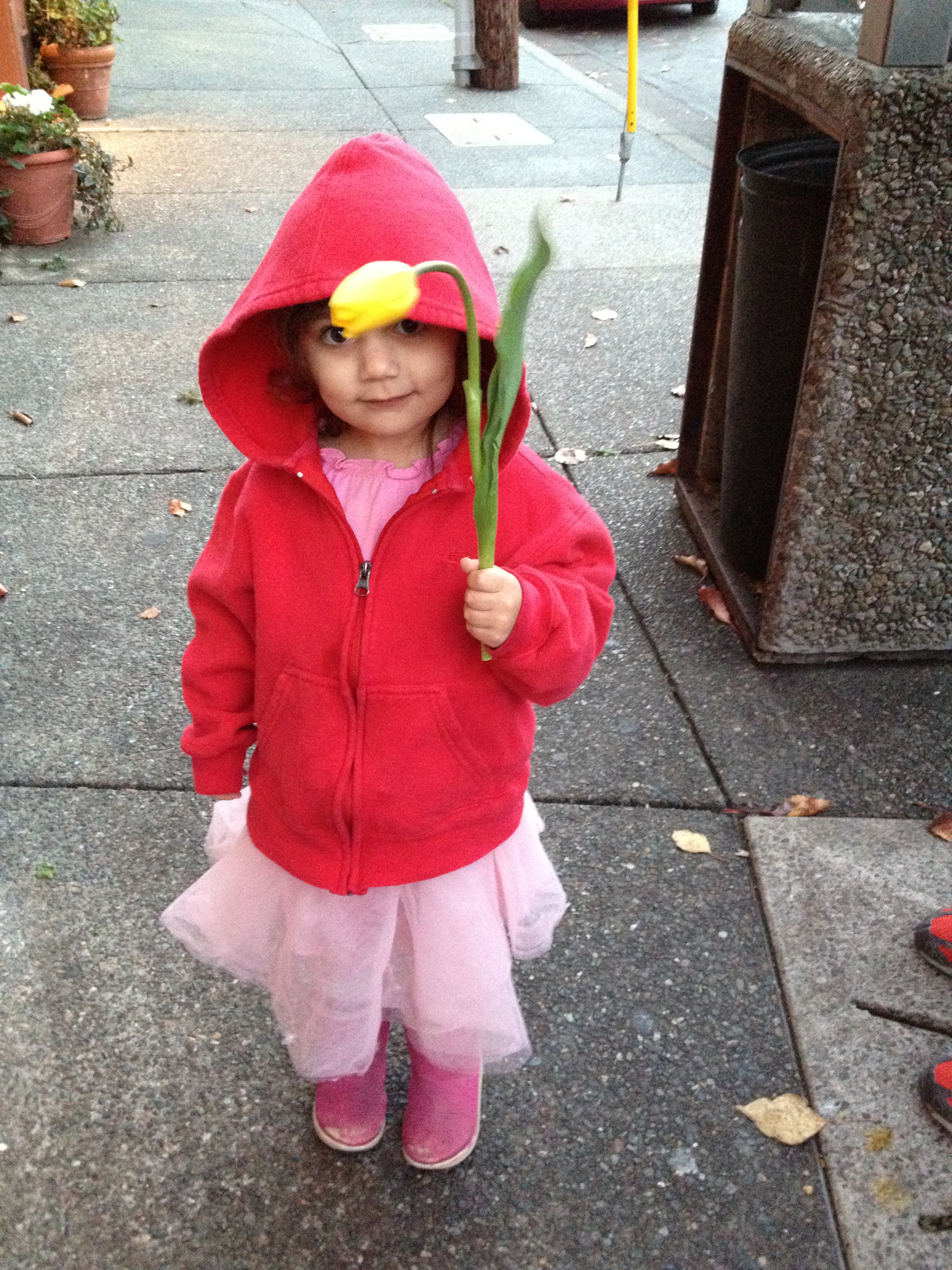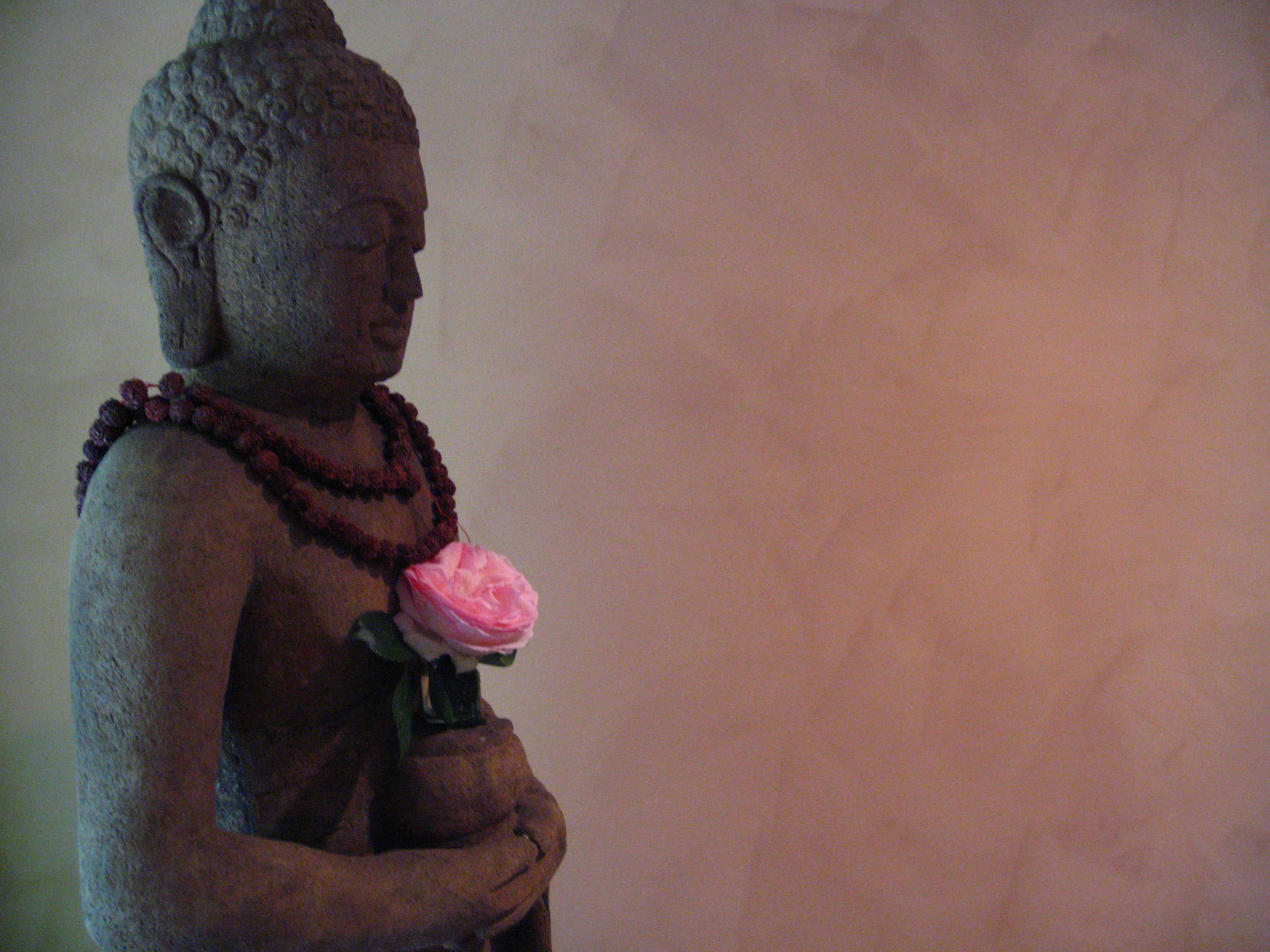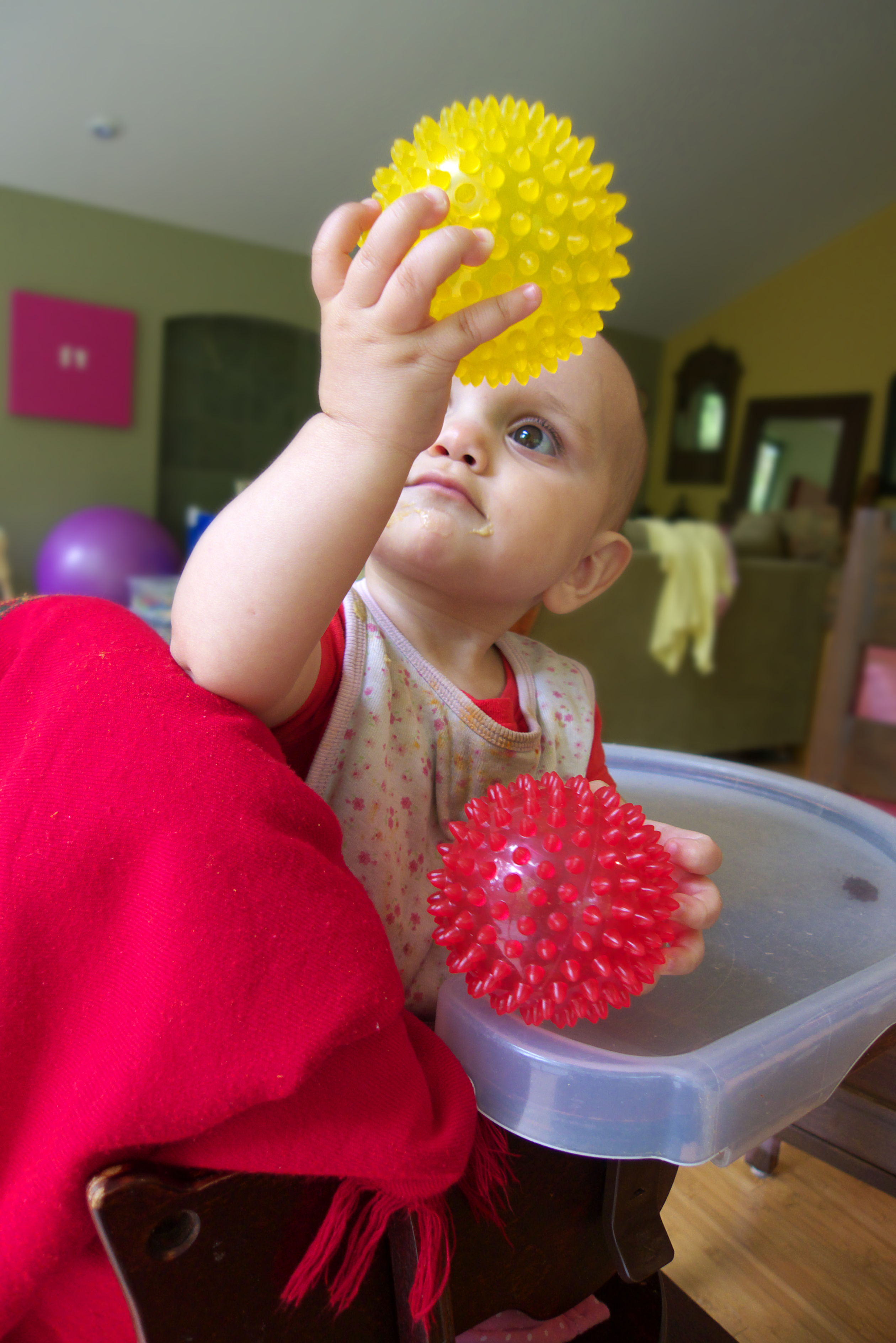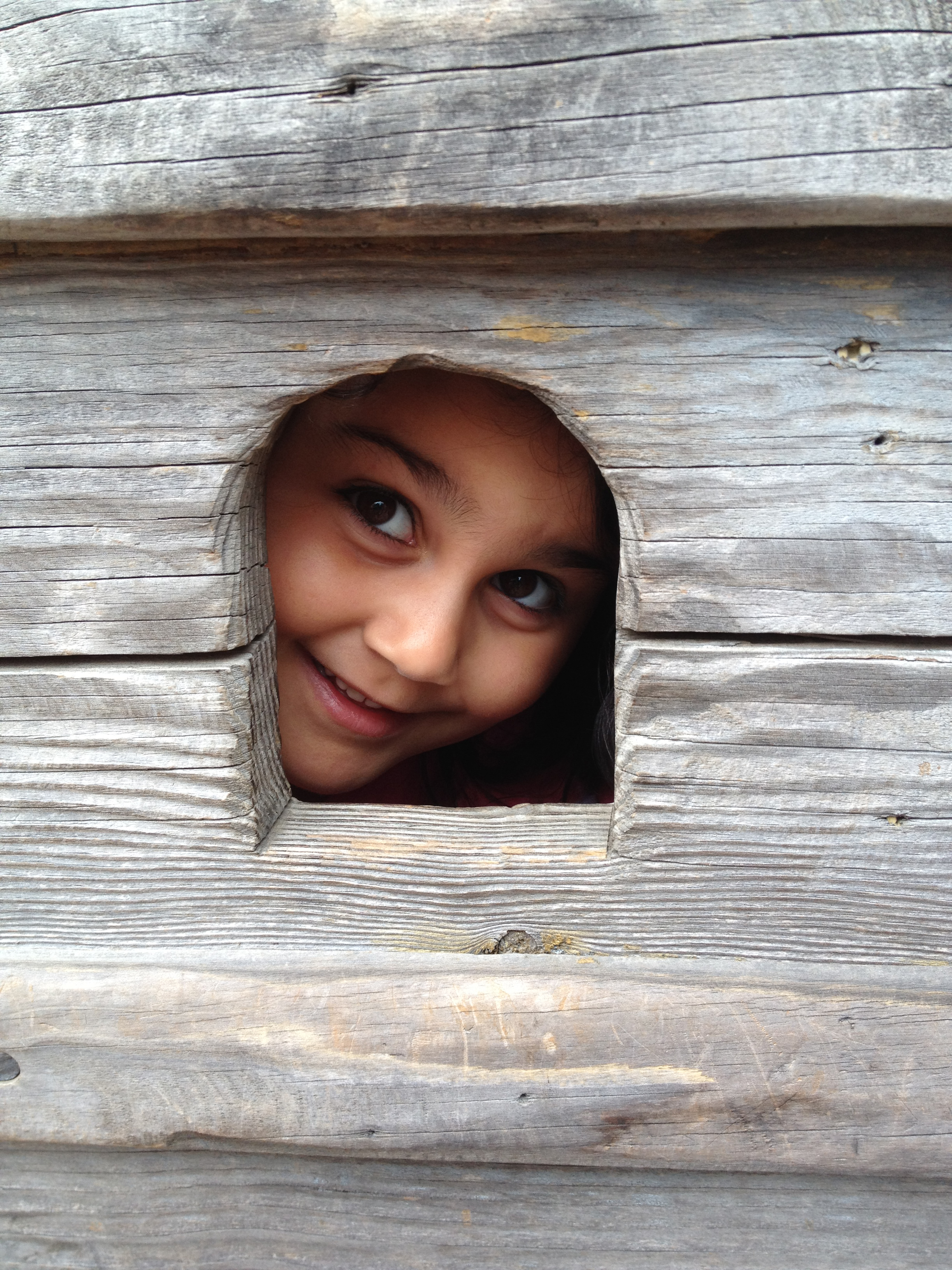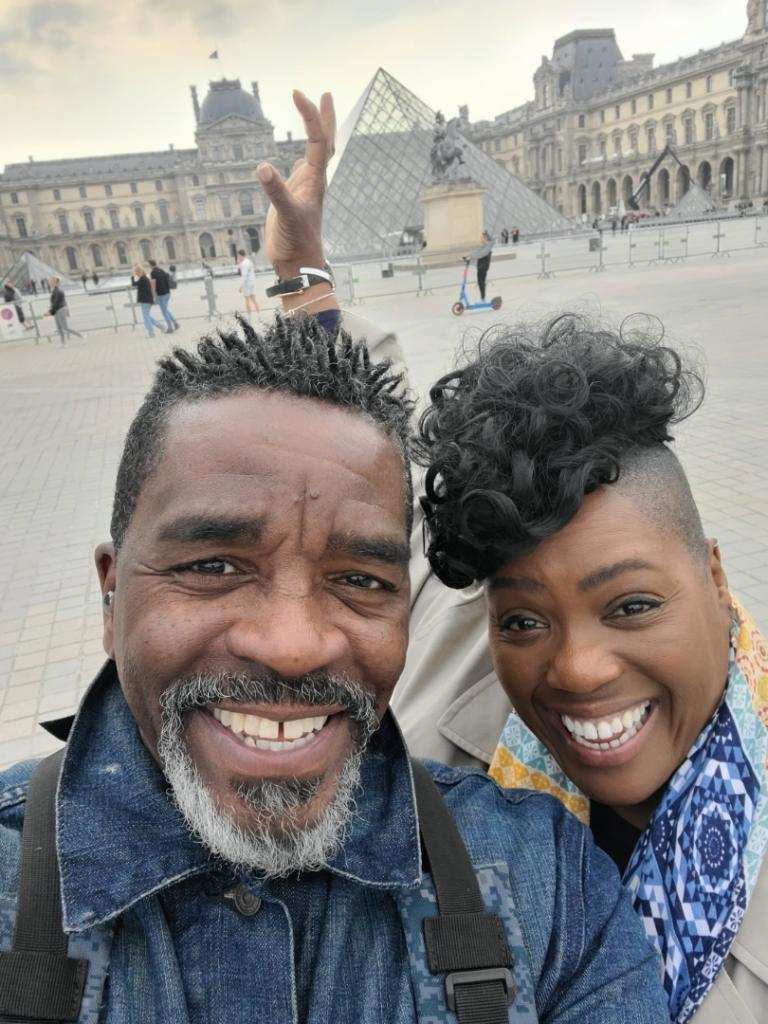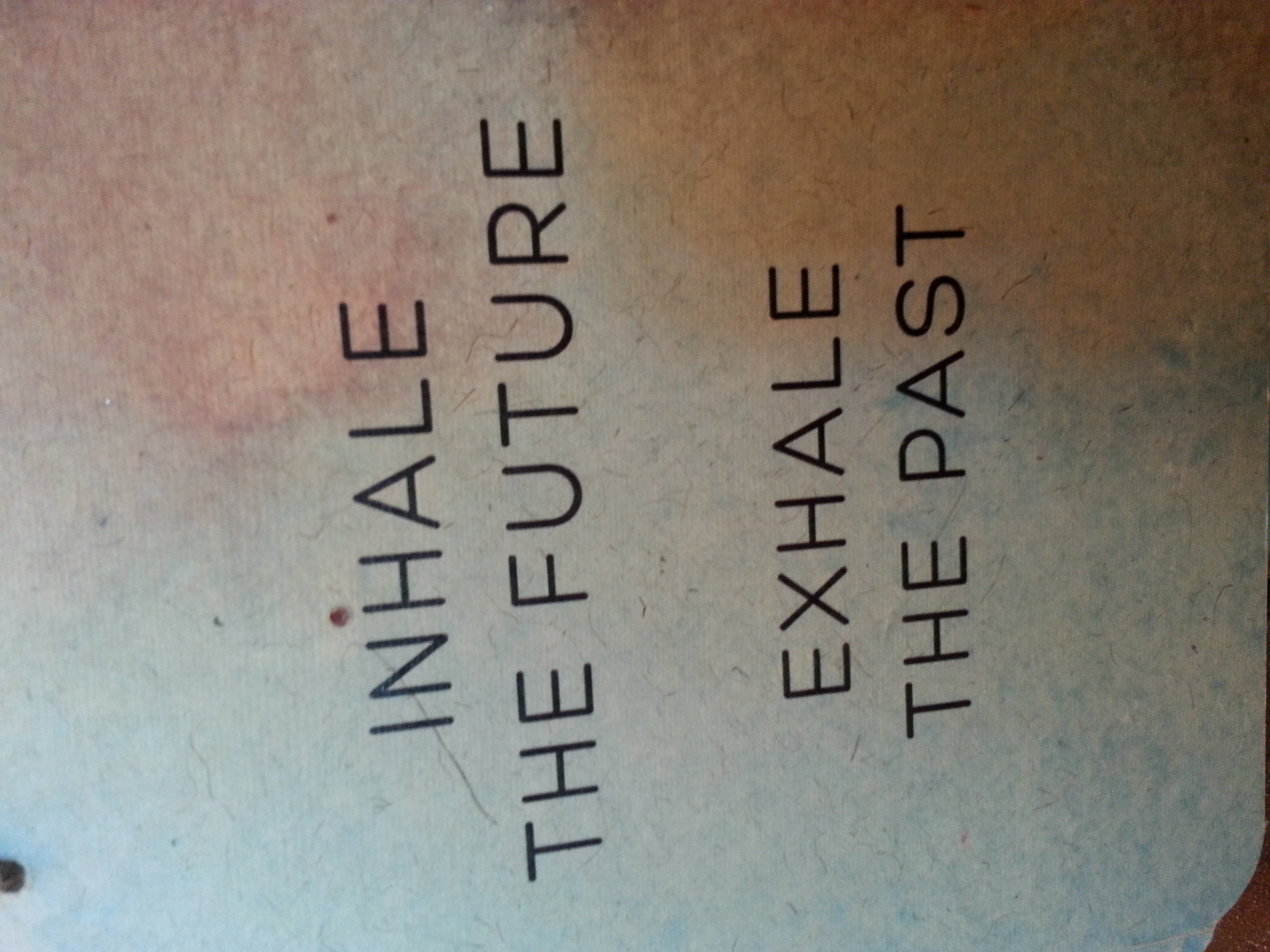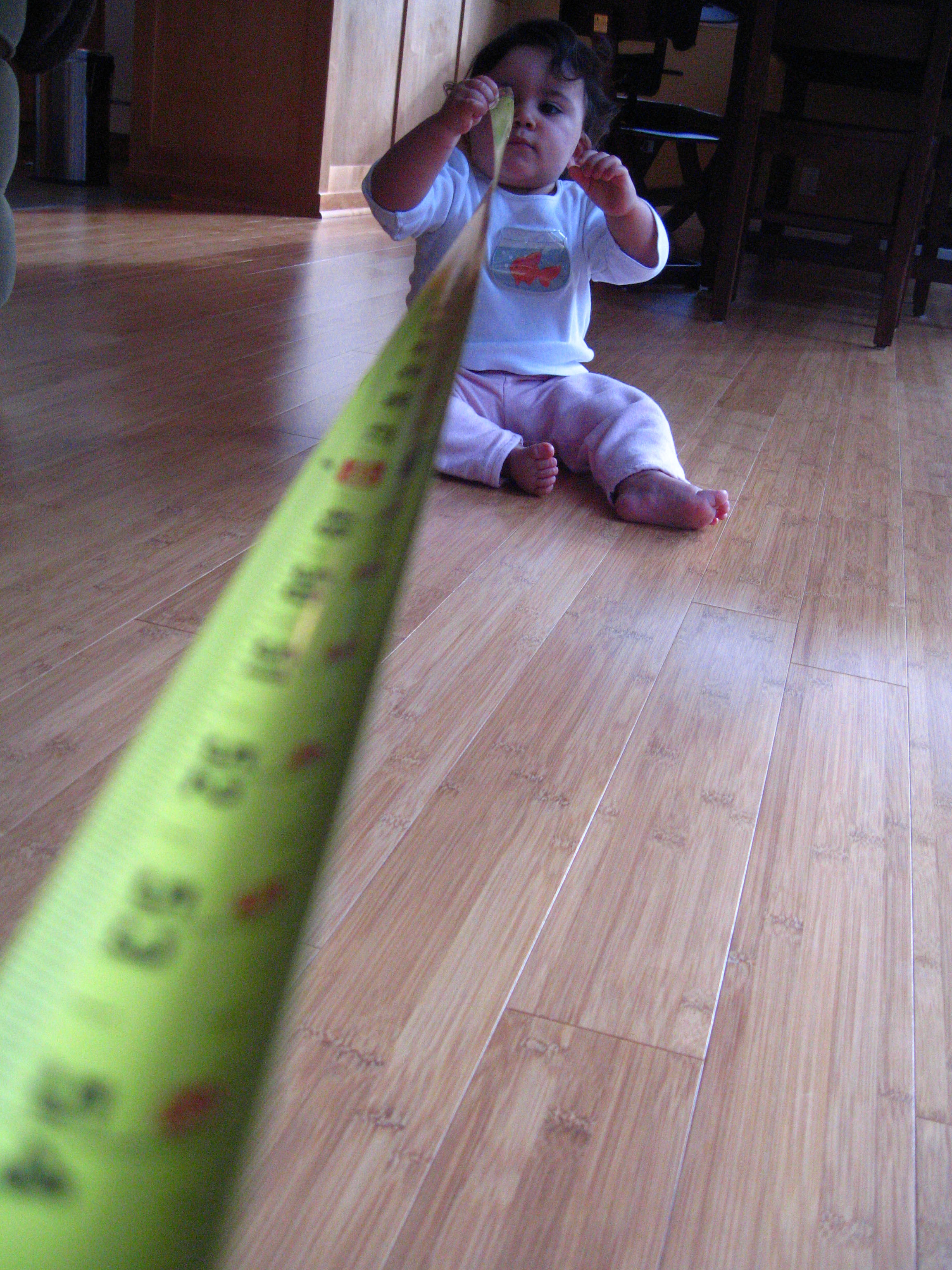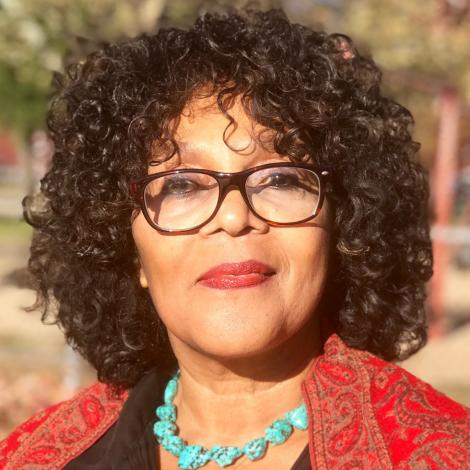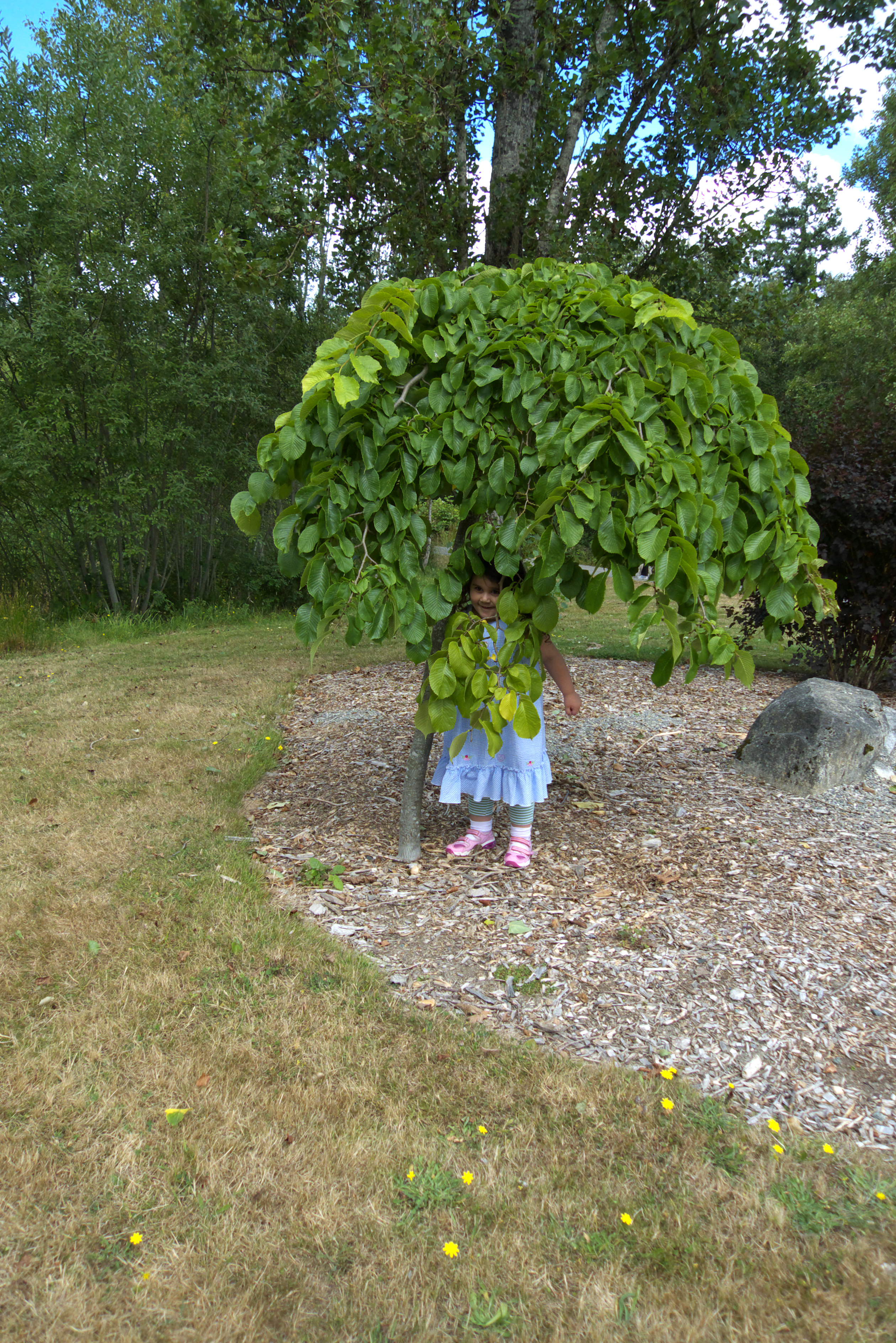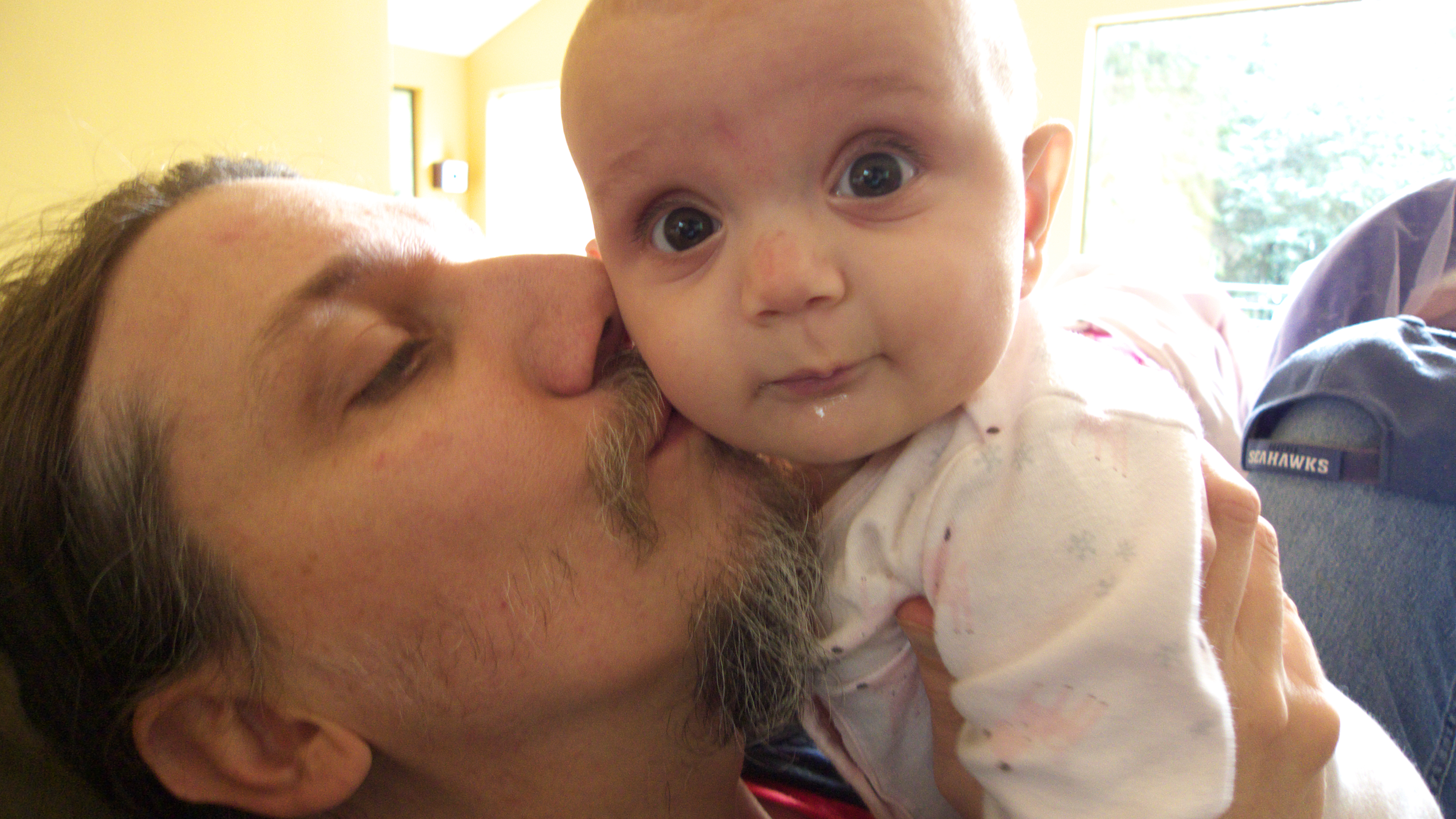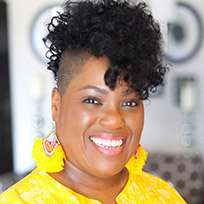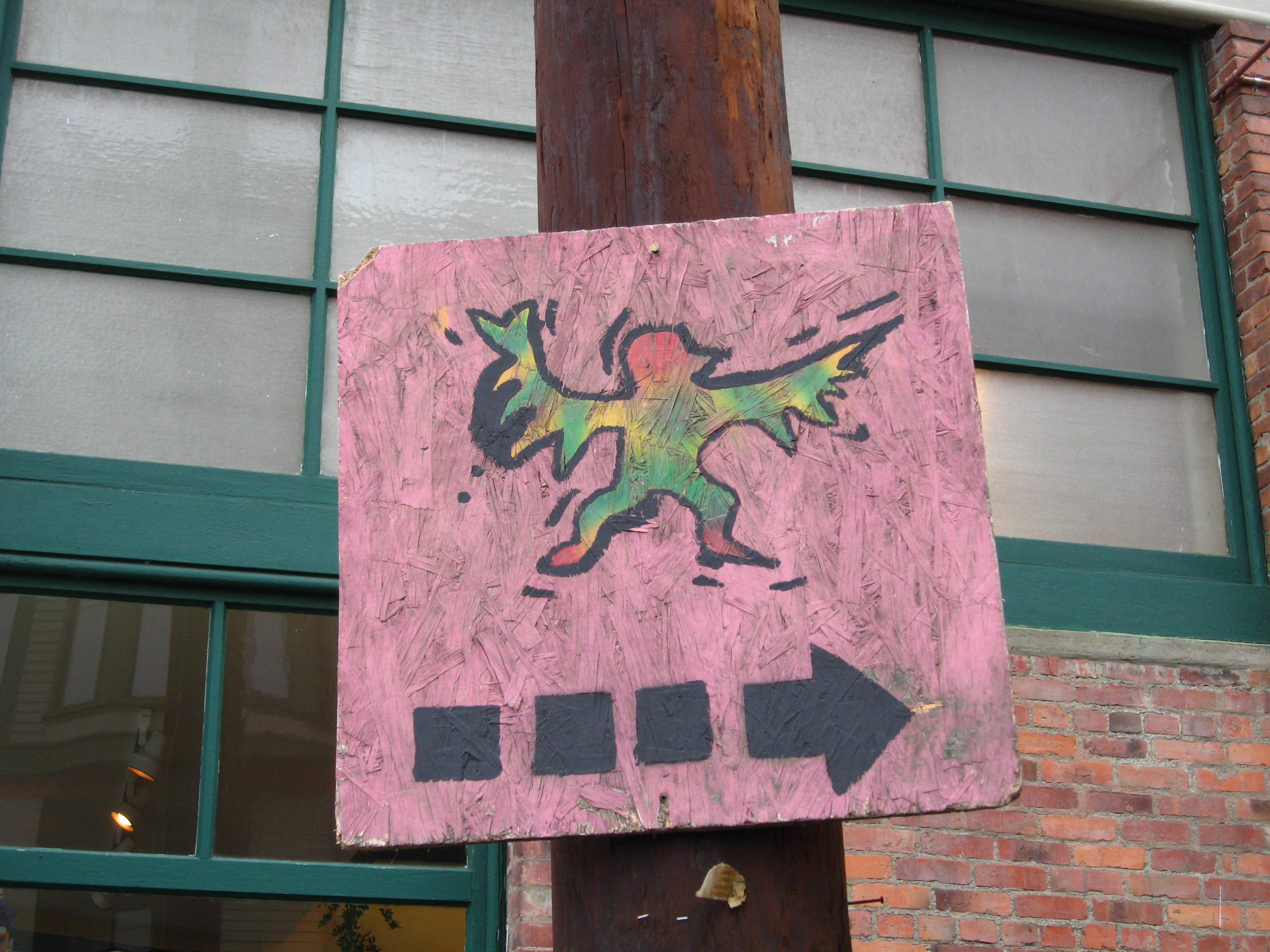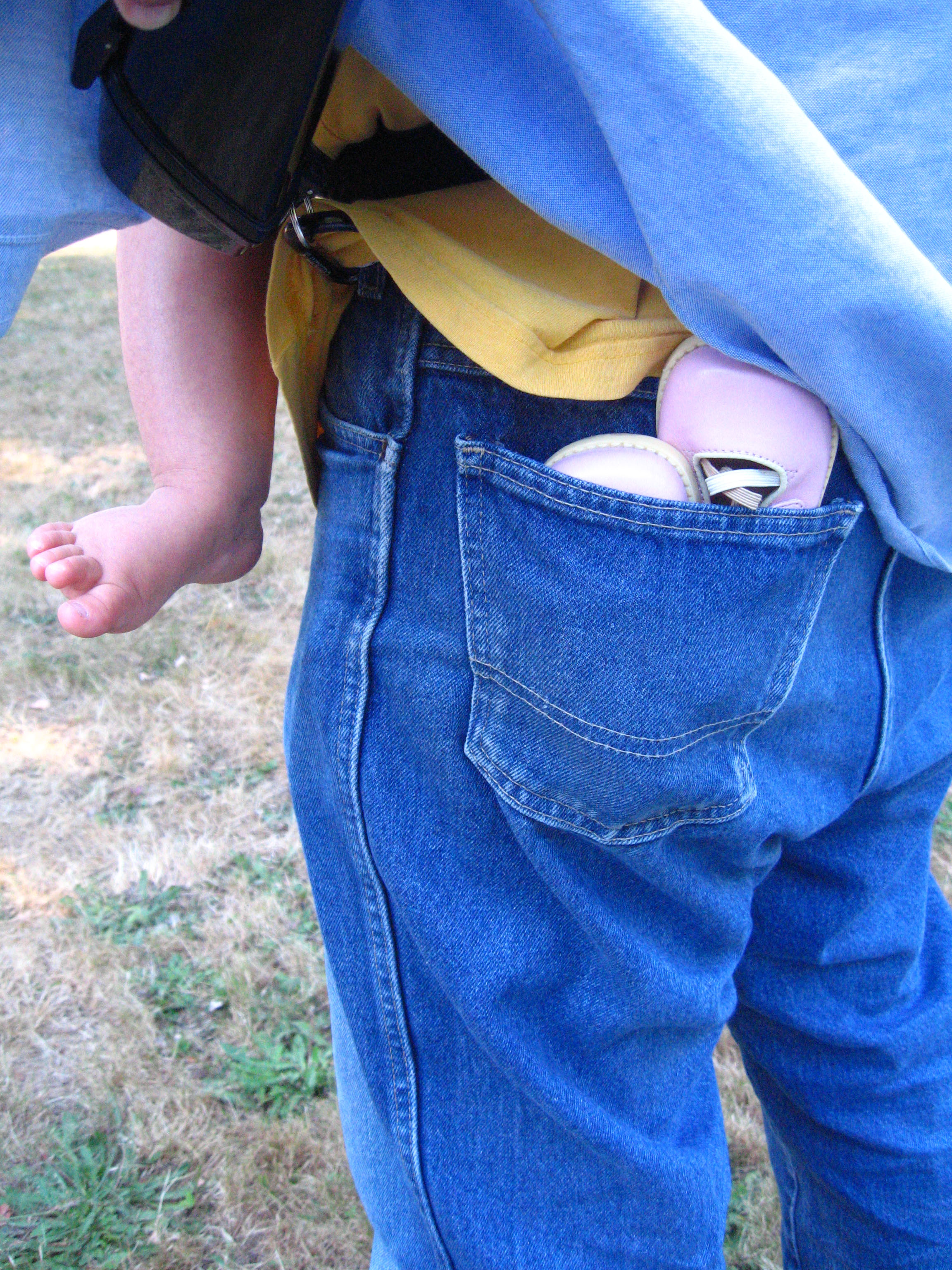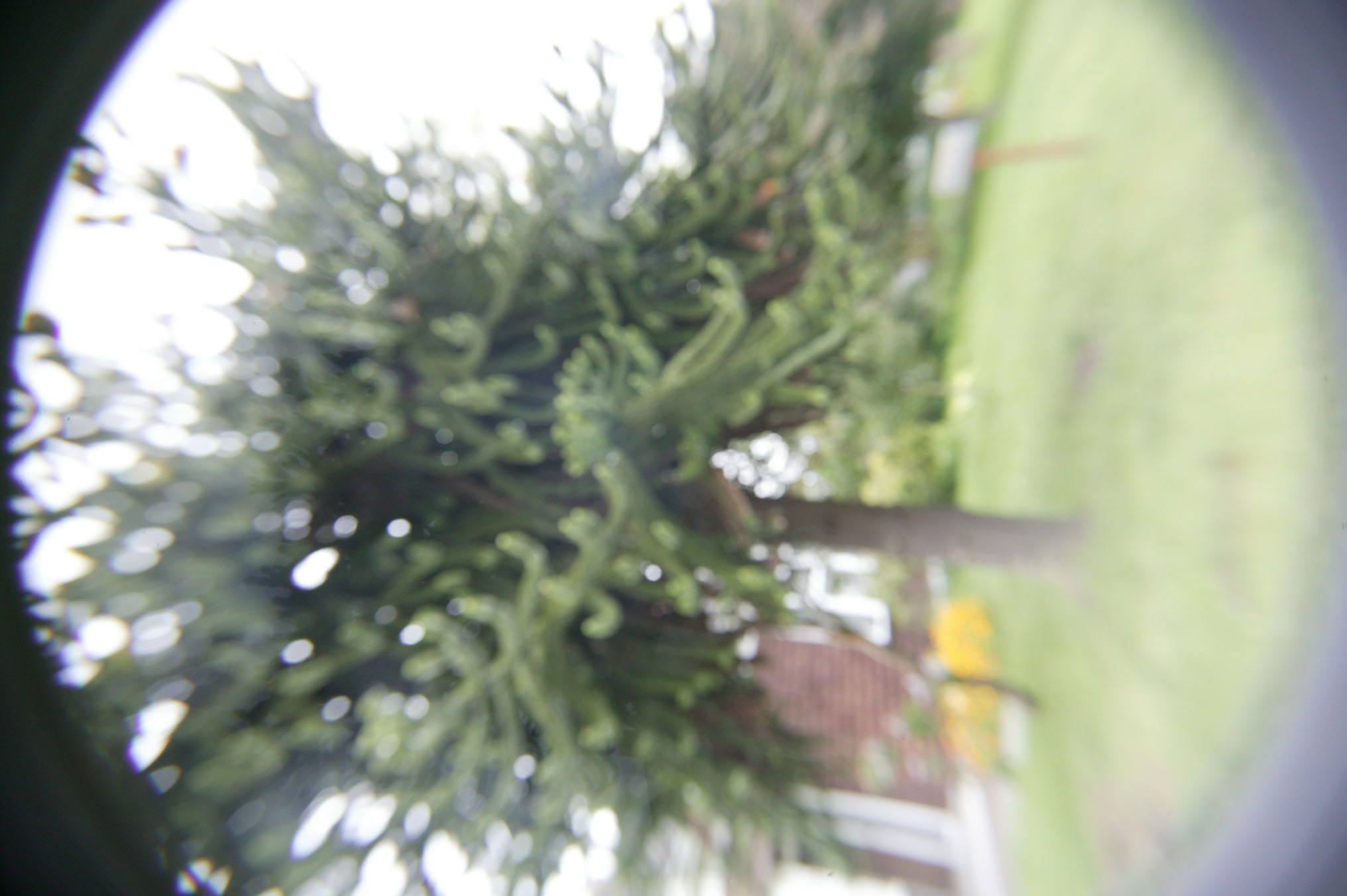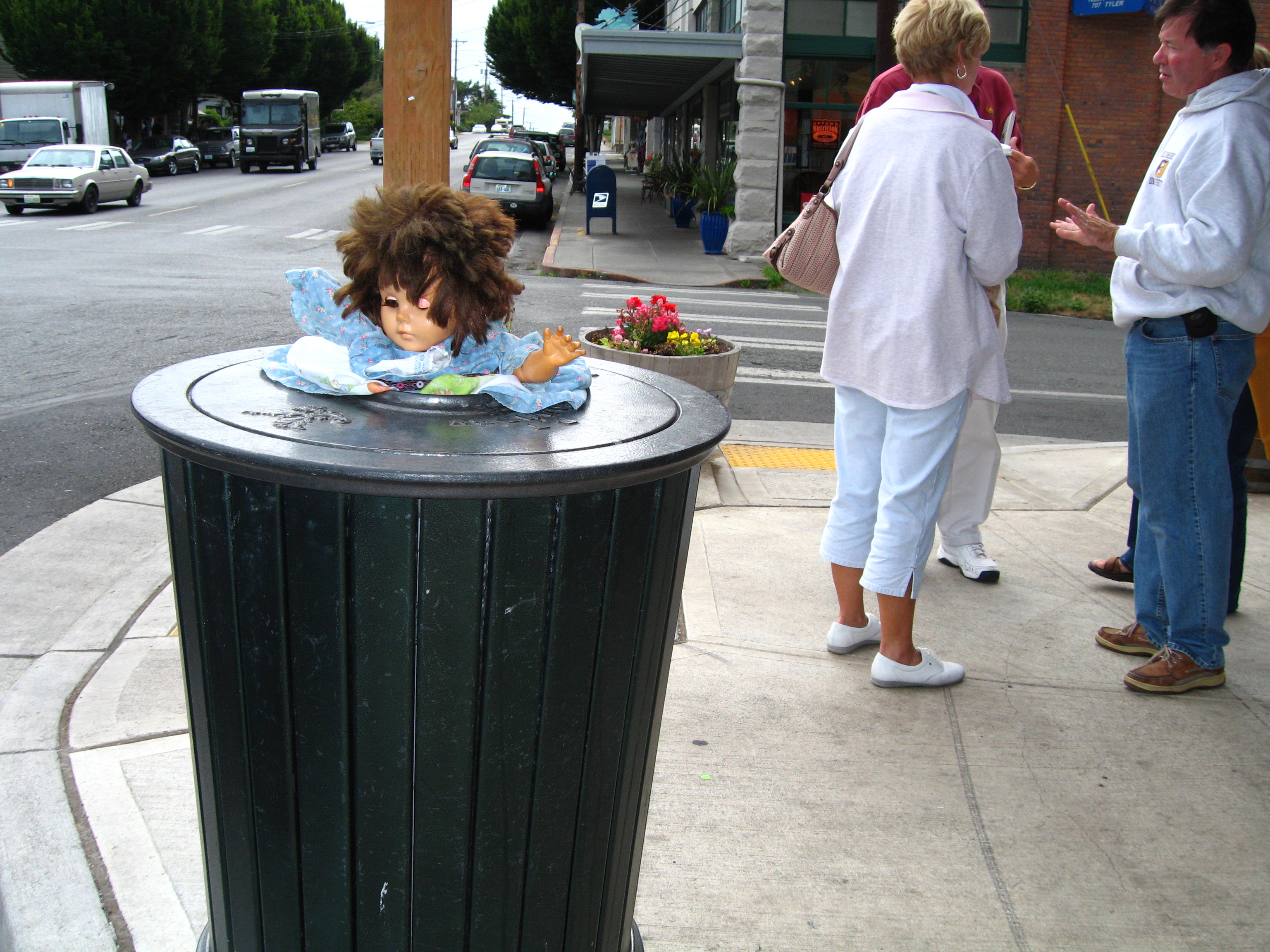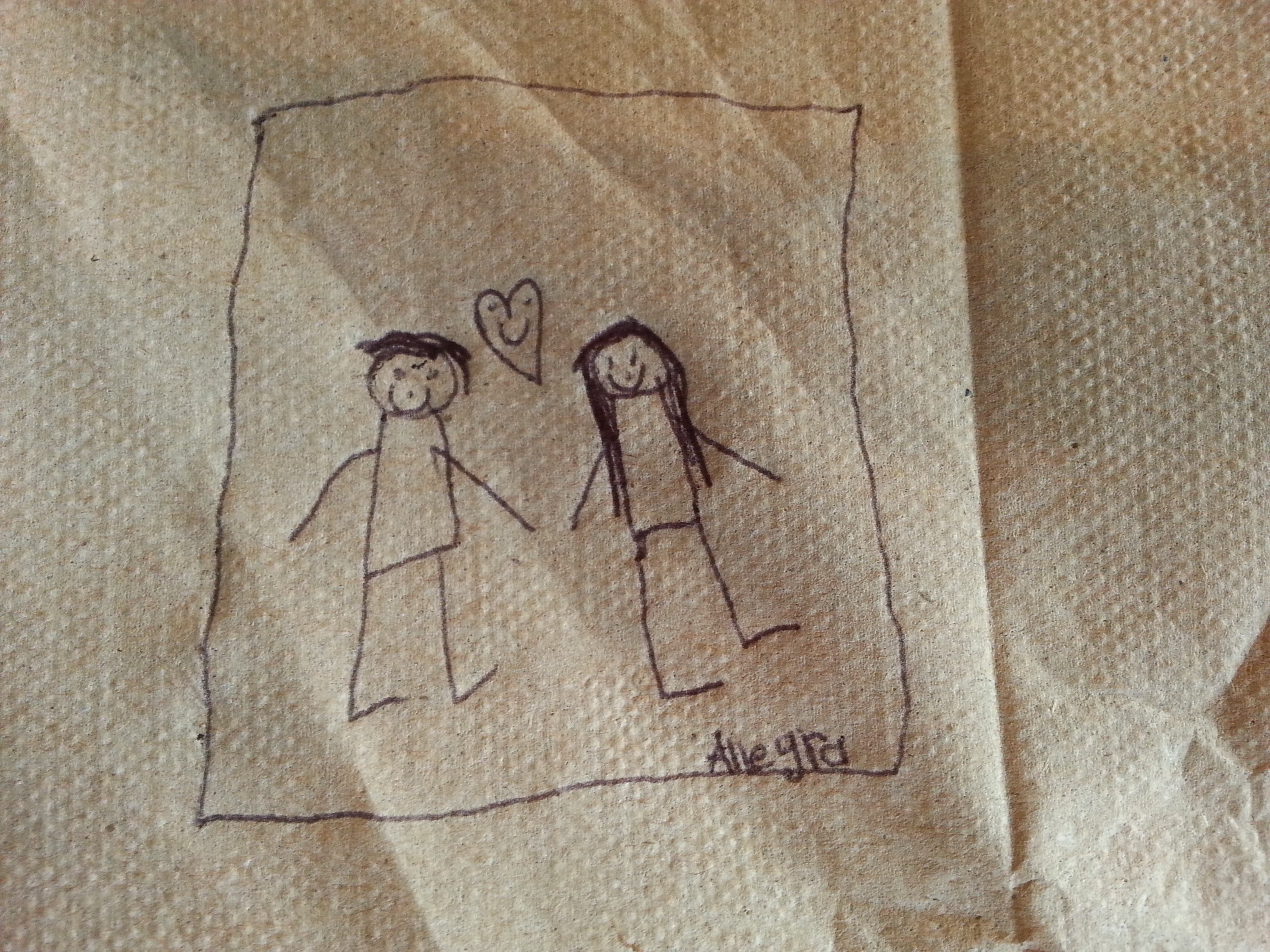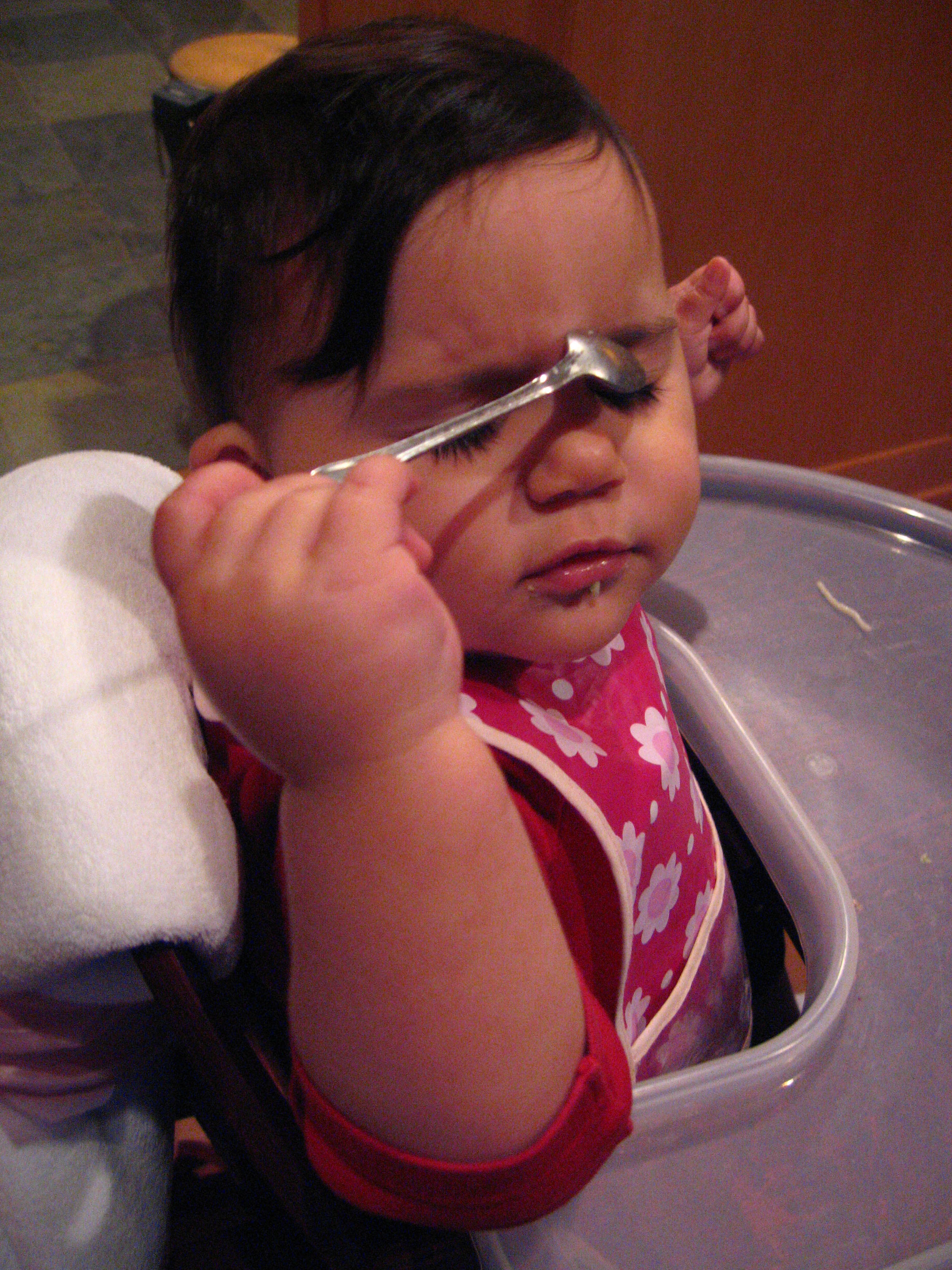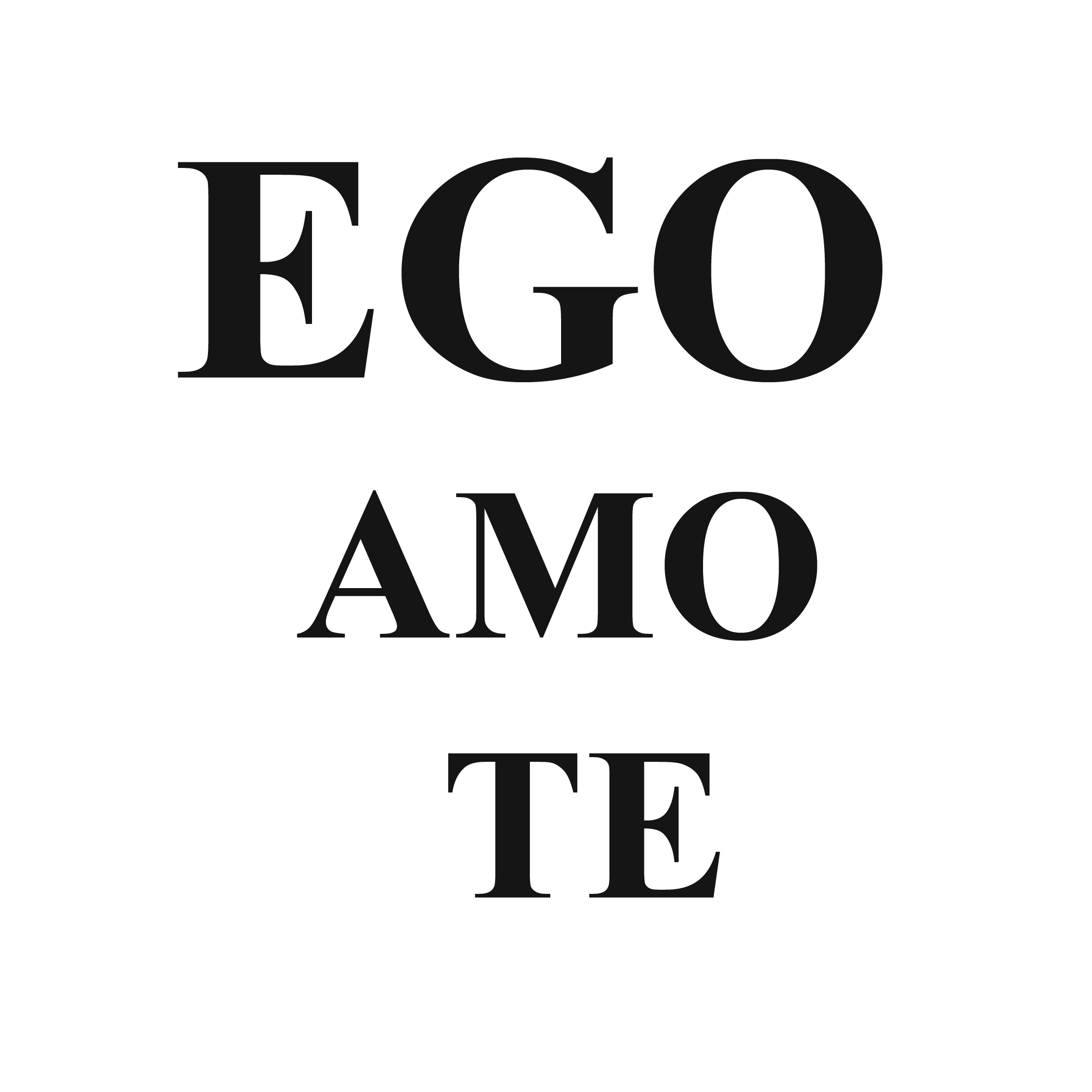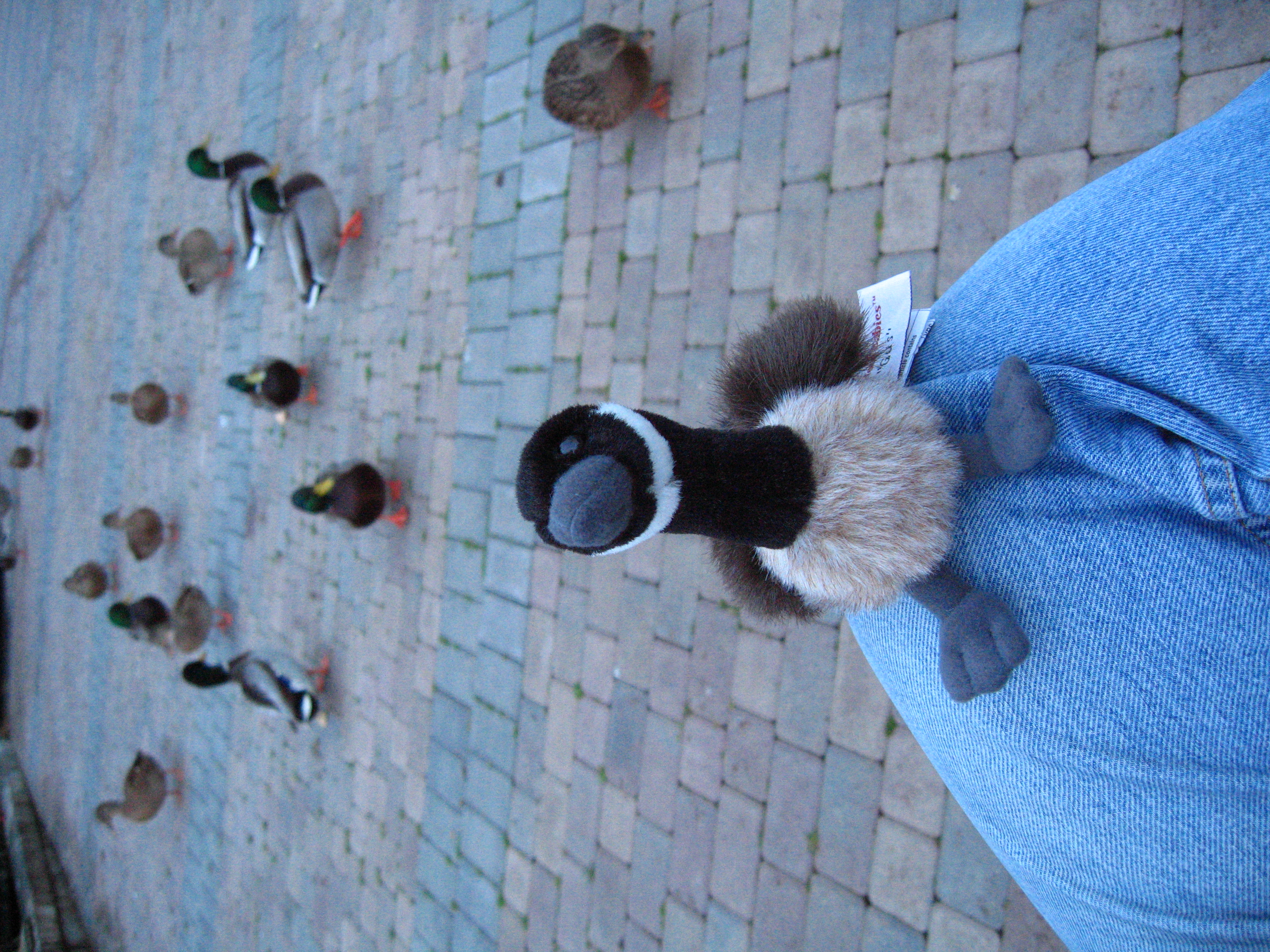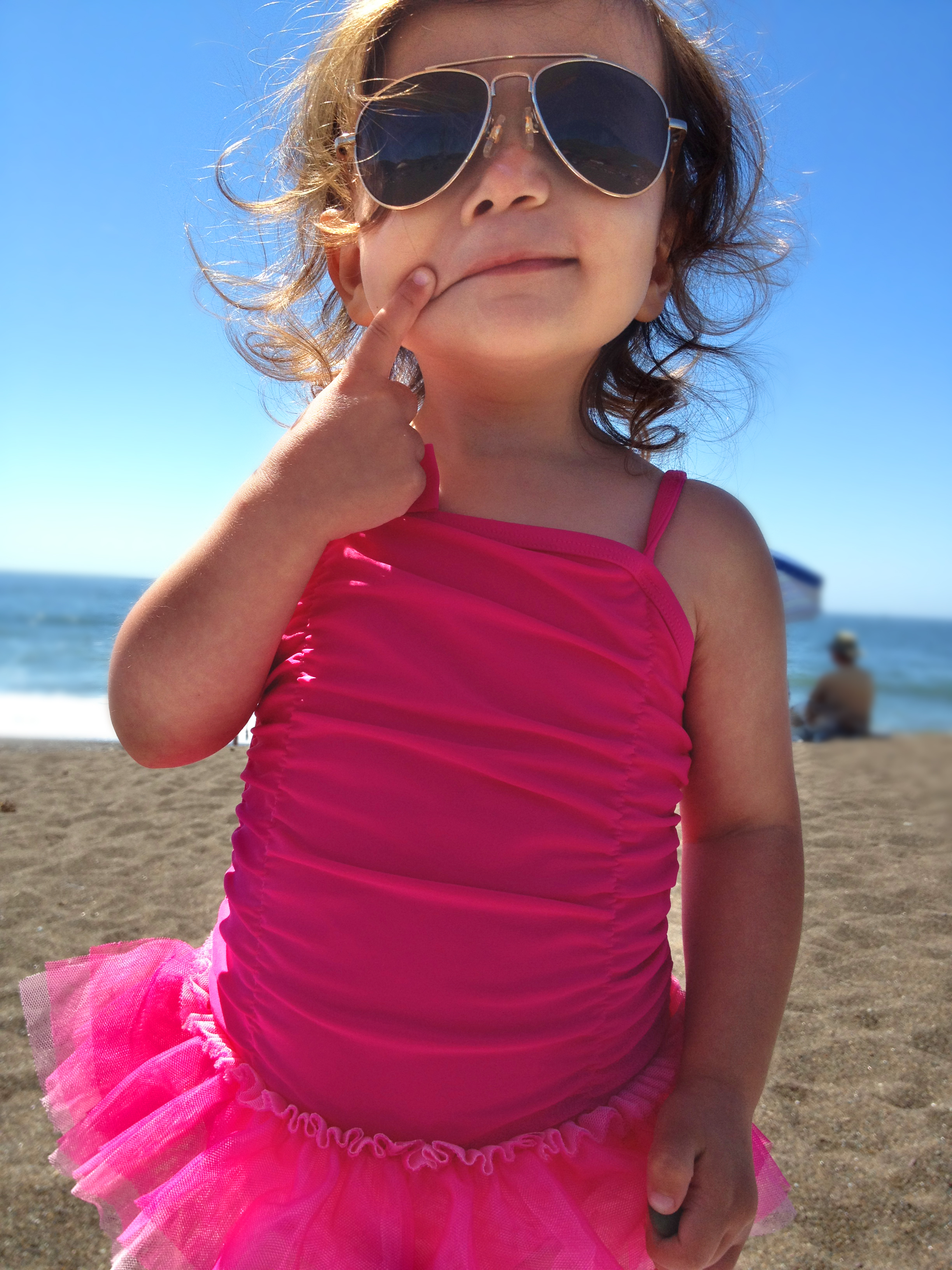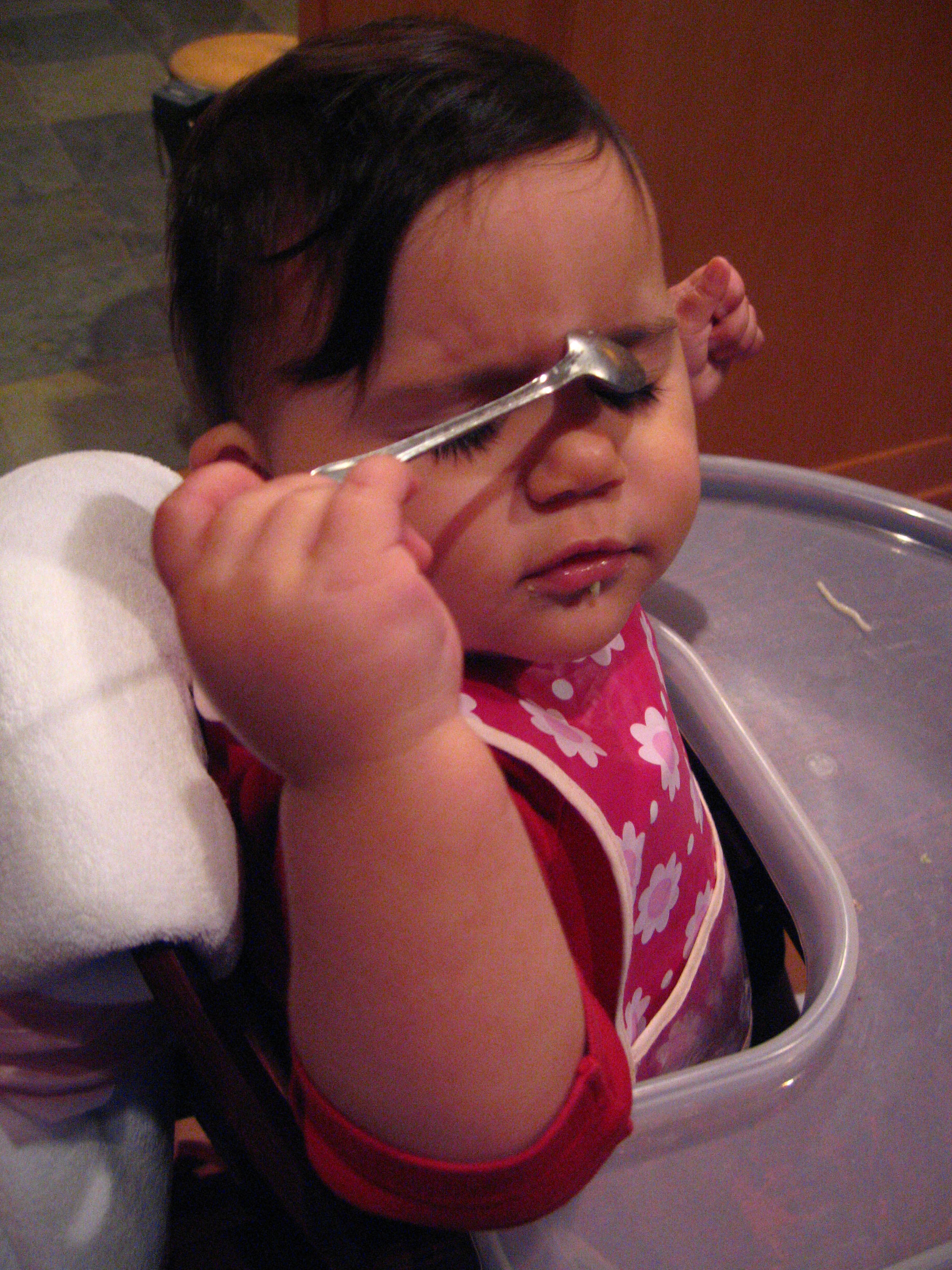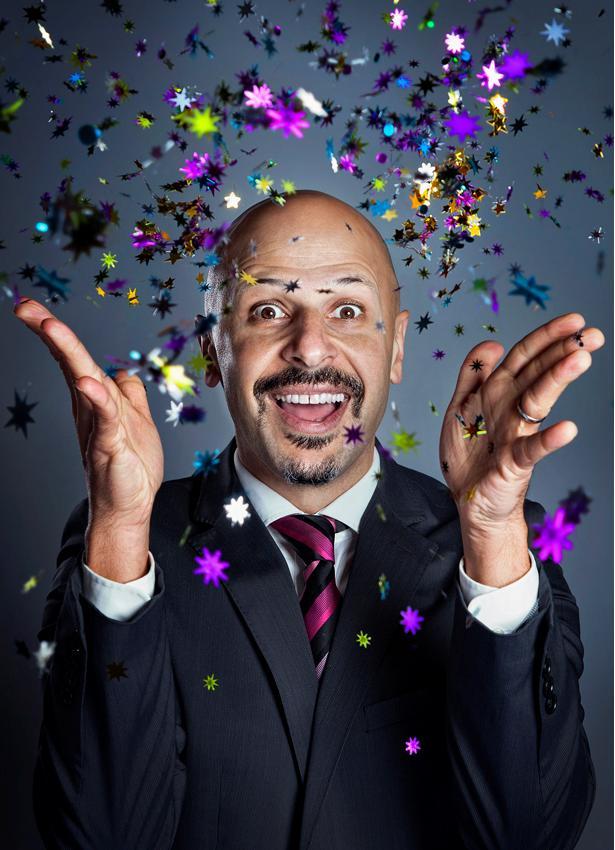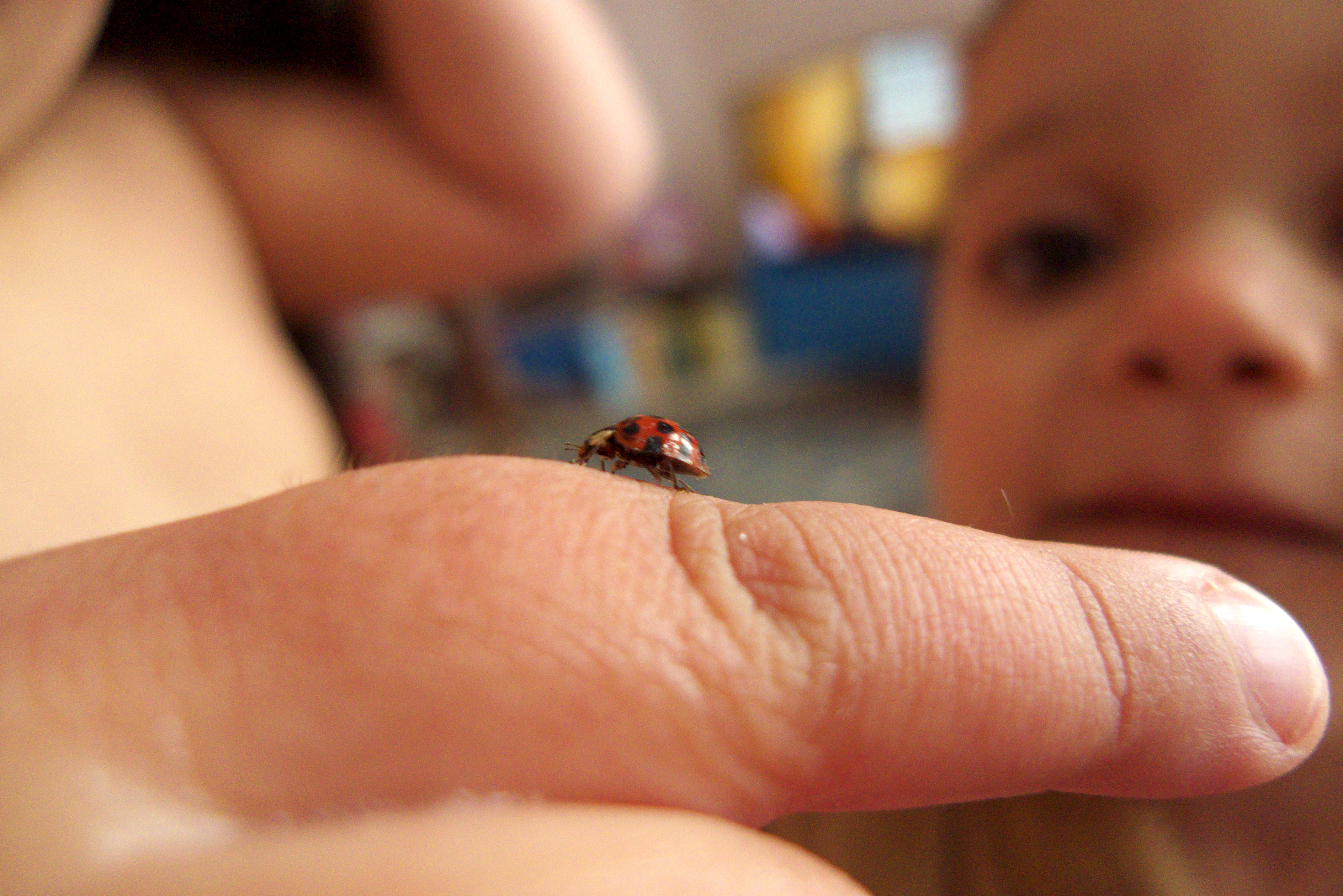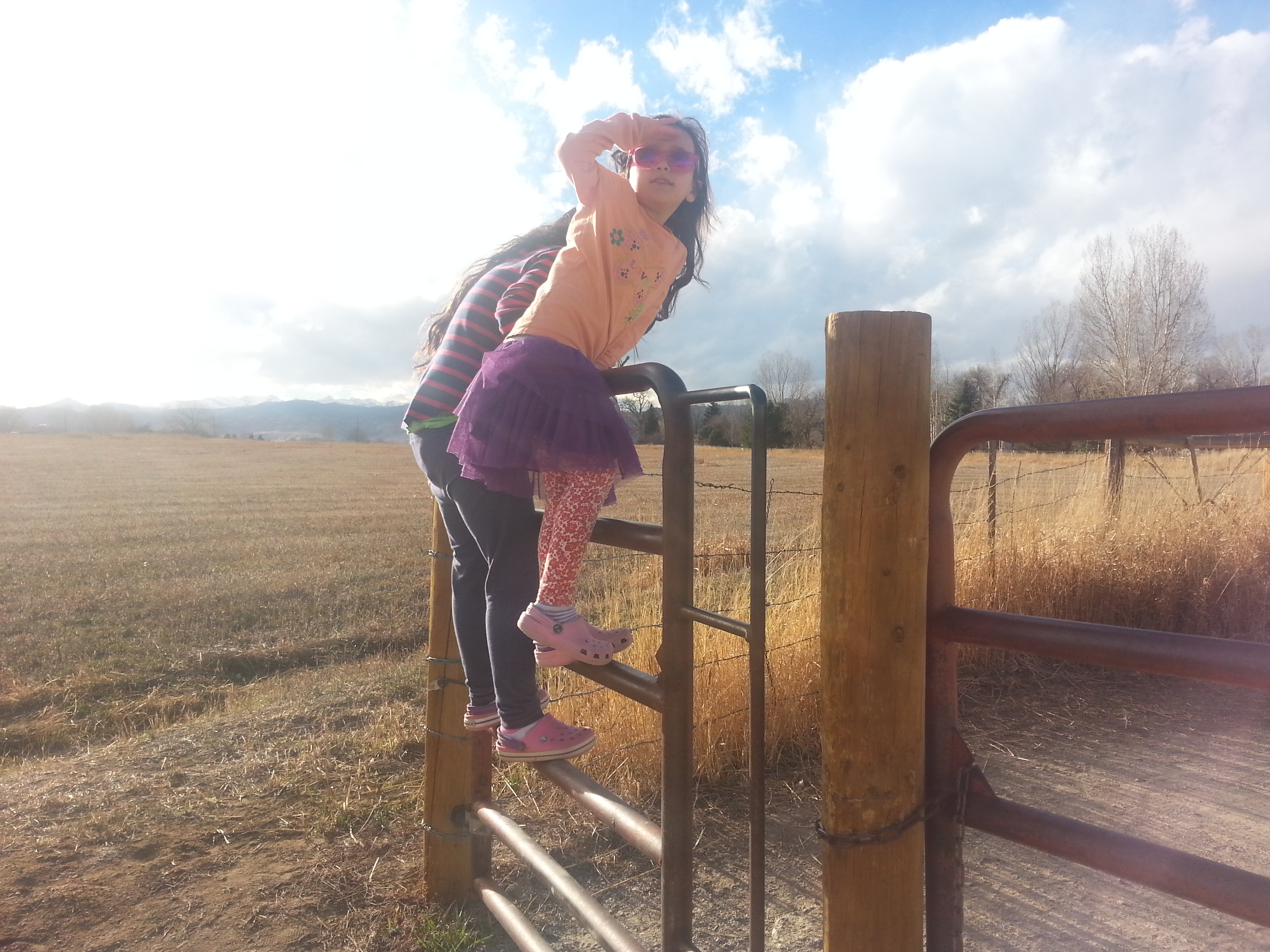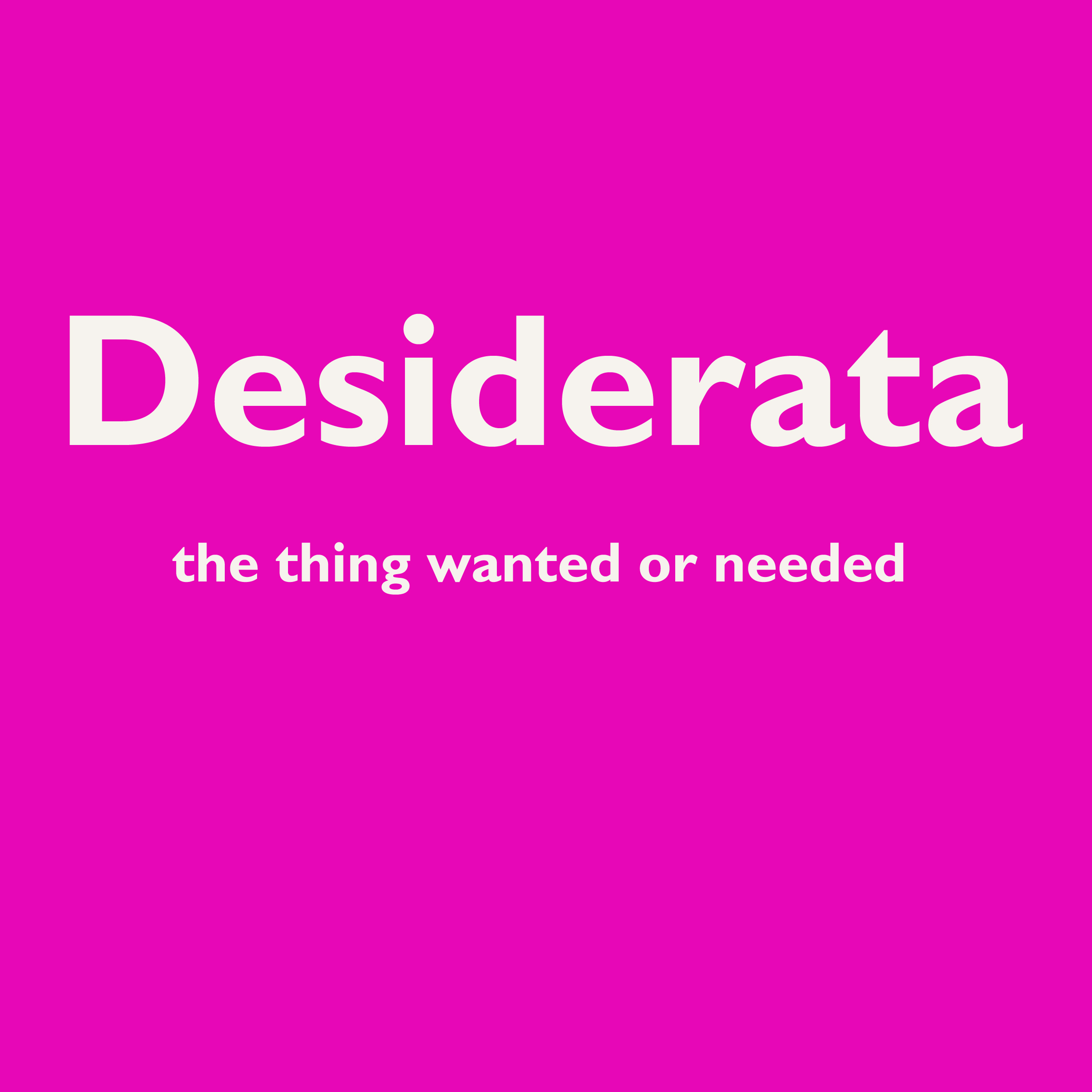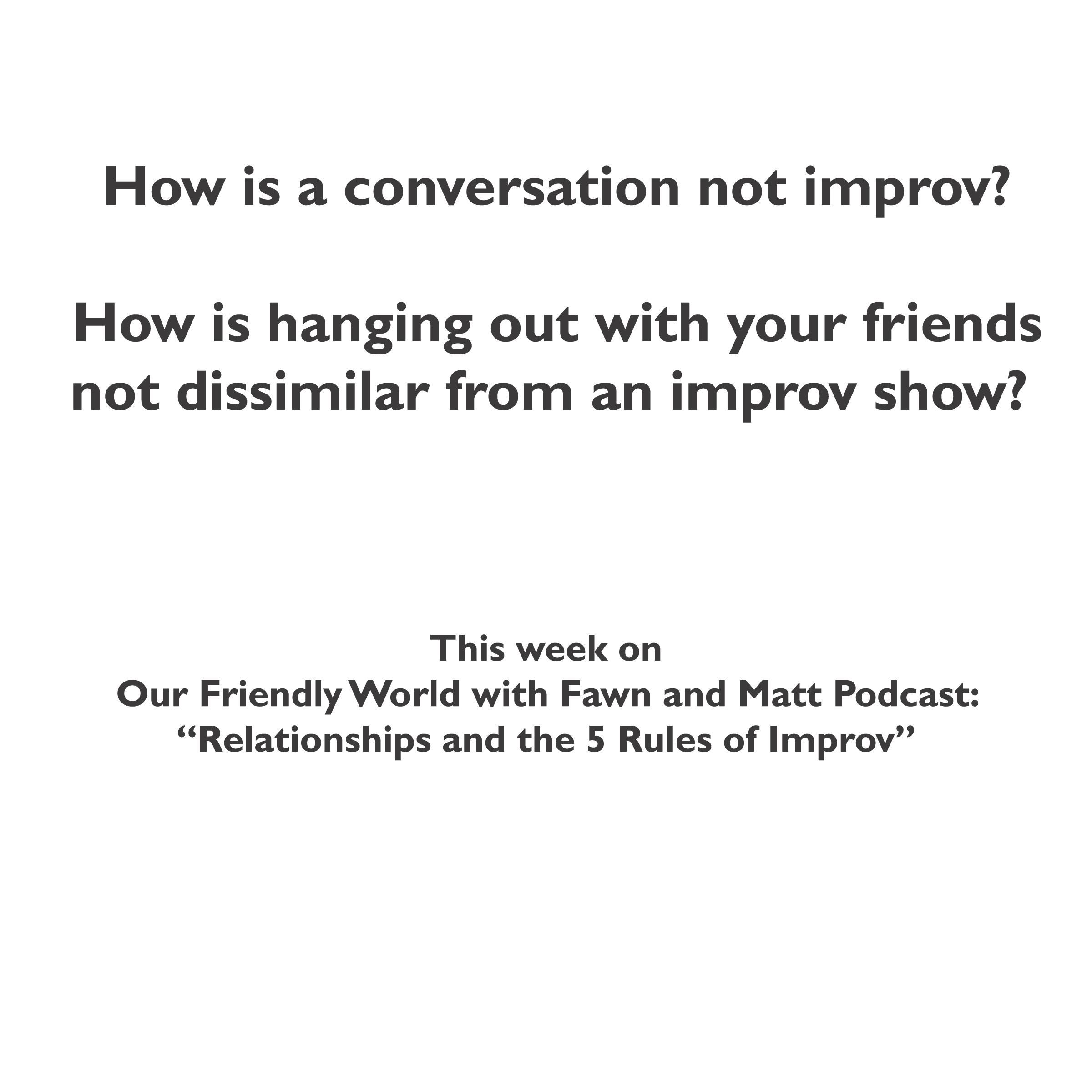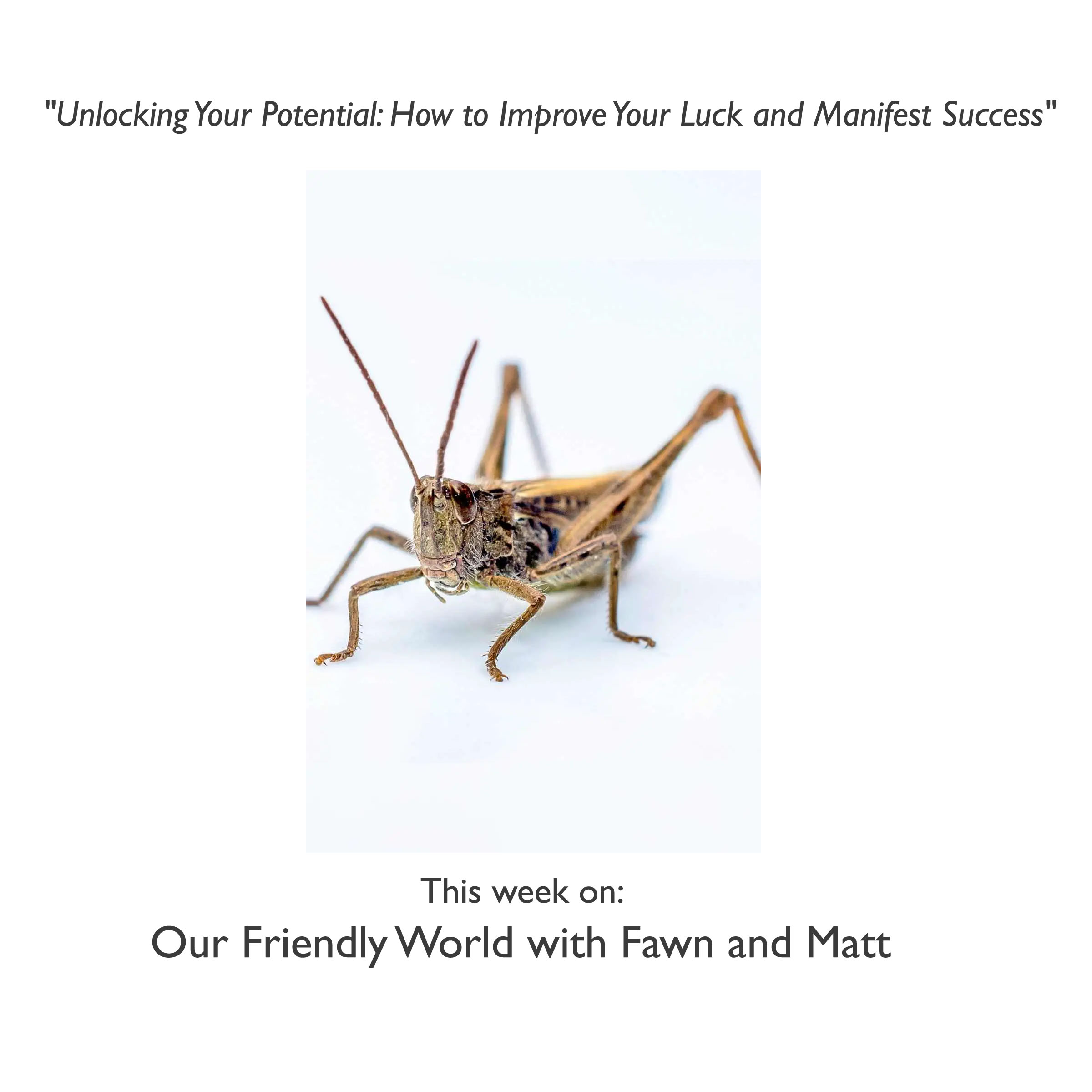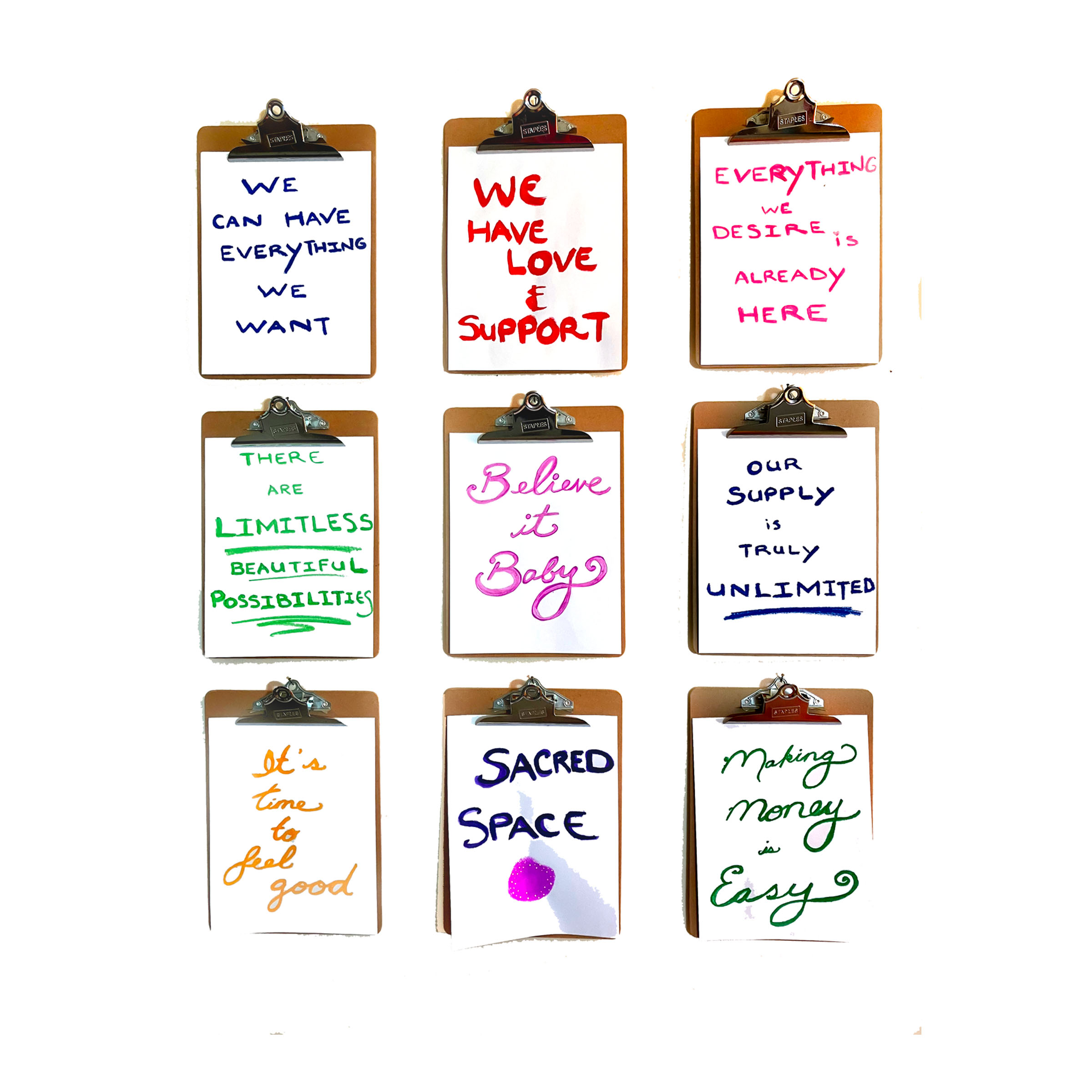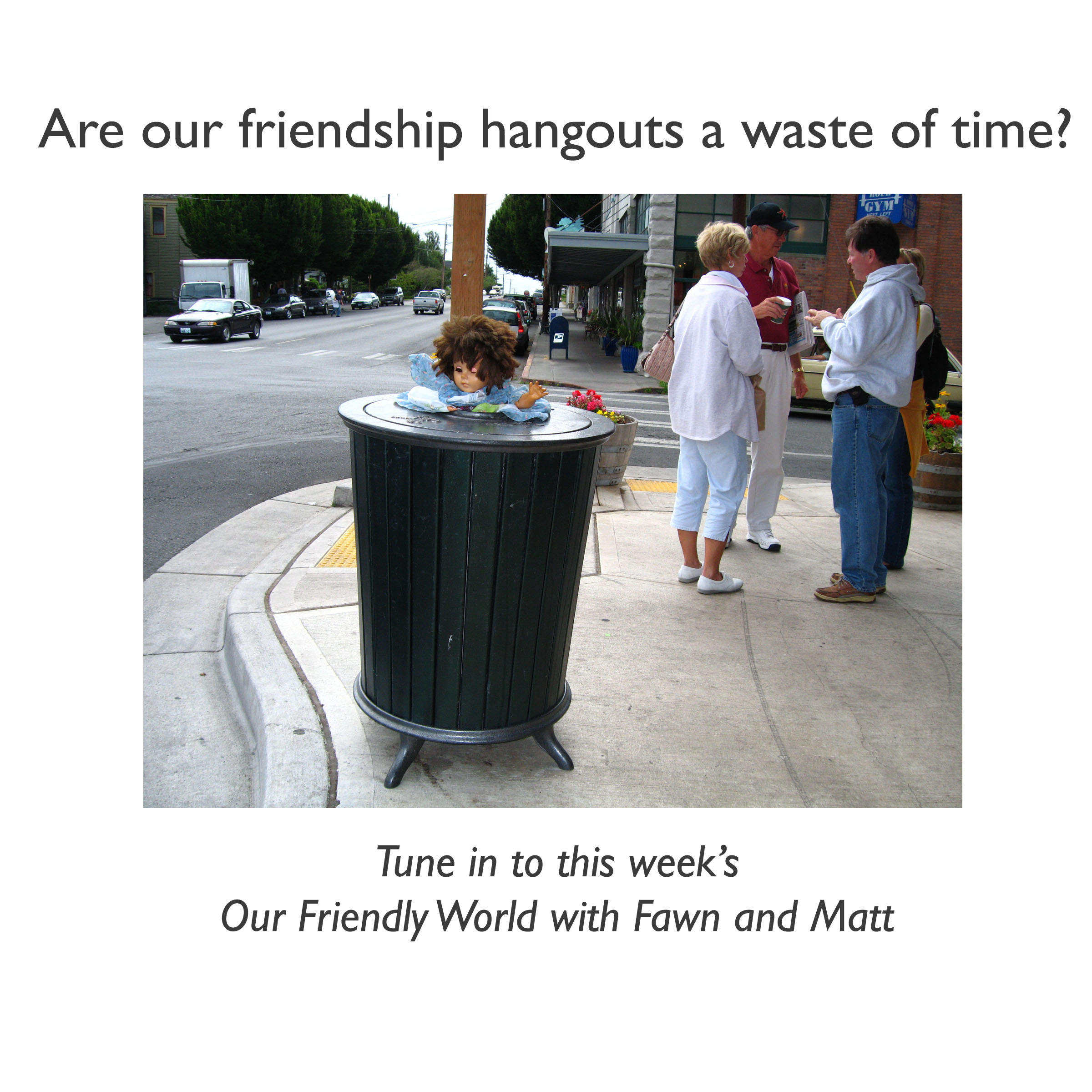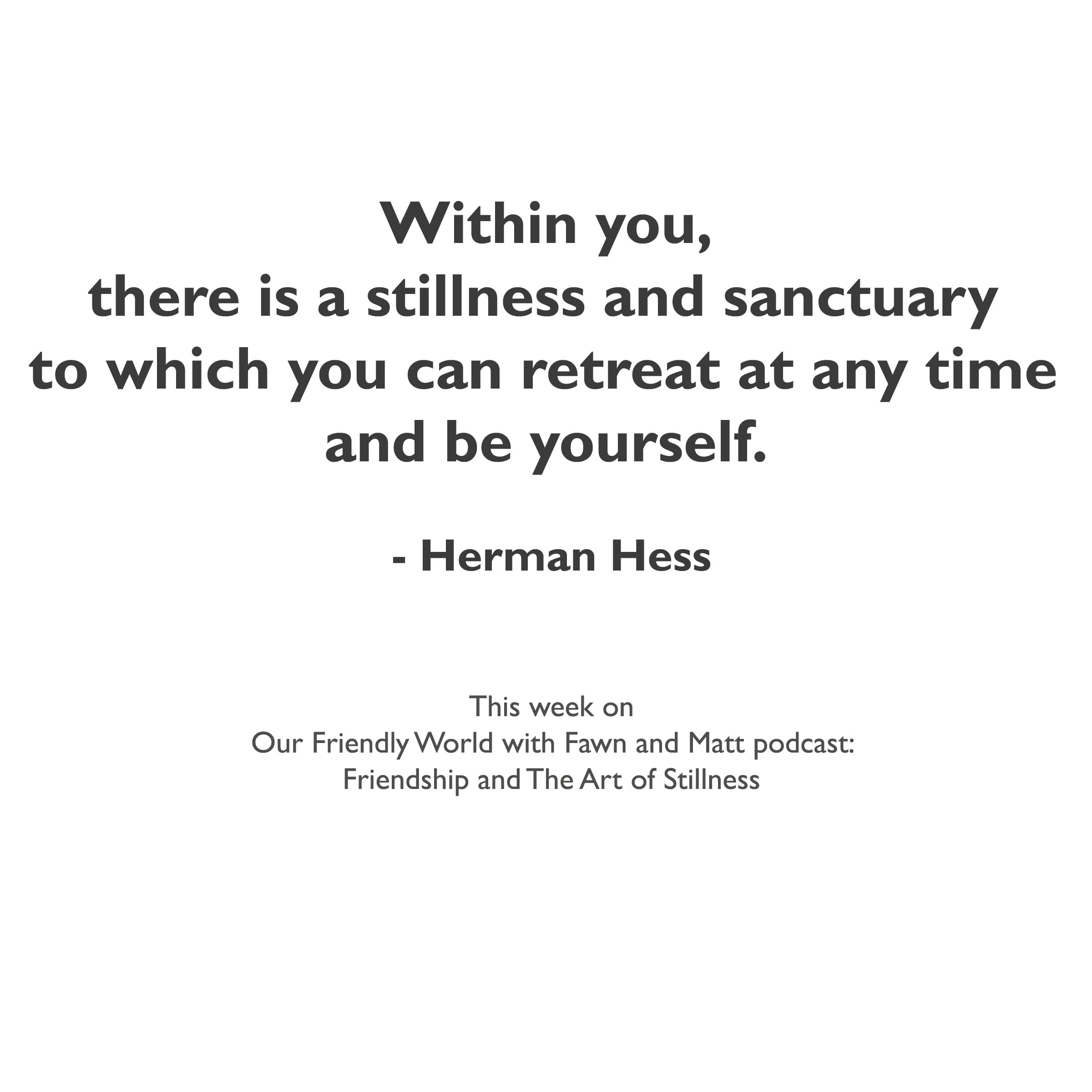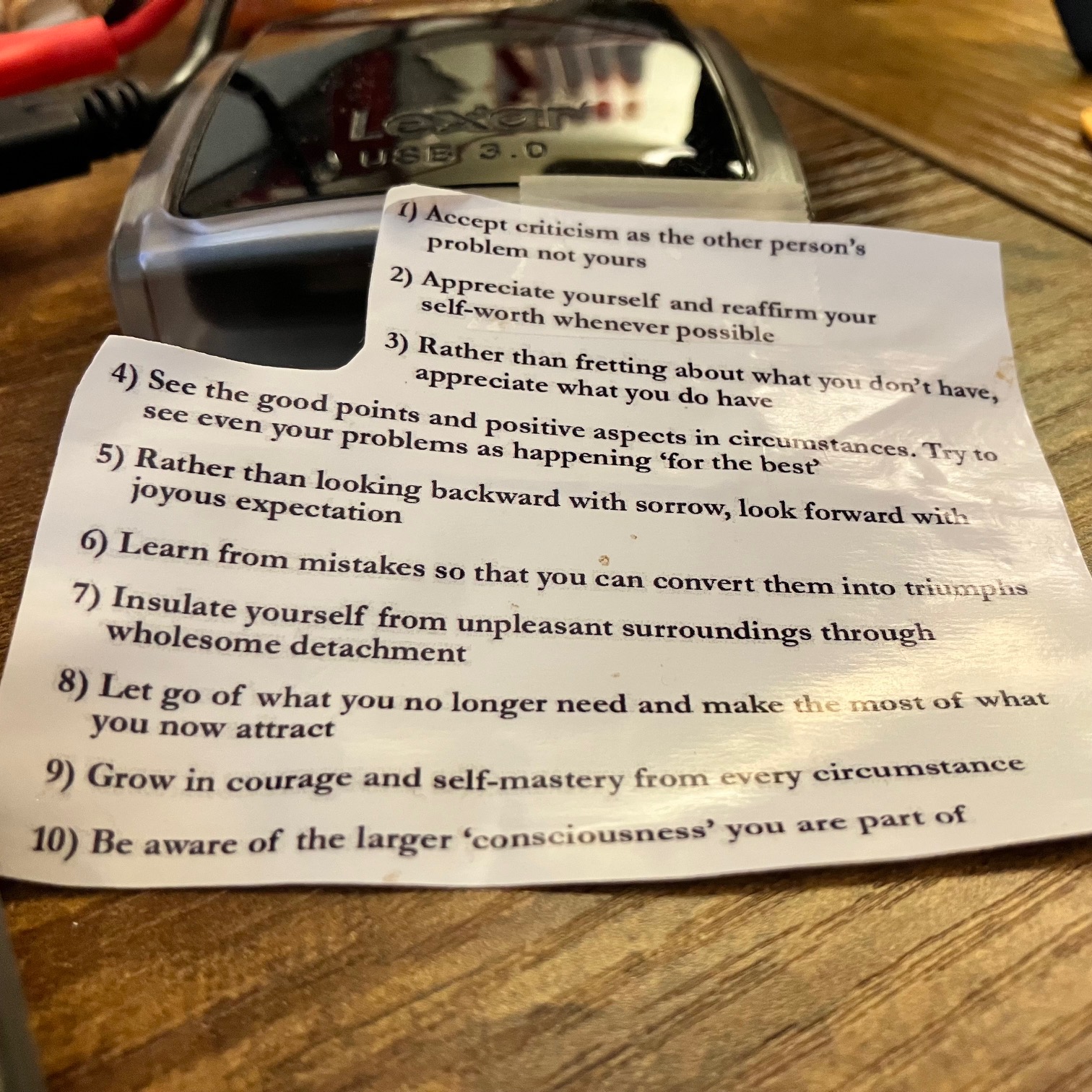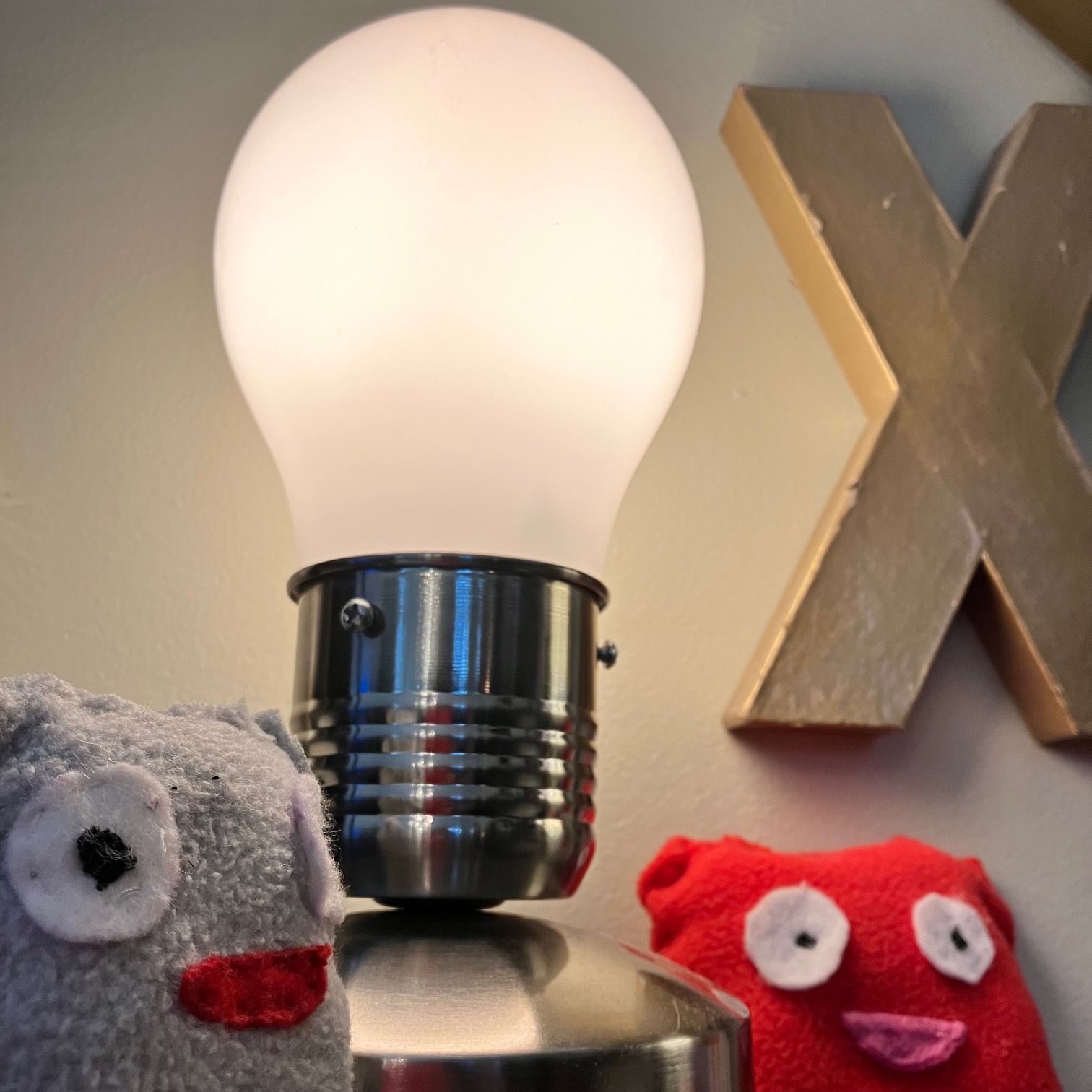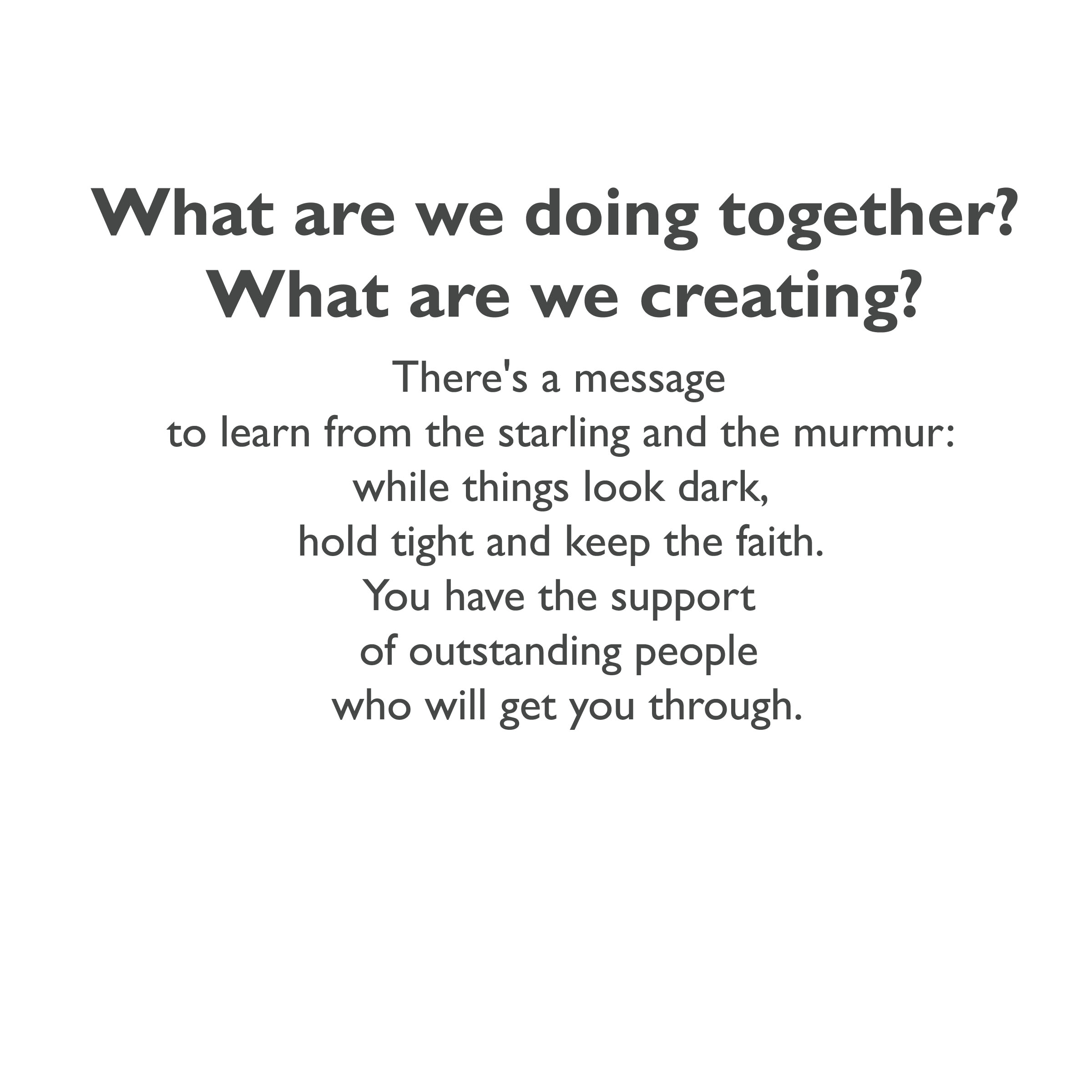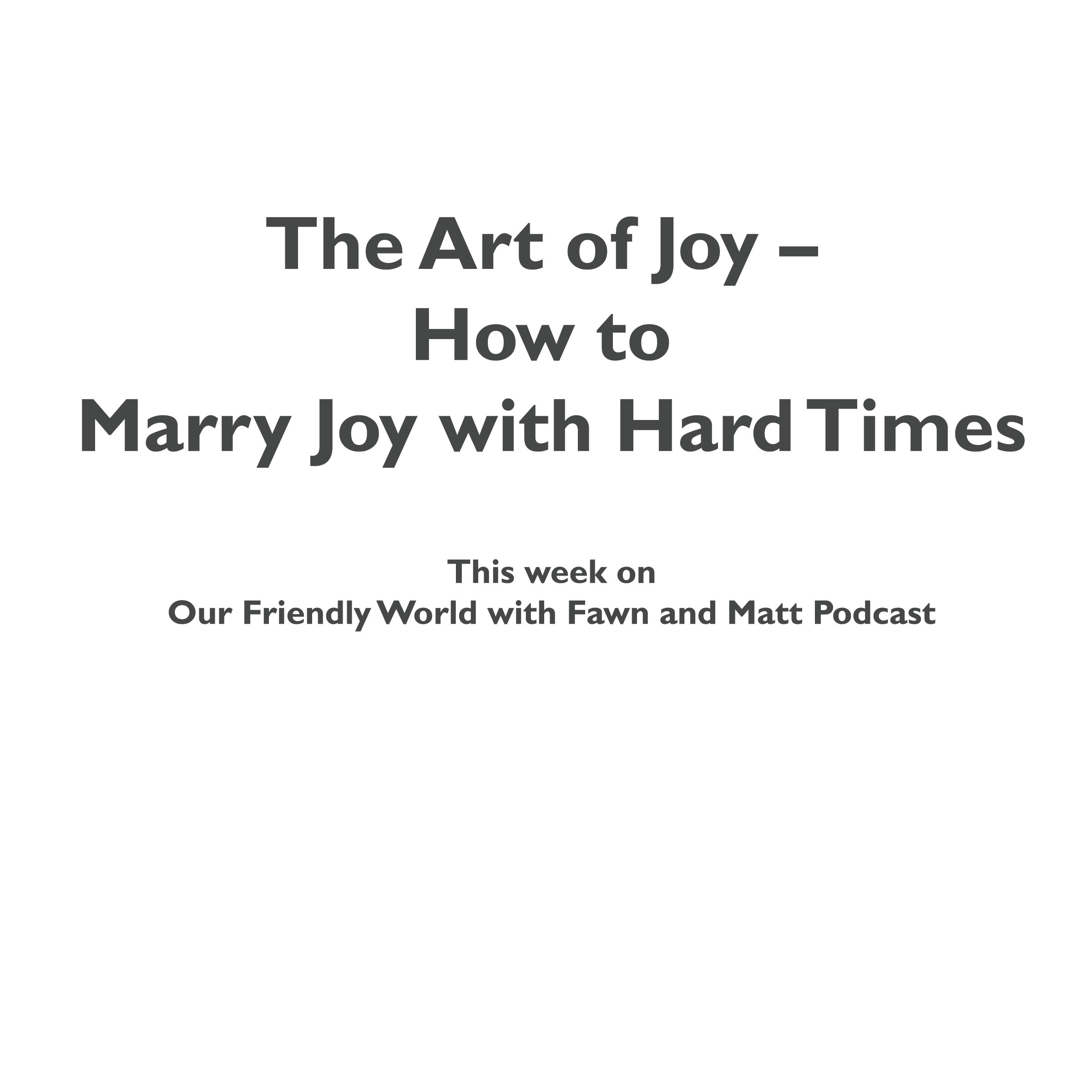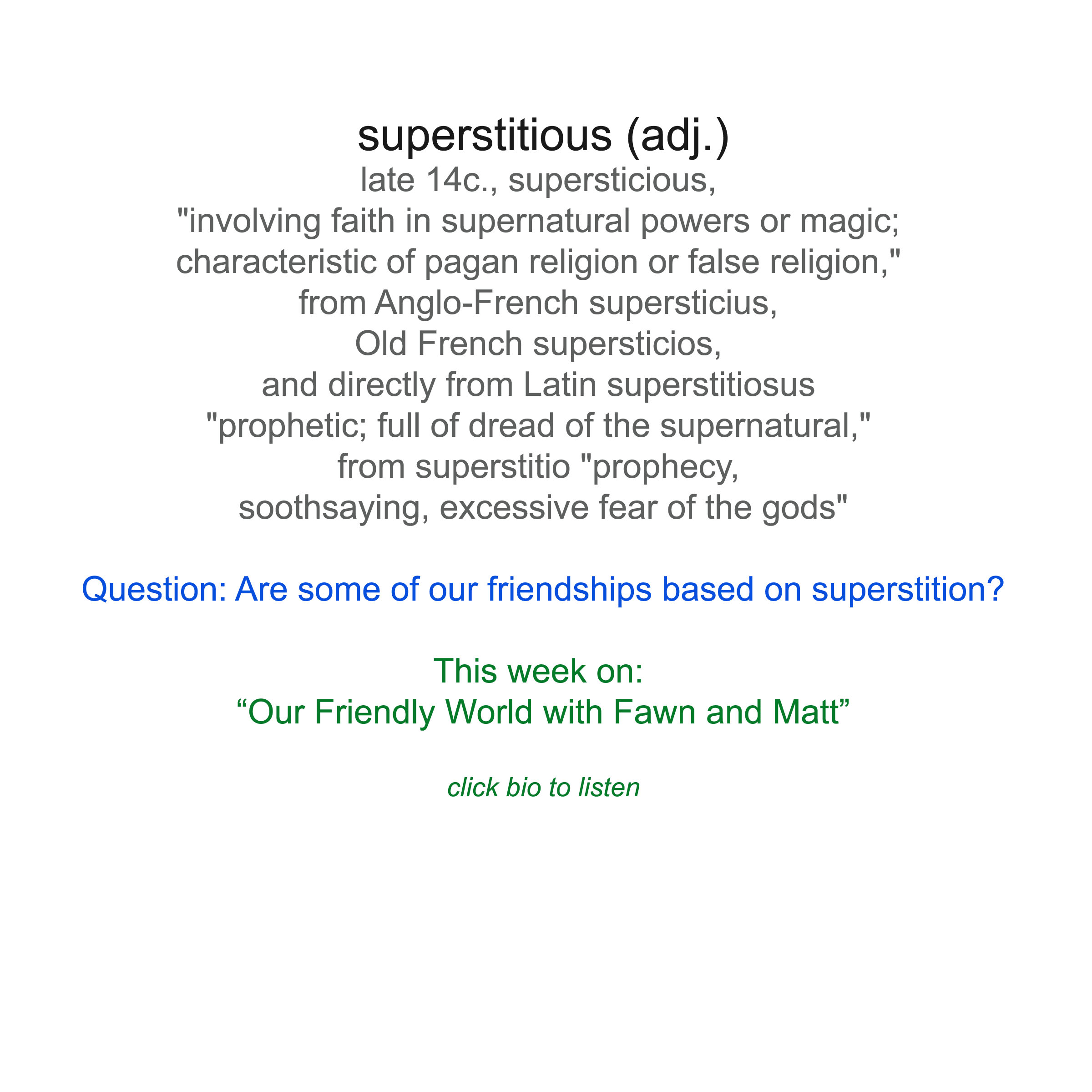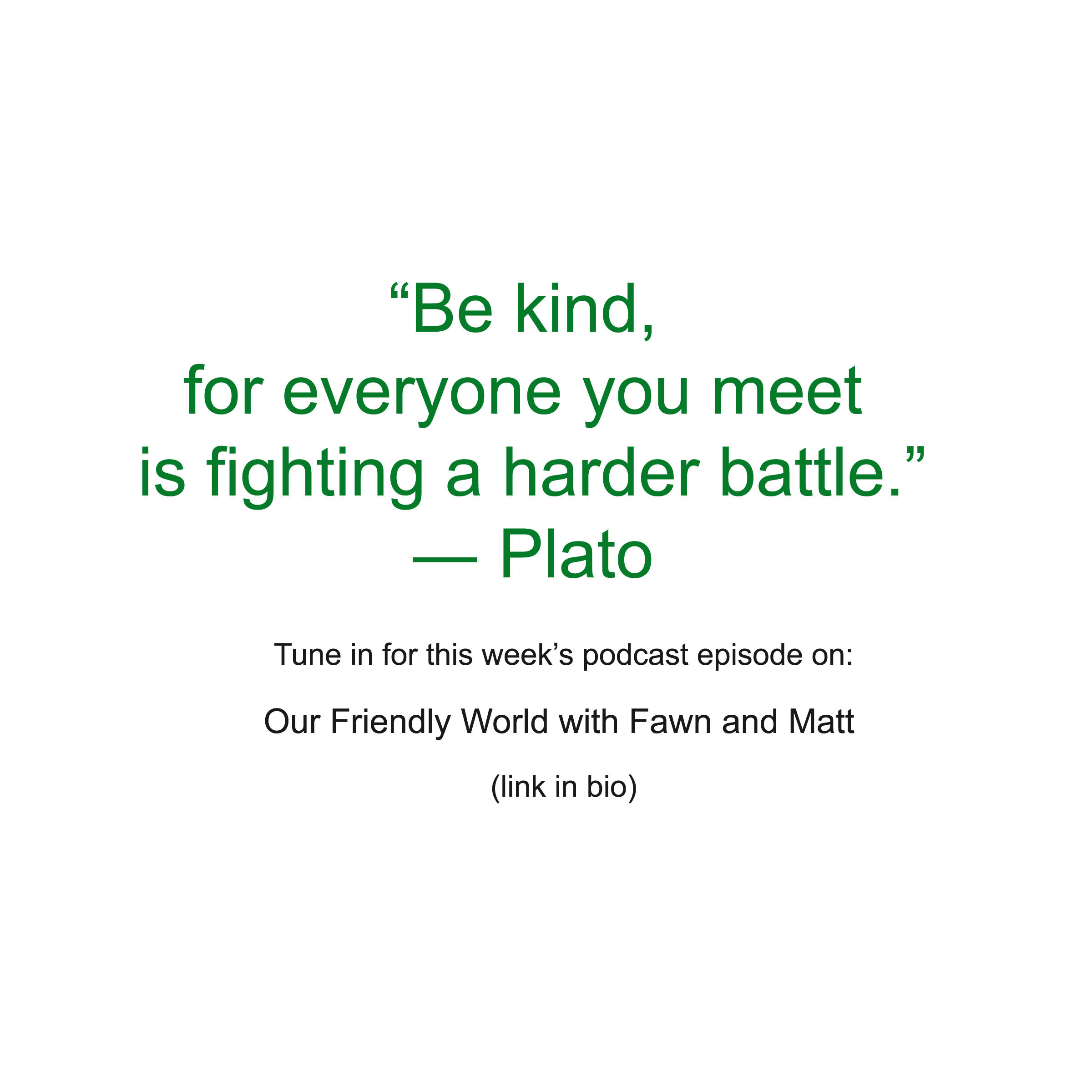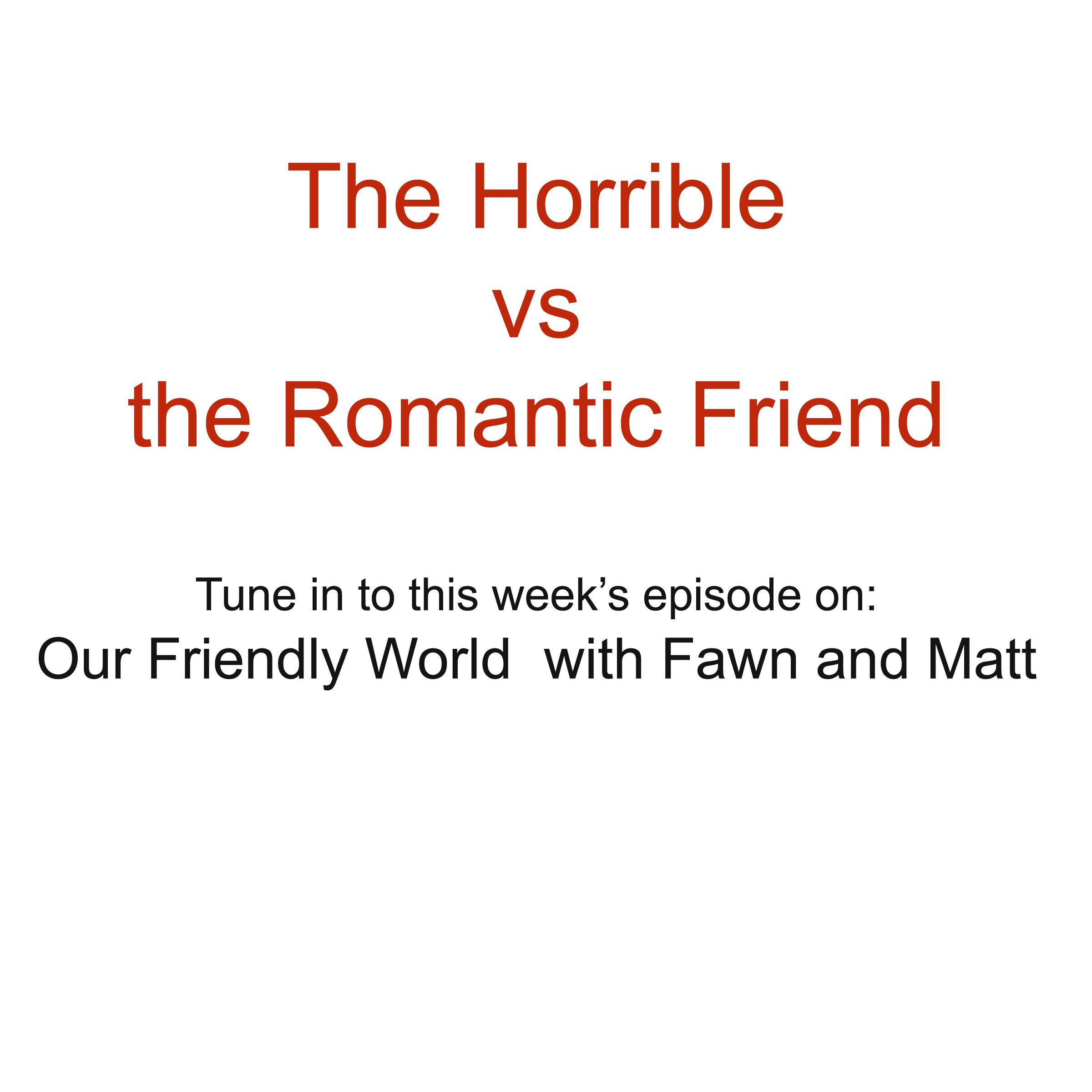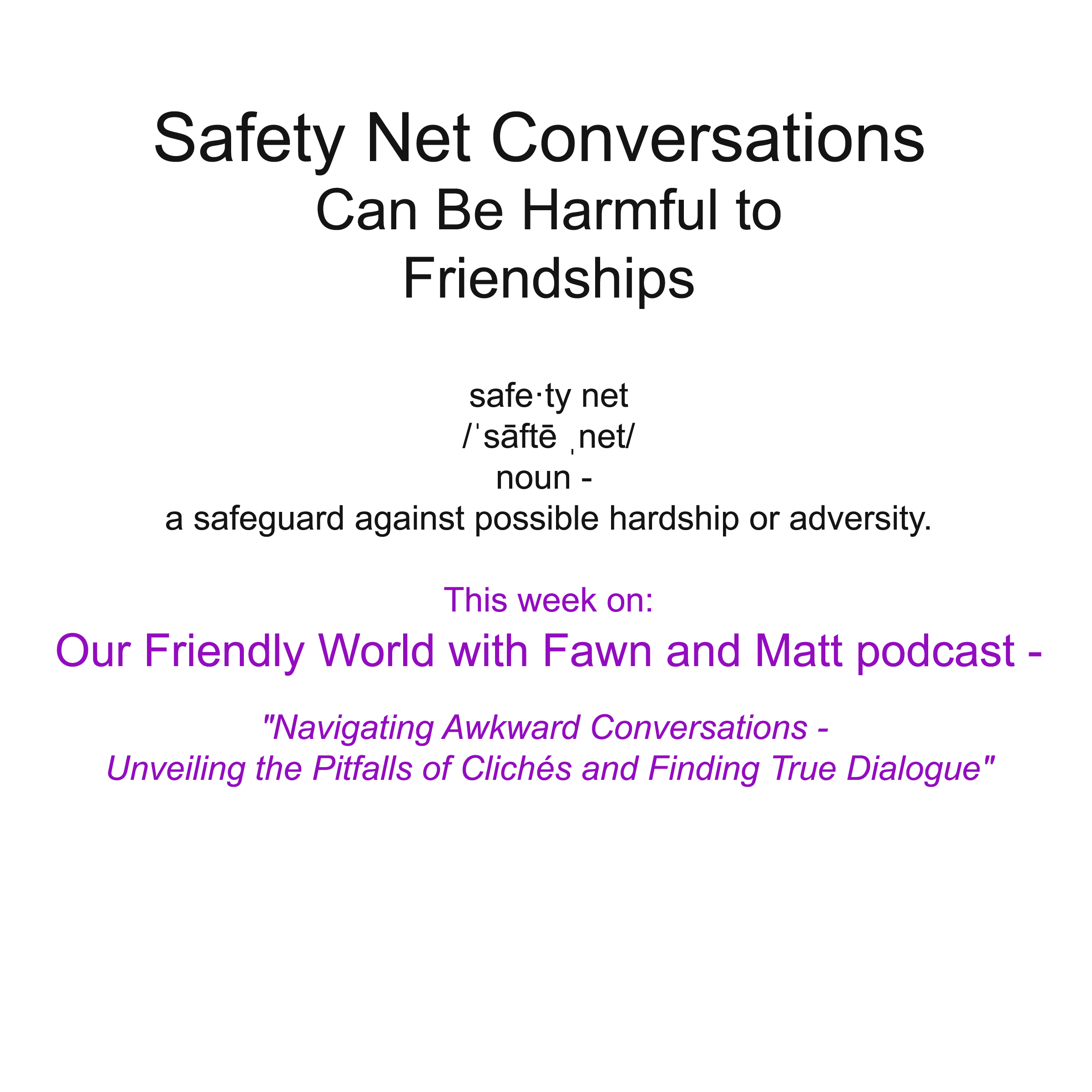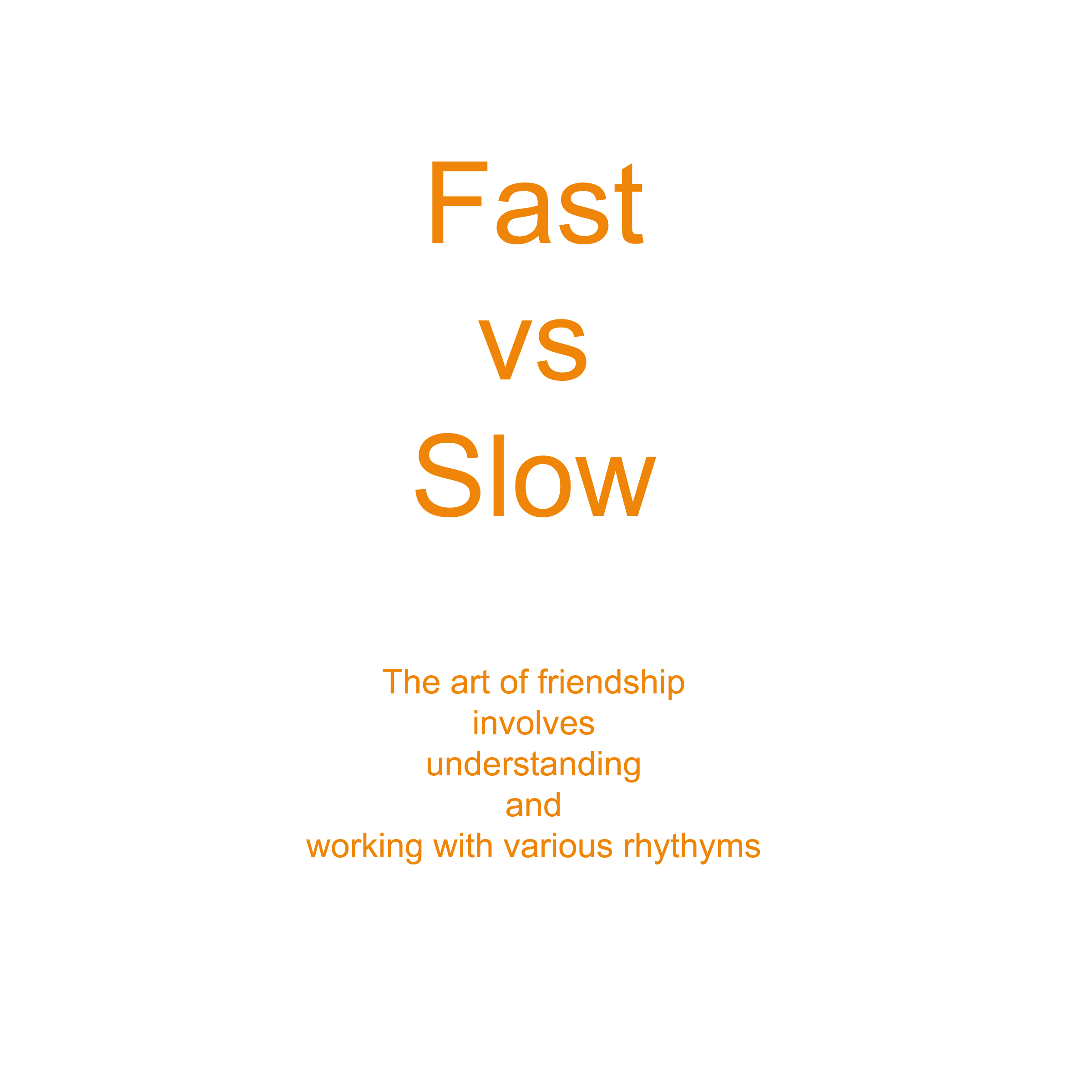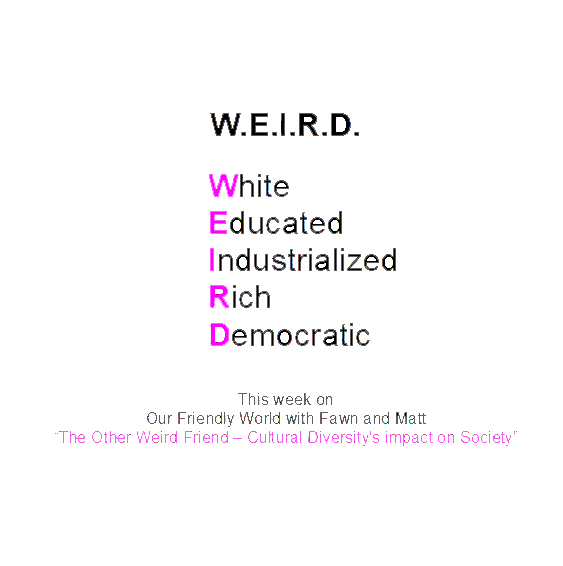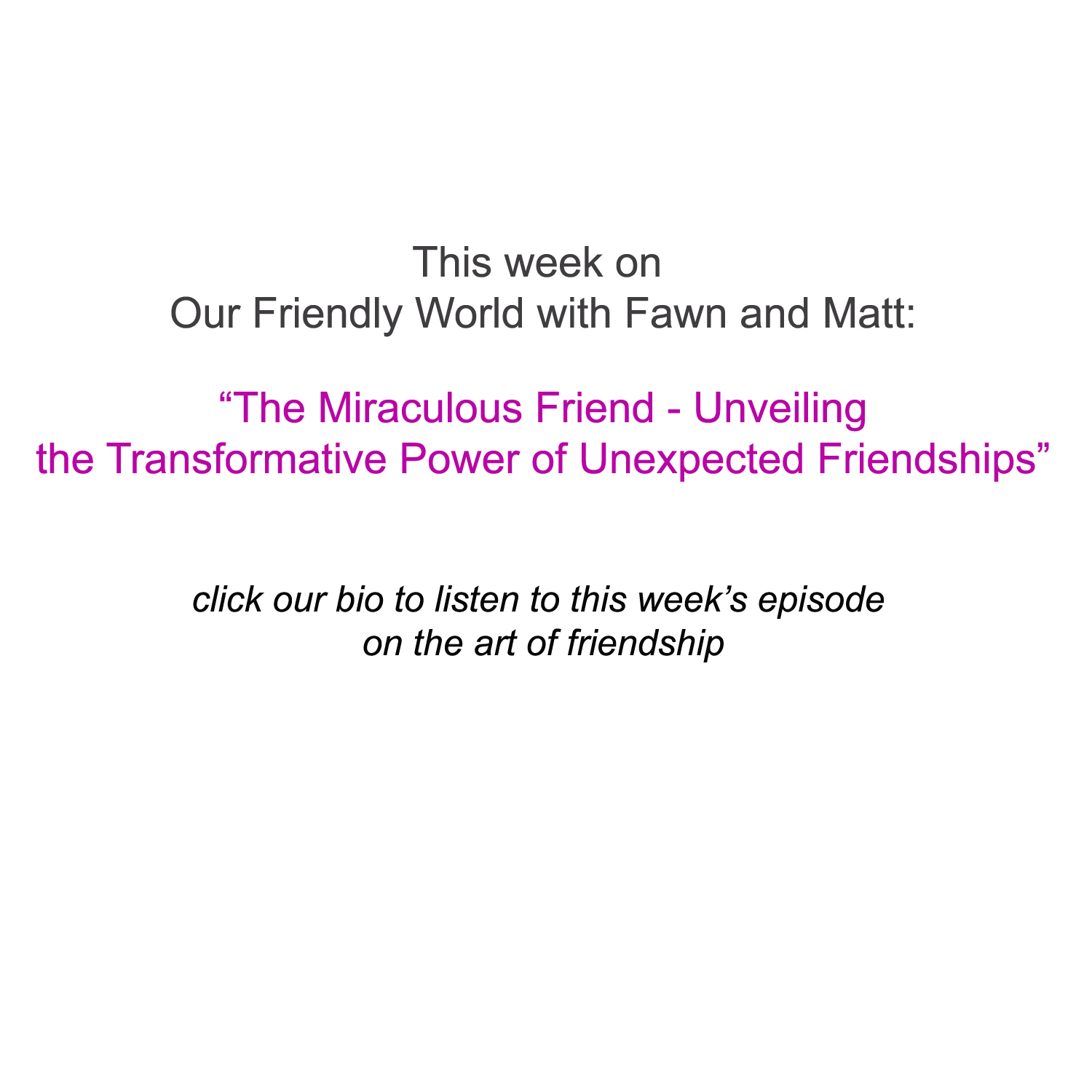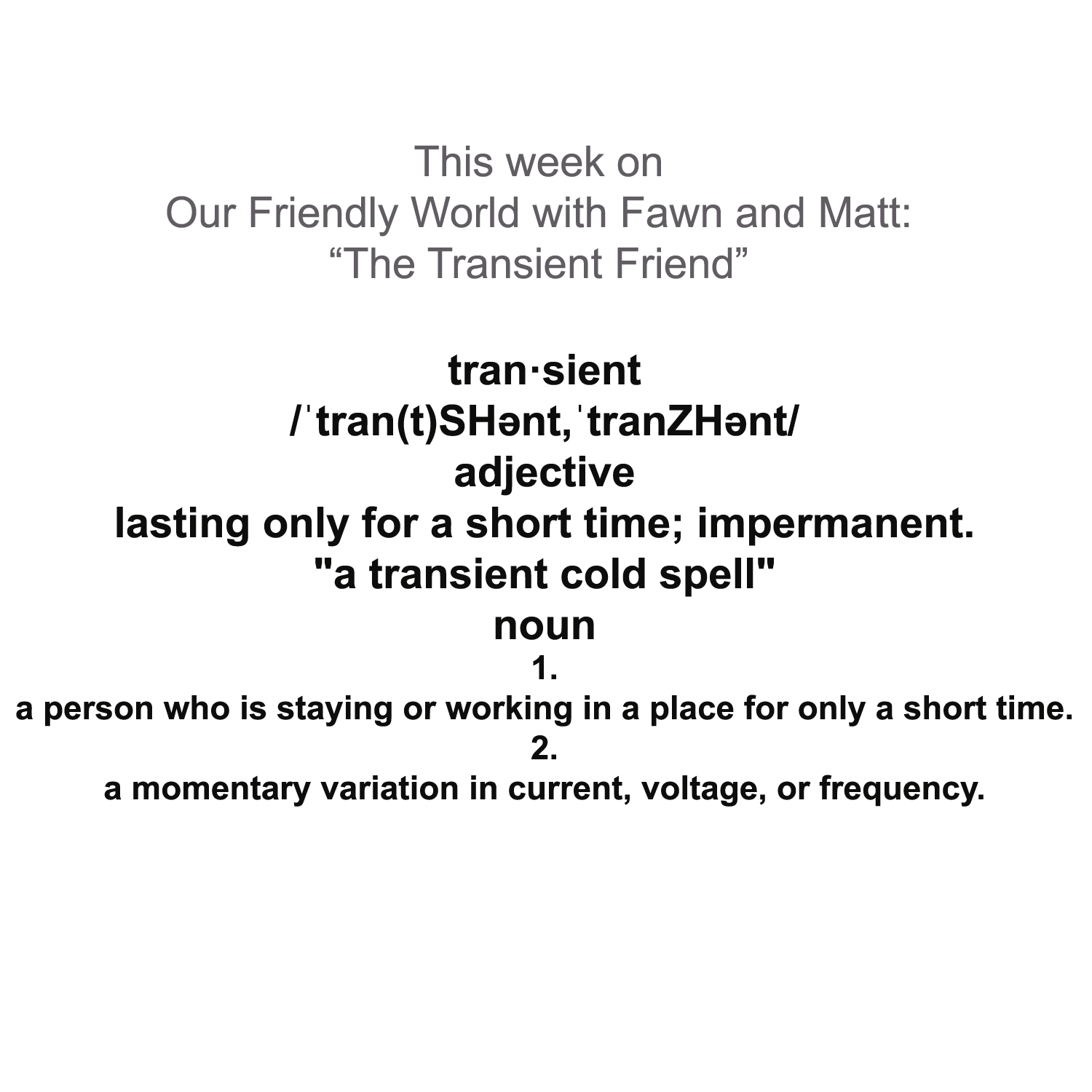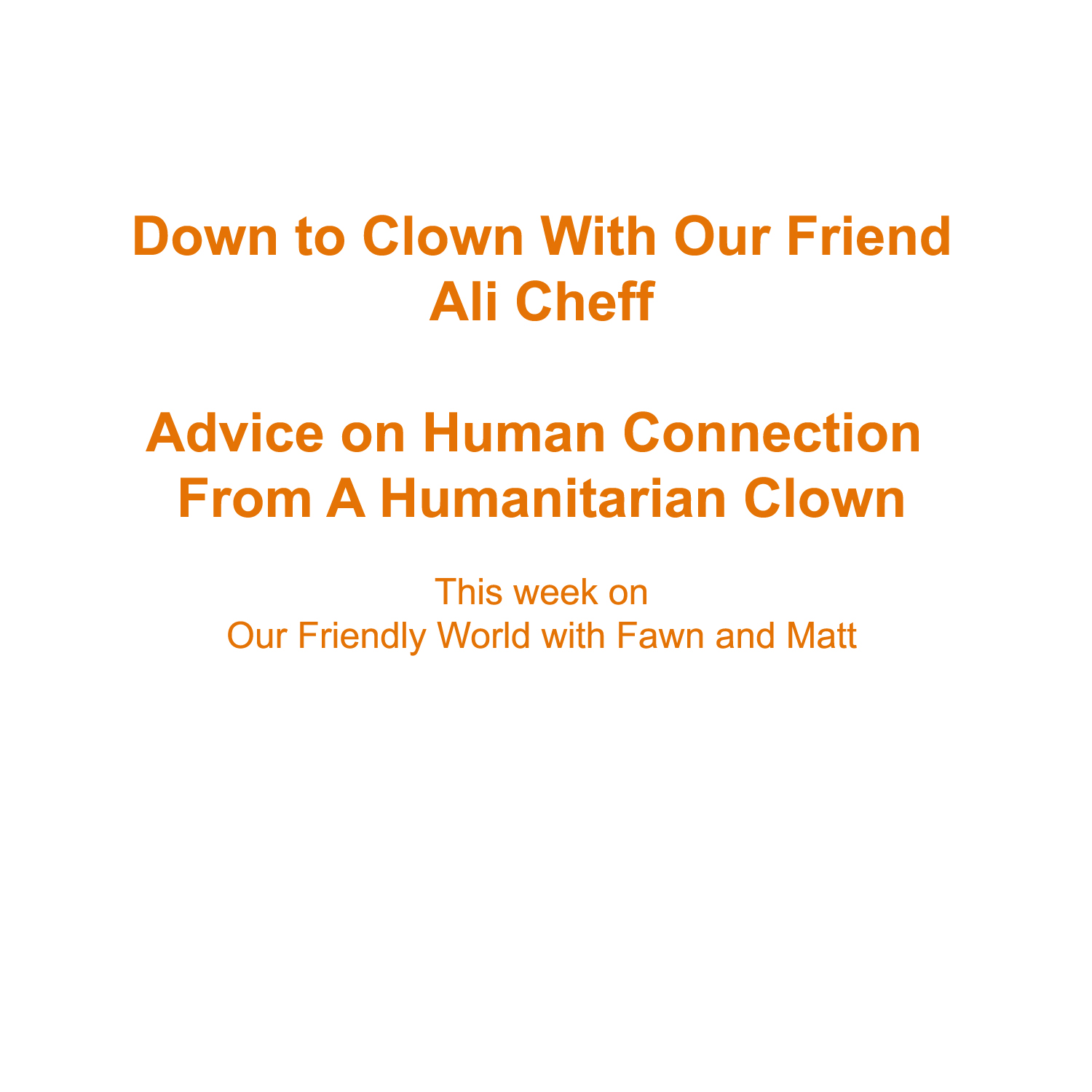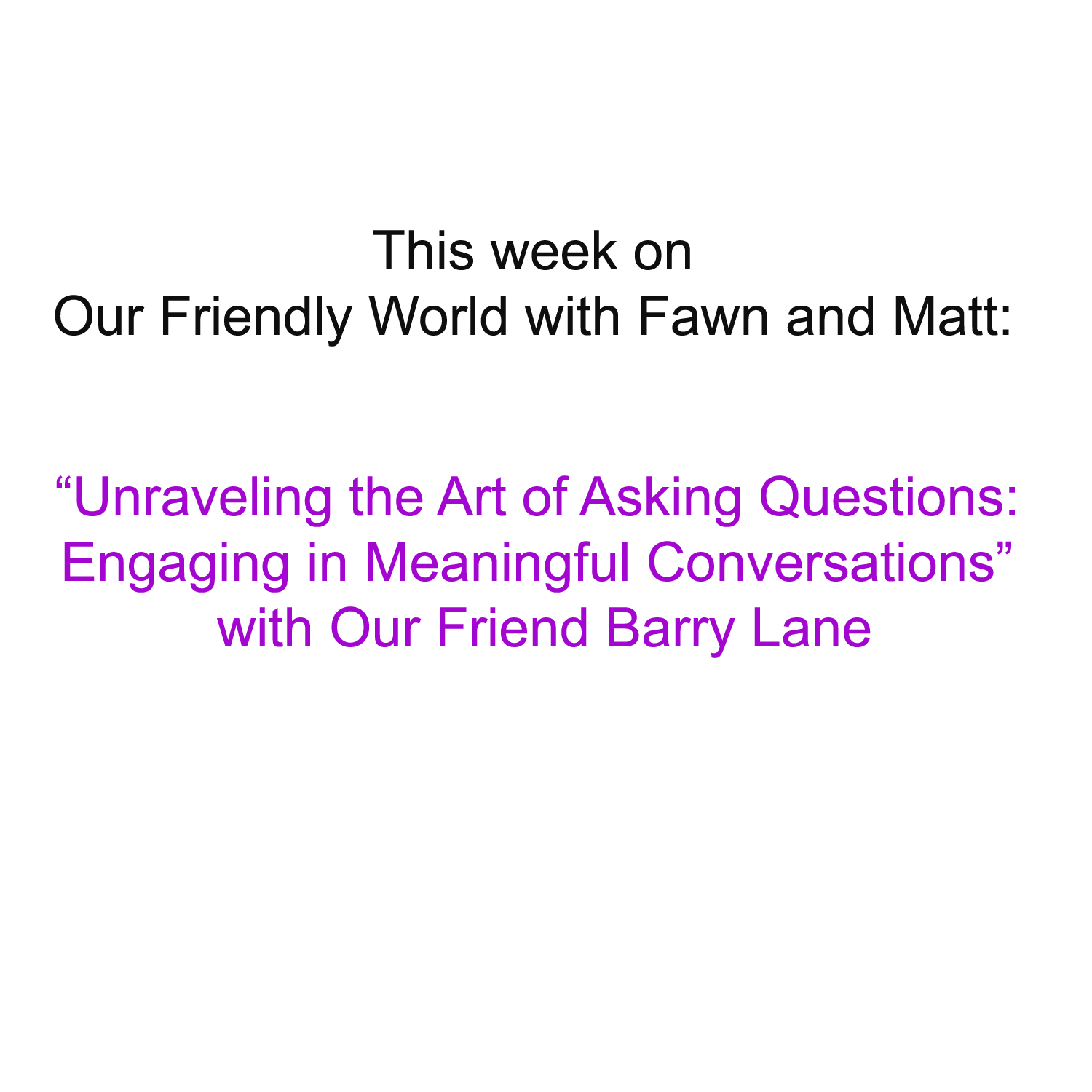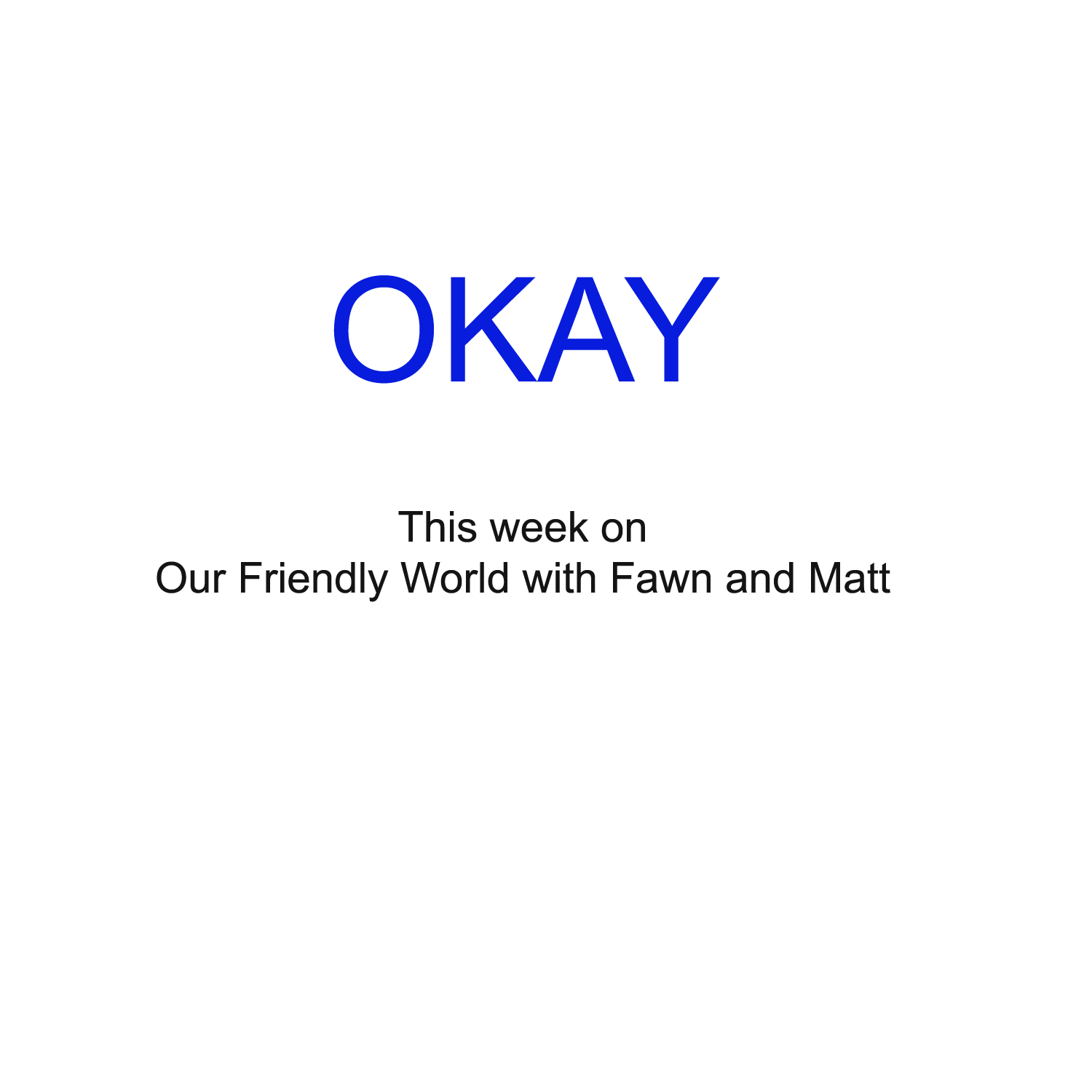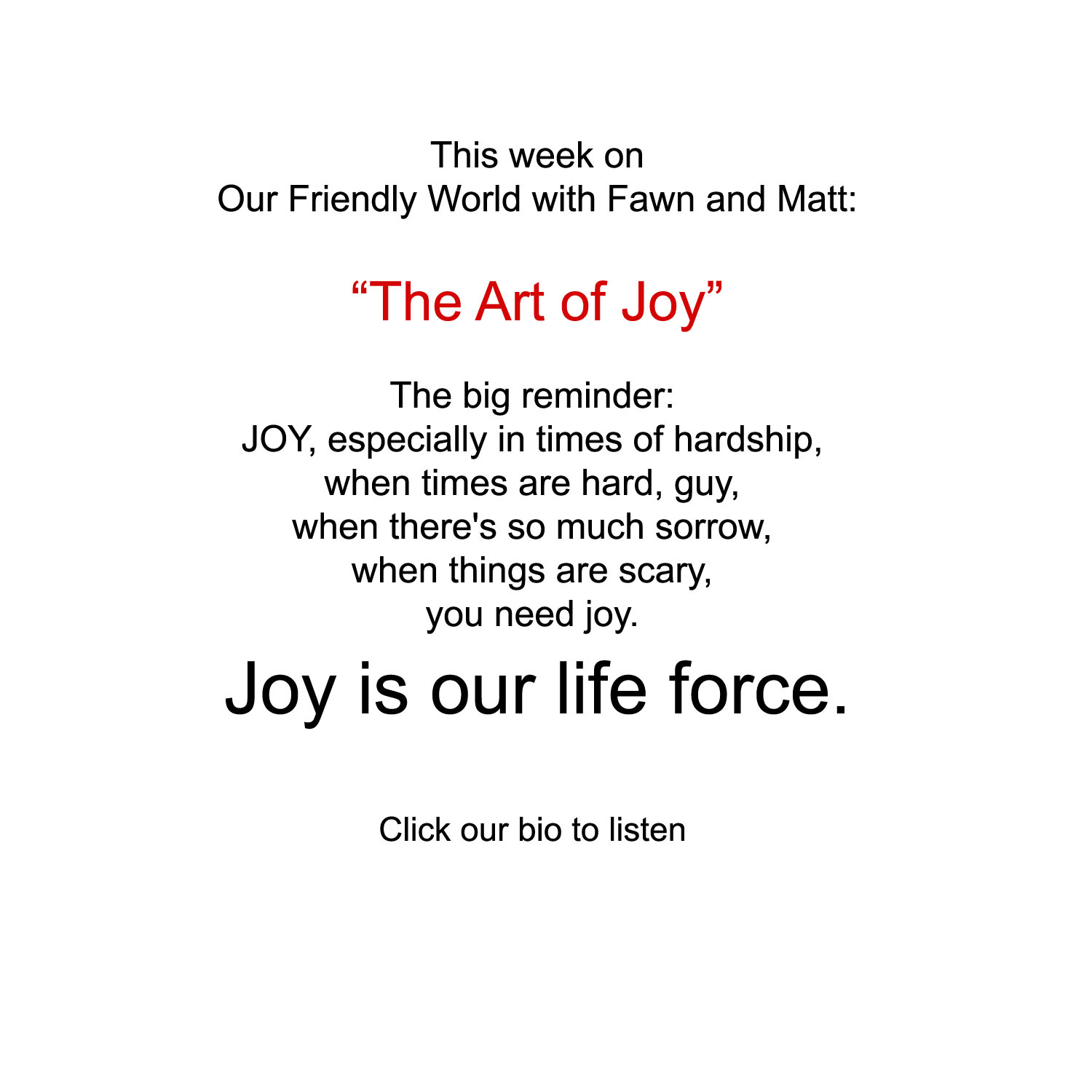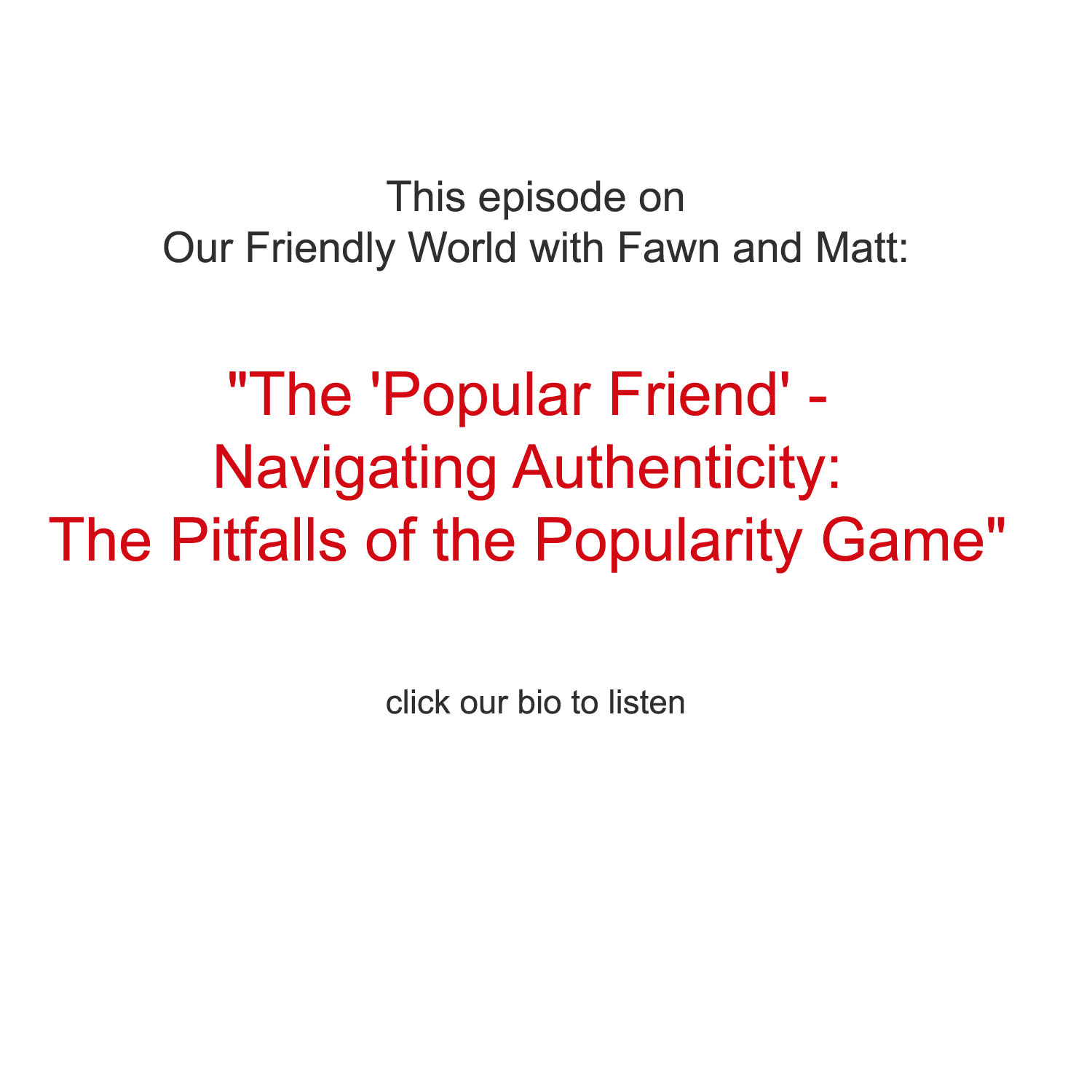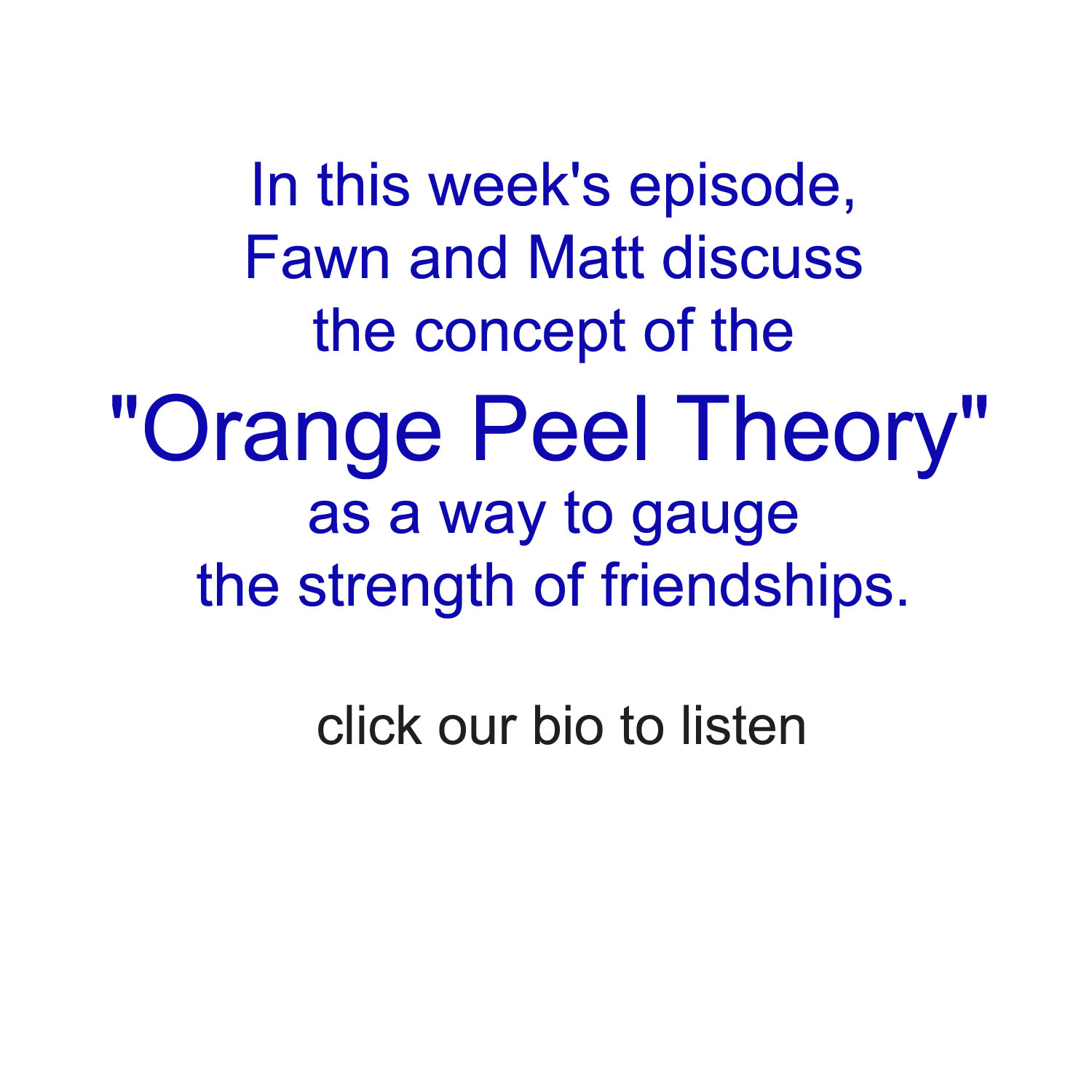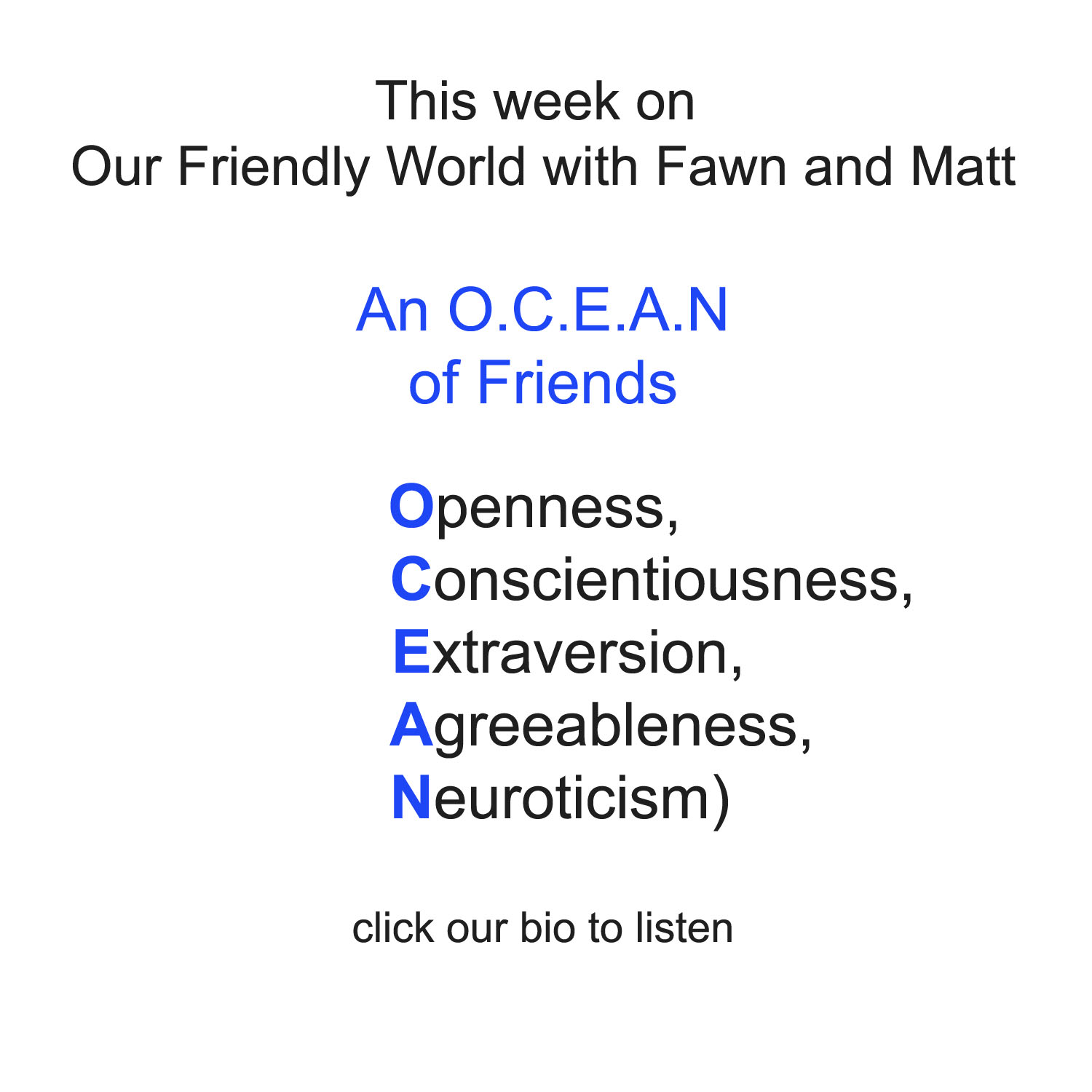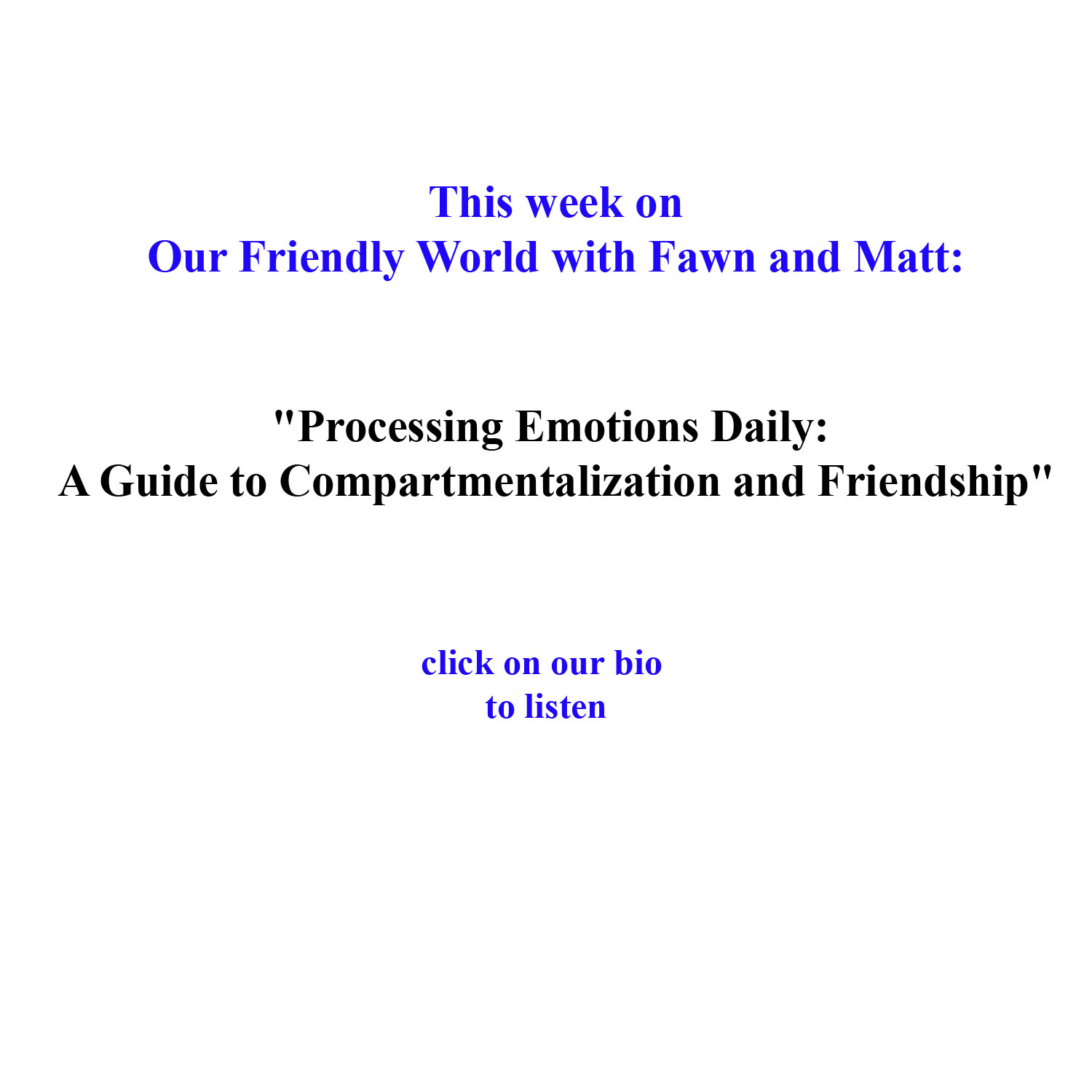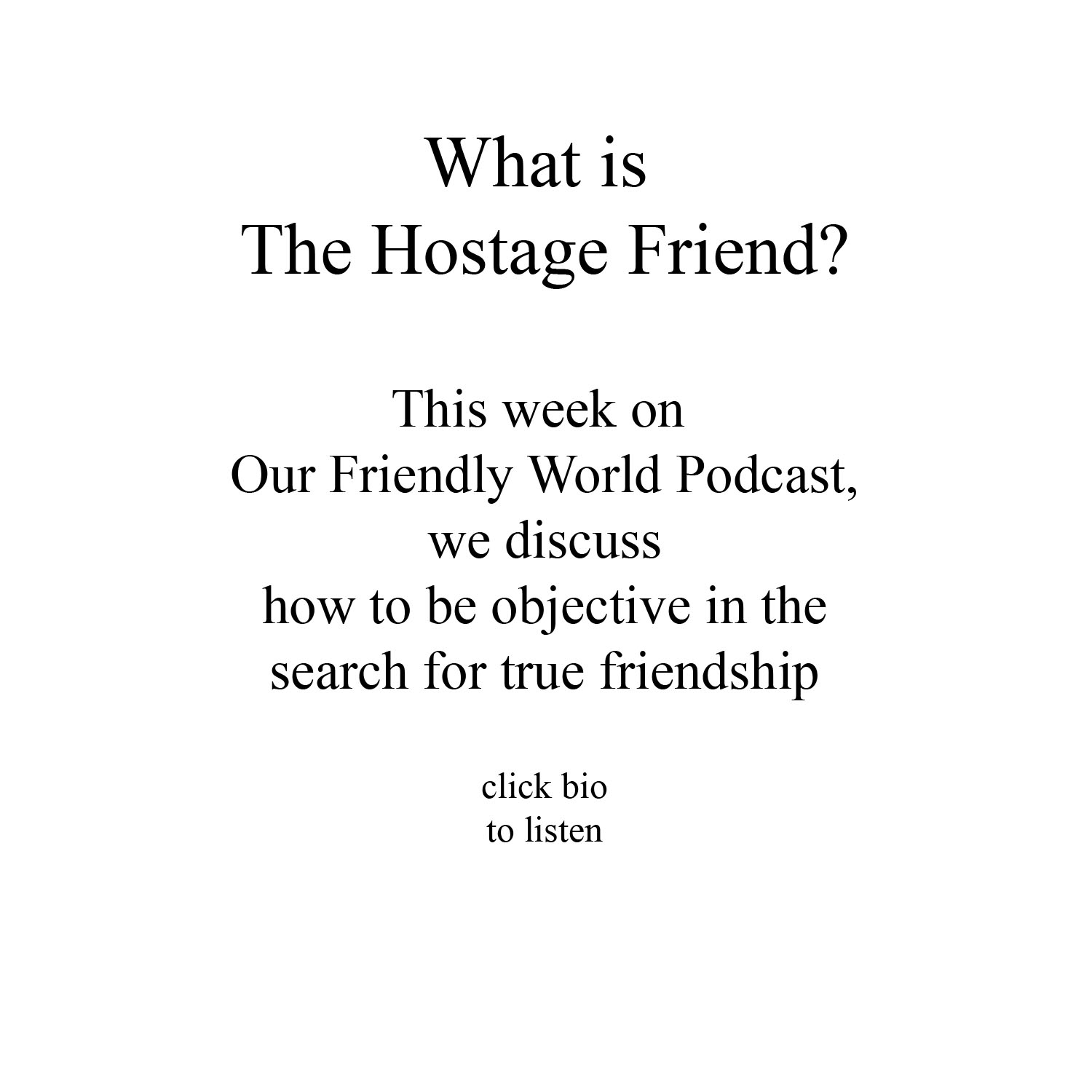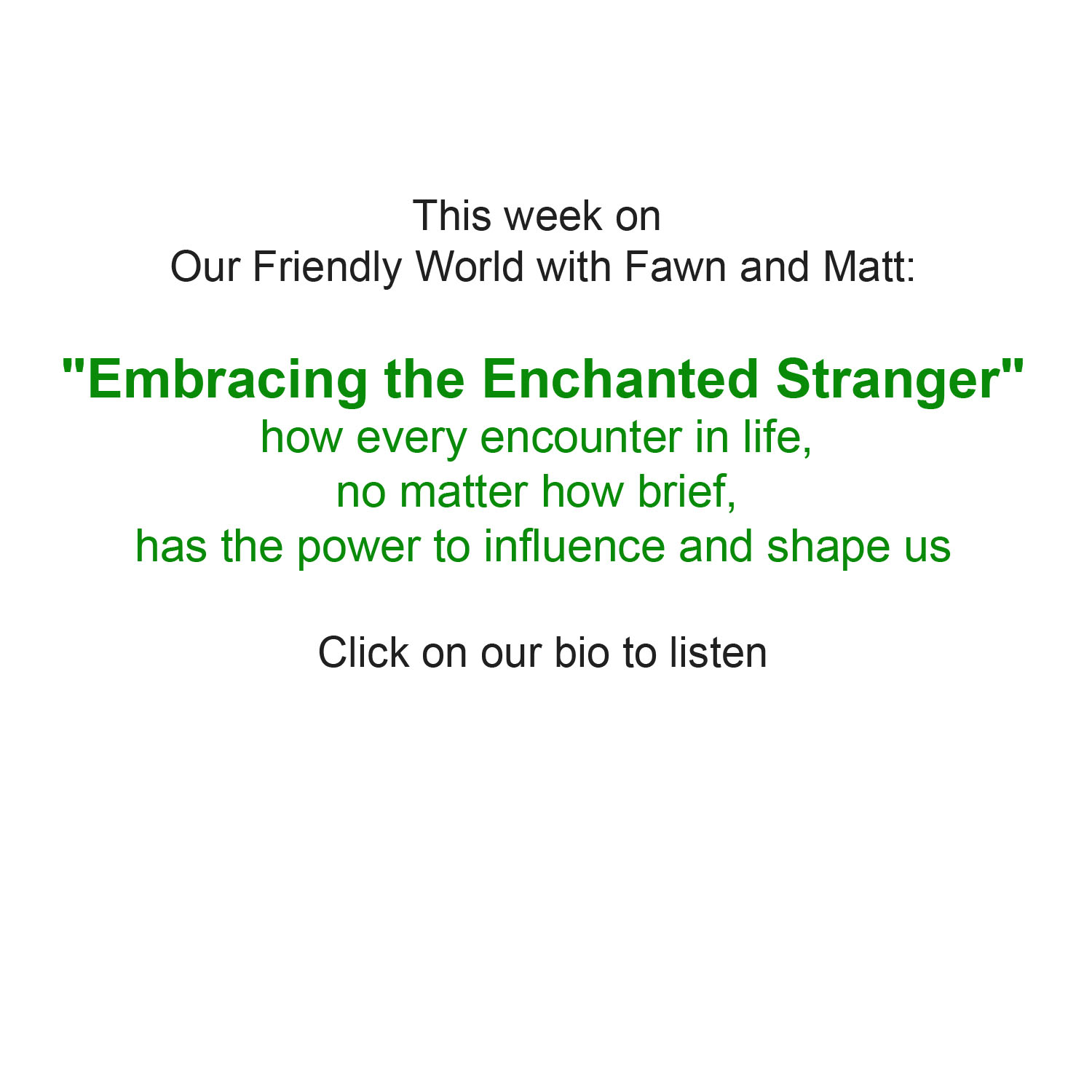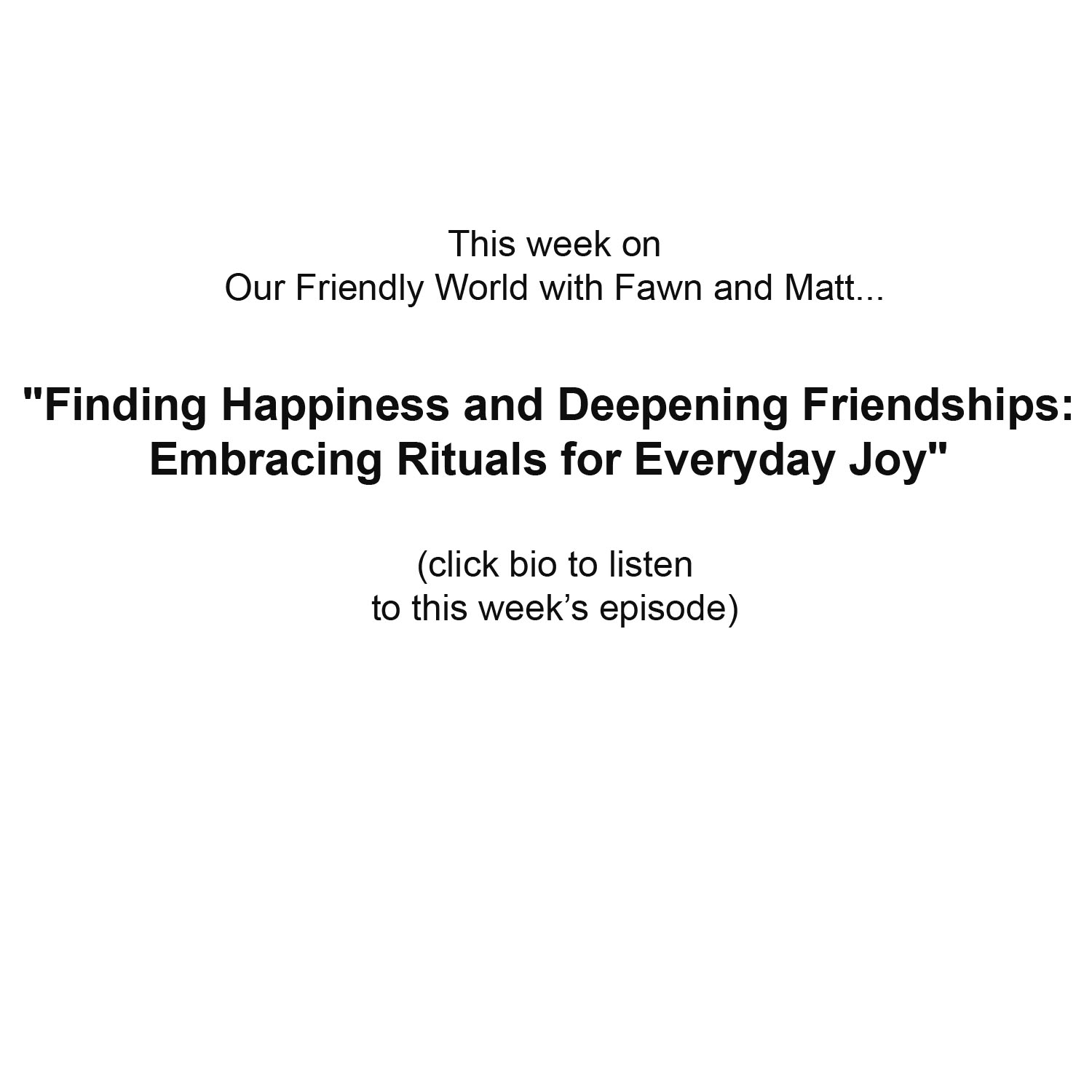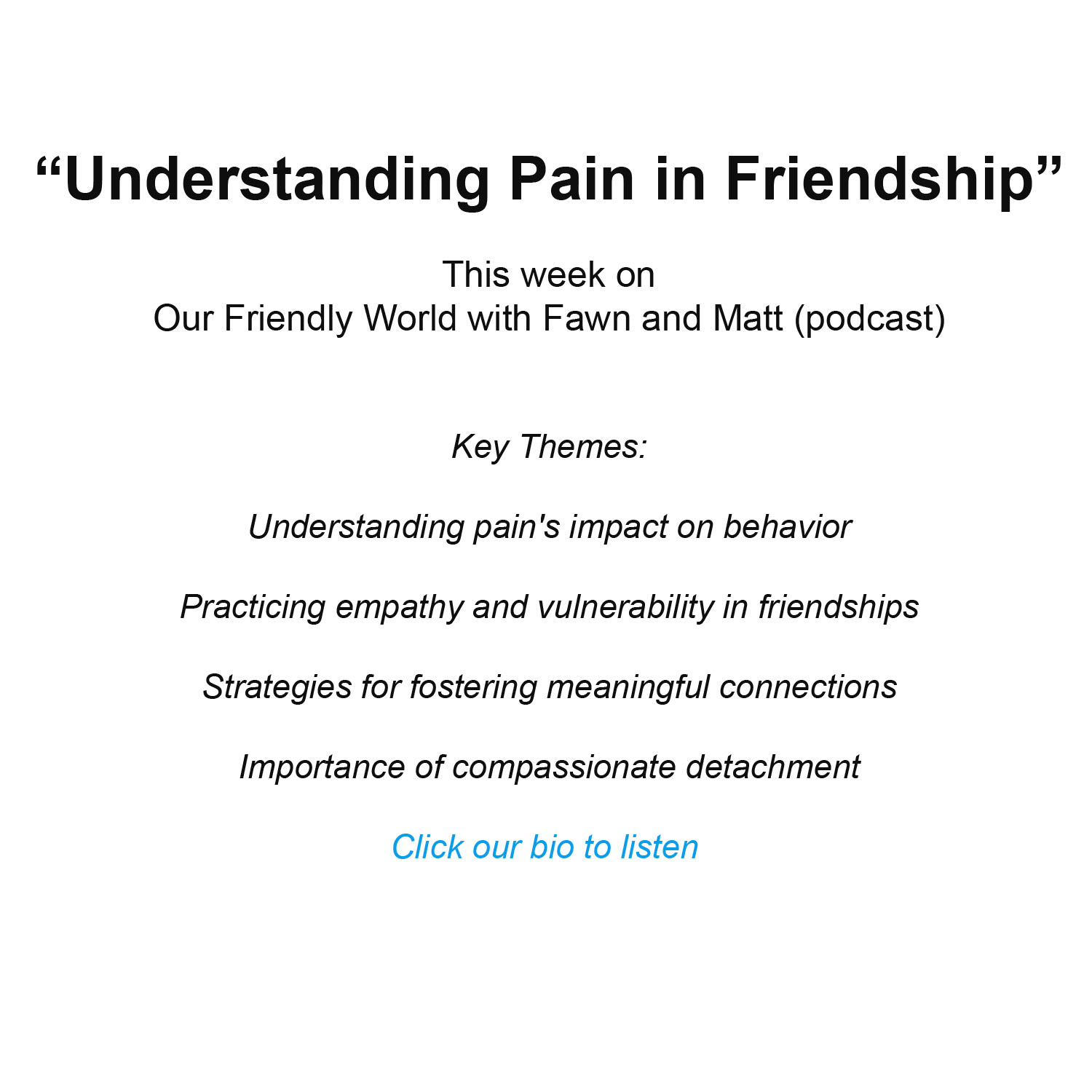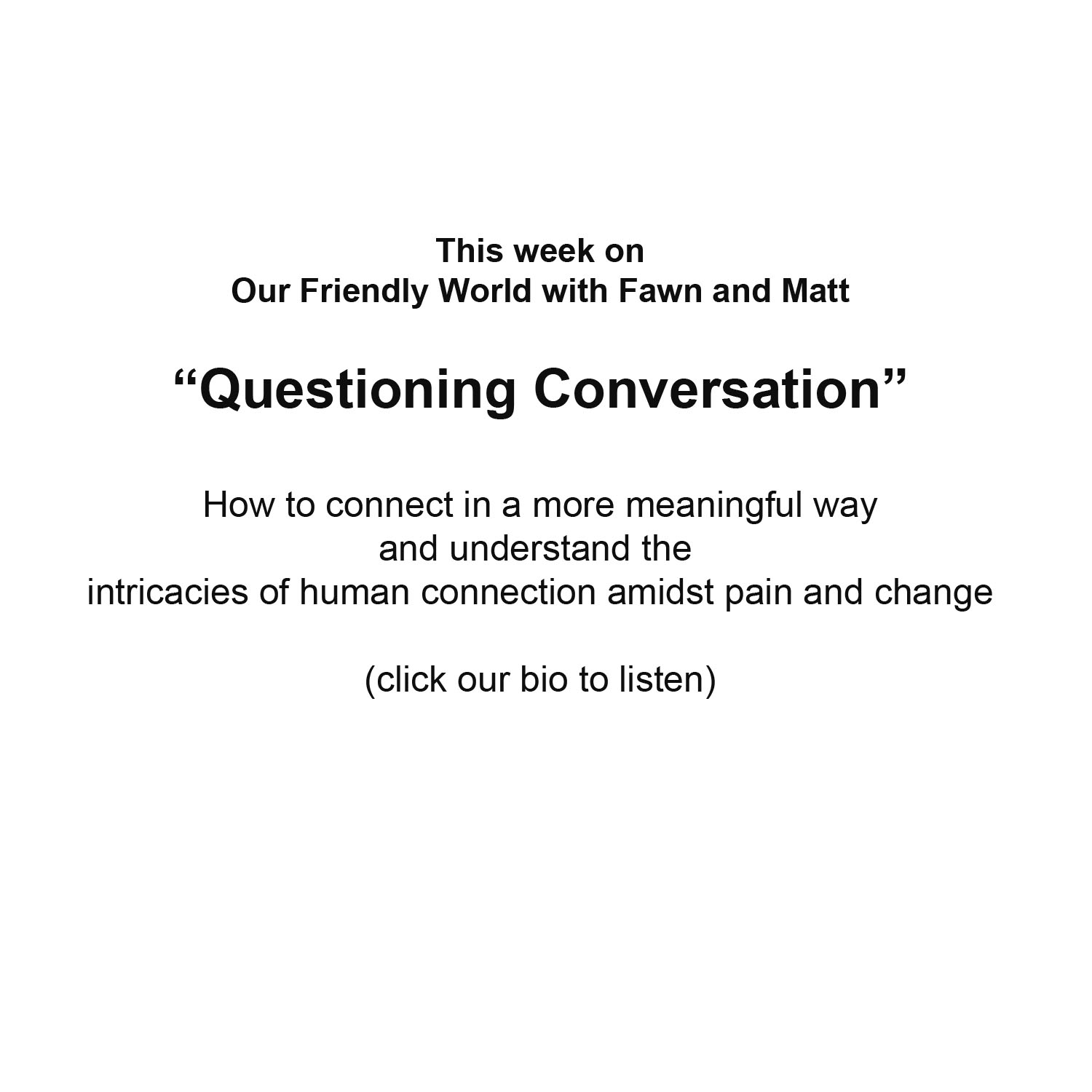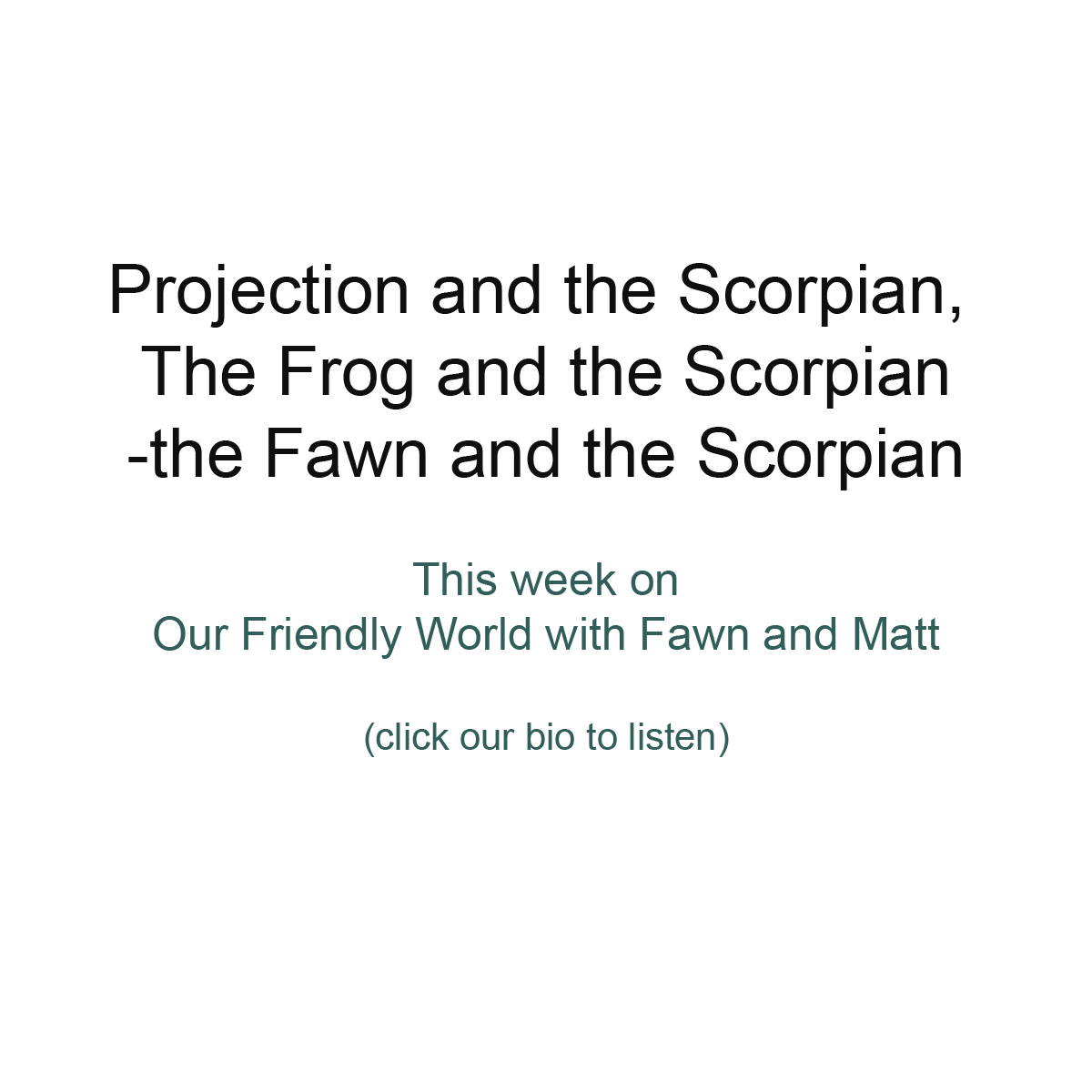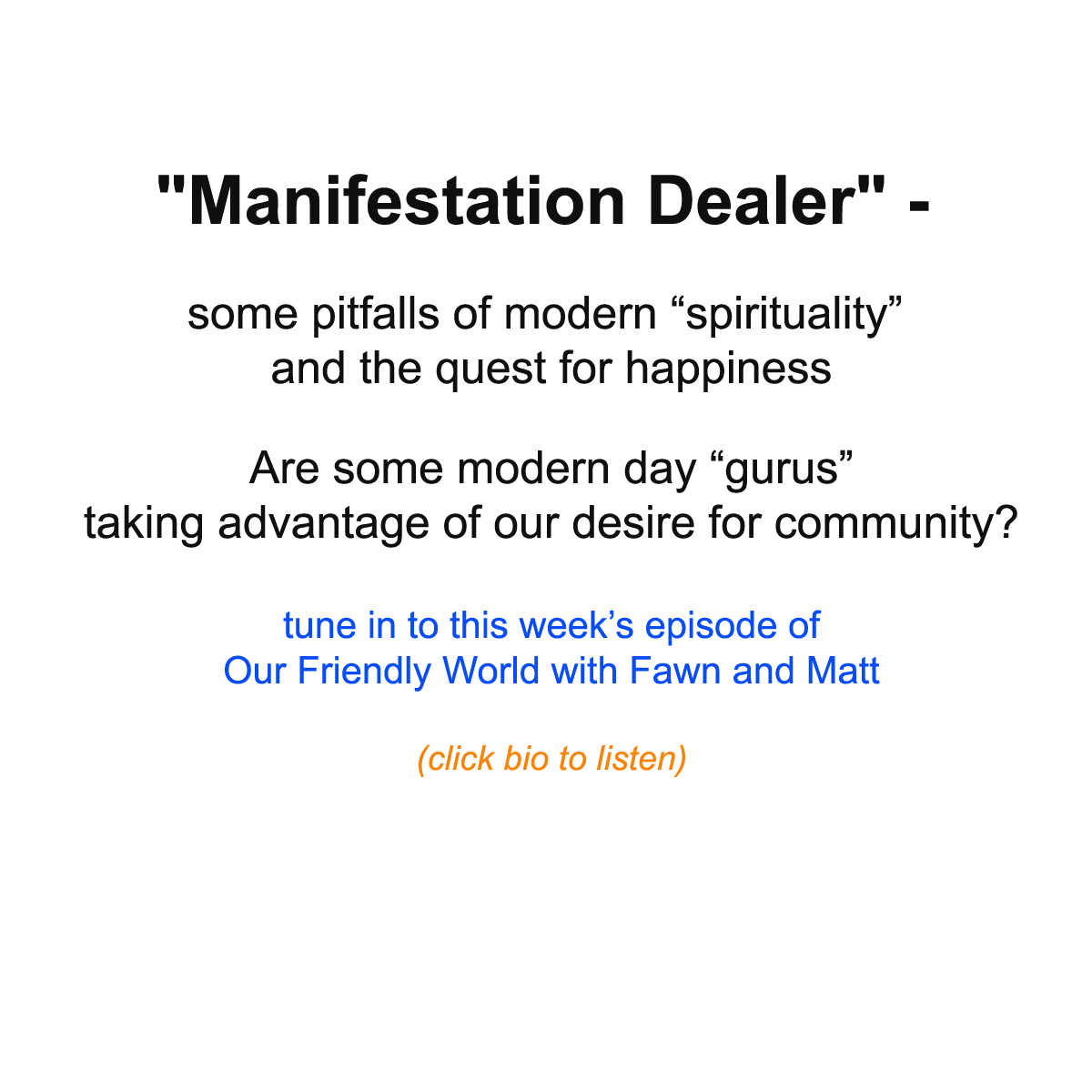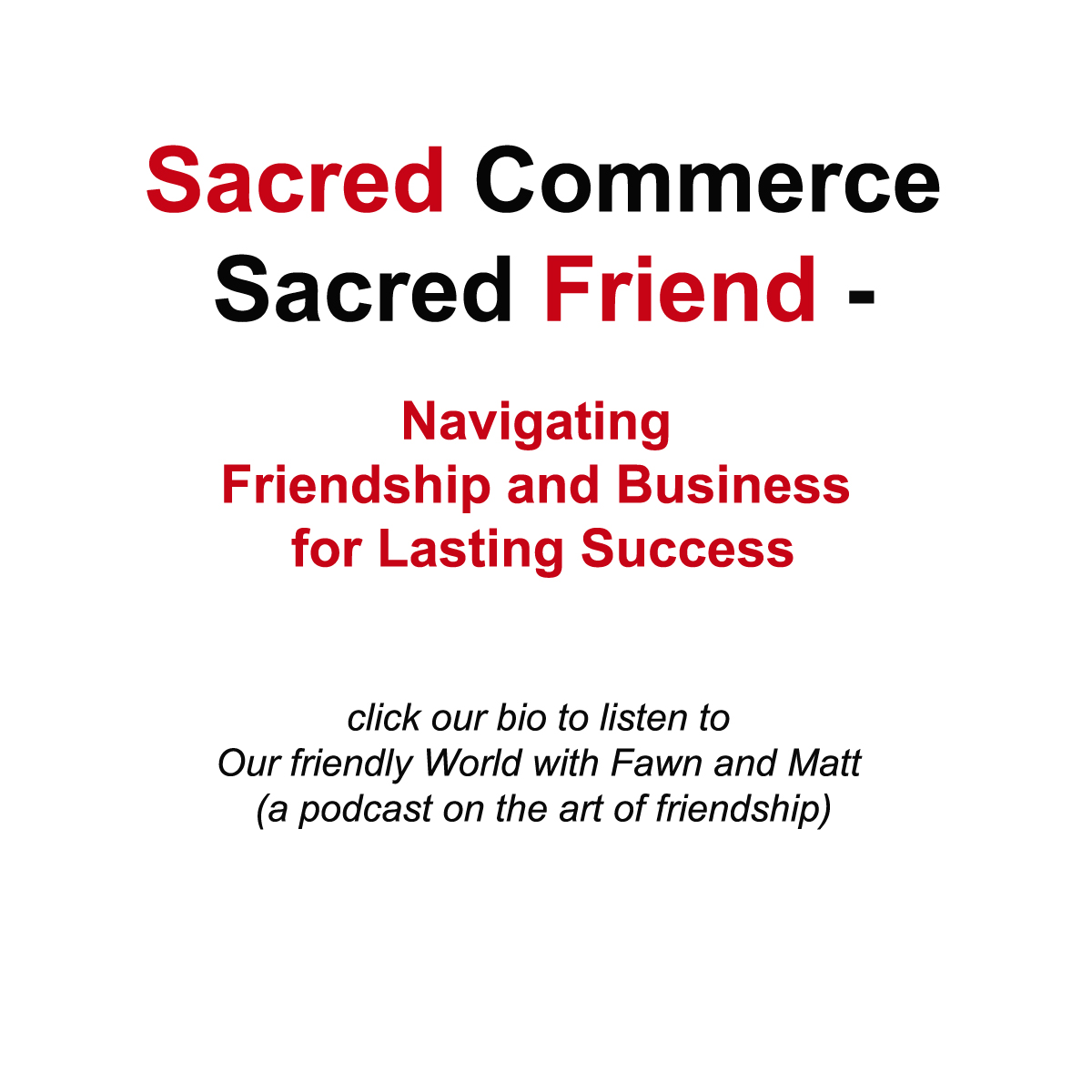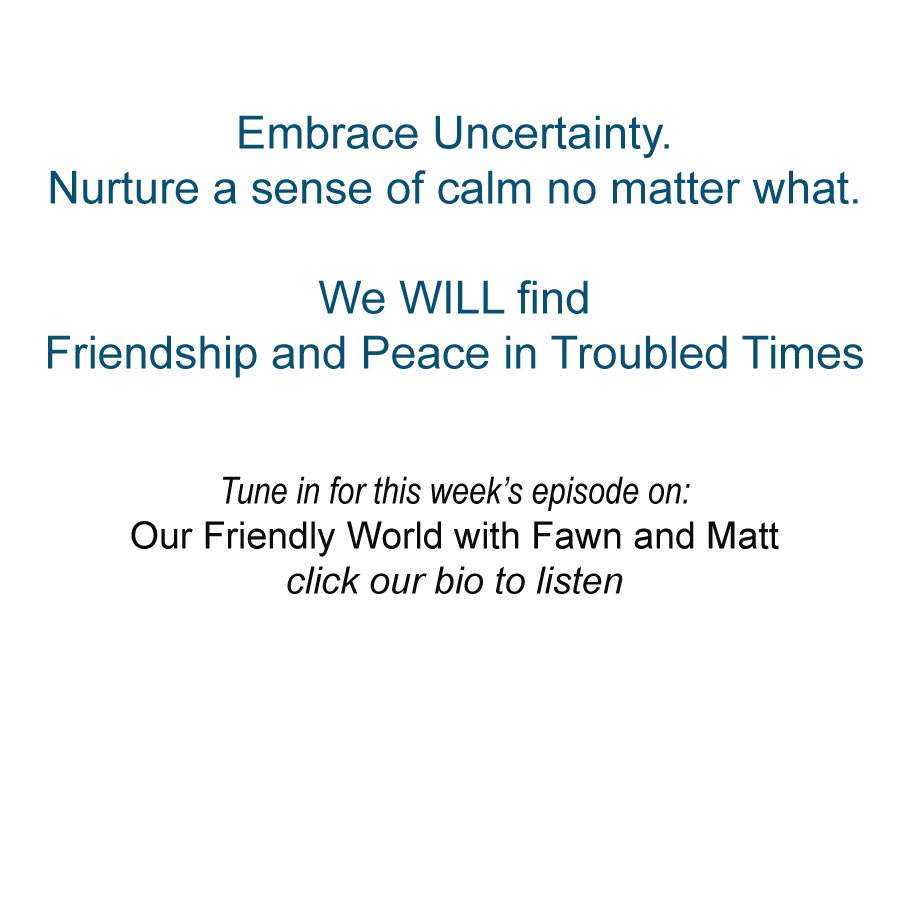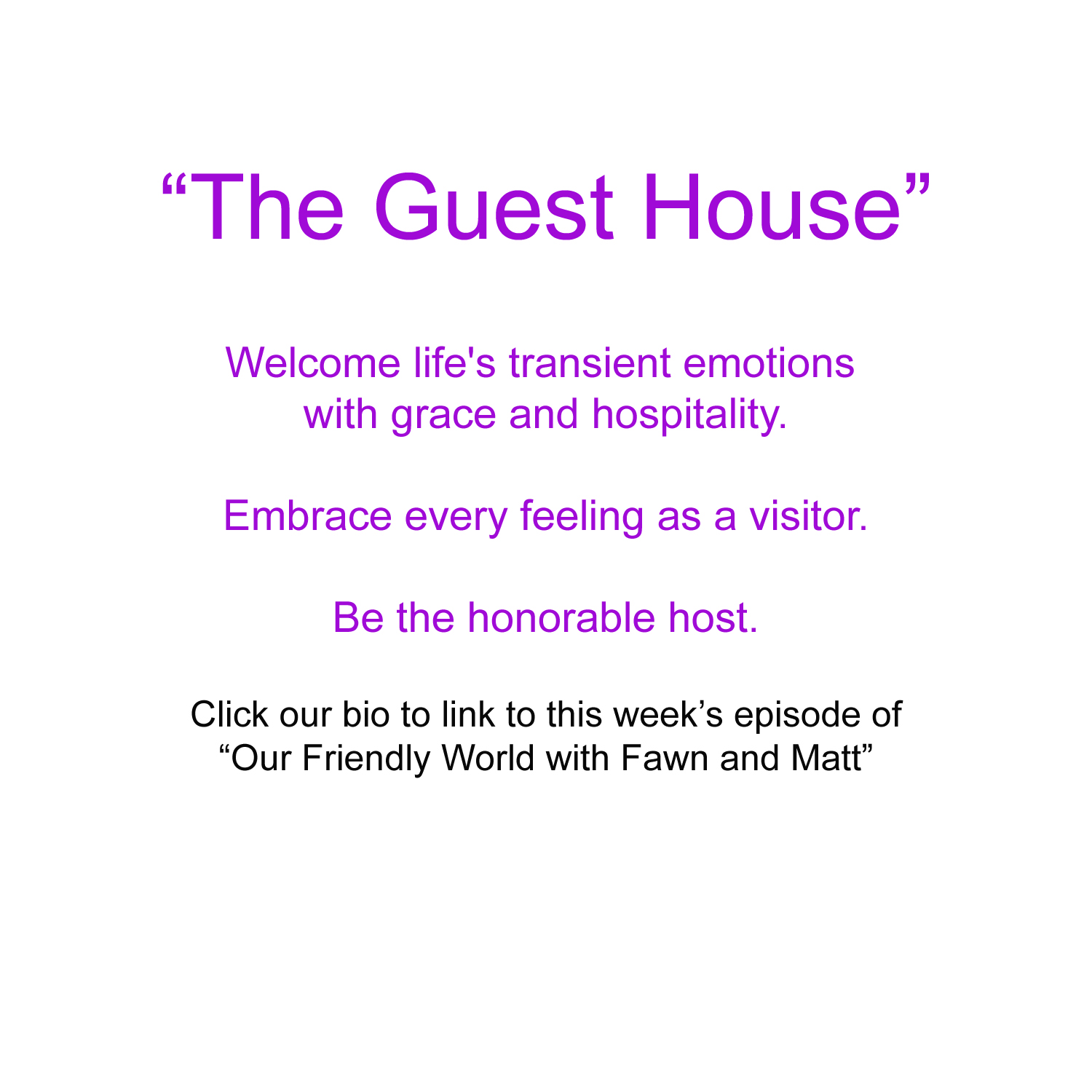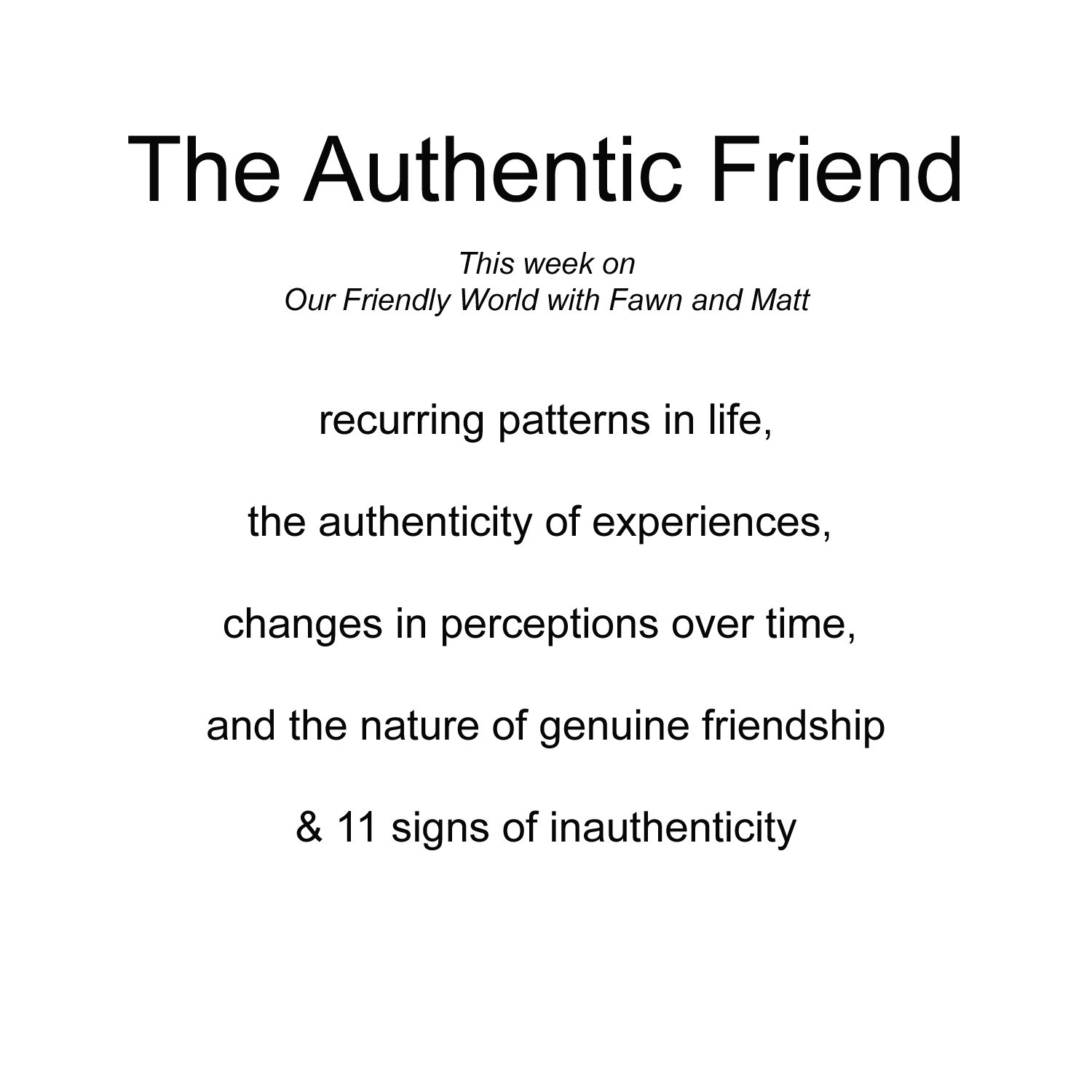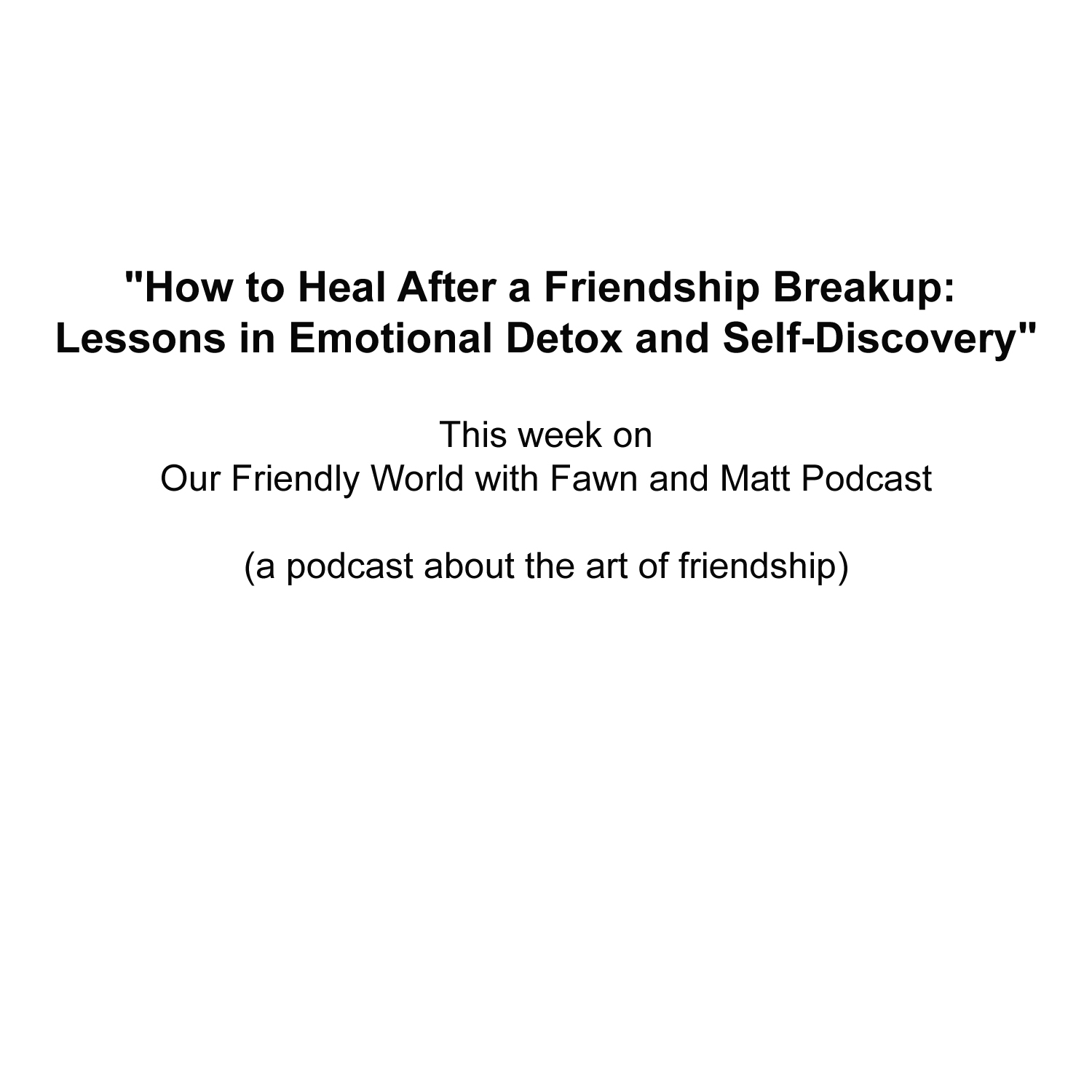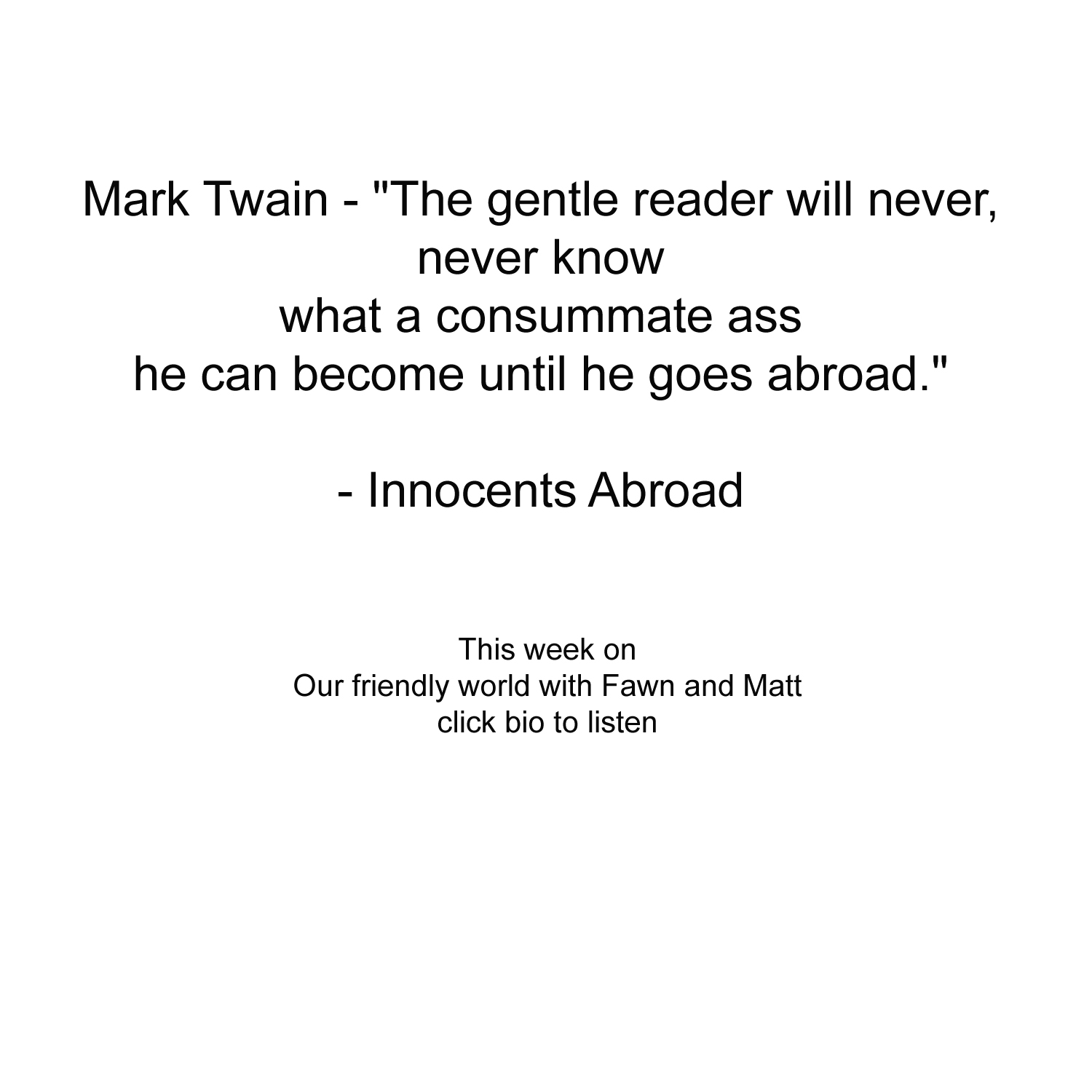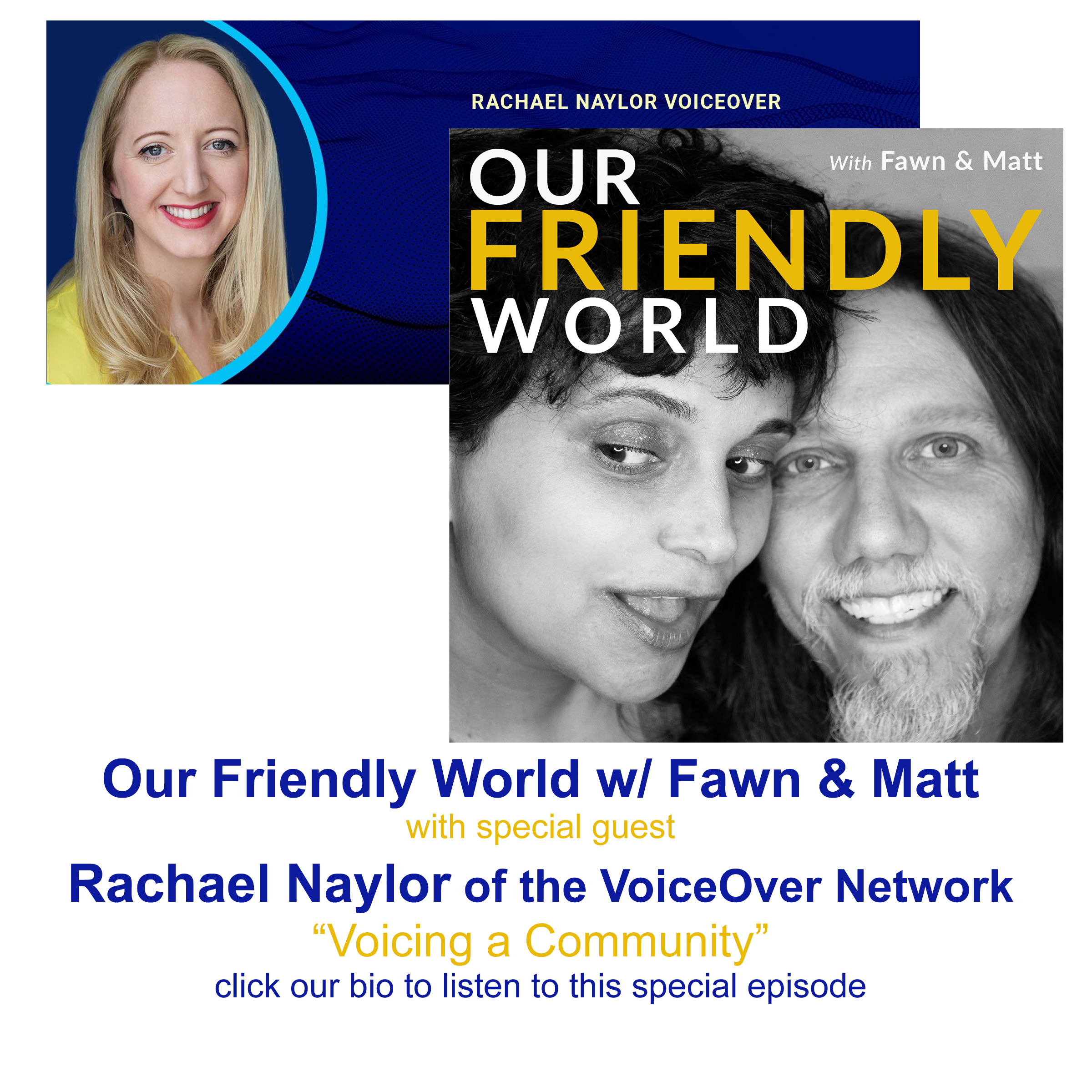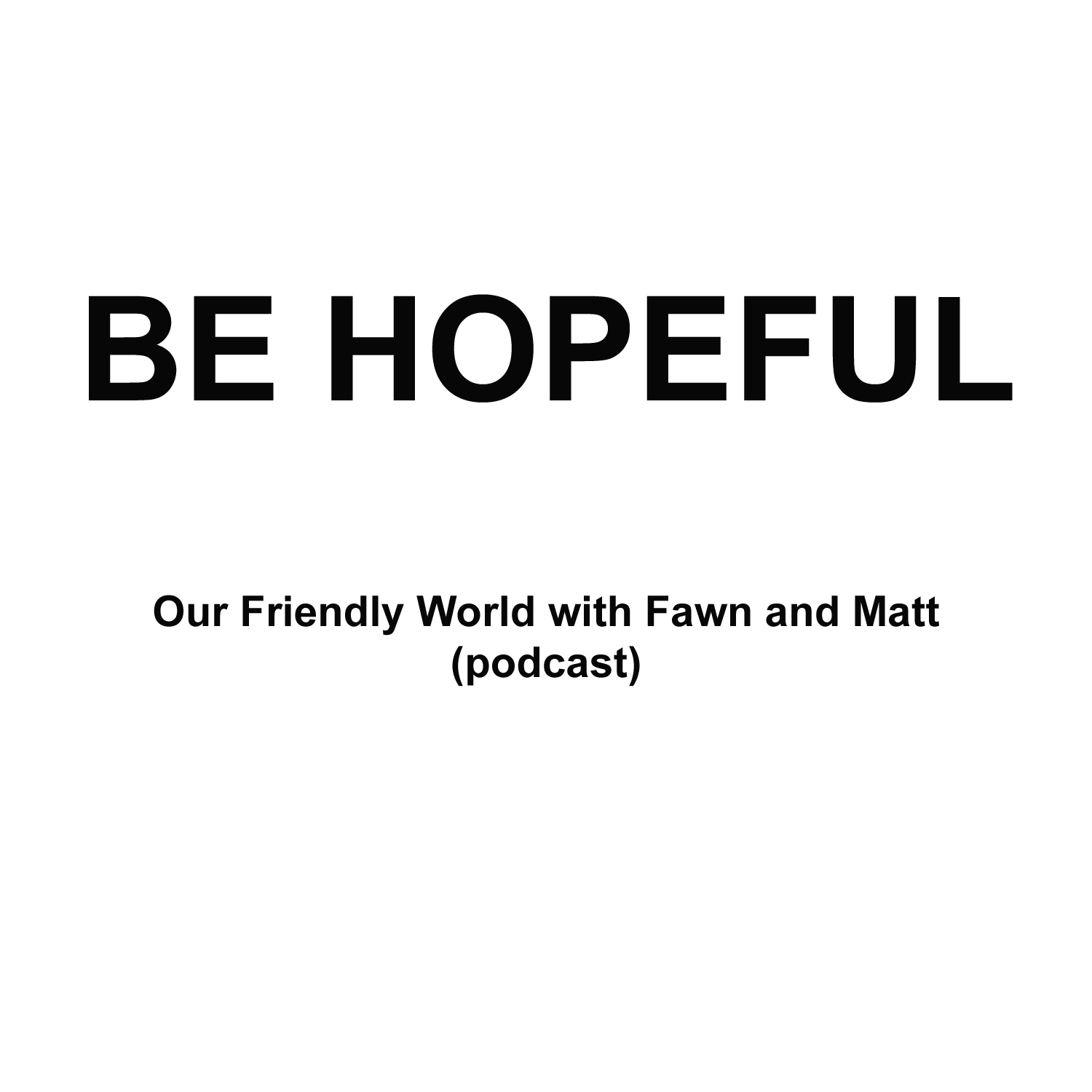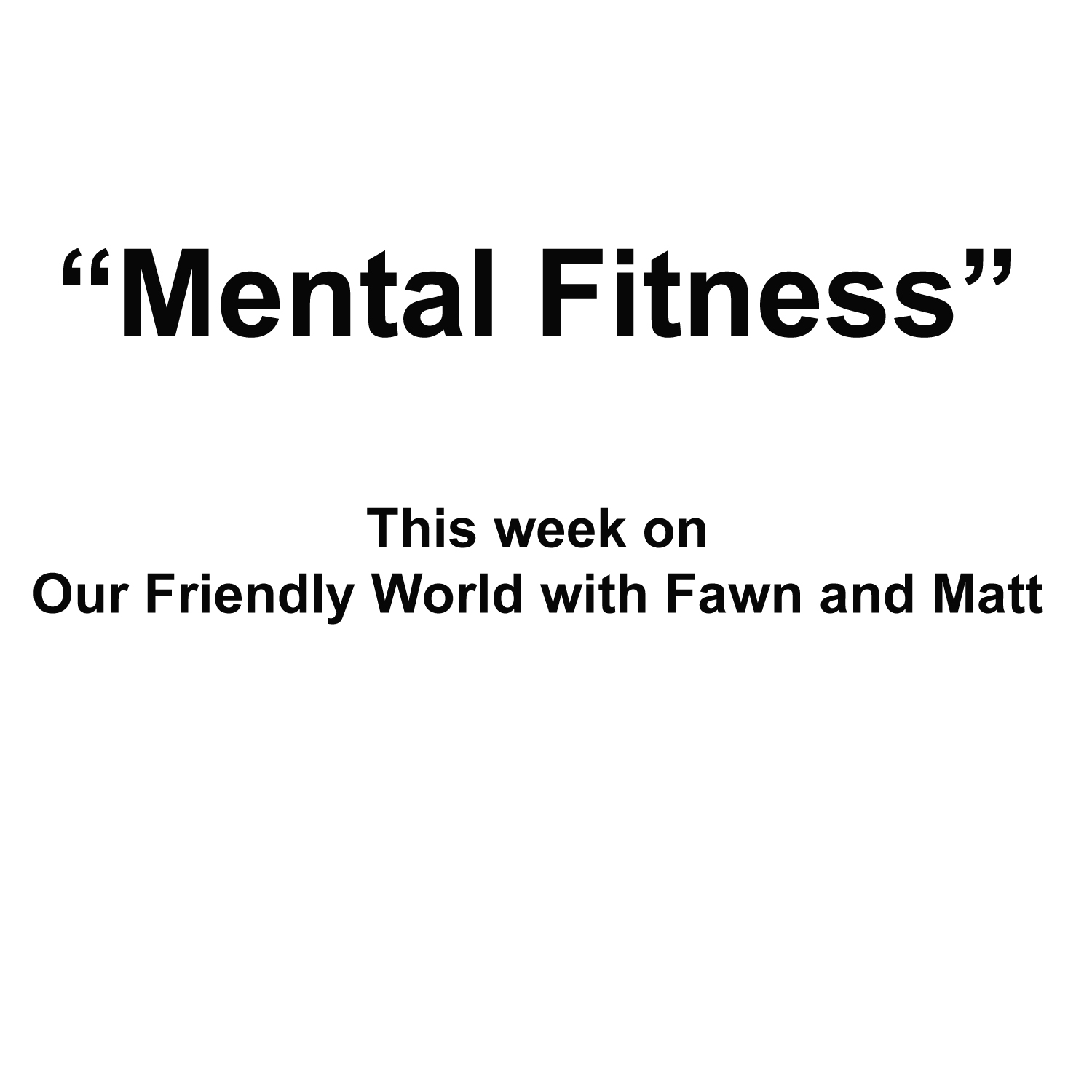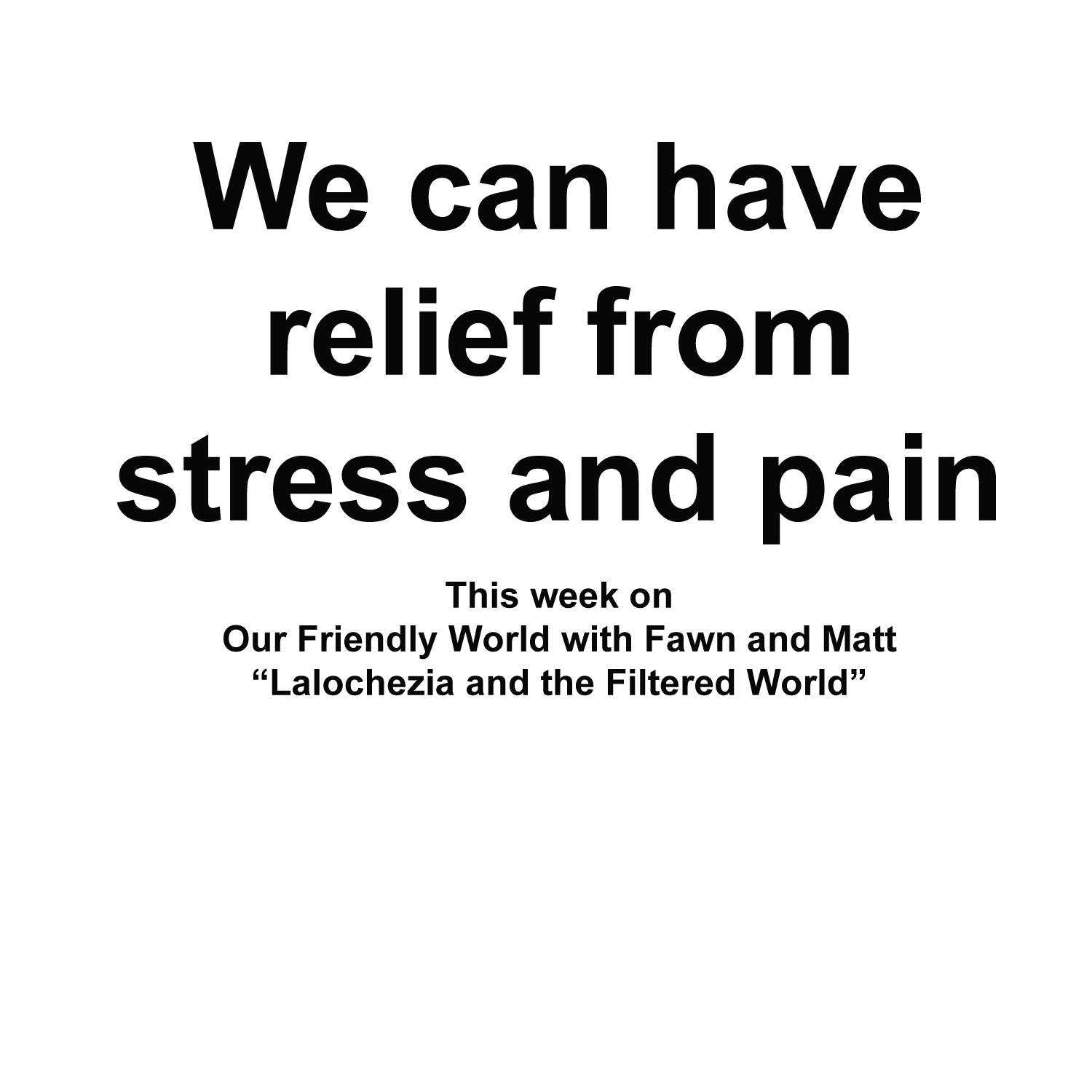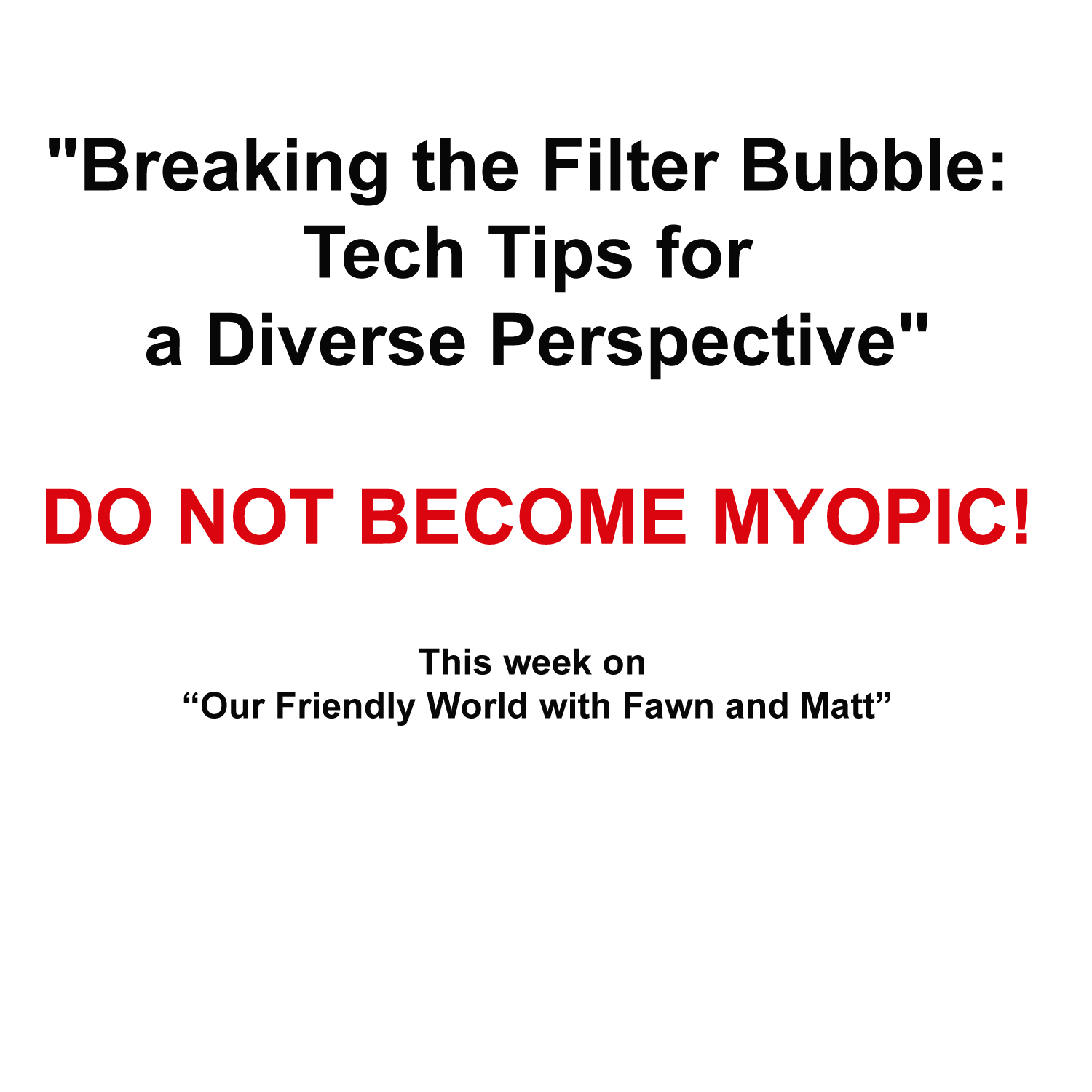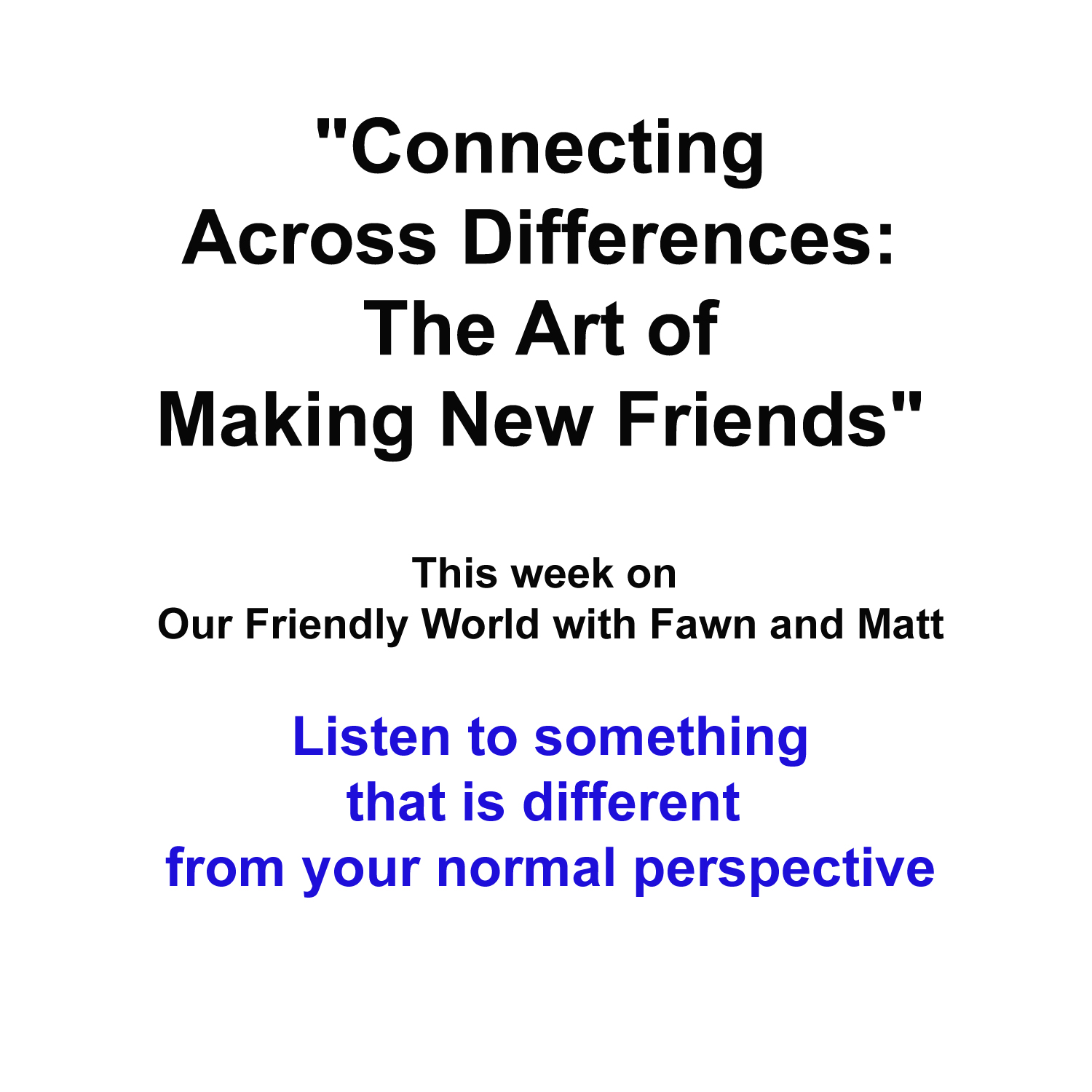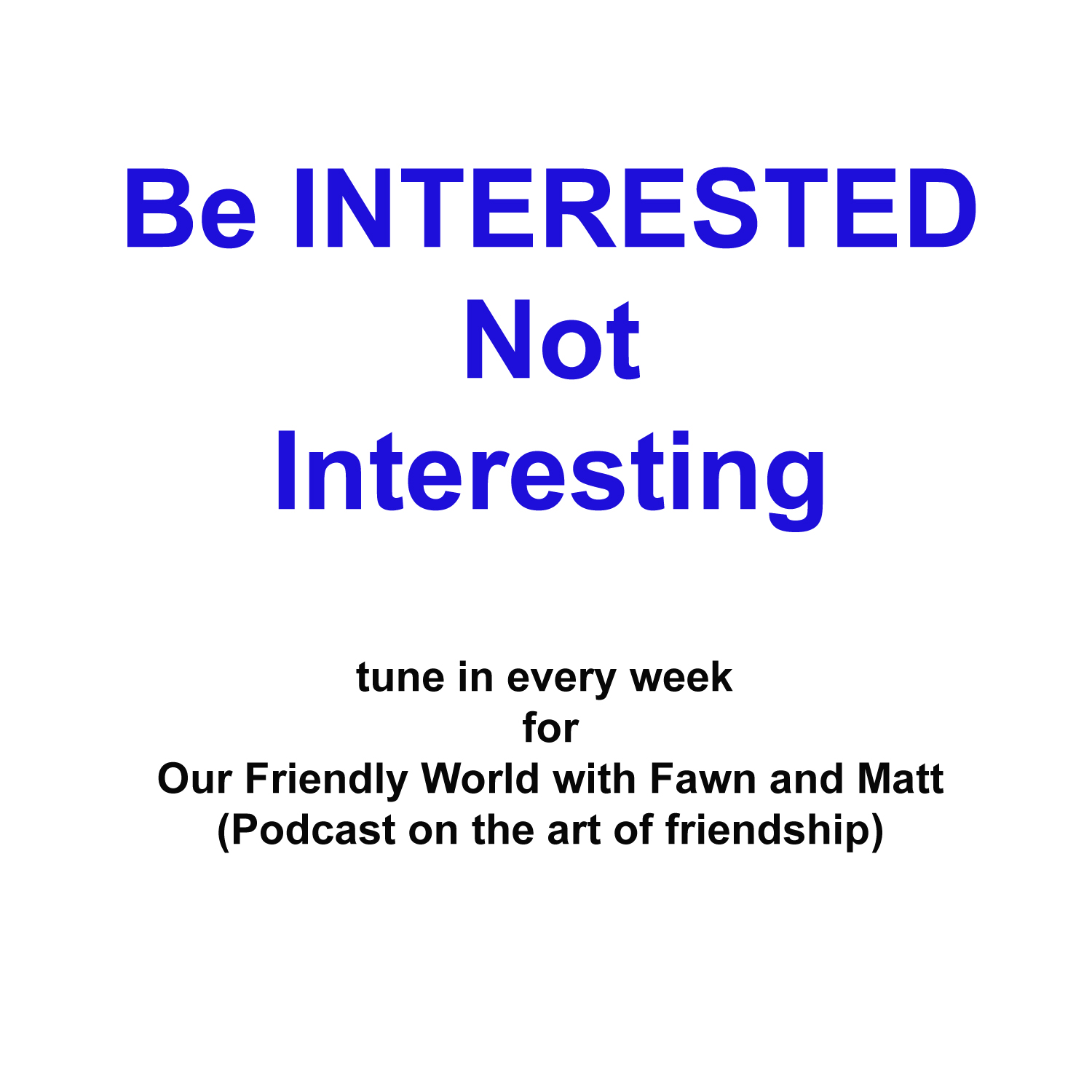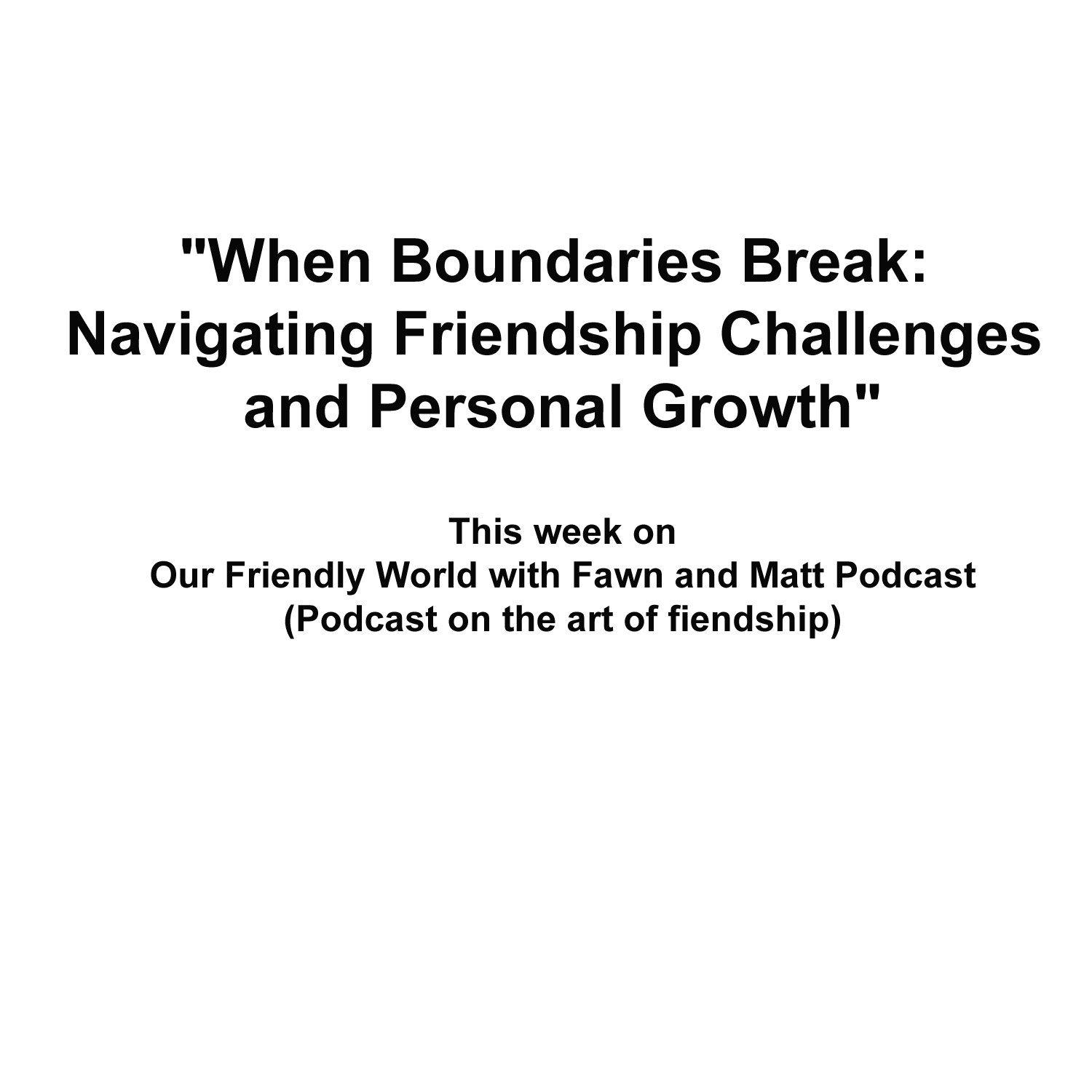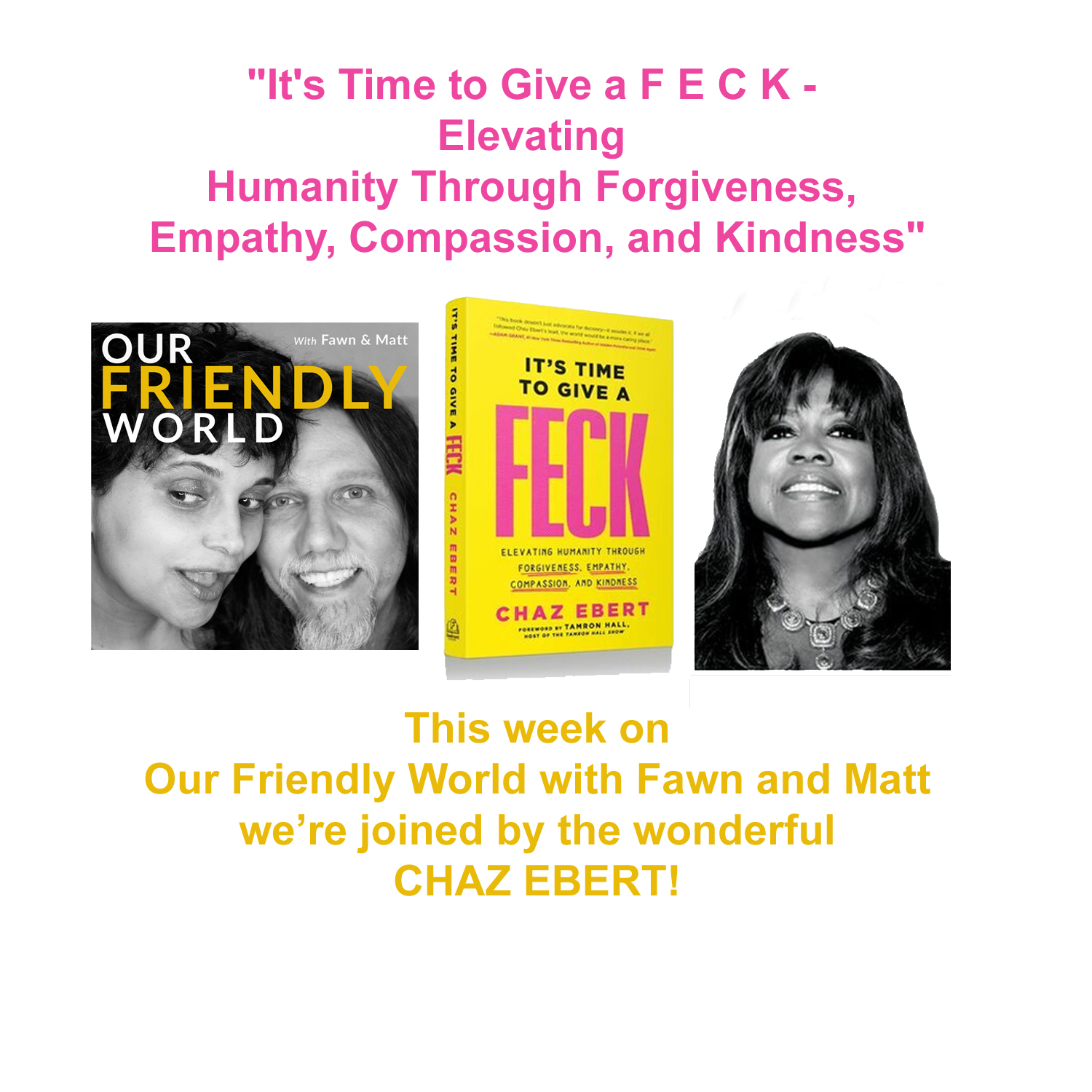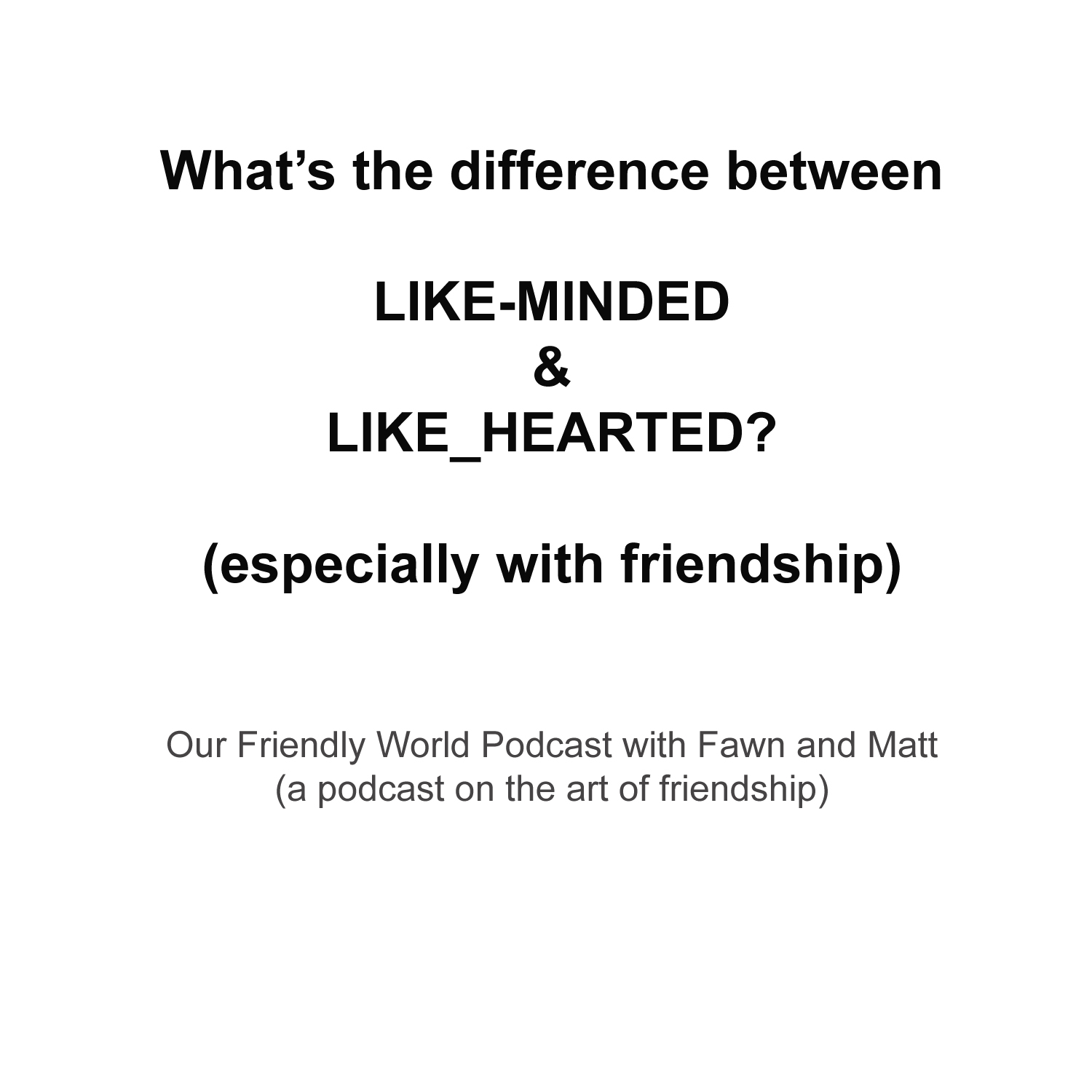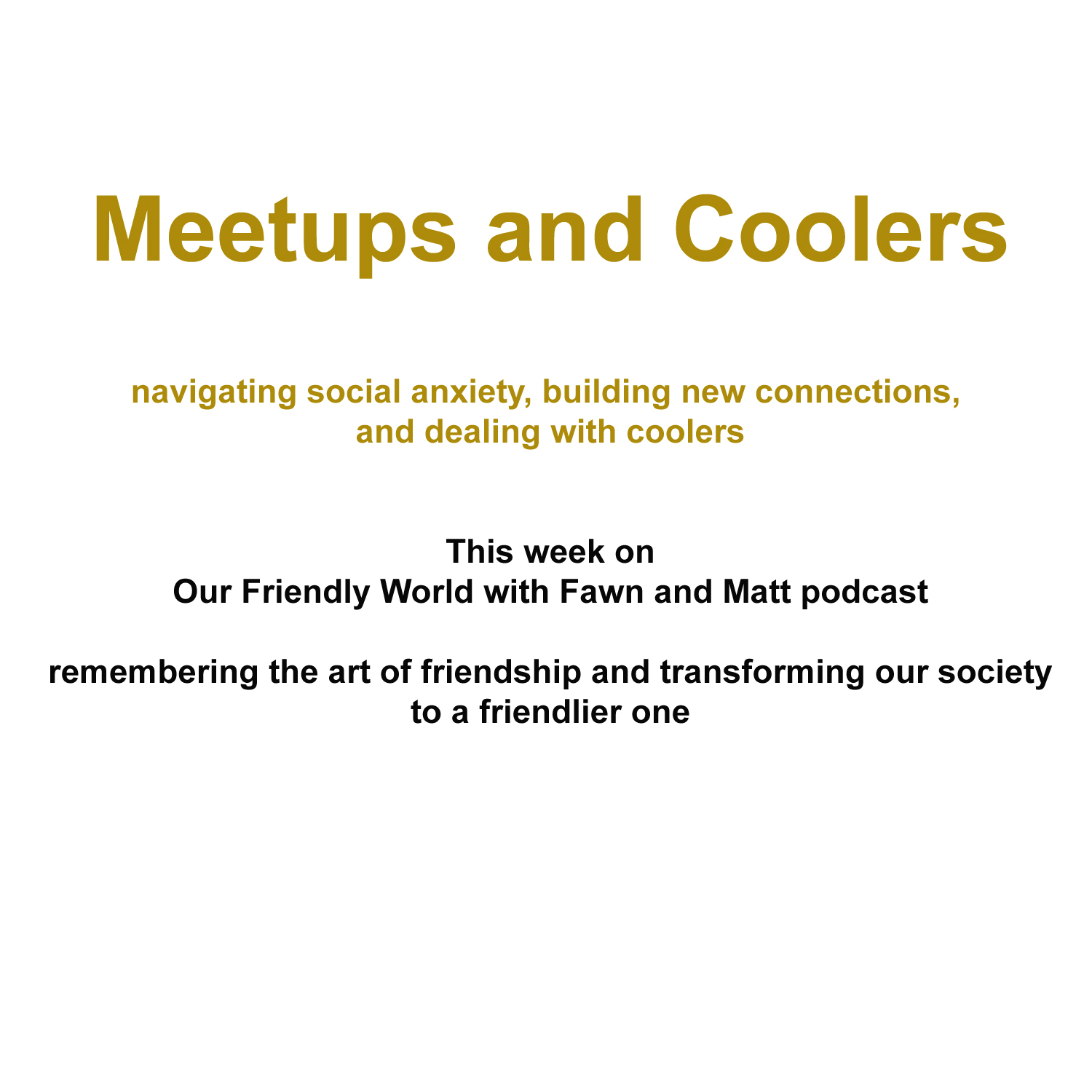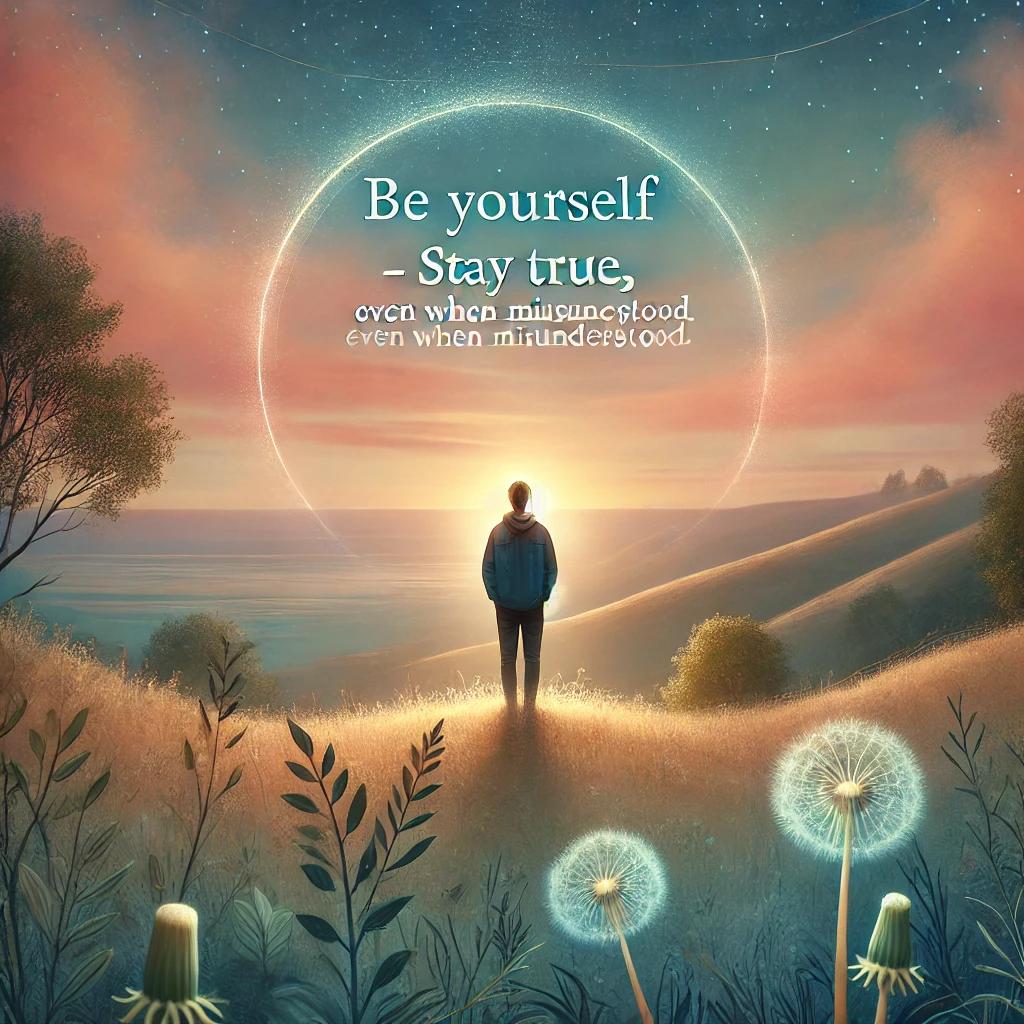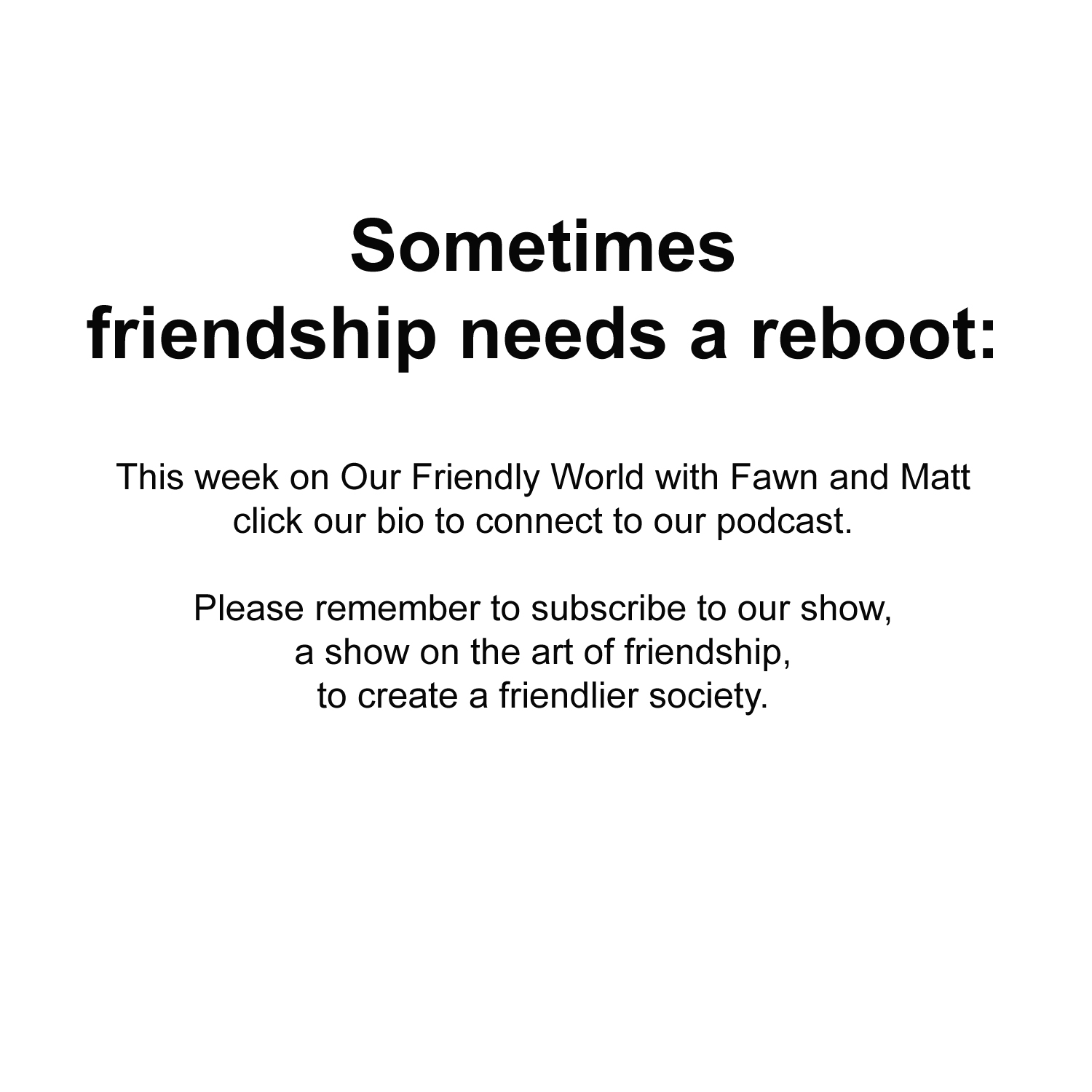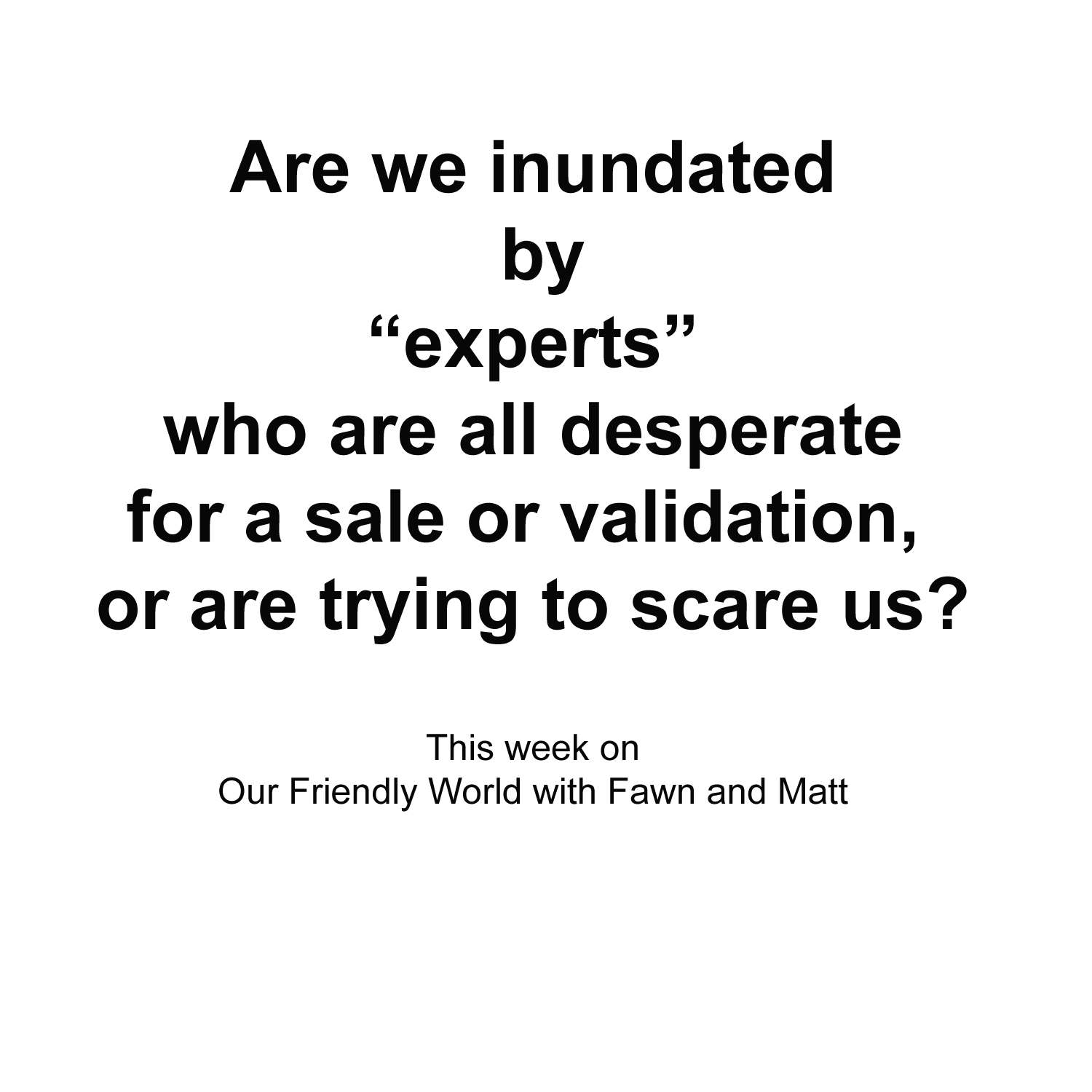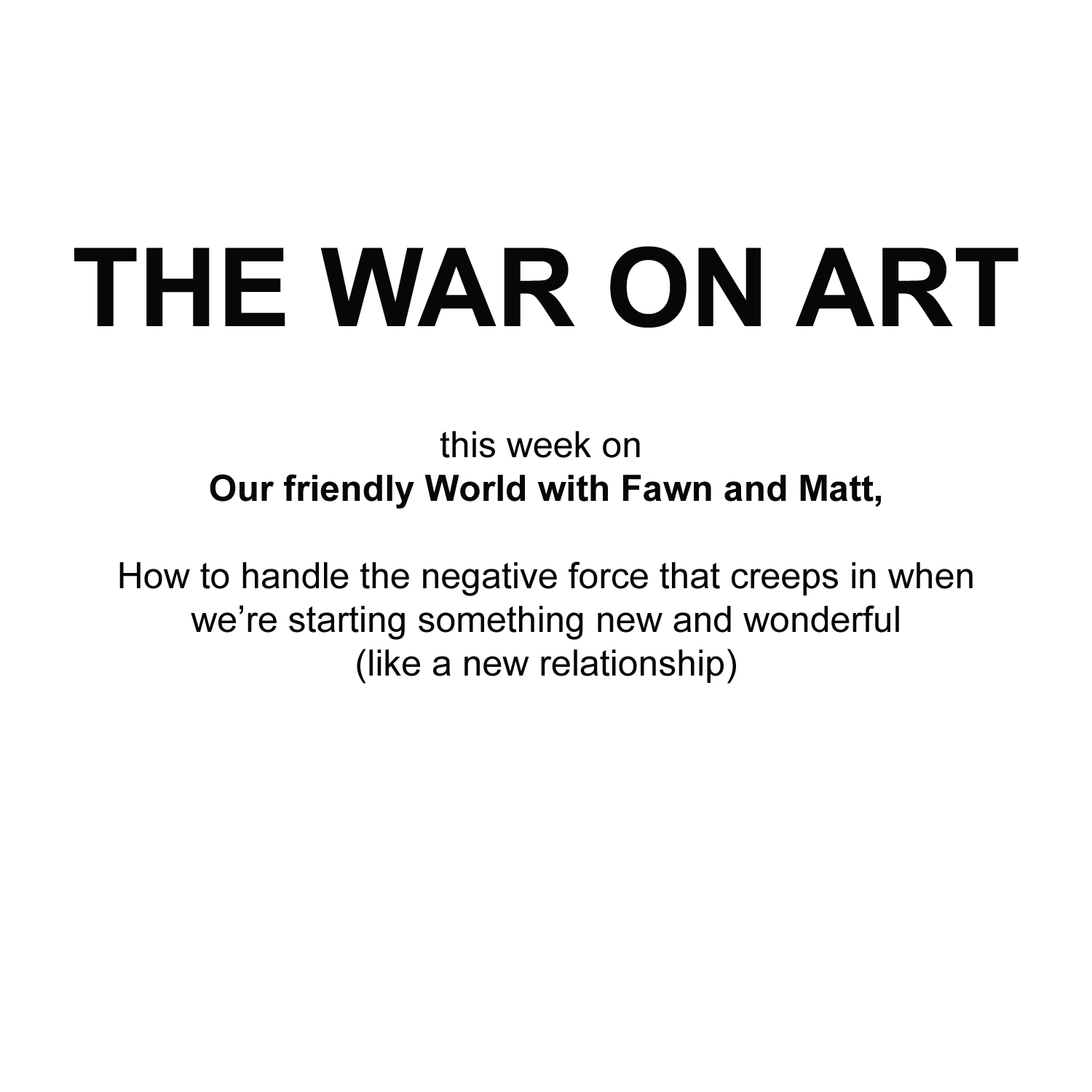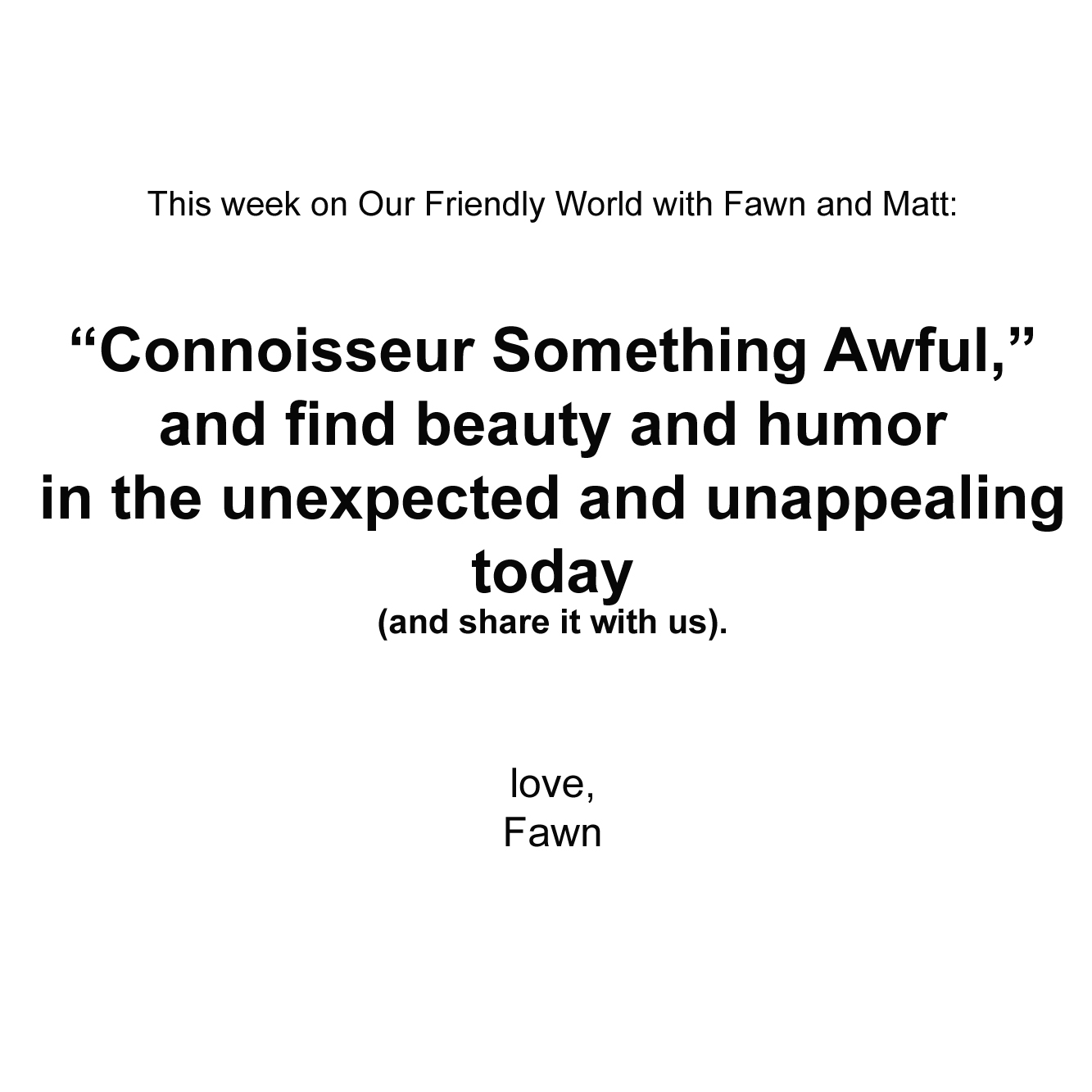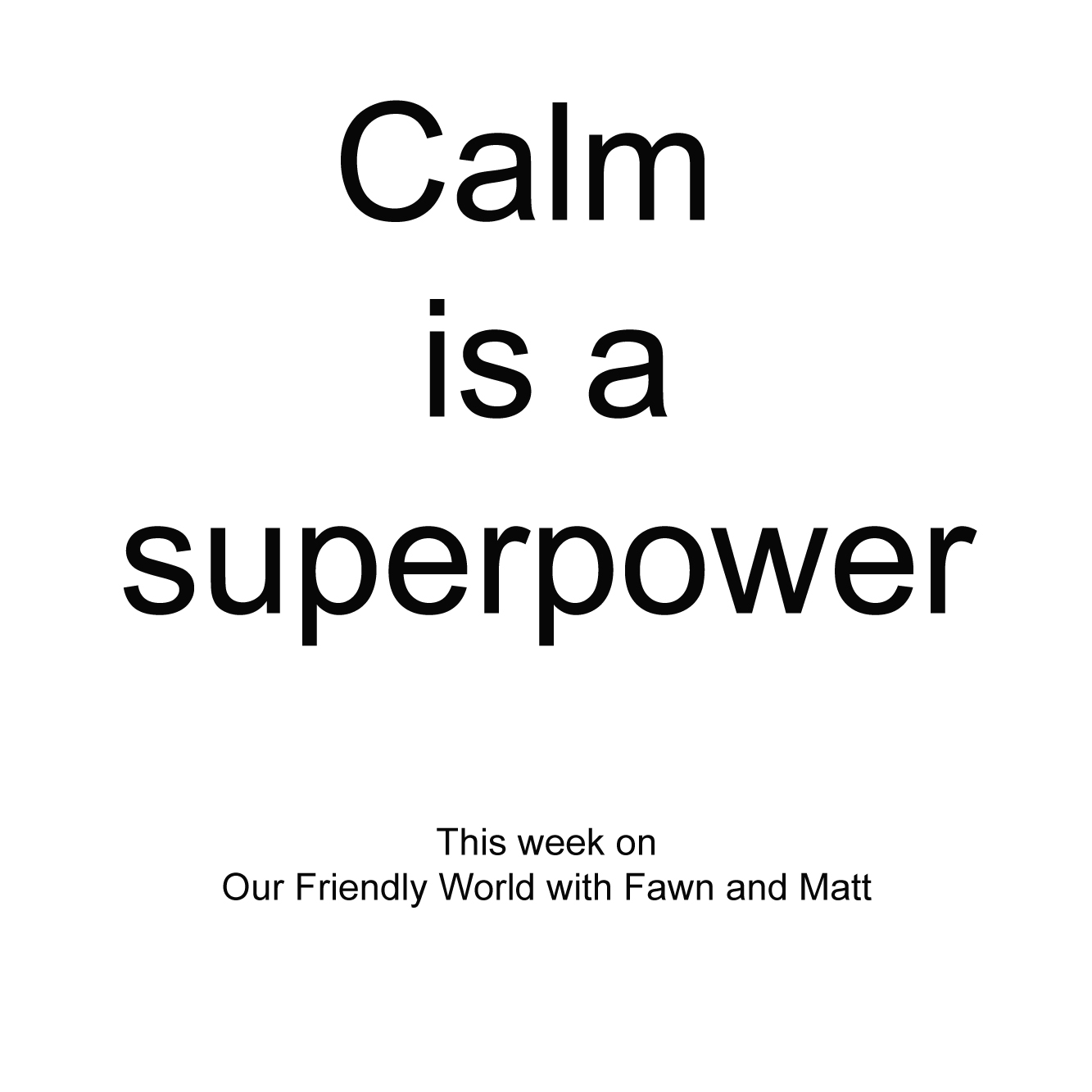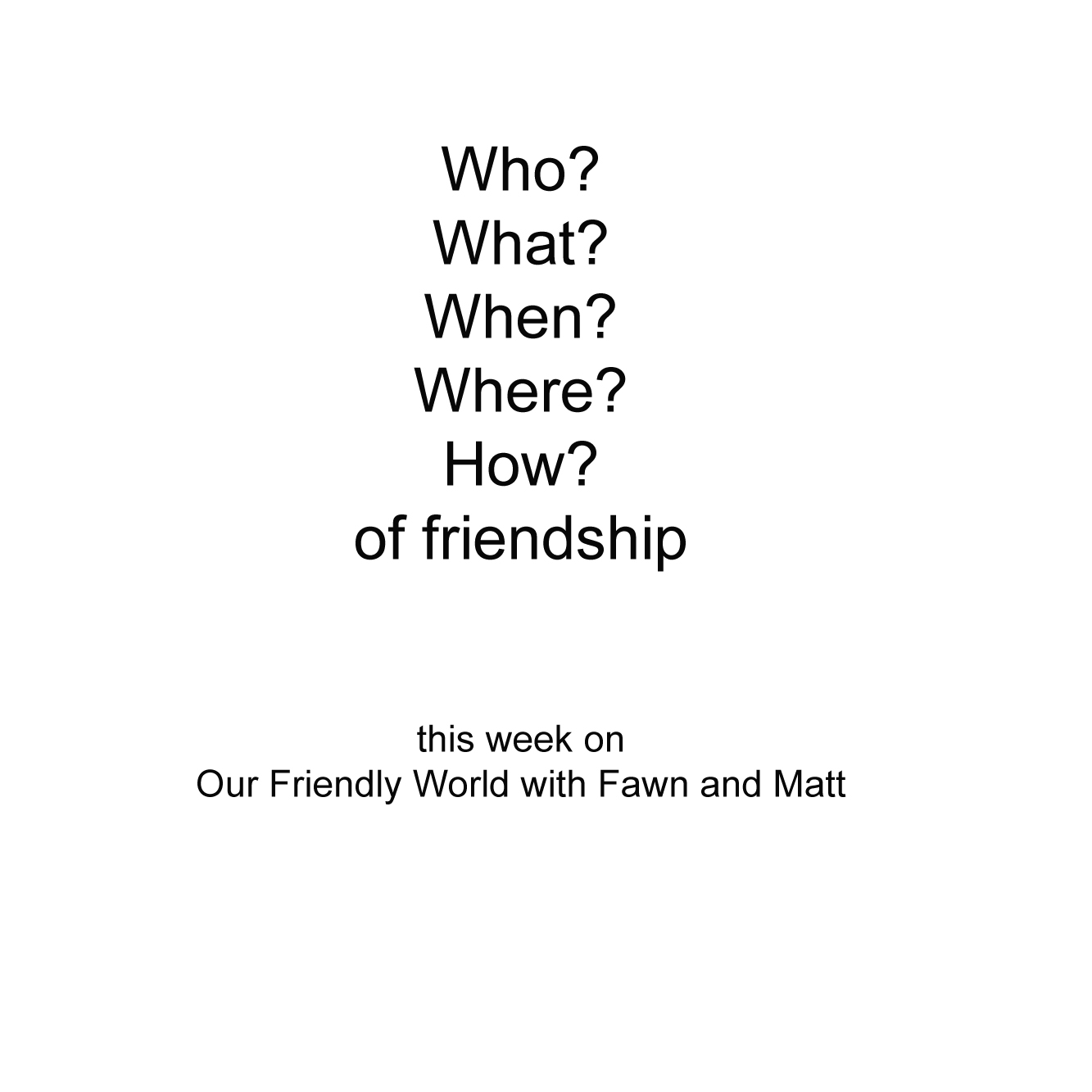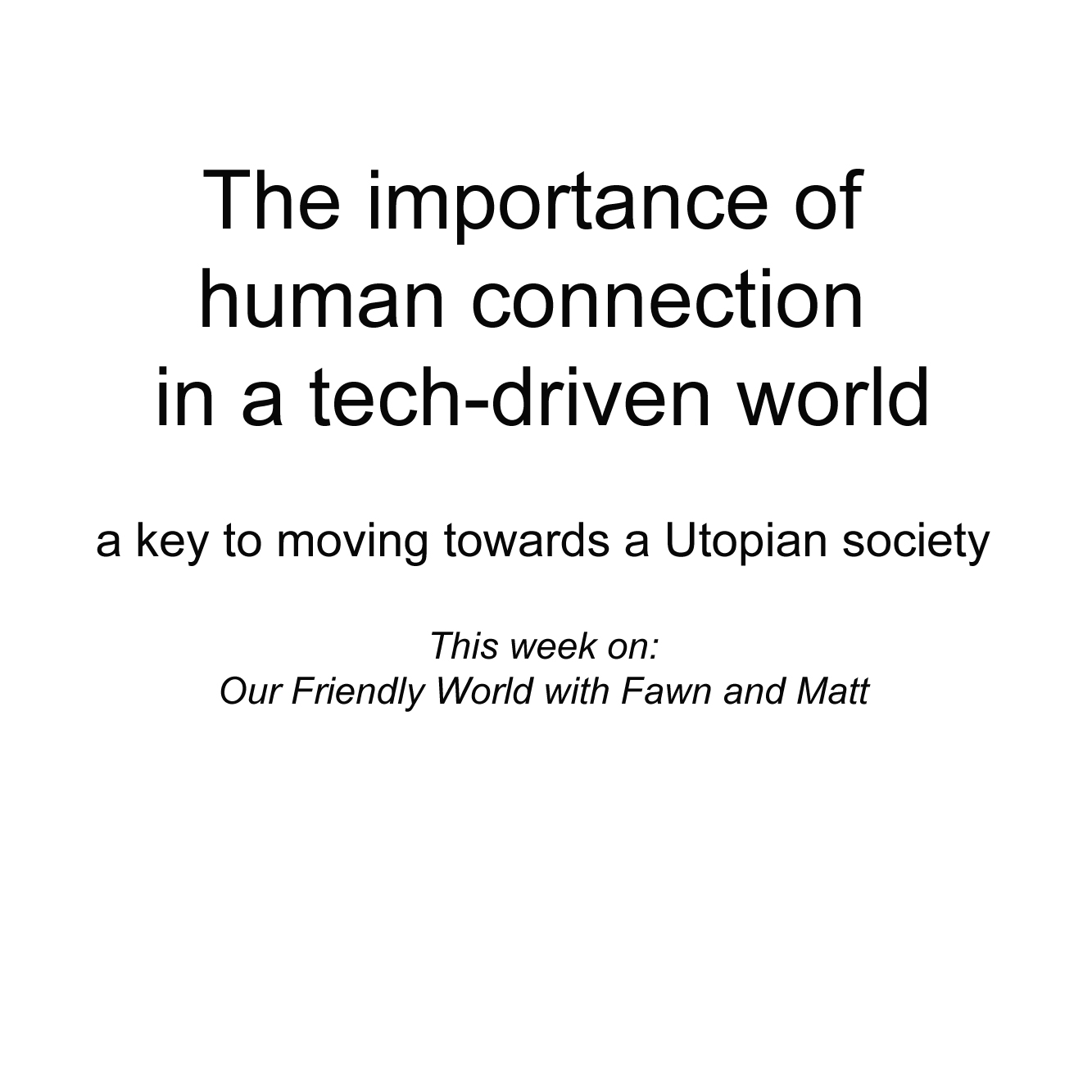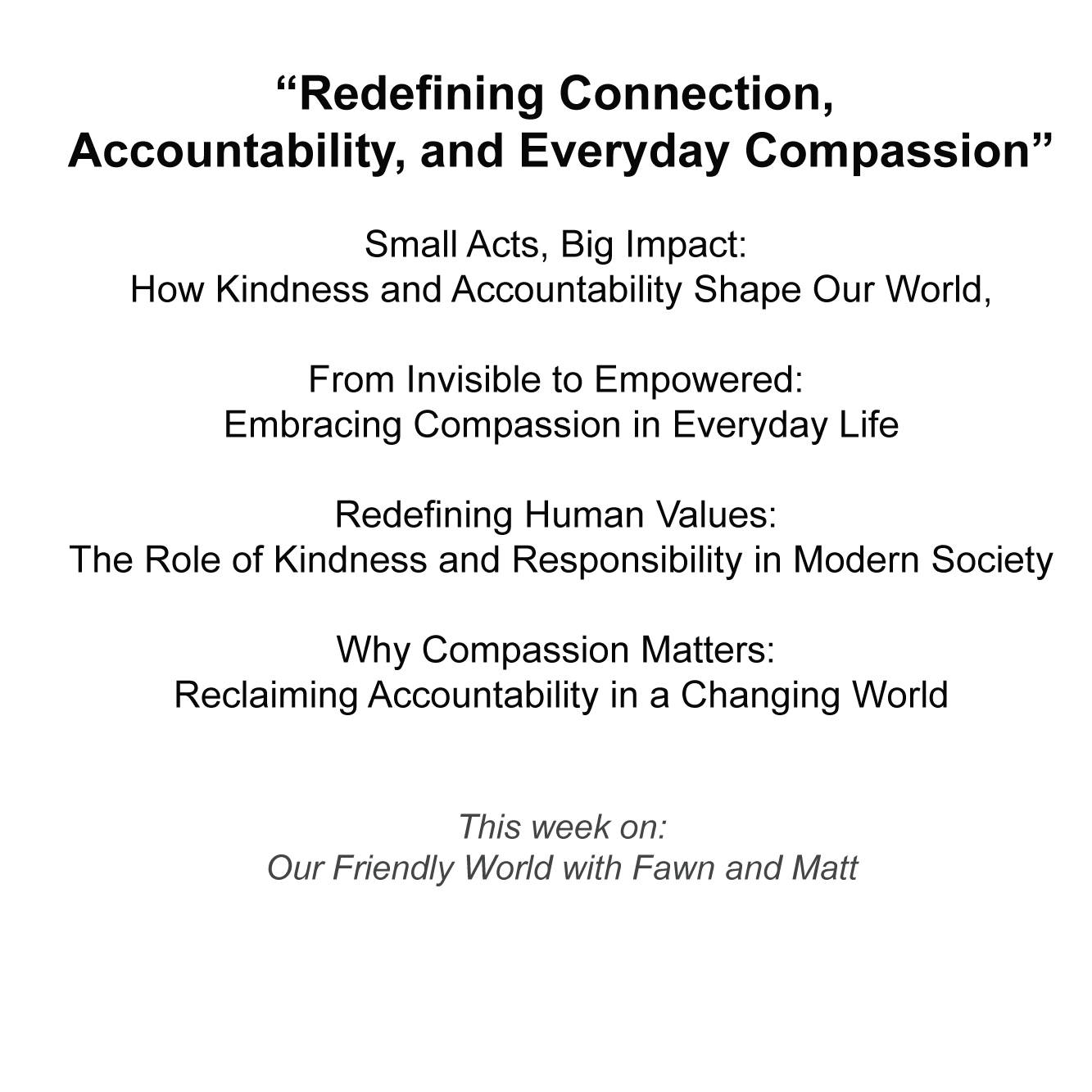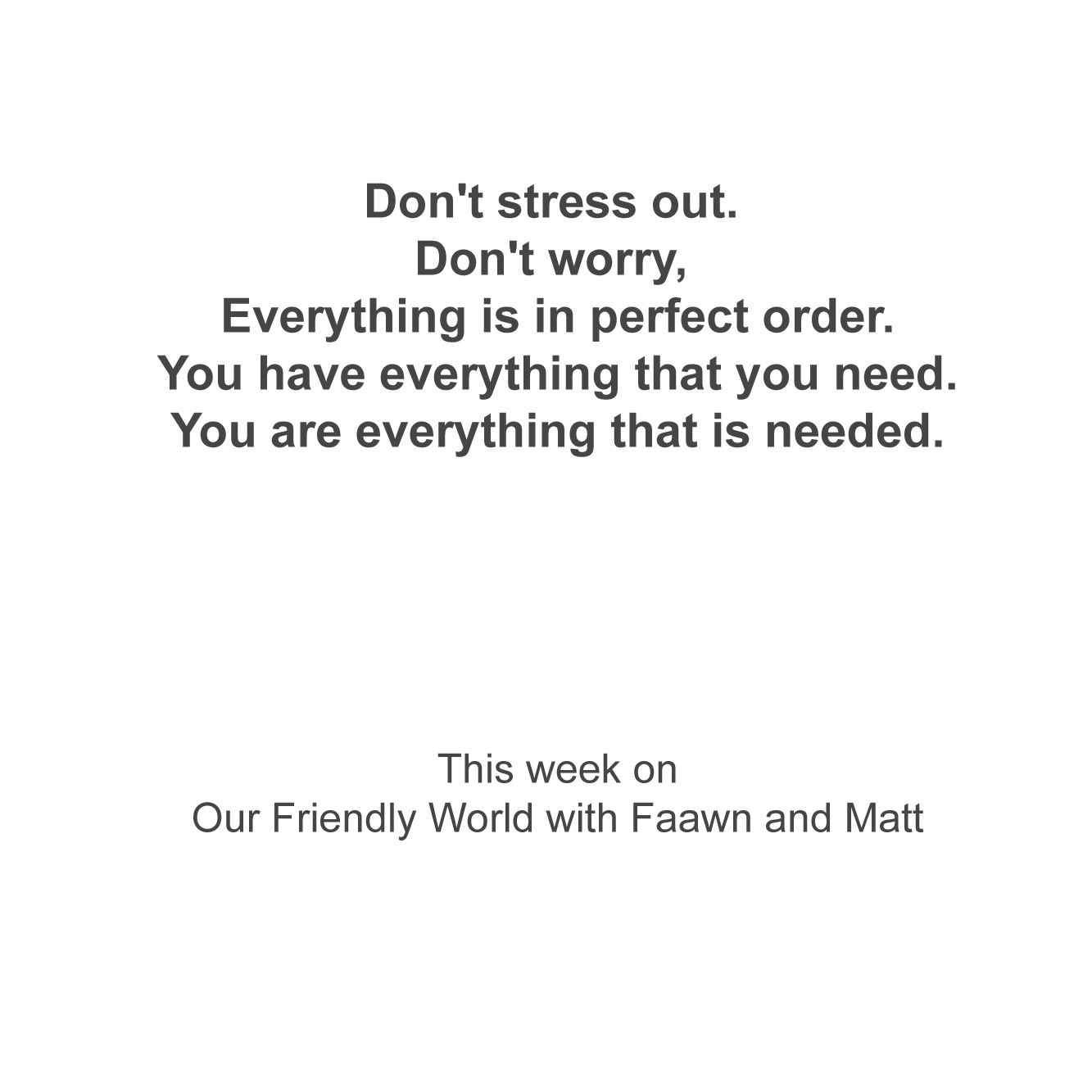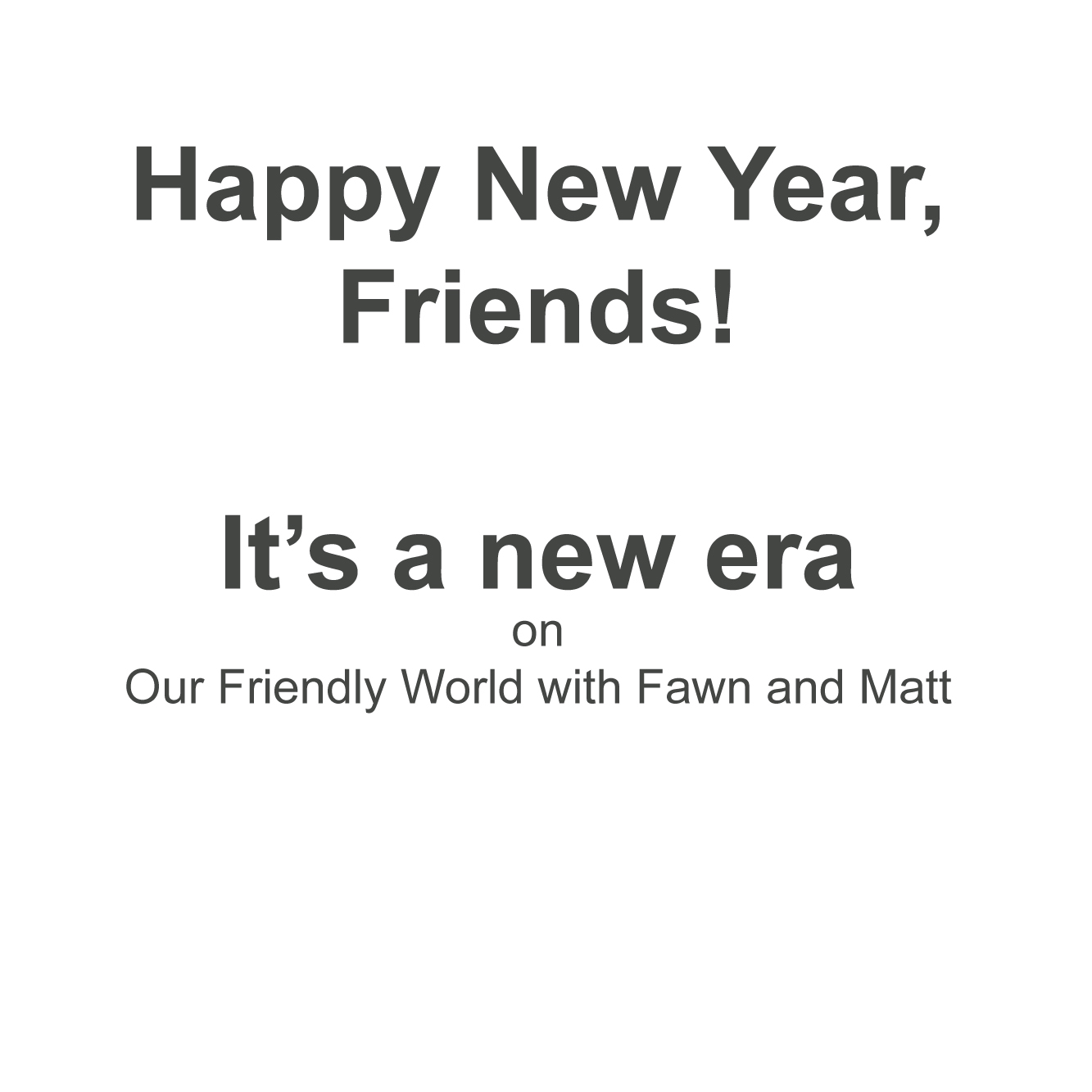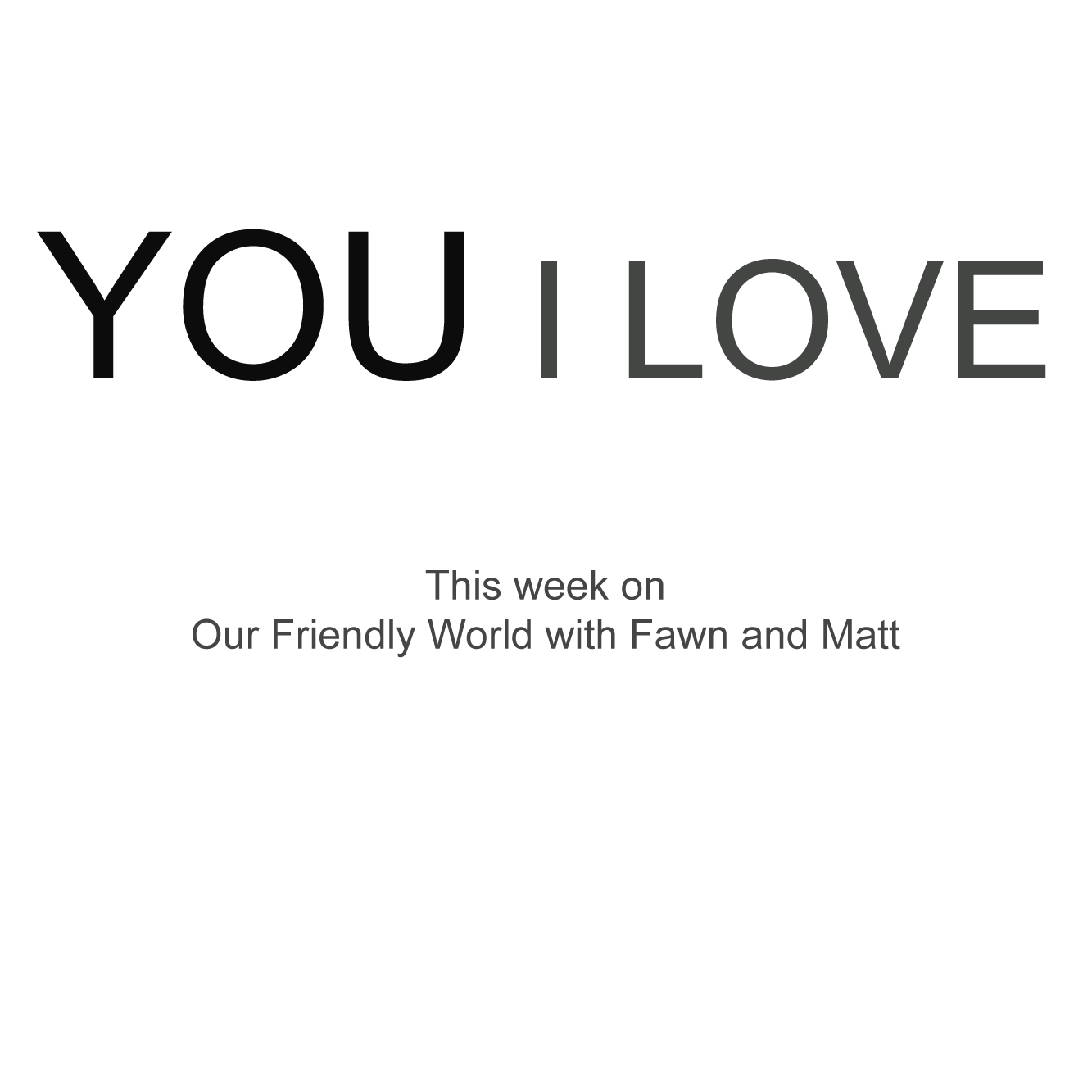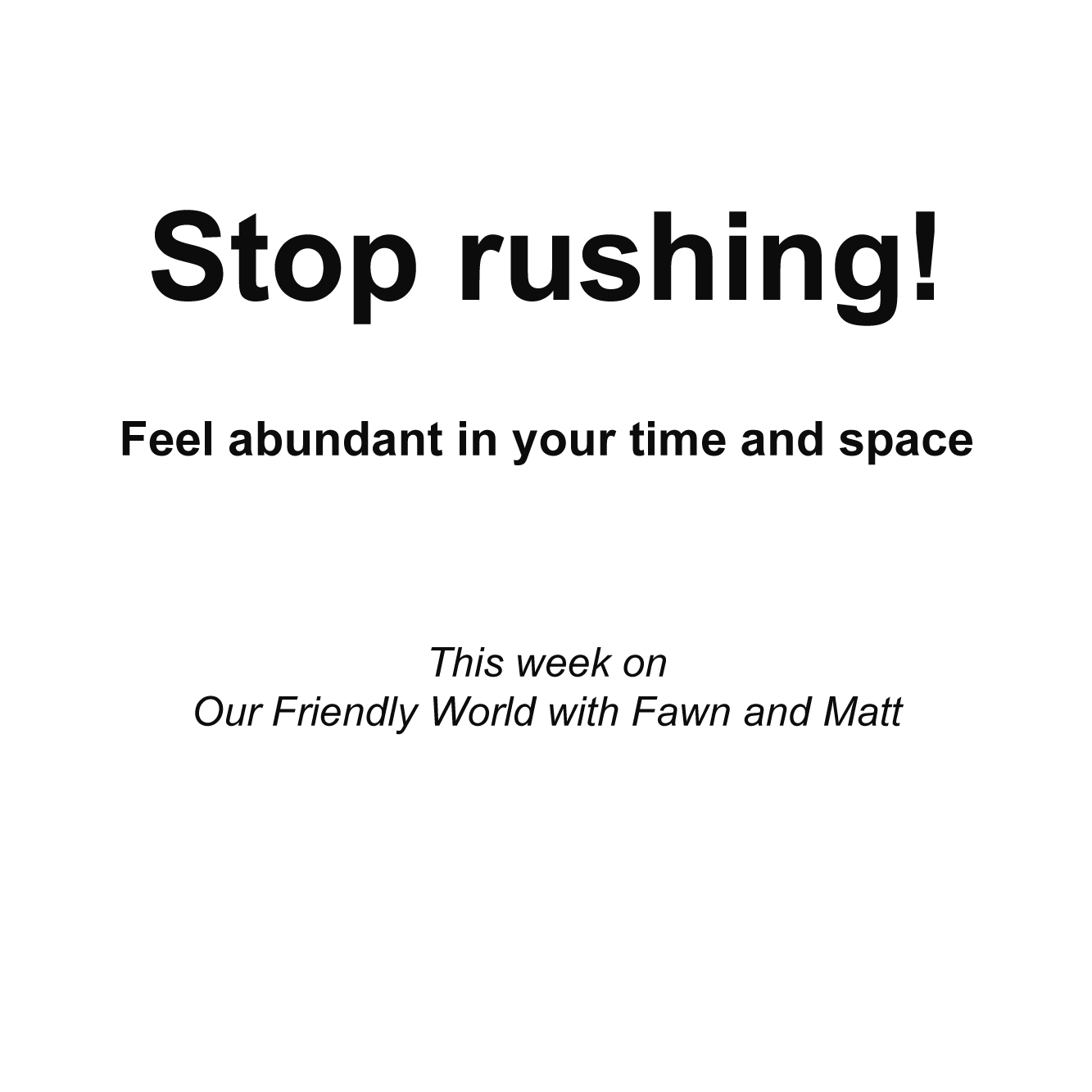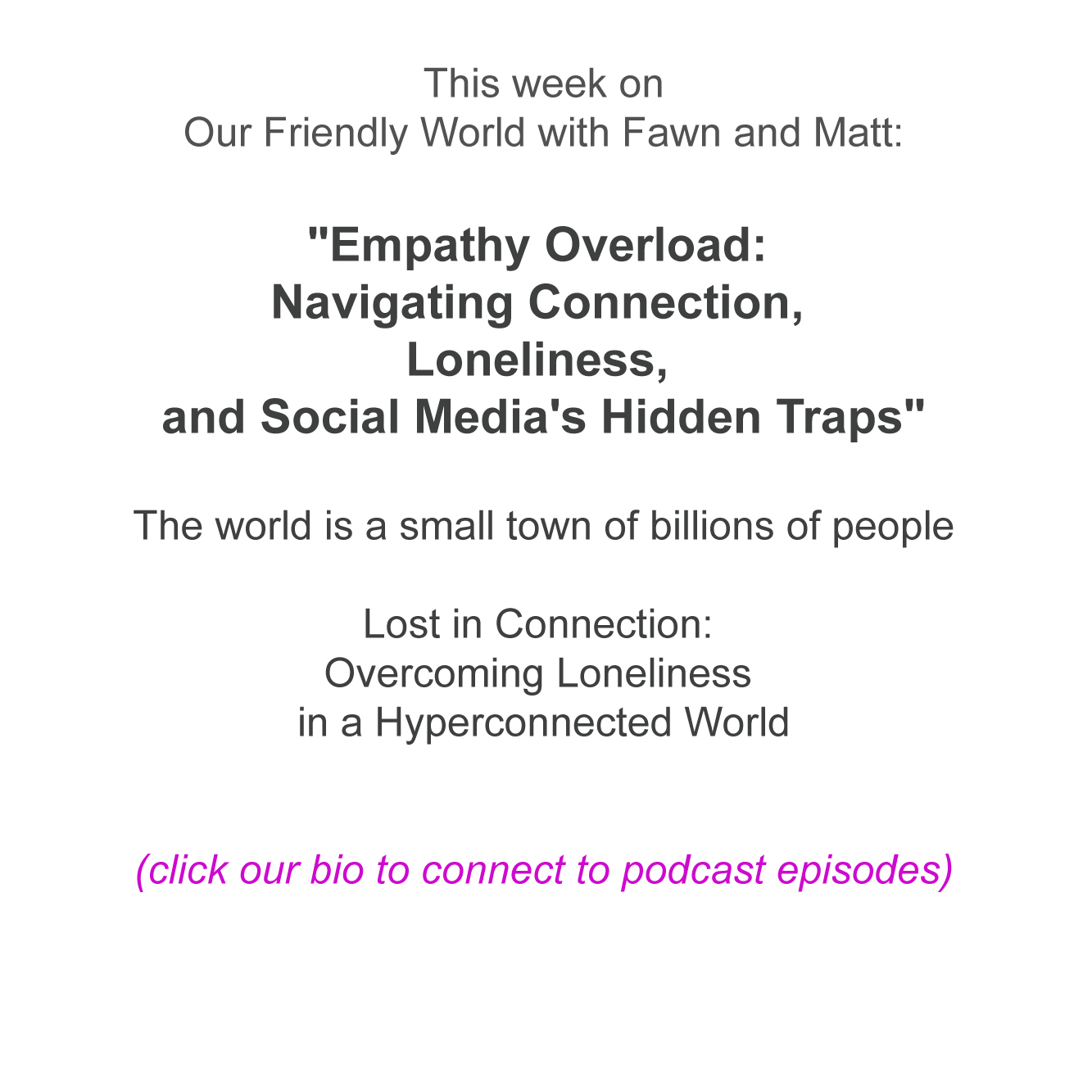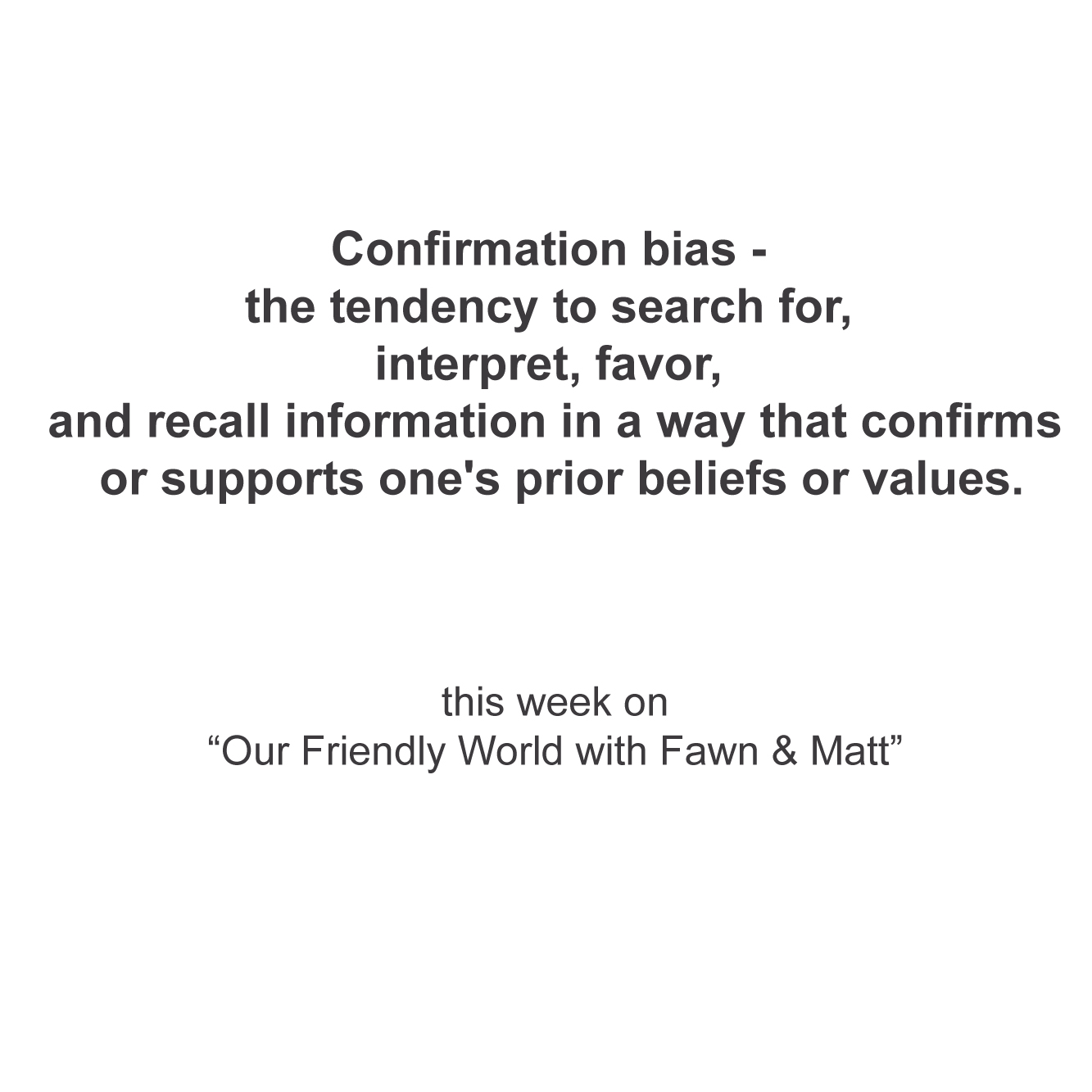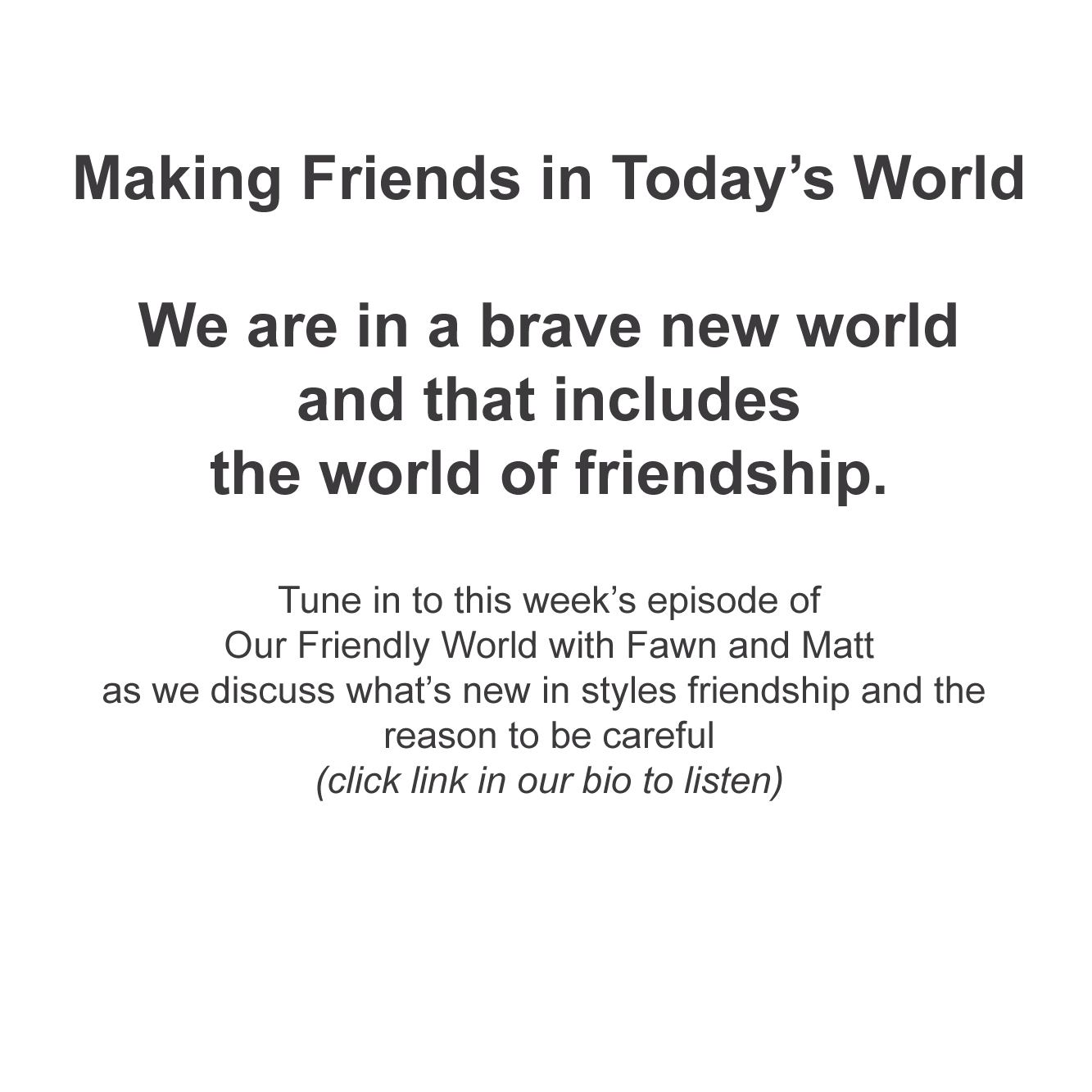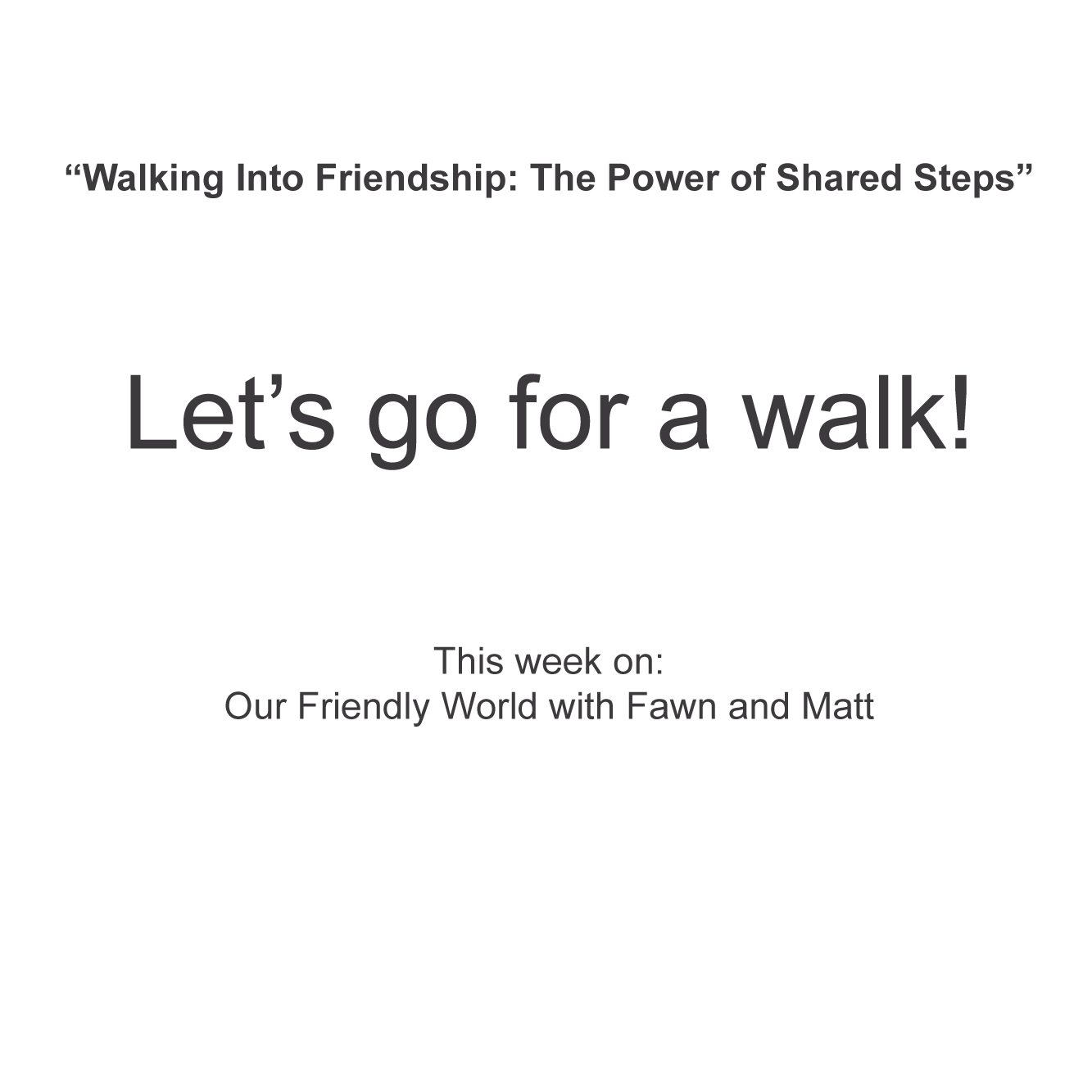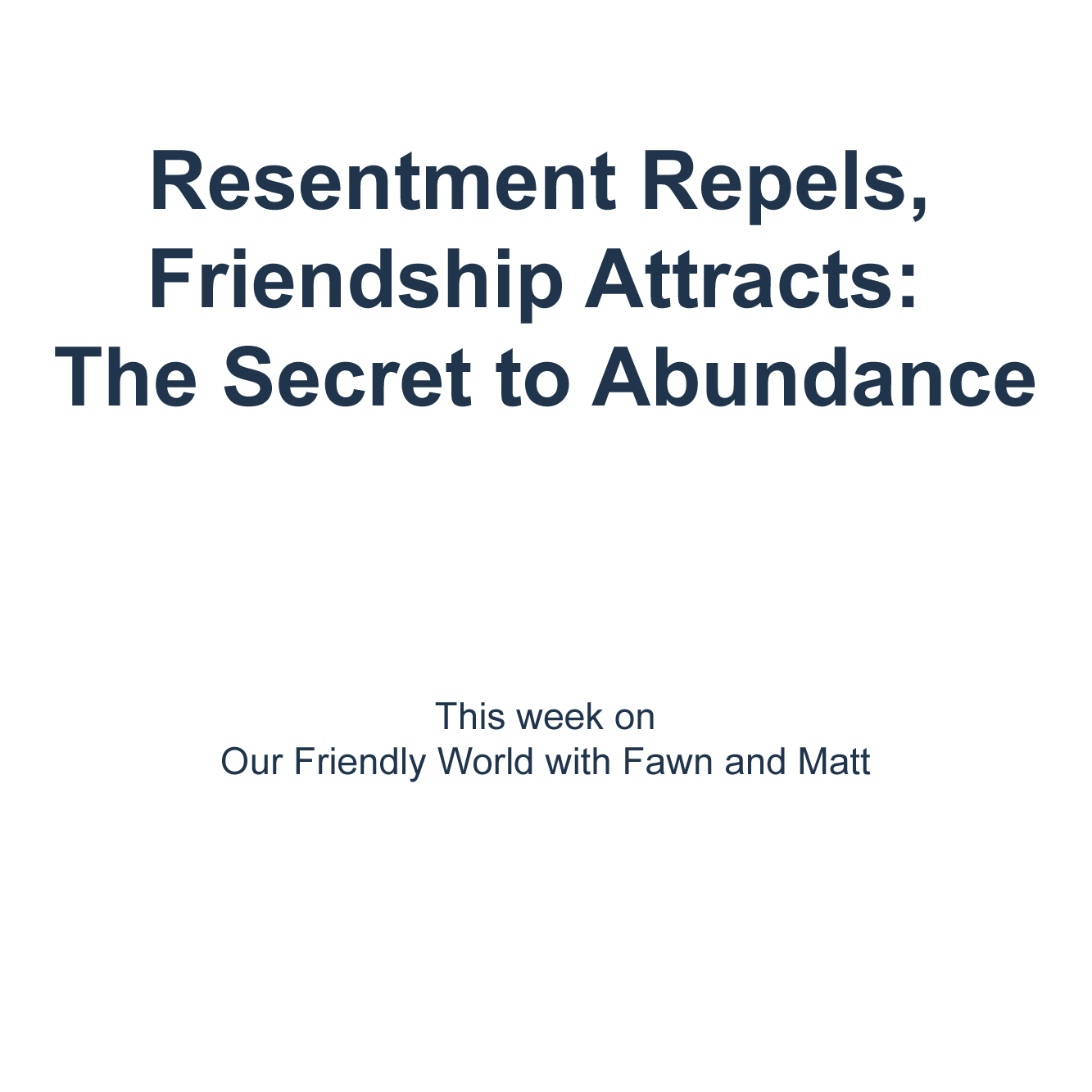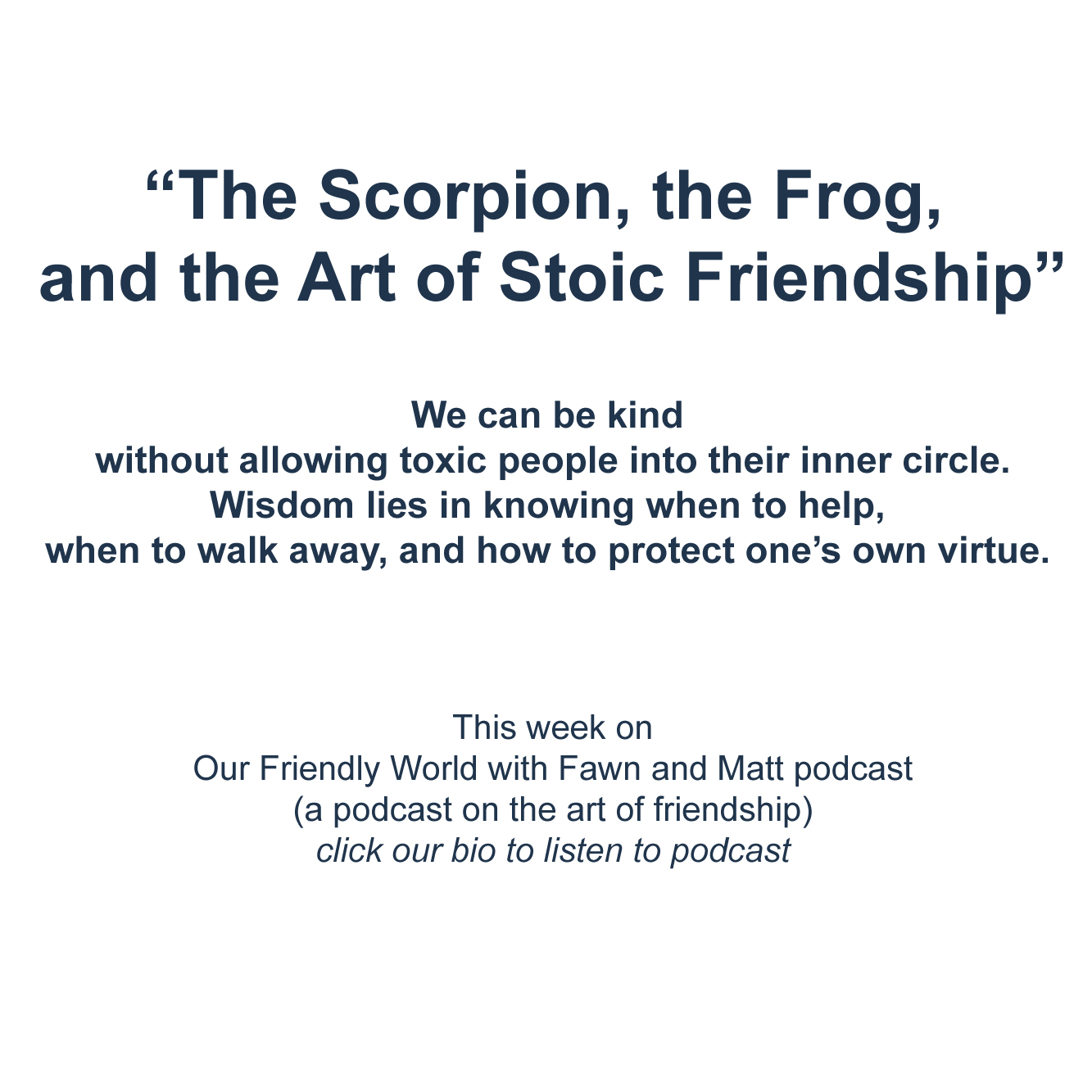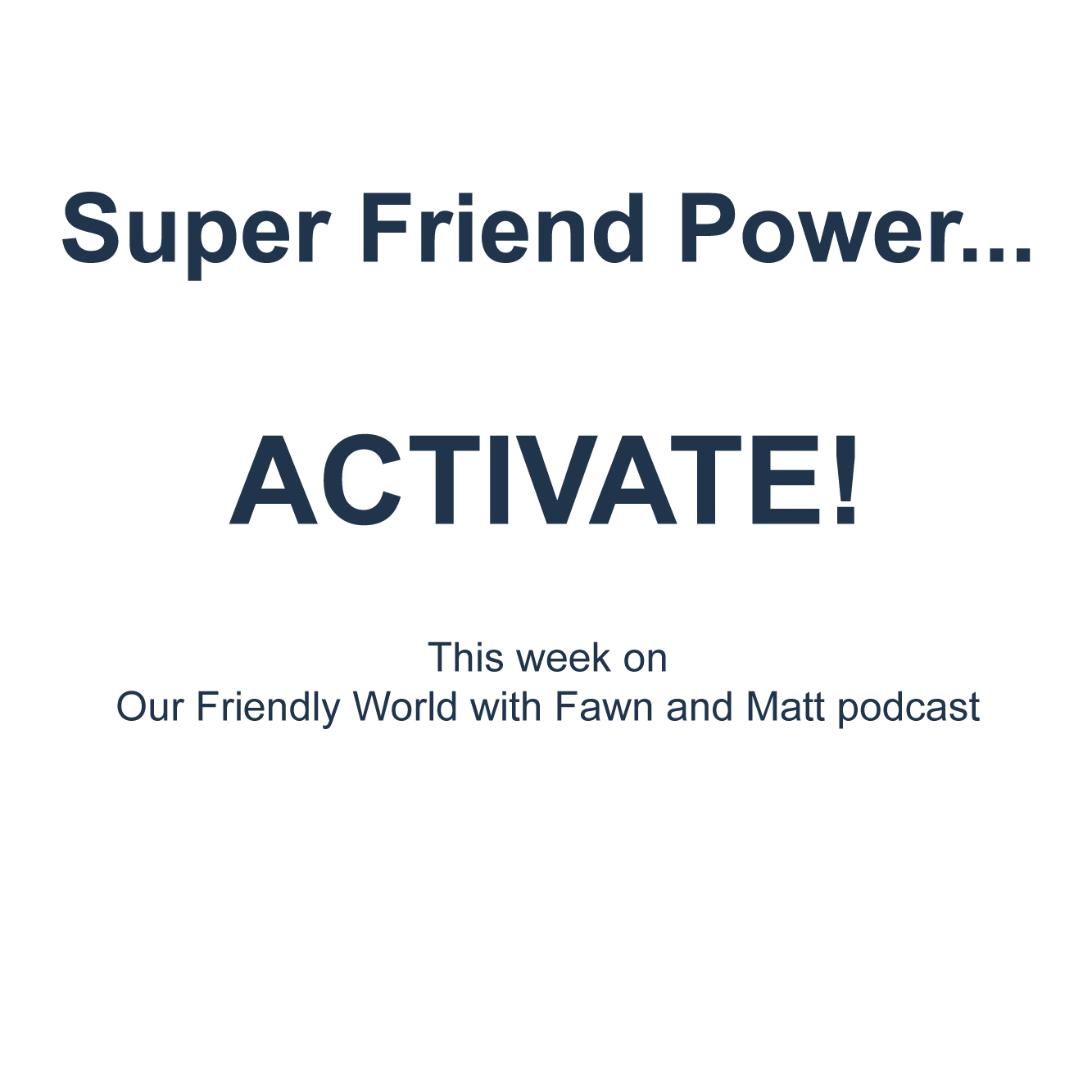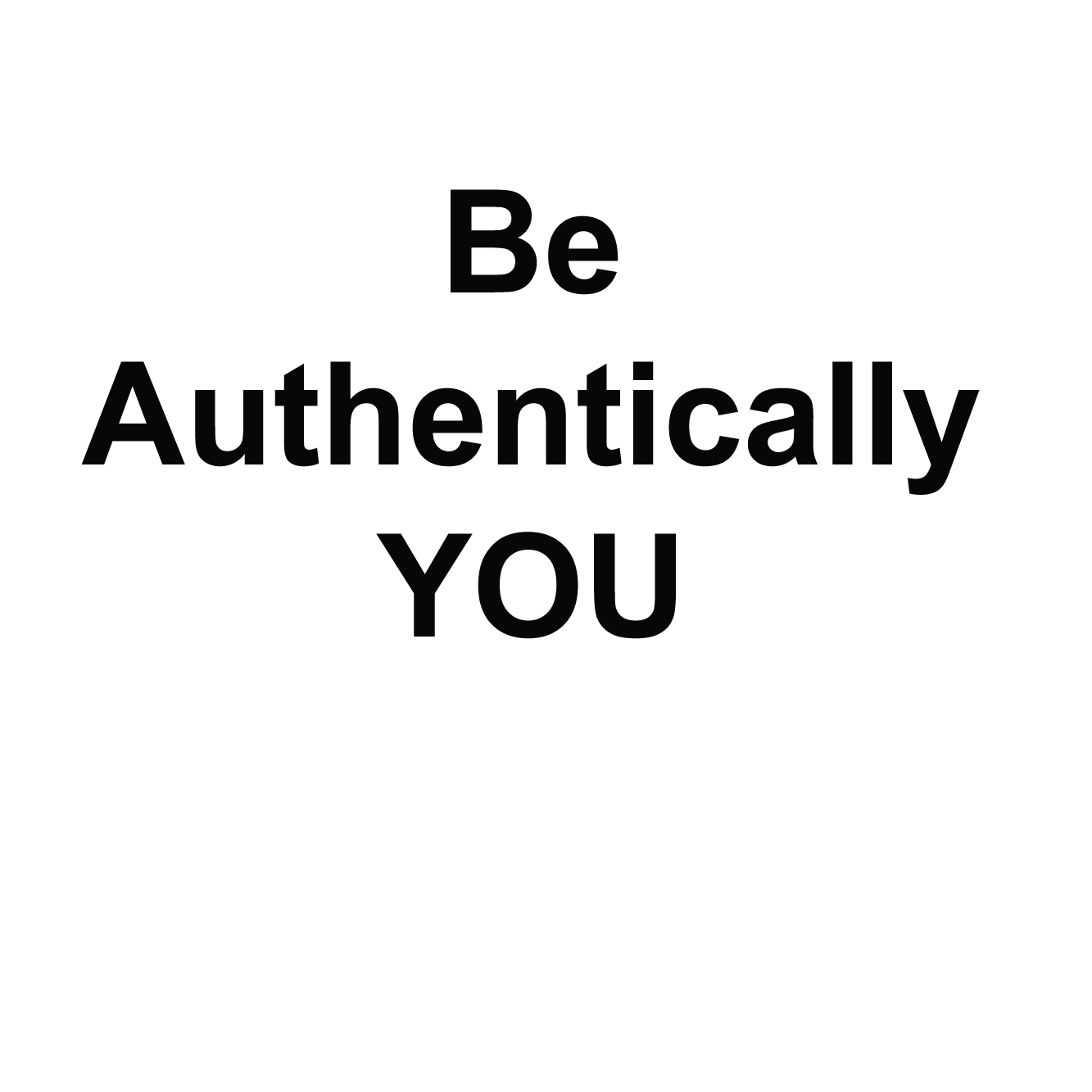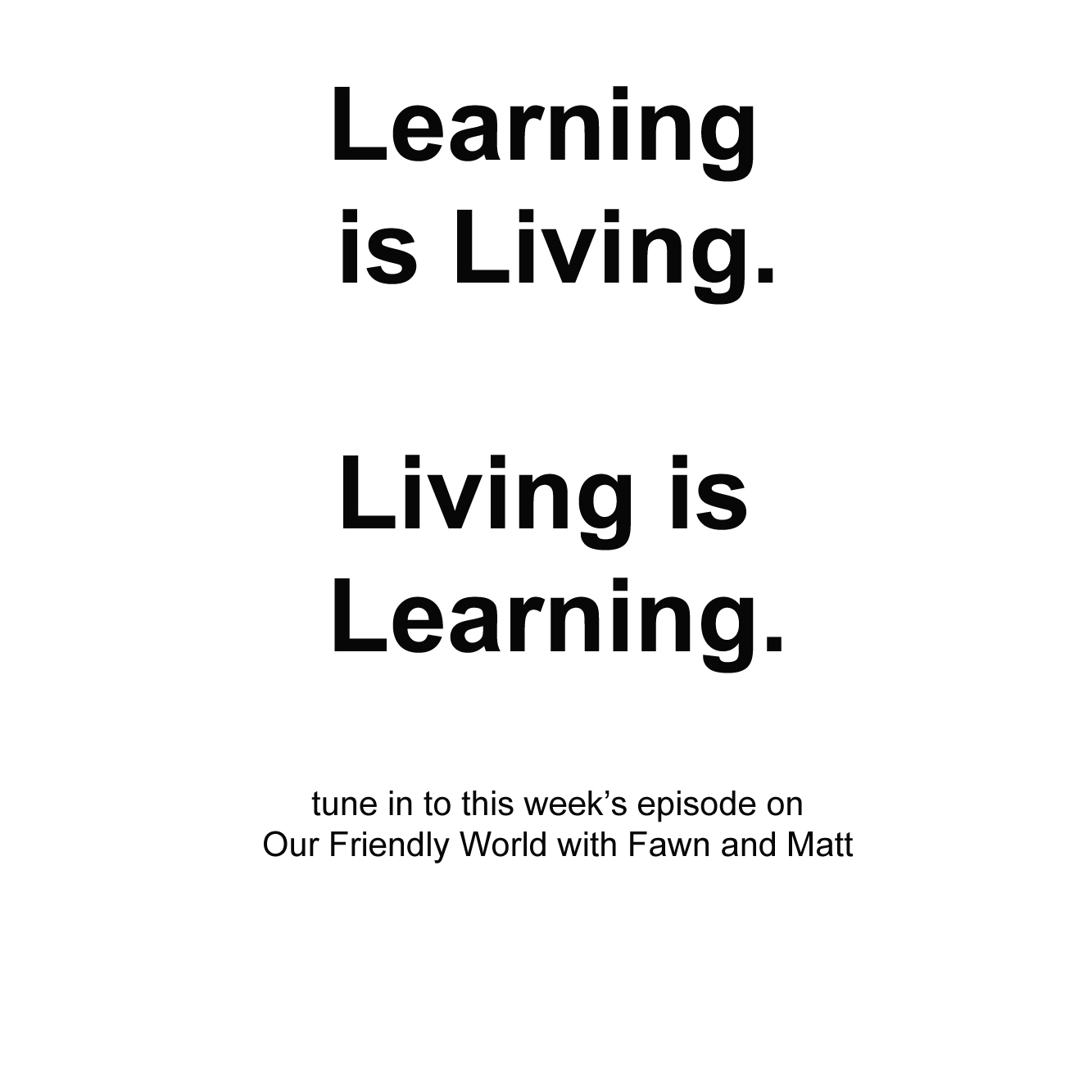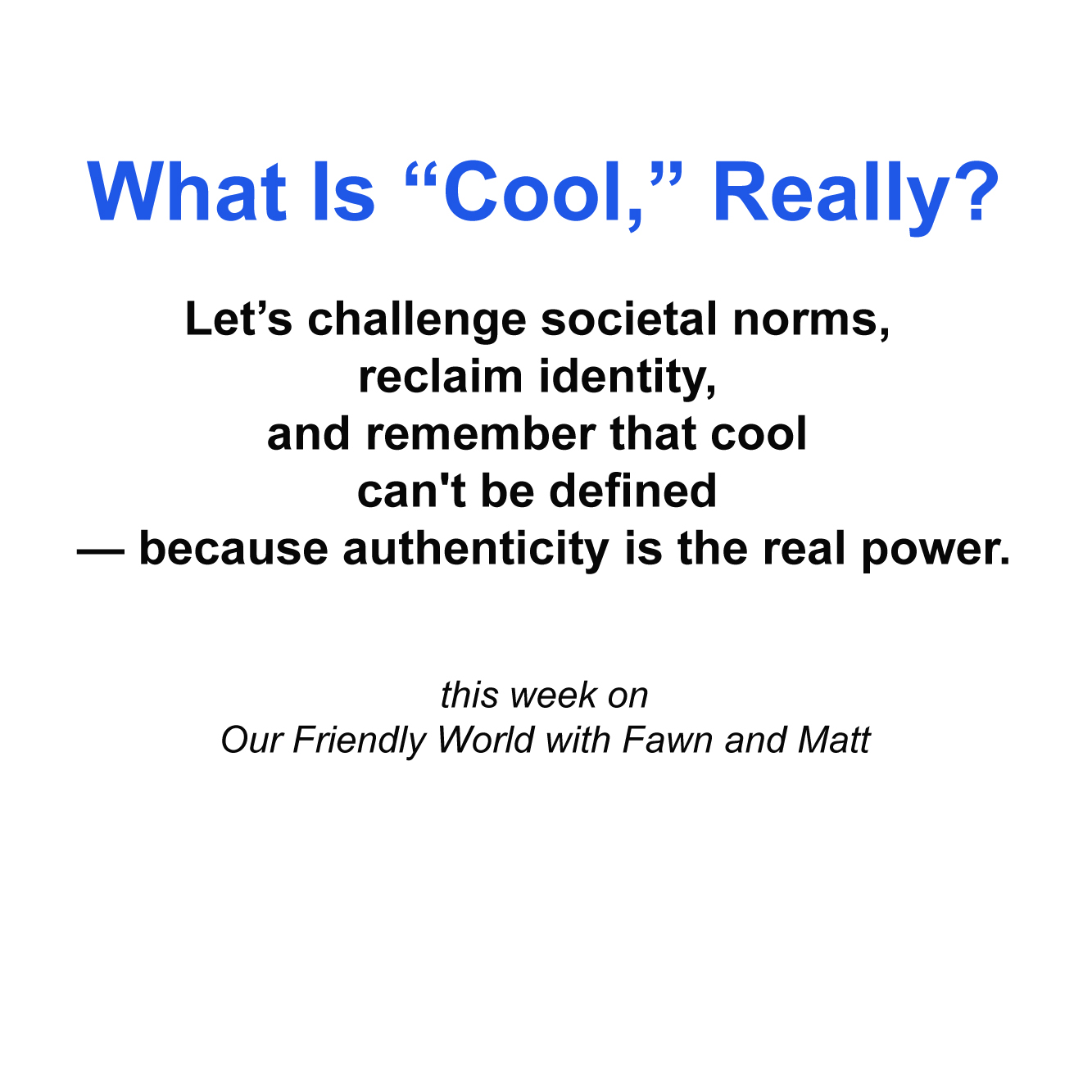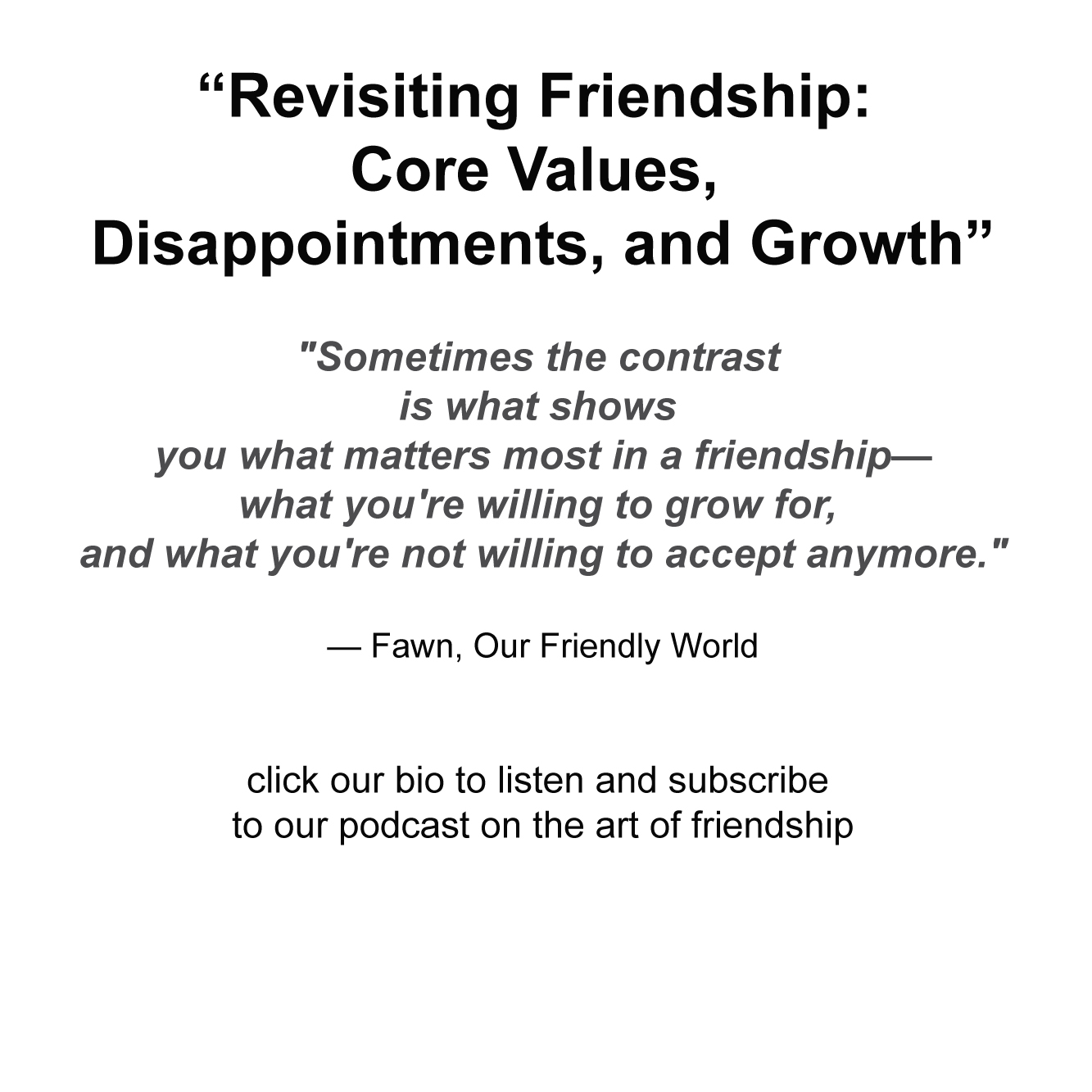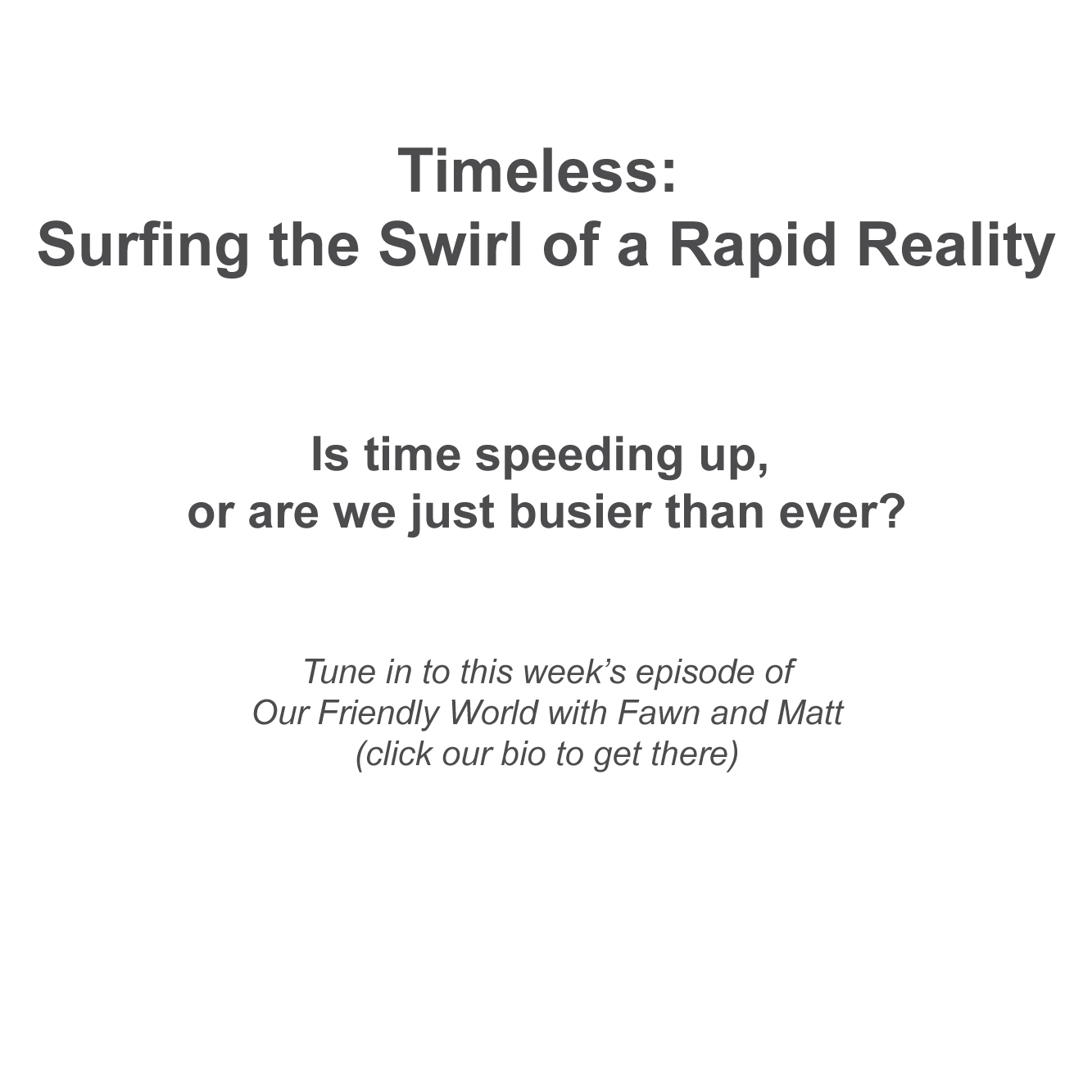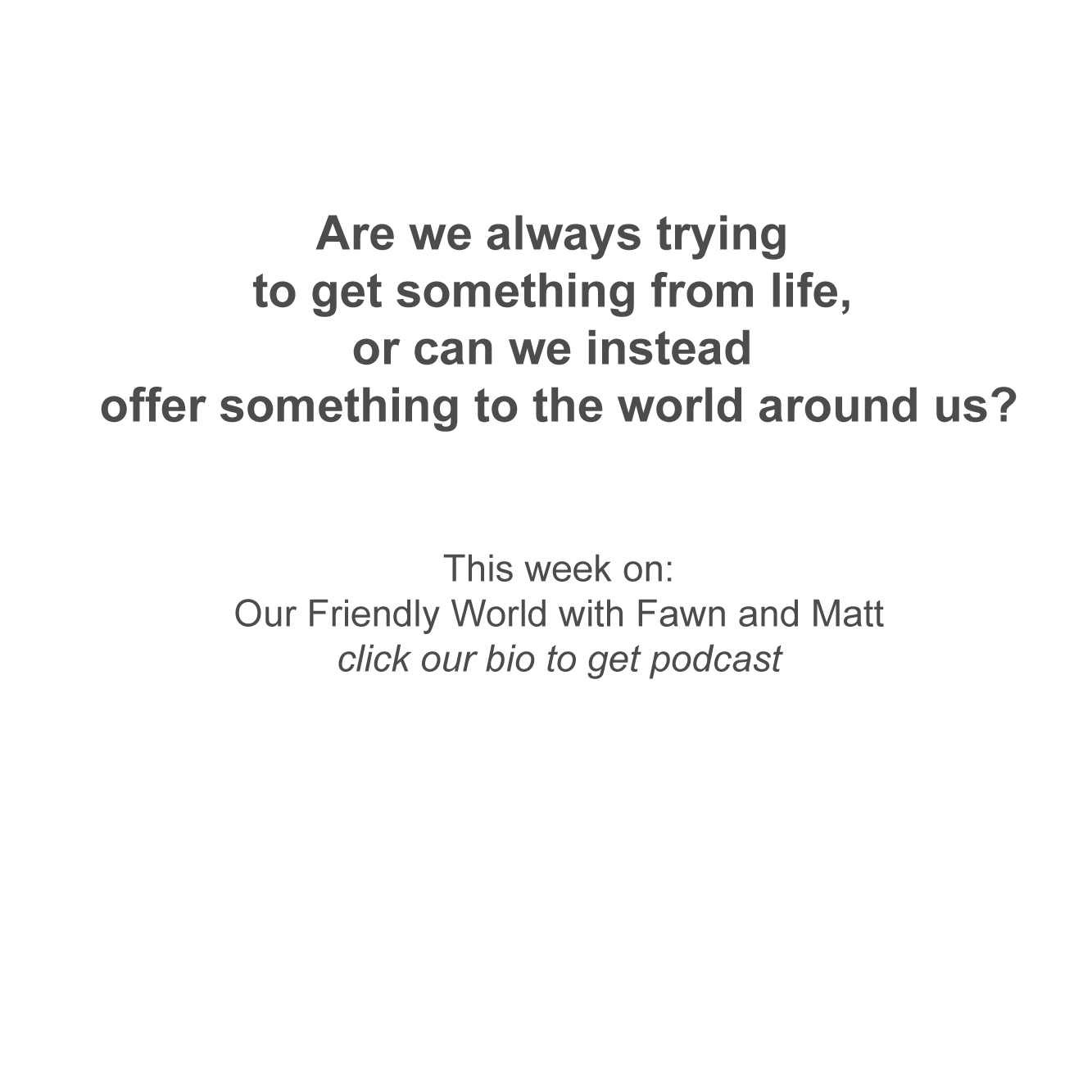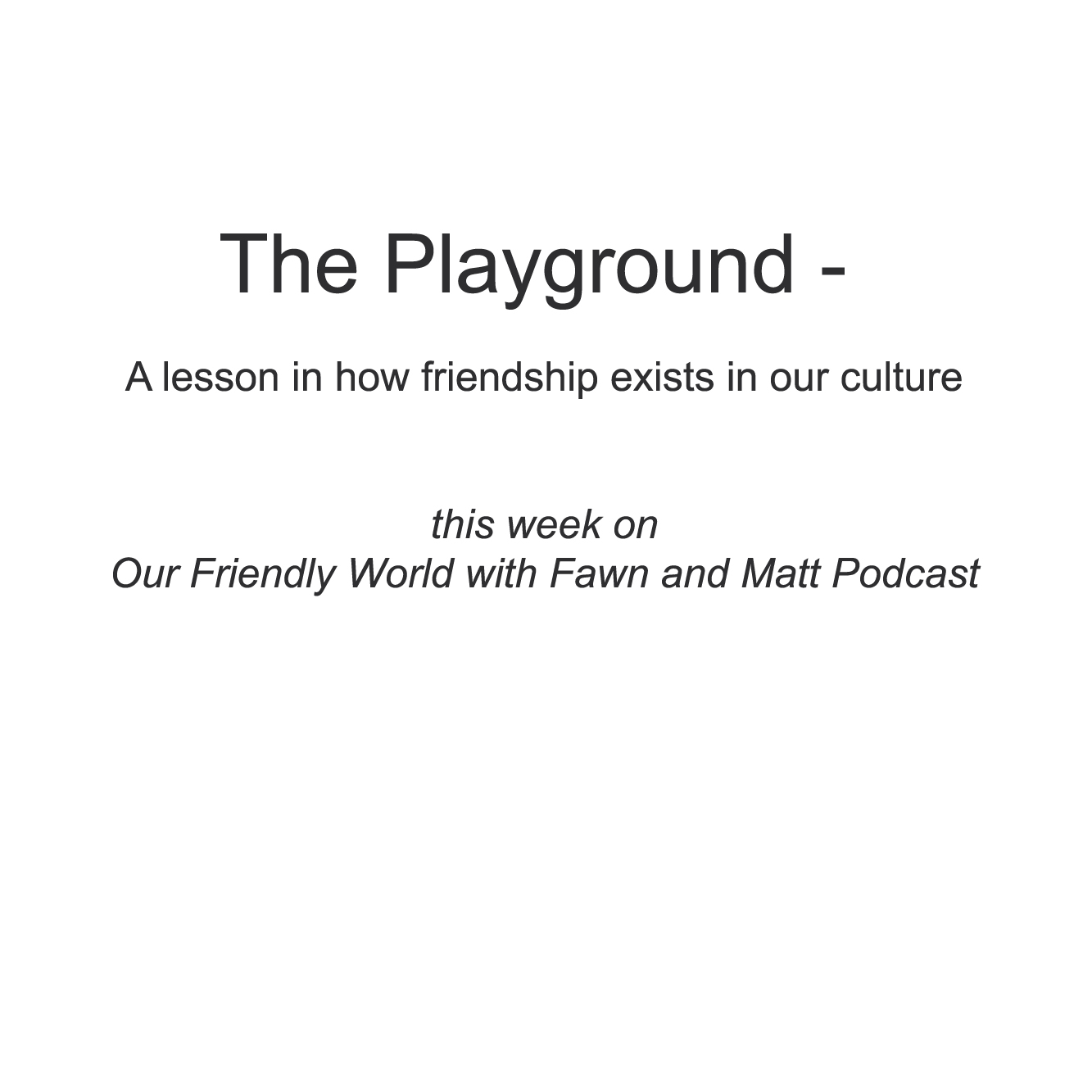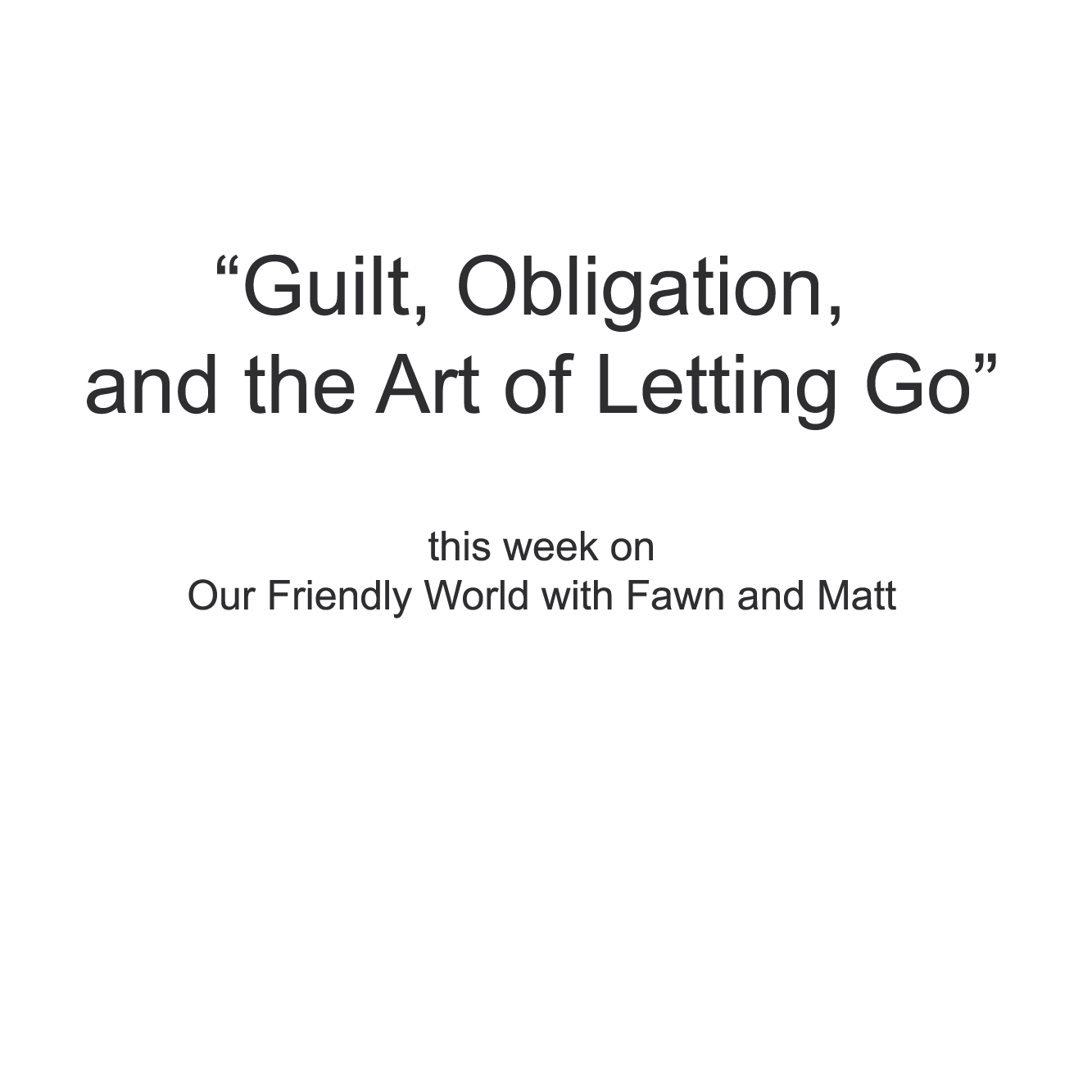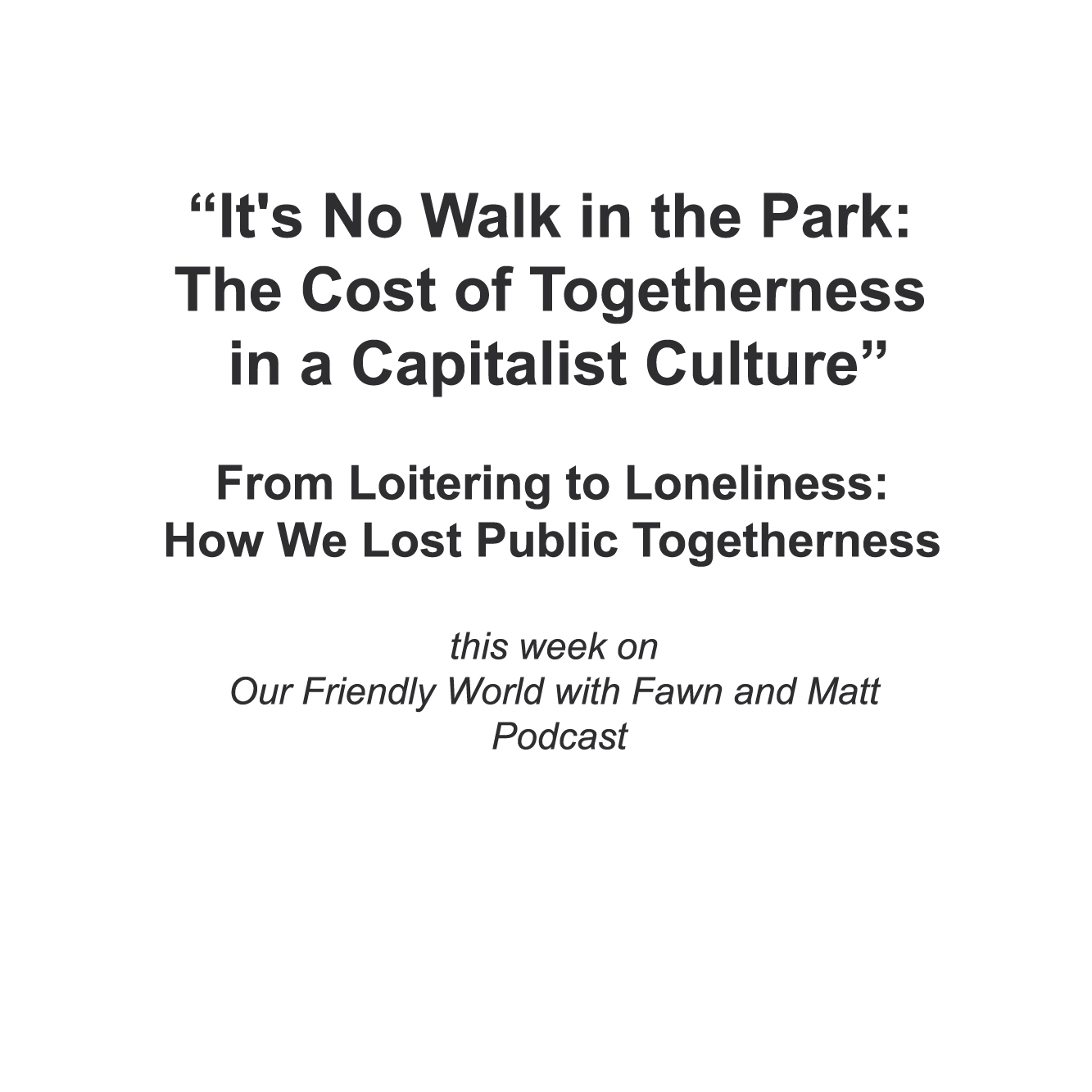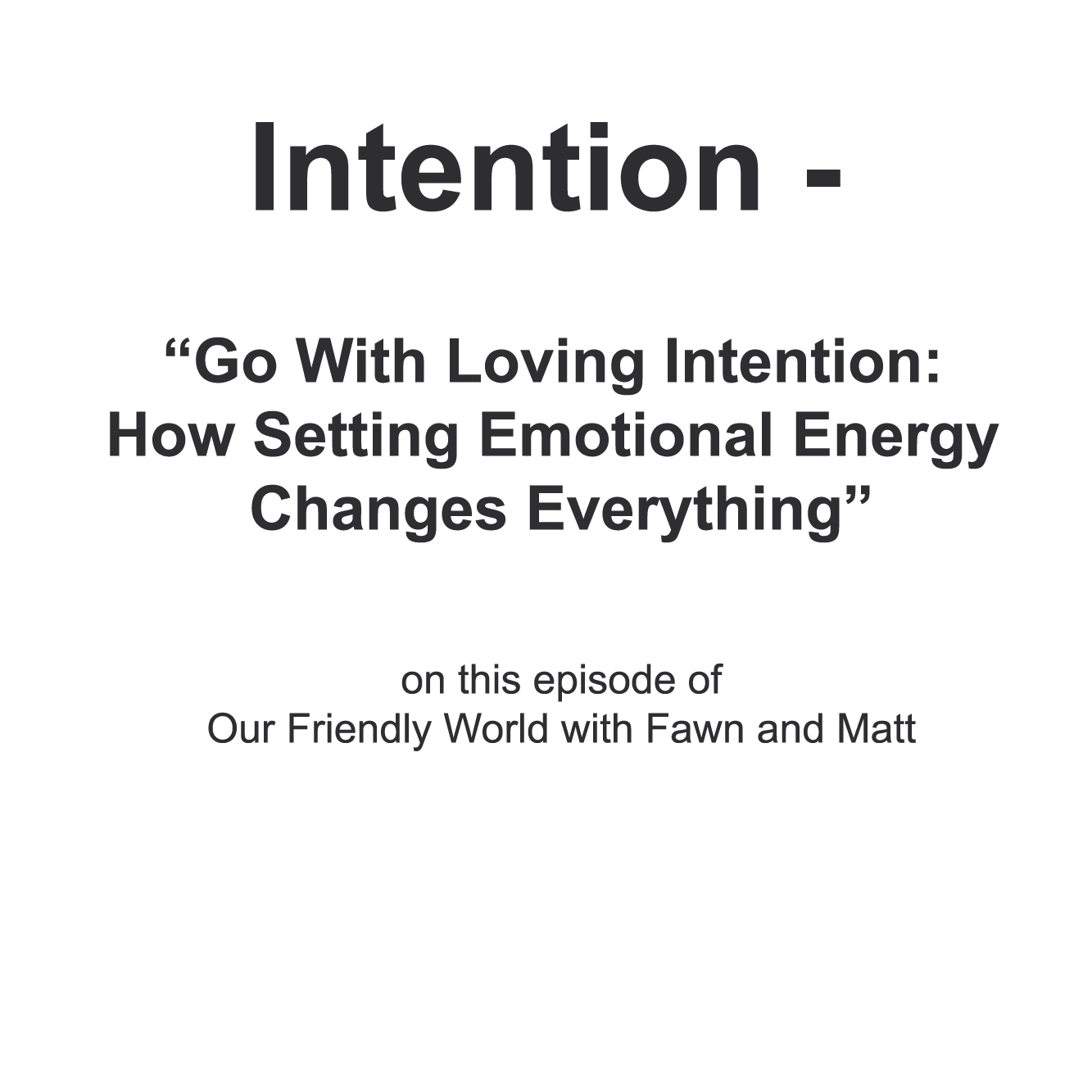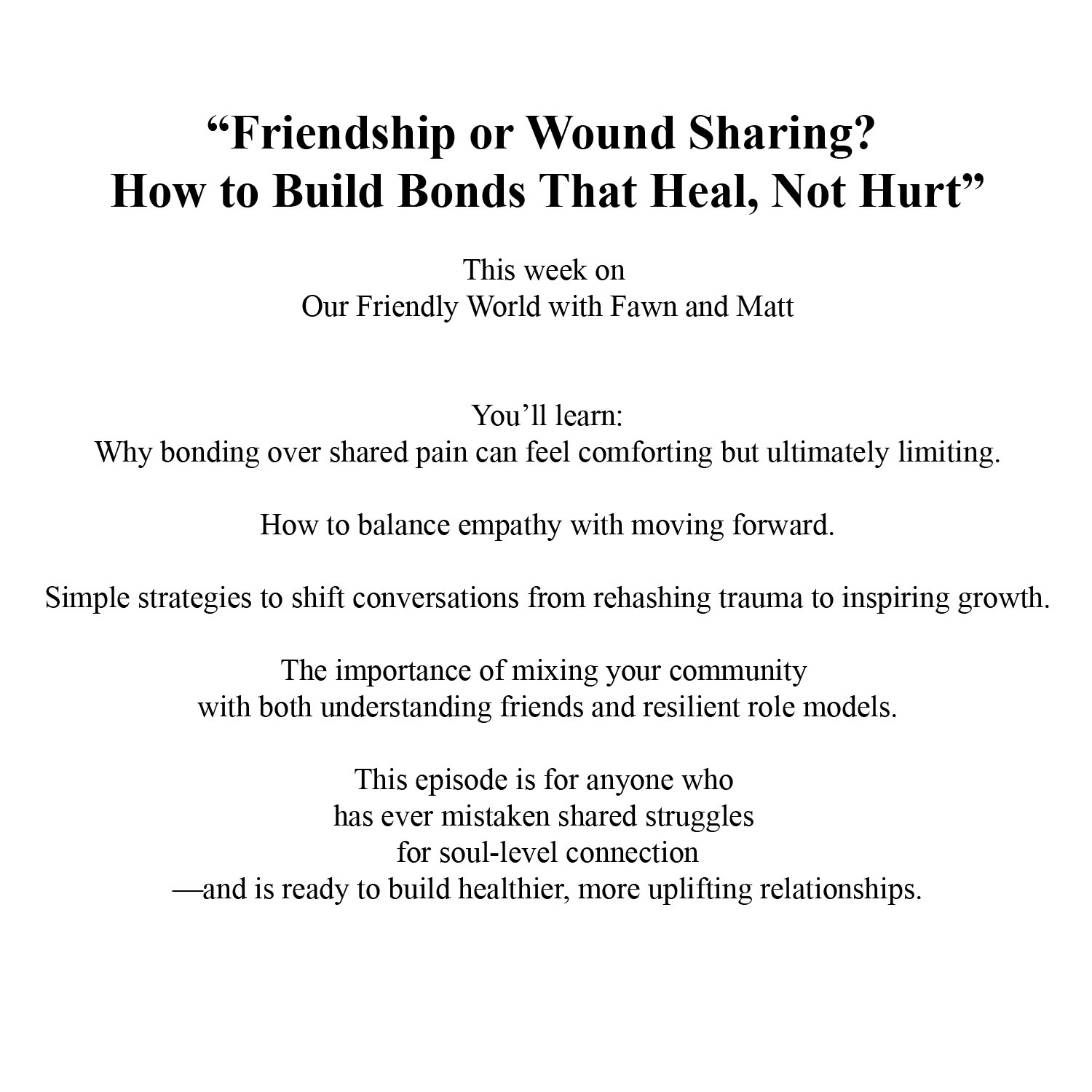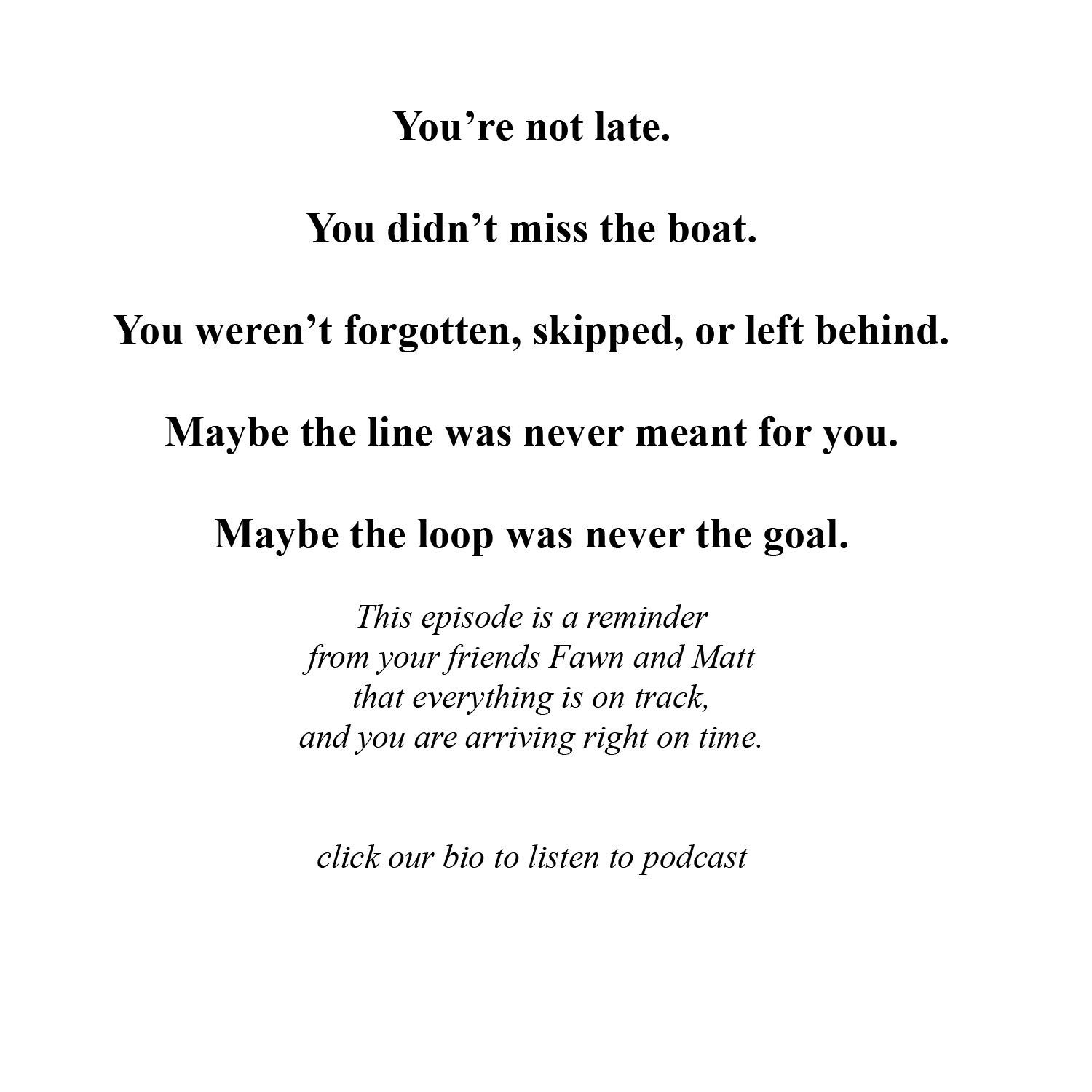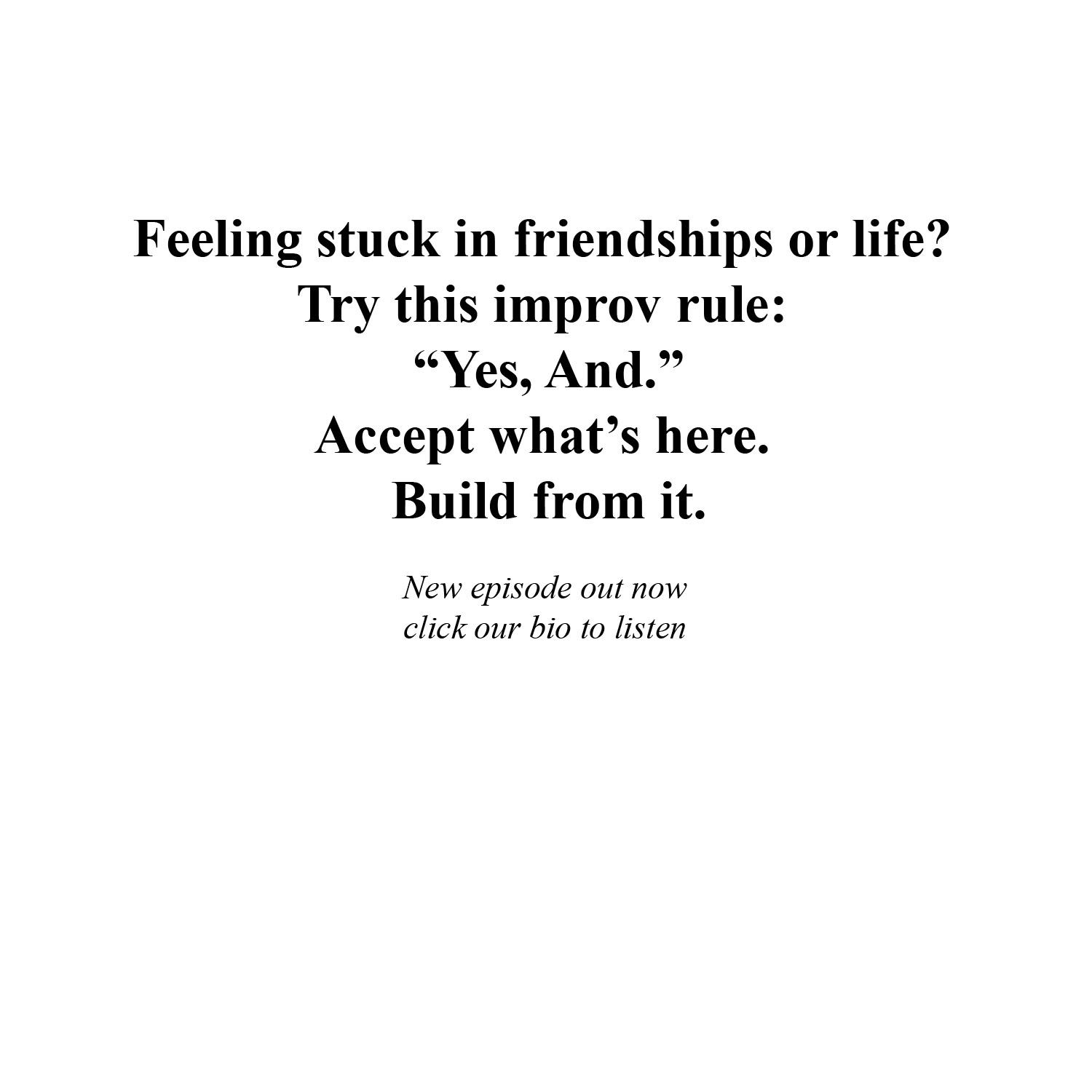"Belonging: What It Looks Like"
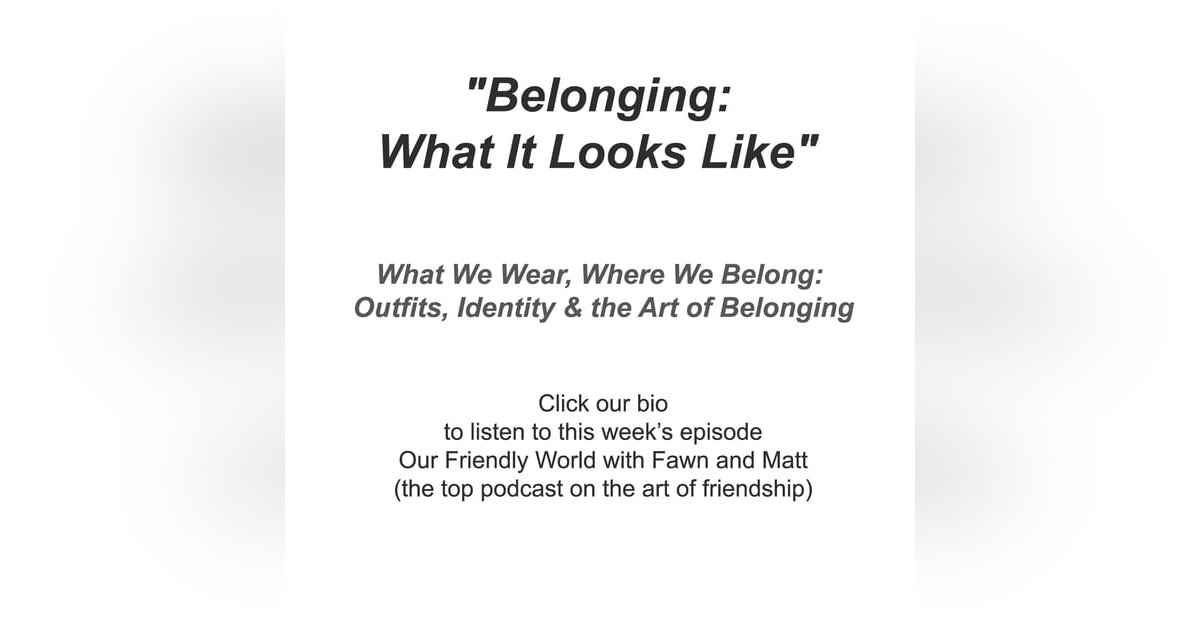

In this episode of Our Friendly World with Fawn and Matt , we continue a kitchen conversation about belonging —what it looks like, what it feels like, and how it can shift depending on where you are, what you do, or even what you wear. From the close-knit community vibes of their old Santa Monica neighborhood to feeling like outsiders in unfamiliar towns, Fawn and Matt open up about the markers of acceptance.
They explore how clothing signals identity—how a hoodie or suit can change how you're perceived—and how societal shifts have changed what it means to "look like you belong." From the days when dressing up meant access and respect, to the rise of hoodie culture in tech and casual power dressing, they unpack the hidden layers of presentation and privilege. Matt shares a behind-the-scenes glimpse into the programmer world, where skill trumps style (most of the time), while Fawn reflects on how outfits can influence not only how others treat us, but how we feel about ourselves.
This is a heartful, funny, and insightful look at the silent codes that shape our sense of inclusion and identity.
belonging, identity, self-worth, clothing and perception, friendship, community, tech culture, dress codes, power dressing, modern society, presentation, self-expression, emotional impact of clothing, inclusivity, Our Friendly World podcast
#Belonging #IdentityAndStyle #WhatWeWear #SelfExpression #TechCulture #ClothingAndPerception #FriendshipMatters #OurFriendlyWorld #DressCodeDiaries #PowerDressing #PodcastOnBelonging #CulturalShifts #CommunityVibes #FawnAndMatt #InclusiveLiving
In this episode of Our Friendly World with Fawn and Matt , we continue a kitchen conversation about belonging —what it looks like, what it feels like, and how it can shift depending on where you are, what you do, or even what you wear. From the close-knit community vibes of their old Santa Monica neighborhood to feeling like outsiders in unfamiliar towns, Fawn and Matt open up about the markers of acceptance.
They explore how clothing signals identity—how a hoodie or suit can change how you're perceived—and how societal shifts have changed what it means to "look like you belong." From the days when dressing up meant access and respect, to the rise of hoodie culture in tech and casual power dressing, they unpack the hidden layers of presentation and privilege. Matt shares a behind-the-scenes glimpse into the programmer world, where skill trumps style (most of the time), while Fawn reflects on how outfits can influence not only how others treat us, but how we feel about ourselves.
This is a heartful, funny, and insightful look at the silent codes that shape our sense of inclusion and identity.
belonging, identity, self-worth, clothing and perception, friendship, community, tech culture, dress codes, power dressing, modern society, presentation, self-expression, emotional impact of clothing, inclusivity, Our Friendly World podcast
#Belonging #IdentityAndStyle #WhatWeWear #SelfExpression #TechCulture #ClothingAndPerception #FriendshipMatters #OurFriendlyWorld #DressCodeDiaries #PowerDressing #PodcastOnBelonging #CulturalShifts #CommunityVibes #FawnAndMatt #InclusiveLiving
SEO Keywords:
-
belonging and identity
-
dress and social perception
-
cultural belonging
-
visual identity cues
-
what belonging looks like
-
fitting in vs standing out
-
how we signal inclusion
-
nonverbal communication
-
belonging in society
-
clothing and connection
#Belonging
-
#Identity
-
#SocialSignals
-
#CulturalConnection
-
#FittingIn
-
#VisualIdentity
-
#TheLookOfBelonging
-
#BelongingMatters
-
#InclusionAndIdentity
-
#WhatWeWear
-
#DressForBelonging
-
#NonverbalCommunication
-
#BelongingPodcast
-
#ArtOfFriendship
-
#OurFriendlyWorld
Fawn: [00:00:00] Welcome back everybody. Welcome to our Friendly World. Hi.
MATT: Hello everyone.
Fawn: We were talking about belonging.
MATT: We were
Fawn: upstairs in the kitchen and so we wanna continue the conversation right now this week. What makes you belong? What makes you not belong? It's really wild. Matt and I have lived in so many different spots in the United States. We came from a neighborhood where we belonged.
Like everybody knew me. Matt moved into my neighborhood because we met and I'm like, you have to live here. It's amazing. It was, it was like living in Italy 800 years ago. It was very community based in a section of la Our entire podcast is based on this place that later I realized was my mentor on friendship.
it was like a little village in Los Angeles by the beach in Santa Monica. And [00:01:00] we did everything together, all of us, all ages, all backgrounds. We ate together, played together, worked together, lived together, laughed everything. It was beautiful. We belonged
and then we moved to areas where like things were different.
MATT: Definitely.
Fawn: You know, like everything from age, like people our age we're grandparents we're like, we were in our early thirties. We were like, you're a grandparent. What? And that was normal, right?
MATT: Some places, yes. And
Fawn: then we had to like fight the whole idea of like being old, like.
They consider themselves old and they're only in their thirties. Right? Right. And we're like, whoa, is it an artistic thing. Are artists just like generally like, I don't know, like younger at heart and younger in the way they move and, maneuver in the world, but.[00:02:00]
The whole idea of belonging because what started to happen to me was like a few towns later, like if I walked by myself even if I had introduced myself to the people that lived within a few yards of our house, and they called me Maria. Thinking that I was their maid.
Okay. I don't wanna go there. I'm getting really negative, but anyways, what are the common themes of what constitutes belonging?
How does that work? Why don't you start again?
MATT: , The belonging friend.
So what are the things that make it look. To the outside that you belong inside of a given whatever it is, socioeconomic group or in a given profession in a, you know, that you deserve to be there. It doesn't, when somebody meets you, they don't necessarily see a diploma on your wall. It's not like you can tout
out
yes, I was the spelling bead [00:03:00] champion for, you know, the entire county. People judge you based on how you look. Based on the things they can see around you, based upon that kind of stuff. And so if you are, if you're dressed in a suit, you will be treated differently than if you are dressed in a hoodie, for example.
It's just, it's, it's the nature of it, where unfortunately, we judge our books by the, by their covers and they shouldn't. And that used to
Fawn: be a long time ago, like you wore a suit, right? Women dressed up to go out. . People definitely dressed up to get on an airplane to take a trip. And then things changed.
I mean, like, again. Well, things shifted as they inevitably do. I was watching, uh, Trevor Noah's podcast they were talking about Martin Luther King Jr. Wearing suits even though you knew you were going to get beaten up and arrested, but for you to wear a suit letting everyone know you belong here, despite the fact you are getting [00:04:00] mistreated, you belong, you have the suit, it's a sign, it's a signal, right?
MATT: Right.
Fawn: Of belonging. That's why hats and suits for men like in the 1950s. But then I remember being in the corporate office and then I felt like all of a sudden things changed. 'cause I was, 'cause I, I would totally go to work totally dressed up. Even in the photography field, I would wear the pencil skirt suits.
Like even in college, that's how I dressed, yet everyone around me was in torn raggedy jeans. Like these were trust, fun babies, going to the most expensive art school in the country, like one of the most expensive. And here I am in a suit, pantyhose, pumps, Treating it seriously like I, this is my profession. Mm-hmm. I was taking the same classes they were.
MATT: Right.
Fawn: Now granted, I, I had to go to work right after school. I worked at Macy's in Nordstrom's. You know, I was a [00:05:00] salesperson. I had to dress up, but even if I didn't, I would still dress up, you know what I'm saying?
Mm-hmm. But I, I noticed how all of a sudden, like as I got older too, at the office, I noticed the most, um, valuable members of the office started to appear in a white t-shirt and slacky jeans, and then the hoodie started showing up. You know, the over shirt that kind of like looks wrinkly, very casual, like even like sandals even.
I'm like, oh my God, who's this? It was all the techie guys, and because no one really knew what you guys did. We didn't work together. Matt, I'm just saying you guys as in like the tech guys. Mm-hmm. Right.
MATT: Absolutely.
Fawn: You guys. I, I was like, wow. I hardly see them in the office.
They come and go as they please. Look at the way they're dressing. Like, wow, they are so important that they can do whatever they want. And then to me, I'm like, is [00:06:00] that the new suit and tie to say I'm important because I have such high self-esteem and I'm revered so much that I can do whatever I want.
This symbolizes my freedom. This symbolizes my power, is this slack lackadaisical outfit. And then mark Zuckerberg arrives looking the way he did. Even gates, bill Gates, like he, they all looked shabby.
MATT: Yeah, definitely.
Fawn: Scruffy, definitely. But Zuckerberg introduced the concept
MATT: of the hoodie really as programmer attire.
Fawn: It was just, it was fascinating to me. I'm like, look at what they can get away with.
MATT: And the other difference is the president should look presidential. The sales reps should look like they don't need your business.
Fawn: Yeah. The more relaxed you are, the more confident you are.
Right. But like
MATT: the more opulent you look, the more likely they are to believe that you got opulent because [00:07:00] you work at this job because you Yeah. But programming has always been a meritocracy. It has never been about appearance. Appearance is irrelevant because you can't hide. There is, but
Fawn: isn't that changing now though?
MATT: It it, it is and it isn't. Unfortunately, blanket metrics don't work when Elon Musk fired employees who hadn't written code in six months or hadn't written enough code in the past six months. 'cause you can pull these statistics out of your source code. And I did that for my own review. Thank you very much.
But, um, he fired his bottom 10% of code contributors. It turns out that was really stupid 'cause some of those people had been mentoring, others had been pair programming with others, had been leading others and he got rid of them. But he did get, he did get some, for sure, he did get some low performers.
It's really hard to hide, provided you trust people to present themselves accurately, which is challenging, and you pay attention [00:08:00] to the metrics that you really care about. And the only metric he cared about was how many lines of code in the original days. Back in MIT, back when there was the MIT uh, train model, train club is where a lot of programming folklore and everything started, believe it or not.
And this would've been back, I wanna say in the fifties. There was a high school kid hanging, no, I wanna say there was like a freshman in high school who hung out at MIT and wrote code and they let him because he wrote good code and it all kind of comes from there. Nobody cares. Nobody cares what you look like.
Nobody cares how old you are or aren't. Nobody cares what race you are, believe it or not. And as long as you can sling code and as long as you know you show passion, you're good.
But, uh, that stands almost complete opposite of everything else. That is the exception. Sadly, that proves the rule. And I've gotten to live inside of that exception ' [00:09:00] cause Yeah, when I started yeah. Uhhuh, I dressed reasonably nicely. And then later after I went through my suit, wearing face, I dress like a total slacker.
And now I know if I, if I button up my oxford. I always wear an Oxford unbutton, but if I button up my Oxford, then all of a sudden I look, I look better than 90% of programmers.
Fawn: All you have to do is button up button, all they have to
MATT: button up a shirt. It's really sad.
You know? And by the way, I wear pants every day too.
Just so you guys know. What
Fawn: do you mean you wear pants? Well. I'm wearing pants right now. Sorry. England. We're talking trousers. Sorry. Trousers. No, what? I mean, what else would you wear? You mean jeans?
MATT: No, no, no. There was a point in time during covid, everybody wore PJ's or shorts or nothing, or nothing, or who knows?
I mean, it, it got really wacky and I, I never did that because. People can feel that. People can feel the energy behind that. Yes,
Fawn: definitely. [00:10:00] Definitely.
MATT: Plus, I wanna, I want that transition in. Mm-hmm. I wanna dress reasonably nice for work so that I'm more professional in my work, if you will. But that's a me thing, and that's not an everybody thing.
Fawn: Well, I mean that it does make a difference. Like if I wear something that makes me feel fat. I yell at the kids a lot that day. Like, I'm not, I'm upset. Right. You know what I'm saying? I just wanna
MATT: wear something that feels comfortable.
Fawn: Right. If I wear something where I'm like, oh, this is cute. Right? I have a better attitude and I have more capacity for the BS of the world, I have just better capacity for it.
Mm-hmm. Because look at this cute outfit. You know what I'm saying? I feel, I feel good. Um, but like it goes beyond fashion too. Like it's. I've said this all my life. When we met, I pointed it out to you. I'm like, Matt, look at this. They have benches and it's not this way in other countries, but there are benches everywhere.
But you're not allowed to sit on these benches, [00:11:00] and depending on who it is, it sits on the benches. The police comes and tells you to get off. You are not allowed to sit, you're not allowed to for sure lie down. Right? Right. You're not allowed to relax. And then also the benches are very expensive. And I guess it's a big deal for some people to get together to raise enough money to put that bench there because it's really a plaque for someone who passed away.
So it's a tombstone. I'm like, I don't even wanna sit on these benches because to me it just reminds me of death. Why can't it be about enjoying life? But if you look in the United States mainly, it's always a tombstone. If you think about it, right? There's a plaque that says in memory of yes, when this person died, who they were.
Yeah, they really should
MATT: redo that. It really should say So and so loves this spot. That's it. No, no. I mean, but
Fawn: like, no, no
MATT: memorial, no nothing. Why?
Fawn: Why can't it just be enjoy life? Or why can't it be a, a quote from a beautiful poem that helps you [00:12:00] see the beauty of the world? You know, sit here and enjoy this tree.
This tree has been here for centuries and has seen politics go up and down and has seen it all. revel in its safety and beauty. Let it talk to you and teach you something. Let it give you some peace. You know what I'm saying? Mm-hmm. Anyway, so again, neighborhoods, I was, an architectural photographer and I was
blown away by how things are structured to have people not be friends, for people to not congregate together. You live together inches apart in a way where you don't even see each other and it's meant for you to never run into each other as much as possible.
MATT: Right.
Fawn: Interesting. Yeah. Do you belong here?
Only if you're a ghost,
MATT: right? Am I wrong on many levels? Yes. Yes. And what was so atypical about where you lived? And God forbid
Fawn: you cook something that has a [00:13:00] scent to it. Growing up, I told you this story years ago, you guys, I'm sorry for those of you who've been listening to us from the beginning.
Well, like, you know, ethnic family, like my mom would cook and oh my God, the neighbors, the neighbors would come over and complain. But really what they wanted is in on on the meal. Do you know what I'm saying? Like I
MATT: do, but I do. But what I was gonna say was atypically in Santa Monica.
There was places on the bottom floor to hang out. There was the whole street outside to hang out at. So even though it was a quote unquote apartment building, it wasn't at the same time. It was part of a community
Fawn: and just walking down the hall, it allowed for us to have conversations and we all shared each other's spaces.
Mm-hmm. It was built in such a way that started conversations and allowed, it was so easy to go, what does your place look like?
MATT: Right.
Fawn: Like, oh, you wanna come see it? Right. Look, look what? Look how this place is. And also, the hallways
MATT: were wide and high.
Fawn: Right. It was just [00:14:00] open and friendly.
It was very community oriented. Right. Yeah. Again, that building was constructed by Certain people,
MATT: army Corps of Engineers,
Fawn: you know, it was, it was built well, and it was just intelligent. I mean, it's all intelligently created, right? Right. It's just not just intelligent, doesn't mean friendly, friendly, intelligent doesn't necessarily always mean friendly or inclusive.
, You felt like you belonged. We were like, if you think about it, one of the richest areas in the United States, but we were all poor, but we belonged there. We were artists. Mm-hmm. It's not like that anymore. It changed, I think when we left, it was changing while we were leaving. You have to be a millionaire now to live in that neighborhood. Now,
what else is on our list as far as belonging that we were talking about?
MATT: Fashion. For instance, and certain identities that people gain based on, , how they dress. [00:15:00] One of the funniest things to me, oh my God, okay. Everybody remembers in high school, all the little cliques would dress similarly.
Well, you sometimes take a look at husbands and wives and they dress identically. There was a couple, we went out for coffee yesterday. There was a couple wearing basically the exact same jacket. Mm-hmm. It was like a puffy jacket, but it wasn't puffy at all.
Fawn: And also hairstyles, remember we, because we've lived in so many cities, like from city to city, all the women had the same hairstyle.
The same. That's
MATT: true.
Fawn: Oh my God.
MATT: Well, you were in the same clothes. You remember the the whole goatee thing and
Fawn: Oh, and the man bun. I know the man bun spread everywhere in the United States, but it was Boulder County, right? Am I right?
MATT: Maybe it might be the start, the
Fawn: beard and the man bun. I wanna say originated there before it was all over the place.
I don't know. Um, what else? [00:16:00] Food. Food, right. Like, when I was a kid, I did not take anything ethnic to school. Because it was like, ew, what you bring your one bread sandwich
MATT: or you don't eat?
Fawn: What is that?
MATT: Right?
Fawn: Like the, the terrible ugliness that would come your way if you opened your lunchbox or your bag, your paper bag.
But now it's like everyone is such a,
MATT: foodie food snob. A
foodie. Everybody's a foodie. Right? And they know these fancy, but are, are they in high school
and
Fawn: elementary
MATT: school
Fawn: even? Yeah, little tiny kids. Yeah. Like I remember, you know, same age, like my friend would go to school, her parents were like total hippies, even though she looked like she was the blonde hair, blue eyed girl she came to school with, with sushi.
Back in the day, no one knew what sushi was. She was like an outcast. [00:17:00] But like now, sushi's like a, a status symbol, right?
MATT: Well, it was for sure. I'm not sure.
Fawn: I mean it, I don't know if it still is it, you know what I mean? It's a thing now. She's a big deal.
MATT: It's a thing now though. It's just, it's not like, but I can't even give you the names.
Rare and random of
Fawn: certain dishes now that would be like, so hip and popular. But if a kid came with that mm-hmm. It's like, wow, you belong. Right. Like it's a status symbol and it wasn't that way before. And it's good to see. I, I mean, that's one of the positive changes I've been seeing is that at least that you don't get berated for having food
that's different. But again, now you belong. Now there's a sense of belonging where before it was a sense of that's an outcast. You don't belong here, right?
Even bodies like the shape of our bodies, if you were like, if you had thick lips and, thick thighs, you definitely don't belong. But now think about it. There's surgeries meant to have you [00:18:00] have that so you can belong. Even in work in Industries, you are sculpted to look like that.
Where growing up you were an outcast
MATT: cast. You did
Fawn: not belong.
MATT: Right? Interesting. Mm, it is. But again, I think it's a different sense of the ins and the outs, you know, like. Oh my God. We can even talk about cars for a moment. Tesla taking a huge dive right now. Everybody's hating on the Tesla.
Fawn: Yeah, I heard about how people are changing the logo, like to make it seem like it's something else.
MATT: Right. And people, people have put stickers on their cars, says, you know, I bought my Tesla in 2023 before yada, yada went and yada yada.
People do judge you based on your car for sure.
Fawn: I mean, yeah. And now with a state of everything, do you belong here? The fear of, of someone seeing you as not belonging? I feel not. I feel [00:19:00] there are people who disagree with me. It is so high. It is so scary. The judgment anyone can throw at you because they may choose that you don't belong.
MATT: Can we go back to talking about fun clothes And
Fawn: Go ahead.
MATT: I already talked about it. So tall versus short.
Tall people versus short people, but no.
Fawn: Oh no. Tall people get paid more. They take, they get taken seriously. Hello? I am short, but I sit
MATT: down
Fawn: all day.
MATT: Nobody has any idea how tall I am.
Fawn: You know, there were moments where like I was at UCLA taking writing courses. Mm-hmm. And we would have conversations during class and we would, um, trade ideas.
And then I remember the first time we stood up to go on a break, 'cause I, you know, I would always come up with ideas and share stories. I wrote whatever. And I remember this one woman. [00:20:00] Was like, oh my God, you're short. When you were talking, I thought you were a tall person. Oh, she and she had that gross look on her face like, Ew, you're short.
Dang. Like all of a sudden she didn't take me seriously. Thank dear, now that she knew I was short and she was very vocal about it. I'm like, wow, how do you want me to respond? It's super easy
MATT: to dismiss, but.
Fawn: What do you mean super easy to dismiss?
MATT: Just say, oh this, this lady was just an idiot.
Fawn: No, that's super for you to, super easy for you to dismiss.
I still carry it. That was a long time ago. Oh dear. But like that's what I get hit by all the time. I'm saying this is why I tend to go to a negative spot because I have to deal with it all the time, Matt. And it's not me being negative. It's like it's a daily thing and if I choose not to concentrate on it.
Best belief or even a close friend will bring it to my attention. Like, like the other day, a friend told me, you better have your passport with you. [00:21:00] Where I just was telling myself, I don't wanna think about that. I don't wanna bring that into my circle. She brought it up, I'm like, oh my God. You know, to prove I'm a citizen.
Matt's looking down. Okay, let's just wrap this up. You take it away, Matt, take it to a positive note. Please. Go on, please.
MATT: I'm trying baby. Man. I'll just be quiet. I'll just be quiet, man. See,
Fawn: that's why I didn't speak some episodes back 'cause I I was in a bad space. Go on honey. Your advice is wonderful. Go on, go on cutie pie.
MATT: I'm having a hard time here folks.
I would argue that if you act like you belong, you're much more likely to be accepted to belong. And while computer programming is a meritocracy, God bless it. If you understand the perceptions people have, you can then manipulate their opinions of you based upon them. There was a [00:22:00] story about a man who bought expensive shoes, because that's all people tended to notice about the people who were working at this particular profession is their shoes.
And so he bought super spendy shoes so everybody would assume that he belonged there.
Fawn: And also claiming your friend as your friend. This friend belongs to me. There you go. I belong to this person. There
MATT: you go. It
Fawn: creates that. That feeling of the village, feeling like that, primal circle of protection that we have when we're friends with people.
You have a circle, a network, and you are protected. So when a friend professes. Like, even if it's on Instagram. Thank you Wendy. Like talking about you. Like, Hey, fa, I'm gonna call you later in a post, that is seen around the world. Yes. In a way that's proclaiming to the world
she is my friend. I am her friend. [00:23:00] Right we belong together. It's like this united circle of love. I love it. Belonging comes so many ways. With that, I have to go, guys. I have a meeting in a few minutes. Yes you do. I have a singing lesson. I gotta go.
MATT: But anyways, help your friends. Help them feel like they belong.
Fawn: Help yourself feel like you belong. Remember you belong. You belong. You are important. Everybody belongs. There's a coffee shop. There you go. That has that. Okay. Alright, love you guys. Please reach out to us anytime. Have a beautiful every day.
MATT: Awesome. Bye-bye.















